sharing economy
description: an economic system where assets or services are shared between individuals, often facilitated by a platform
239 results
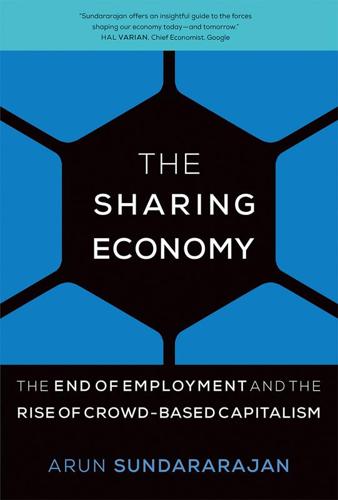
The Sharing Economy: The End of Employment and the Rise of Crowd-Based Capitalism
by
Arun Sundararajan
Published 12 May 2016
As I will argue later in this chapter, it is quite natural that the sharing economy spans the continuum between market economies and gift economies. But to get there, I first need to better bound the scope of what is meant by the “sharing economy,” and discuss the evolution of recent thinking about it. What Is the Sharing Economy? In the introduction, I provided a number of examples that fall under the umbrella of what I call the “sharing economy” or “crowd-based capitalism,” terms I use more precisely (and interchangeably) to describe an economic system with the following five characteristics: Largely market-based: the sharing economy creates markets that enable the exchange of goods and the emergence of new services, resulting in potentially higher levels of economic activity.
…
He is explicit, however, in his interest in the “business” of sharing, and, realizing the inherent potential contradiction, explains his use of the term “sharing economy”: Why am I using the term “sharing economy” time and time again in this book? In part, I do so because this term has come to dominate discourse on the subject. The genie is out of the bottle. It would be near-impossible to dislodge the term without the risk of fracturing a growing movement of people who largely have no problem with the term, and who are building something that—for the most part, as we will see—is a social and economic good.17 How Key Early Thinking on the Sharing Economy Evolved What I defined as the sharing economy (or as crowd-based capitalism) emerged at scale around 2010.
…
In Remix Lessig uses a stark definition of a sharing economy in the context of culture, distinguishing it definitively from what he calls a “commercial economy.” He writes: “There exists not just the commercial economy, which meters access on the simple metric of price, but also a sharing economy, where access to culture is regulated not by price but by a complex set of social relations.”24 Later in the same chapter, Lessig qualifies his point: “Of all the ways in which the exchange within a sharing economy can be defined—or put differently, of all the possible terms of the exchange within a sharing economy—the one way in which it cannot be defined is in terms of money.”25 Lessig himself then draws a parallel between his thinking and Benkler’s.
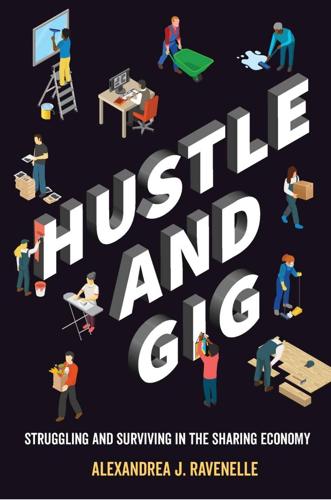
Hustle and Gig: Struggling and Surviving in the Sharing Economy
by
Alexandrea J. Ravenelle
Published 12 Mar 2019
“Debating the Sharing Economy.” Great Transition Initiative, October. www.greattransition.org/publication/debating-the-sharing-economy. ———. 2014b. “Risks and Rewards of Cultivating a Sharing Economy.” Brink, December 23. ———. 2015. “The Sharing Economy: Reports from Stage One.” Unpublished paper. ———. 2017. “Does the Sharing Economy Increase Inequality within the Eighty Percent?: Findings from a Qualitative Study of Platform Providers.” Cambridge Journal of Regions, Economy and Society 10(2):263–79. Schor, Juliet B., and William Attwood-Charles. 2015. “Platform Providers in the ‘Sharing’ Economy.” Work in Progress: Sociology on the Economy, Work and Equality, July 28. https://workinprogress.oowsection.org/2015/07/28/platform-providers-in-the-sharing-economy/. ———. 2017.
…
Yet even the latest workplace policies are no match for the sharing economy’s bulldozing of workplace protections. Chapter 5 examines sexual harassment in the sharing economy and how the egalitarianism of peer-to-peer employment results in the loss of political language as workers “explain away” sexual harassment. In chapter 6, I explore the shady underbelly of the sharing economy through stories of workers who find themselves engaging in illegal or at least legally questionable activities as part of their sharing economy work. I argue that the anonymity of the sharing economy can make it easier to source otherwise law-abiding workers for drug deliveries and can lead to unsuspecting workers involved in various scams.
…
The increase in discrimination, partnered with a reliance on reviews and profiles and a declining level of trust, suggests that the sharing economy—while many things—is hardly a positive return to the ideal of small town life. The Increasing Casualization of Labor and the Related Risk Shift The sharing economy also brings to the forefront issues regarding the changing relationship between worker and firm and the resulting workplace risks encountered by sharing economy workers. The majority of sharing economy workers—including Uber/Lyft drivers, TaskRabbit runners, Airbnb hosts, and Handy cleaners—are independent contractors.
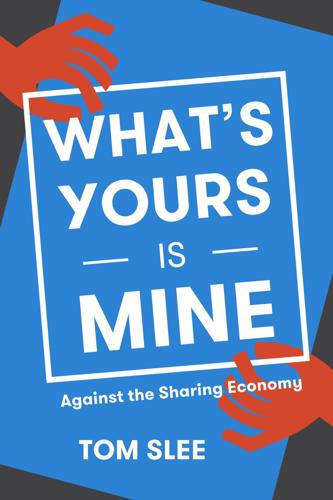
What's Yours Is Mine: Against the Sharing Economy
by
Tom Slee
Published 18 Nov 2015
BERTOLT BRECHT, From a German War Primer What’s yours is mine, what’s mine is my own. Traditional Yorkshire saying To my mother, Audrey Slee Contents 1 The Sharing Economy 2 The Sharing Economy Landscape 3 A Place to Stay with Airbnb 4 On the Move with Uber 5 Neighbors Helping Neighbors 6 Strangers Trusting Strangers 7 A Short History of Openness 8 Open Wide 9 What’s Yours Is Mine Bibliography Endnotes Acknowledgements 1. The Sharing Economy The Sharing Economy is a wave of new businesses that use the Internet to match customers with service providers for real-world exchanges such as short-term apartment rentals, car rides, or household tasks.
…
There is no doubt that the word “sharing” has been stretched beyond reasonable limits as the “sharing economy” has grown and changed, but we still need a name when we talk about the phenomenon. While it may not last more than another year or so, “sharing economy” is the name used right now in 2015. I will use the name, but to avoid repeated use of the word “alleged” or annoyingly frequent scare quotes I will capitalize it as the Sharing Economy.2 Definitions don’t take us very far when talking about something as fluid and rapidly changing as the Sharing Economy, but we still need to draw some boundaries around the topic to talk about it coherently.
…
New businesses may be built around sharing and openness, but commercial instincts will tend to drive out altruistic behavior, and the generous impulses that inspired the Sharing Economy will be crushed by monetary incentives. The Sharing Economy is young and it is changing rapidly. It will be shaped by our behavior as consumers, but also by our behavior as citizens and our behavior as workers. Sharing Economy companies claim we should trust them and their technologies to take over functions provided by governments: guaranteeing a safe consumer experience, ensuring that employment is fair and dignified, and shaping cities to be livable and sustainable. We should not do so. I wrote this book because the Sharing Economy agenda appeals to ideals with which I and many others identify; ideals such as equality, sustainability, and community.
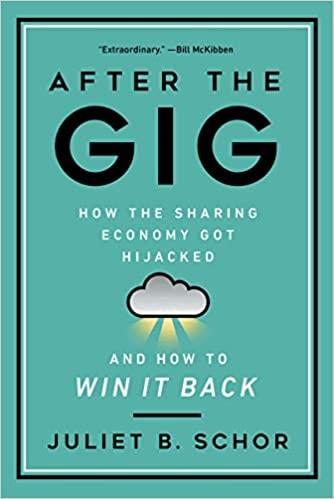
After the Gig: How the Sharing Economy Got Hijacked and How to Win It Back
by
Juliet Schor
,
William Attwood-Charles
and
Mehmet Cansoy
Published 15 Mar 2020
Frenken, Koen, Toon Meelen, Martijn Arets, and Pieter van de Glind. 2015. “Smarter Regulation for the Sharing Economy.” The Guardian, May 20, 2015. Frenken, Koen, and Juliet B. Schor. 2017. “Putting the Sharing Economy into Perspective.” Environmental Innovation and Societal Transitions 23 (June): 3–10. Friedan, Betty. 1963. The Feminist Mystique. New York: Norton. Friedman, Thomas L. 2013. “Welcome to the ‘Sharing Economy.’ ” New York Times, July 20, 2013. FTC Staff. 2016. “The ‘Sharing’ Economy—Issues Facing Platforms, Participants & Regulators.” Washington, DC: Federal Trade Commission. www.ftc.gov/reports/sharing-economy-issues-facing-platforms-participants-regulators-federal-trade-commission.
…
Plenitude: The New Economics of True Wealth. New York: Penguin. ———. 2014. “Debating the Sharing Economy.” www.greattransition.org/publication/debating-the-sharing-economy. ———. 2015. “Homo Varians: Diverse Motives and Economic Behavior in the Sharing Economy.” Unpublished paper. Boston College. ———. 2016. “ ‘Old Exclusion in Emergent Spaces.’ ” In Ours to Hack and to Own: The Rise of Platform Cooperativism, edited by Trebor Scholz and Nathan Schneider, 38–42. New York: OR Books. ———. 2017. “Does the Sharing Economy Increase Inequality within the Eighty Percent? Findings from a Qualitative Study of Platform Providers.”
…
Schor, and Robert Wengronowitz. 2018. “Domesticating the Market: Moral Exchange and the Sharing Economy.” Socio-Economic Review (Feb. 16): doi:10.1093/ser/mwy003. In chapter 3: Juliet B. Schor. 2017. “Does the Sharing Economy Increase Inequality within the Eighty Percent? Findings from a Qualitative Study of Platform Providers.” Cambridge Journal of Regions, Economy and Society 10 (2): 263–79. In chapter 5: Juliet B. Schor, Connor Fitzmaurice, Lindsey B. Carfagna, Will Attwood-Charles, and Emilie Dubois Poteat. 2016. “Paradoxes of Openness and Distinction in the Sharing Economy.” Poetics 54:66–81. Note: This Book Has Been Coproduced This book is the product of a thoroughly collaborative effort among a team of researchers.
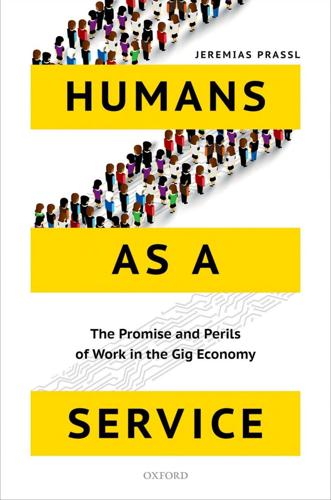
Humans as a Service: The Promise and Perils of Work in the Gig Economy
by
Jeremias Prassl
Published 7 May 2018
Tom Slee, What’s Yours Is Mine: Against the Sharing Economy (O/R Books 2015), 27. The website itself seems to have gone offline at the time of final editing. 6. Anya Kamenetz, ‘Is Peers the sharing economy’s future or just a great Silicon Valley PR stunt?’, Fast Company (9 December 2013), http://www.fastcompany. com/3022974/tech-forecast/is-peers-the-sharing-economys-future-or-just-a- great-silicon-valley-pr-stunt, archived at https://perma.cc/6DMG-DGBJ 7. Andrew Leonard, ‘The sharing economy gets greedy’, Salon (1 August 2013), http://www.salon.com/2013/07/31/the_sharing_economy_gets_greedy/, archived at https://perma.cc/M9E6-EVF5.
…
For subsequent details, see Andrew Leonard, ‘Who owns the sharing economy?’, Salon (2 August 2013), http:// www.salon.com/2013/08/02/who_owns_the_sharing_economy/, archived at https://perma.cc/AL8X-VZXT 8. Sarah Kessler, ‘Peers says its new focus is helping sharing economy workers’, Fast Company (12 November 2014), http://www.fastcompany.com/3038310/peers- says-its-new-focus-is-helping-sharing-economy-workers, archived at https:// perma.cc/D5WR-WXXW 9. Tech:NYC, ‘What we are’, http://www.technyc.org/what-we-are/, archived at https://perma.cc/Z9ND-3ETH 10. Sharing Economy UK, ‘About us’, http://www.sharingeconomyuk.com, archived at https://perma.cc/3ENY-TLF3 11.
…
A host of industry-representative groups and lobbying outfits working on behalf of the on-demand economy have sprung up—with varying degrees of transparency. Sharing-economy critic Tom Slee points to Peers.org as a particularly interesting example of such lobbying efforts, ‘appropriating the language of collective action and progressive politics for private financial gain’.5 The platform describes itself variably as a ‘member-driven organization to support * * * Keeping Regulators at Bay 33 the sharing economy movement’, ‘the world’s largest independent sharing economy community’, and an organization aiming ‘to support workers by making the sharing economy a better work opportunity’—yet the reality appears to be somewhat different.6 Following an early promotional call, Andrew Leonard of Salon wondered: So the obvious question is, who does Peers represent?
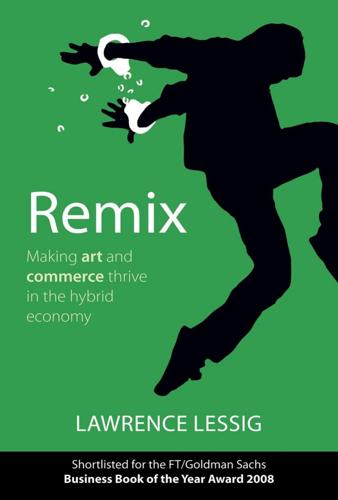
Remix: Making Art and Commerce Thrive in the Hybrid Economy
by
Lawrence Lessig
Published 2 Jan 2009
Puritan society has waged war against economies for sex that compete with sex within a monogamous relationship—believing both fornication (a competing sharing economy) and prostitution (a competing commercial economy) put too much pressure on an idealized sharing economy. Likewise, the content industry today wages war against economies for exchanging copyrighted content—peer-to-peer sharing economies, where people don’t necessarily know one another, as well as friend- 80706 i-xxiv 001-328 r4nk.indd 150 8/12/08 1:55:25 AM T W O EC O NO MIE S: C O MMERC I A L A ND SH A RING 151 ship sharing economies,44 where they do. In both cases, the judgment that the one economy is poison to the other may well be right.
…
For despite the intuitions that names give to the contrary, a thin sharing economy is often easier to support than a thick sharing economy. This is because inspiring or sustaining thee motivations is not costless. Or at least, all things being equal, a me motivation (for us, now) comes more easily to most. Thus, distinguishing cases where a thee motivation is necessary from cases where it isn’t will be helpful in predicting whether a certain sharing economy will survive. 80706 i-xxiv 001-328 r4nk.indd 154 8/12/08 1:55:26 AM T W O EC O NO MIE S: C O MMERC I A L A ND SH A RING 155 Internet Sharing Economies The Internet has exploded the range and thickness of sharing economies too.
…
T WO ECONOMIES: COMMERCIAL AND SHARING 117 Commercial Economies 119 Three Successes from the Internet’s Commercial Economy 122 Three Keys to These Three Successes 128 Little Brother 132 The Character of Commercial Success 141 Sharing Economies 143 Internet Sharing Economies 155 The Paradigm Case: Wikipedia 156 Beyond Wikipedia 162 What Sharing Economies Share 172 7. HYBRID ECONOMIES 177 The Paradigm Case: Free Software 179 Beyond Free Software 185 8. ECONOMY LESSONS 225 Parallel Economies Are Possible 80706 i-xxiv 001-328 r4nk.indd x 225 8/12/08 1:54:25 AM Tools Help Signal Which Economy a Creator Creates For 226 Crossovers Are Growing 227 Strong Incentives Will Increasingly Drive Commercial Entities to Hybrids 228 Perceptions of Fairness Will in Part Mediate the Hybrid Relationship Between Sharing and Commercial Economies 231 “Sharecropping” Is Not Likely to Become a Term of Praise 243 The Hybrid Can Help Us Decriminalize Youth 248 Part III: Enabling the Future 9.
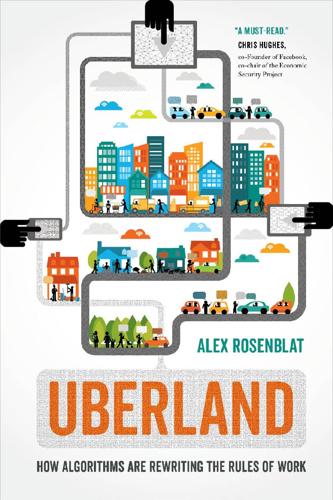
Uberland: How Algorithms Are Rewriting the Rules of Work
by
Alex Rosenblat
Published 22 Oct 2018
For a description of the sharing economy as a signifier of a constellation of business activities with roots in collaborative commerce, see sociologist Juliet B. Schor, “On the Sharing Economy,” Contexts 14, no. 1 (2015): 12–19, http://journals.sagepub.com/doi/pdf/10.1177/1536504214567860; see also Edward T. Walker, “Beyond the Rhetoric of the ‘Sharing Economy,’” Contexts 14, no. 1 (2015): 12–19, http://journals.sagepub.com/doi/pdf/10.1177/1536504214567860; Natasha Singer, “Twisting Words to Make ‘Sharing’ Apps Seem Selfless,” New York Times, August 8, 2015; Caroline Jack, “Imagining the Sharing Economy,” Points, November 21, 2016, https://points.datasociety.net/imagining-the-sharing-economy-3a2048469da5. 52.
…
Universal basic income is one form of “automation alimony” that is proposed to relieve the rising inequality often attributed to automation. It was in this economic and cultural climate that the buzz around “the sharing economy” began. Its promise was seductively simple. The sharing economy was a social technology movement designed to use tech to share resources more efficiently—a true “commonwealth” aimed at remedying some of the insecurity fostered by the Great Recession. The sharing economy was built atop earlier cultural conversations, like those about rental commerce, car-sharing, and cooperative housing. Technology could connect those who possessed underutilized assets, skills, or time with potential consumers, a form of commerce that reduced the costs of ownership and more efficiently distributed goods and services.17 For struggling millennials displaced by the recession, this new model provided a hopeful new paradigm for earning income.
…
A Pew Research Center survey published in November 2016 shows that 8 percent of American adults earned money from an online employment platform in the previous year across industries such as ridehailing, online tasks, or cleaning/laundry.35 Rounds and rounds of venture capital funding bolstered Uber and Airbnb, the two most successful companies to emerge from the sharing-economy period. Both companies became “unicorns,” a term for start-ups that reach billion-dollar valuations. In 2016, Uber reached a $68 billion valuation, while Airbnb was valued at $30 billion,36 less than a decade after their beginnings in 2009 and 2008, respectively. By July 2017, the Oxford Internet Institute’s iLabour Project published a report finding that the online sharing economy, which includes clerical and data entry services for jobs posted online, had grown 26 percent in the previous year.37 But as the sharing economy has grown, things have gotten complicated.
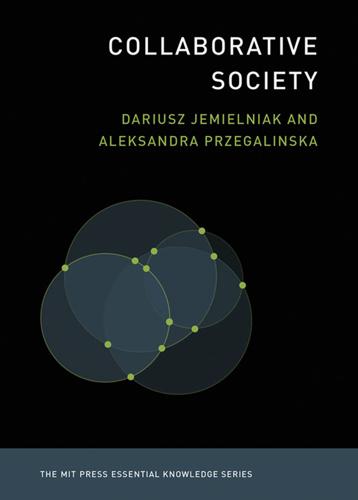
Collaborative Society
by
Dariusz Jemielniak
and
Aleksandra Przegalinska
Published 18 Feb 2020
Nevertheless, these resources have already been paid for and removed from the market; hence, the platforms allow for their endless recirculation. An Umbrella Term of Contradictions Should we agree that sharing economy is a meaningful term and covers initiatives as different as Wikipedia and Airbnb, we would immediately be pulled into a jumble of contradiction. We would have to recognize sharing economy as something in between “a pathway to sustainability or a nightmarish form of neoliberal capitalism.”21 Indeed, sharing economy “constitutes an apparent paradox, framed as both part of the capitalist economy and as an alternative.”22 That is, sharing economy has become an umbrella term for many (sometimes conflicting) ideas.23 Although the term could prove useful as we reflect upon various aspects of the social turn toward collective activity and away from mediating institutions, the overgeneralized or fuzzy conceptual chaos surrounding it impedes that opportunity.
…
Dubal, “The Drive to Precarity: A Political History of Work, Regulation, & Labor Advocacy in San Francisco’s Taxi & Uber Economics,” Berkeley Journal of Employment and Labor Law 38 (2017): 73–135. 19. K. Frenken and J. Schor, “Putting the Sharing Economy into Perspective,” Environmental Innovation and Societal Transitions 23 (2017): 3–10. 20. Srnicek, Platform Capitalism, 9. 21. C. J. Martin, “The Sharing Economy: A Pathway to Sustainability or a Nightmarish Form of Neoliberal Capitalism?” Ecological Economics 121 (2016): 149–159. 22. L. Richardson, “Performing the Sharing Economy,” Geoforum 67 (2015): 121–129. 23. A. Acquier, T. Daudigeos, and J. Pinkse, “Promises and Paradoxes of the Sharing Economy: An Organizing Framework,” Technological Forecasting and Social Change 125 (2017): 1–10. 24.
…
As Arun Sundarajan observes, “sharing economy spans the market-to-gift spectrum.”24 It includes cooperativism, gift giving, barters, and other altruistic ventures, as well as strictly commercial, for-profit endeavors that would make Henry Ford look like a socialist. Sundarajan’s approach assumes “sharing economy” to be a catchall concept, in which the logic of market exchange and functional efficiency somehow—in a truly Hegelian fashion—coexist with the logic of communal virtue and symbolic socialization.25 Like the two-realities paradox in the Schrödinger’s cat thought-experiment, sharing economy simultaneously saves us from hyper-consumerist obsessions of late capitalism while serving steroids to neoliberalism.26 It is more reasonable to observe the clear distinction between platforms: first, those that adapt new technologies and harness them into the traditional capitalist system; and second, those that use technology to actively undermine this system.
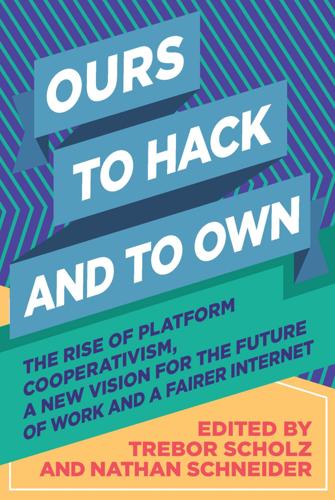
Ours to Hack and to Own: The Rise of Platform Cooperativism, a New Vision for the Future of Work and a Fairer Internet
by
Trebor Scholz
and
Nathan Schneider
Published 14 Aug 2017
ECONOMIC BARRIERS AND ENABLERS OF DISTRIBUTED OWNERSHIP ARUN SUNDARARAJAN In May 2015, I chatted with OuiShare’s co-founders Antonin Léonard and Benjamin Tincq during their OuiShare Fest, the annual gathering of over a thousand sharing-economy enthusiasts in Paris. I sensed a tension at the Fest between the purpose-driven and profit-driven participants: those who saw the sharing economy as a path to a more equitable and environmentally sensible world, and those who were excited by the massive infusions of venture capital into hundreds of burgeoning sharing-economy platforms. Léonard spoke of the confusion and disappointment he detected from those who had hoped that the sharing economy would really change the world. “And because there was so much hope, the ones that were once so hopeful are now so disappointed, in a way,” he said.
…
This episode showed me how a culture of genuine sharing can also mean sharing technology, just like anything else. Over the past five years, the technological ingenuity of the “sharing economy” deeply resonated with the zeitgeist. Emphasizing community, underutilized resources, and open data, the genuine sharing economy was initially presented as a challenge to corporate power. Just like my Buddhist friends, the pioneers of this economy proposed to split the use of lawn mowers, drills, and cars. But soon, the non-commercial values behind many platforms were rewritten in the boardrooms of Silicon Valley, turning the “sharing economy” into a misnomer. Today, facing various prophecies about sharing and the future of work, we need to remind ourselves that there is no unstoppable evolution leading to the uberization of society; more positive alternatives are possible.
…
What if we had an Internet of ownership? REAL SHARING, REAL DEMOCRACY Another word that the Internet has gotten to is sharing. Sharing used to mean something we do with the people we know and trust. In the so-called sharing economy, it means more convenient transactions that take place on distant servers somewhere. Convenience is great, but all along there has been a real sharing economy at work, the cooperative economy. One can trace the modern cooperative movement to the Rochdale Principles of 1844, in England, though it had precursors among ancient tribes, monasteries, and guilds around the world.
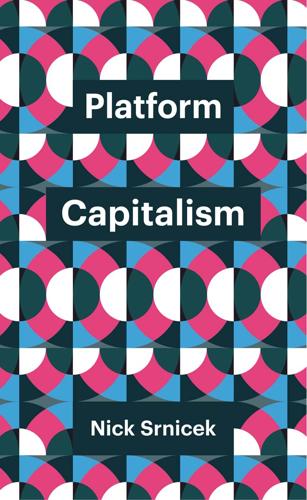
Platform Capitalism
by
Nick Srnicek
Published 22 Dec 2016
This category has registered an increase of 1.7 per cent (2.9 million) between 2005 and 2015,71 but most of these increases have been for offline work. Given that no direct measures of the sharing economy are currently available, surveys and other indirect measures have been used instead. Nearly all of the estimates suggest that around 1 per cent of the US labour force is involved in the online sharing economy formed by lean platforms.72 Even here, the results have to take into account that Uber drivers probably form the majority of these workers.73 The sharing economy outside of Uber is tiny. In the United Kingdom less evidence is presently available, but the most thorough survey done so far suggests that a slightly higher number of people routinely sell their labour through lean platforms.
…
Henwood, Doug. 2003. After the New Economy. New York: New Press. Henwood, Doug. 2015. ‘What the Sharing Economy Takes’. The Nation, 27 January. http://www.thenation.com/article/what-sharing-economy-takes (accessed 25 May 2016). Herrman, John. 2016. ‘Media Websites Battle Faltering Ad Revenue and Traffic’. The New York Times, 17 April. http://www.nytimes.com/2016/04/18/business/media-websites-battle-falteringad-revenue-and-traffic.html (accessed 30 June 2016). Hesse, Jason. 2015. ‘6 per cent of Brits Use Sharing Economy to Earn Extra Cash’. Real Business. 15 September. http://realbusiness.co.uk/article/31360-6-per-cent-of-brits-use-sharing-economyto-earn-extra-cash (accessed 25 May 2016).
…
In particular, there has been a renewed focus on the rise of technology: automation, the sharing economy, endless stories about the ‘Uber for X’, and, since around 2010, proclamations about the internet of things. These changes have received labels such as ‘paradigm shift’ from McKinsey1 and ‘fourth industrial revolution’ from the executive chairman of the World Economic Forum and, in more ridiculous formulations, have been compared in importance to the Renaissance and the Enlightenment.2 We have witnessed a massive proliferation of new terms: the gig economy, the sharing economy, the on-demand economy, the next industrial revolution, the surveillance economy, the app economy, the attention economy, and so on.
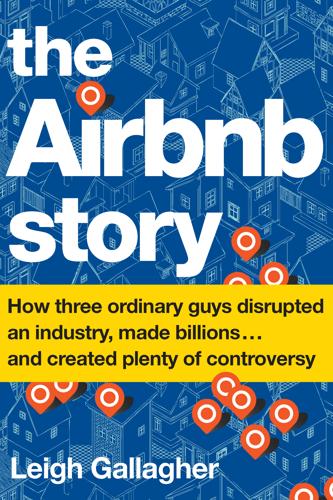
The Airbnb Story: How Three Ordinary Guys Disrupted an Industry, Made Billions...and Created Plenty of Controversy
by
Leigh Gallagher
Published 14 Feb 2017
Weaver and Kayla Deru, “Carbon Monoxide Poisoning at Motels, Hotels, and Resorts,” American Journal of Preventative Medicine, July 2007. 98 According to the National Fire Protection Association: Richard Campbell, “Structure Fires in Hotels and Motels,” National Fire Protection Association, September 2015. 100 relative to nonblack hosts: Benjamin Edelman and Michael Luca, “Digital Discrimination: The Case of Airbnb.com,” Harvard Business School Working Paper, no. 14-054, January 2014. 100 compared with white guests: Benjamin Edelman, Michael Luca, and Dan Svirsky, “Racial Discrimination in the Sharing Economy: Evidence from a Field Experiment,” American Economic Journal: Applied Economics, September 16, 2016, https://ssrn.com/abstract=2701902. 101 rejections stopped: Shankar Vedantam, Maggie Penman, and Max Nesterak, “#AirbnbWhileBlack: How Hidden Bias Shapes the Sharing Economy,” Hidden Brain, NPR, podcast audio, April 26, 2016, http://www.npr.org/2016/04/26/475623339/-airbnbwhileblack-how-hidden-bias-shapes-the-sharing-economy. 101 “your XXX head”: Elizabeth Weise, “Airbnb Bans N. Carolina Host as Accounts of Racism Rise,” USA Today, June 2, 2016, http://www.usatoday.com/story/tech/2016/06/01/airbnb-bans-north-carolina-host-racism/85252190/. 102 the experts’ recommendations: Laura W.
…
, Commercial Observer, October 12, 2015, https://commercialobserver.com/2015/10/airbnb-is-a-growing-force-in-new-york-but-just-how-many-laws-are-being-broken/. 143 industry-demand growth: Lodging and Cruise—US: Lowering Our Outlook to Stable on Lower Growth Prospects in 2017, Moody’s Investors Service, September 26, 2016, https://www.moodys.com/. 143 The Sharing Economy Checks In: Jamie Lane, The Sharing Economy Checks In: An Analysis of Airbnb in the United States, CBRE, January 2016, https://cbrepkfcprod.blob.core.windows.net/downloads/store/12Samples/An_Analysis_of_Airbnb_in_the_United_States.pdf. 143 the most vulnerable hotels: Georgios Zervas, “The Rise of the Sharing Economy: Estimating the Impact of Airbnb on the Hotel Industry,” Boston University School of Management Research Paper Series, May 7, 2015, https://pdfs.semanticscholar.org/2bb7/f0eb69a4b026bccb687b546405247a132b77.pdf. 144 “pace of growth continue”: Kevin May, “Airbnb Tipped to Double in Size and Begin Gradual Impact on Hotels,” Tnooz, January 20, 2015, https://www.tnooz.com/article/airbnb-double-size-impact-hotels/. 146 deals were announced: Alison Griswold, “It’s Time for Hotels to Really, Truly Worry about Airbnb,” Quartz, July 12, 2016, http://qz.com/729878/its-time-for-hotels-to-really-truly-worry-about-airbnb/. 146 the meetings industry: Greg Oates, “Airbnb Explains Its Strategic Move into the Meetings and Events Industry,” Skift, June 29, 2016, https://skift.com/2016/06/29/airbnb-explains-its-peripheral-move-into-the-meetings-and-events-industry/. 146 from early 2015 to early 2016: “Airbnb and Peer-to-Peer Lodging: GS Survey Takeaways,” Goldman Sachs Global Investment Research, February 15, 2016. 148 “to come to it”: Susan Stellin, “Boutique Bandwagon,” New York Times, June 3, 2008, http://www.nytimes.com/2008/06/03/business/03boutique.html. 149 to list it: “VRBO/HomeAway Announcement,” Timeshare Users Group, June 6, 2005, http://www.tugbbs.com/forums/showthread.php?
…
And then of course, there is the more modern era of short-term vacation rentals, which has been with us for decades, whether through big players like HomeAway or VRBO or niche sites like BedandBreakfast.com, or, before that, advertisements on Craigslist or classified ads. “One of the signature elements of the sharing economy is that the ideas themselves are not new,” says Arun Sundararajan, professor at New York University and author of the book The Sharing Economy: The End of Employment and the Rise of Crowd-Based Capitalism. What is new, though, and what Airbnb specifically has done, is to toss aside the barriers and build an easy, friendly, accessible platform inviting anyone to do it.
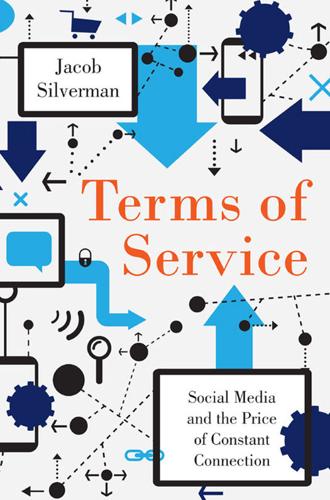
Terms of Service: Social Media and the Price of Constant Connection
by
Jacob Silverman
Published 17 Mar 2015
San Francisco Bay Guardian. Aug. 6, 2013. sfbg.com/2013/08/06/thin-air. 238 “grassroots organization”: “About Peers.” Peers. peers.org/about. 238 “sharing economy startups”: Andrew Leonard. “Who Owns the Sharing Economy?” Salon. Aug. 2, 2013. salon.com/2013/08/02/who_owns_the_sharing_economy. 239 “It’s like the United Nations”: Jones and Yesko. “Into Thin Air.” 239 “a shared identity”: Tom Slee. “Why the Sharing Economy Isn’t.” Whimsley. Aug. 30, 2013. tomslee.net/2013/08/why-the-sharing-economy-isnt.html. 239 “unreasonable obstacles”: ibid. 239 Atkin’s connection to Peers: Nitasha Tiku. “Airbnb’s Industry Mouthpiece Astroturfs for Donations.”
…
And their plan involves no less than doubling down on social ideology and online labor, turning everything, and everyone, into something to be bought or sold. Welcome to the sharing economy. BAIT AND SWITCH The sharing economy combines all the elements of online labor, reputation, and social media’s marketing-of-the-self to help make one’s entire life purely transactional. Playing off the notion that a gig-based economy, filled with mobile freelancers, is inherently liberating, partisans of the sharing economy preach flexibility and personal empowerment. The sharing economy offers services that let you turn the core elements of your life—housing, transportation, physical labor, expensively earned skills—into rentable commodities.
…
In the summer of 2013, evictions in San Francisco were at their highest in eleven years, due in part to the latitude the city gives landlords in evicting residents of rent-controlled apartments and the tempting payday of short-term, under-the-table rentals. Among the most pernicious aspects of the sharing economy is the way it presents itself as a populist operation, a loose community coming together to engage in mutually beneficial, informal economic exchanges. In reality, it is anything but these things. What is shared most among participants in the sharing economy is risk—risk that the platform owners displace onto workers and customers. But the industry’s self-mythologizing masks this reality. Peers, an industry lobbying group that calls itself a “grassroots organization to support the sharing economy movement,” acknowledged after its launch that its “mission-aligned independent donors” included “investors and executives of sharing economy start-ups.”
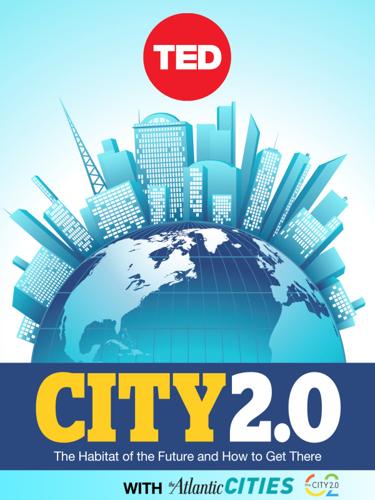
City 2.0: The Habitat of the Future and How to Get There
by
Ted Books
Published 20 Feb 2013
Airbnb will help provide housing flexibility in cities that now have a severe mismatch in supply (of outdated, oversized housing) and demand. The sharing economy, Orsi believes, could even address urban crime, through the stability of social networks that it will spawn and the greater number of people it will be able to provide for. Orsi says, “It’s going to just completely change how cities visualize their space and visualize their problems and how to solve them.” Trouble is, the existing American city wasn’t built for the sharing economy. Our cities have been designed to separate out the functions of our lives, with residential and commercial zones, consumers and producers clearly demarcated. The sharing economy upends all of that.
…
Image: Daniel Harris “The reality is that if D.C. swells from a place where there are 500,000 people in 2010 to a place where there are 850,000 in 2020, well, what are we doing with those 350,000 extra people?” Singer asks. “A lot of the sharing economy just has to do with the number of people living per square foot of land. It’s all about physical space.” The rise of the so-called sharing economy has been chalked up to many things: Millennials rejecting car ownership, the environmentally conscious glomming onto the latest eco-trend, even broke urbanites who will want all their own stuff again as soon as the economy recovers.
…
But she predicts that services meeting the needs of both sides of a market — the givers and receivers in sharing — will succeed. Airbnb, for instance, helps homeowners and also increasingly serves a freelance work force as prone to temporarily changing cities as jobs. Some physical goods — maybe not dogs or toilets — are exchanging hands in the shared economy, too. There actually is someone in Manhattan on SnapGoods offering whoopee-pie makers (includes a recipe book!). But the shared economy of stuff works best with assets that are expensive to own and infrequently used, like camera and music accessories, or high-end home tools. SnapGoods sells itself with the slogan “Own less, do more,” a nod to the idea that our culture increasingly values the accumulation of experiences over assets (if you don’t own a high-end camera with multiple lenses and tripods, maybe you can afford to take a trip to Yosemite as an amateur photographer with borrowed gear).
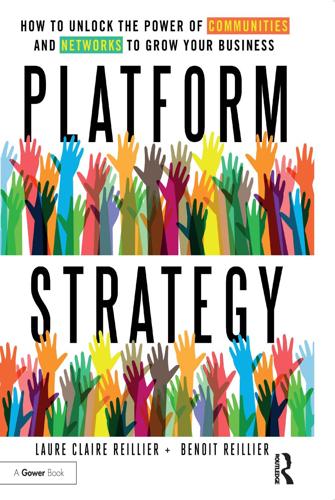
Open for Business Harnessing the Power of Platform Ecosystems
by
Lauren Turner Claire
,
Laure Claire Reillier
and
Benoit Reillier
Published 14 Oct 2017
Snapchat is a well-known and fast-growing communications platform that famously turned down a multibillion-dollar offer from Facebook in 2014. Stripe is a fastgrowing payment platform for e-commerce merchants. Platforms power the sharing economy movement Lastly, platforms are at the heart of the emerging ‘sharing economy’ since many enable the redistribution, sharing and/or reuse of excess capacity in goods and services. The term ‘sharing economy’, which was first introduced in 2010, describes a ‘social revolution’ based on the ‘sharing of resources across multiple platforms’ in a way that creates values for all participants.16 eBay was an early precursor of this trend by allowing people to resell their little-used assets directly and easily, but many other companies have followed suit.
…
In the meantime, and irrespective of market volatility, it is interesting to see overall patterns of value creation around platform businesses. The meteoric rise of platform businesses 19 16 See early definitions of the sharing economy in R. Botsman and R. Rogers, What’s Mine Is Yours: The Rise of Collaborative Consumption, New York: Harper Business, 2010. More recently, A. Stephany, The Business of Sharing, London: Palgrave Macmillan, 2015. 17 www.justpark.com/creative/sharing-economy-index/, February 2016. Chapter 3 What is a platform business? Narrowing the search: platform definitions The very definition of what is a platform business is fraught with difficulty.
…
Lastly, we see significant transferable skills from one platform to another, even across industries, and we are starting to see talents able to build on their experiences with ‘platform careers’ spanning multiple firms. Our own corporate and consulting experience at Launchworks strongly points to the importance of having senior individuals able to build and deploy cross-industry platform knowledge. The platform-powered ‘sharing economy’ Platforms powering sharing economy activities will undoubtedly continue their expansion. Today, they can be classified into five broad categories: • The sharing of goods, from recirculation of second-hand goods (eBay or Craiglist) to shared usage (Drivy and Turo for peer-to-peer car rentals, The future of platforms • • • • 209 BlaBlaCar for car-sharing trips, Airbnb for home rentals, Love Home Swap for home exchanges).
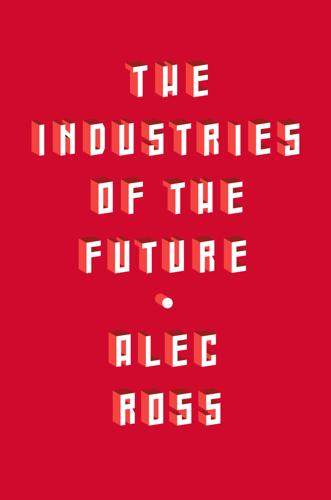
The Industries of the Future
by
Alec Ross
Published 2 Feb 2016
She has done business with people all over America, none of whom she has met but all of whom she trusts because of algorithm-generated trust. The next leap forward in the code-ification of trust and markets is in the so-called sharing economy. I think of the sharing economy as a way of making a market out of anything and a microentrepreneur out of anybody. The sharing economy uses a combination of technology platforms packaged as apps on mobile phones, behavioral science, and mobile phone location data to create peer-to-peer marketplaces. These marketplaces take underused assets (e.g., an empty apartment, empty seats in a car, or skill as a math tutor) and connect them with people looking for a specific service.
…
While the idea that Airbnb is bringing people from around the world together is cute, it masks the economic reality. Airbnb has succeeded in bringing eBay’s trust-through-algorithms-and-ratings model to lodging and built a business around it. Nobody is really sharing anything in the sharing economy. You can call it the sharing economy, but don’t forget your credit card. At last measure, the estimated size of the global sharing economy was $26 billion, and it’s growing fast, with some estimates projecting it will be more than 20 times larger in size by 2025. Part of why Chesky’s story is cloying is that Airbnb is now a destination for castles in addition to couches.
…
In some cases, the sharing economy has turned what might have once been a casual favor into a financial transaction. That is hardly the stuff of “sharing.” In most cases, sharing-economy businesses are just businesses. Brian and Joe didn’t share their spare air mattresses; they rented them out. To the extent that there is an underlying ideology, it is not about sharing or creating community around the breakfast table; it is the economic theory of neoliberalism, encouraging the free flow of goods and services in a market without government regulation. One company that seems to recognize the sharing economy has nothing to do with sharing is Uber.
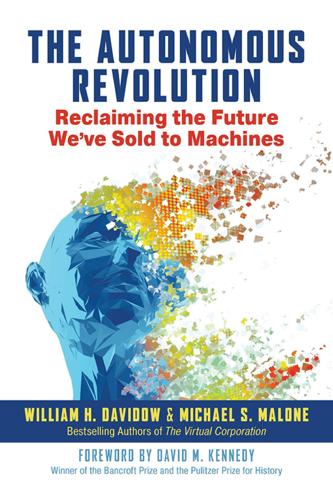
The Autonomous Revolution: Reclaiming the Future We’ve Sold to Machines
by
William Davidow
and
Michael Malone
Published 18 Feb 2020
A SHARED FUTURE Many of the most disruptive new business models will emerge in what has been called the sharing economy. Information equivalence is the primary driving force behind the sharing economy, which is also known as the shareconomy, collaborative consumption, collaborative economy, or peer economy. All of these terms are used to describe a broad range of economic activities.40 Arun Sundararajan does an excellent job of characterizing this phenomenon in his book, The Sharing Economy.41 The sharing economy, he writes, is market based and facilitates the efficient exchange and sharing of goods, services, and human skills.
…
Jon Henley, “Sweden Leads the Race to Become Cashless Society,” The Guardian,, June 4, 2016, https://www.theguardian.com/business/2016/jun/04/sweden-cashless-society-cards-phone-apps-leading-europe (accessed June 27, 2019). 40. “Sharing Economy,” Wikipedia, https://en.wikipedia.org/wiki/Sharing_economy (accessed June 27, 2019). 41. Arun Sundararajan, The Sharing Economy (Cambridge, Mass.: The MIT Press, 2016), 27. 42. Paul Barter, “‘Cars Are Parked 95% of the Time.’ Let’s Check!,” Reinventing Parking, February 22, 2013, http://www.reinventingparking.org/2013/02/cars-are-parked-95-of-time-lets-check.html (accessed June 27, 2019). 43.
…
A MATTER OF RATIOS Office space, temporary accommodations, and vacation rentals are another area where capital assets are underutilized, and the sharing economy is ready to help. If you are looking for vacation rentals, Airbnb is just one of many services that you can use. Tripping.com has more than 8 million vacation properties listed. Tripping.com competes with Flip-Key, Roomorama, VacayHero, and Wimdu.52 ShareDesk lets you find on-demand workspace in more than four hundred cities.53 A sharing economy service or equivalent exists for just about anything you can think of. That includes sharing people as well. If you want to hire freelance labor for everyday work, TaskRabbit is operating in approximately thirty cities.
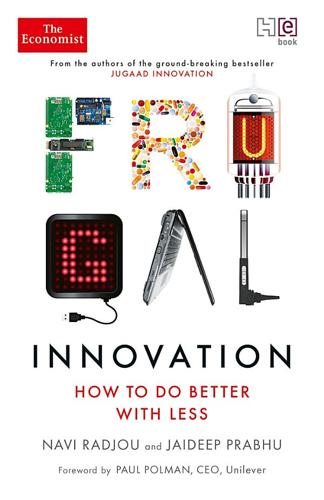
Frugal Innovation: How to Do Better With Less
by
Jaideep Prabhu Navi Radjou
Published 15 Feb 2015
As we saw in Chapter 1, these services typically take advantage of the web and social media to enable ordinary people to monetise their time, space, knowledge or skills. The sharing economy contributes to environmental sustainability because it reduces individual consumption by allowing, for instance, four people to share the same car rather than having to buy four different cars. The sharing economy also reduces waste by making excess capacity and unused resources available to those who need them most. By enabling products and assets to be fully utilised, the sharing economy increases their value. Although sharing in the UK accounts for only 1.3% of GDP, and an even smaller proportion of the US economy, it is expected to grow exponentially in coming years, especially given the preference of young consumers to share everything from flats to cars to books.
…
Similarly, Uber, a taxi service that connects users with drivers at the tap of a smartphone, has recently launched an extension called uberPOP in several European capitals. uberPOP is a peer-to-peer service that enables non-professional drivers to register their cars to transport individuals, thus earning extra income in their free time. The initial value of the sharing economy – powered by providers like Airbnb and Uber – was in saving customers money; now it is being used to earn money by turning customers into prosumers. In 2013, the sharing economy generated revenues of around $3.5 billion, that went straight into prosumers’ wallets. This is just the start. Growing at an annual rate of 25%, the sharing economy is expected to become a $110 billion market within a decade, without requiring any major investments. The European Commission predicts:8 At this rate, peer-to-peer sharing is transforming from an income boost through a stagnant wage market, into a disruptive economic force.
…
By reusing materials again and again, through multiple production cycles, and by adopting the resource-efficient design principles of biomimicry, companies are able to significantly reduce their supply chain costs and pass these savings on to customers. Widening the sharing economy In a circular economy, a product undergoes multiple incarnations – with its materials being recycled and reused again and again – thus sustaining its value over multiple lifetimes. During any particular lifetime, however, the product is most likely to be owned and used by just one customer. But what if, during even a single lifetime or incarnation, the same product could be consumed by many users? Then the same inputs could be made to create greater value for more and more users. That is the underlying premise of the sharing economy – also known as collaborative consumption – in which participants aspire to share access to goods and services rather than to have individual ownership.
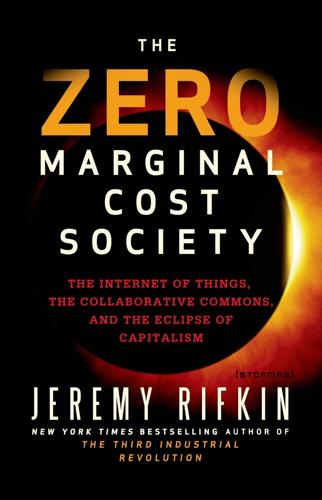
The Zero Marginal Cost Society: The Internet of Things, the Collaborative Commons, and the Eclipse of Capitalism
by
Jeremy Rifkin
Published 31 Mar 2014
Claire Cain Miller, “Google Grapples with Mobile,” International New York Times, October 19–20, 2013, 14. 93. Ibid. 94. “National Study Quantifies the ‘Sharing Economy’ Movement,” PRNewswire, February 8, 2012, http://www.prnewswire.com/news-releases/national-study-quantifies-the-sharing-econo my-movement-138949069.html (accessed March 19, 2013). 95. Neal Gorenflo, “The New Sharing Economy,” Shareable, December 24, 2010, http://www.share able.net/blog/the-new-sharing-economy (accessed March 19, 2013). 96. Bryan Walsh, “10 Ideas that Will Change the World: Today’s Smart Choice: Don’t Own. Share,” Time, March 17, 2011, http://www.time.com/time/specials/packages/article/0,28804,20 59521_2059717,00.html (accessed March 19, 2013). 97.
…
The distributed, collaborative nature of the Internet allowed millions of people to find the right match-ups to share whatever they could spare with what others could use. The sharing economy was born. This is a different kind of economy—one far more dependent on social capital than market capital. And it’s an economy that lives more on social trust rather than on anonymous market forces. Rachel Botsman, an Oxford- and Harvard-educated former consultant to GE and IBM who abandoned her career to join the new sharing economy, describes the path that led up to collaborative consumption. She notes that the social Web has passed through three phases—the first enabled programmers to freely share code; Facebook and Twitter allowed people to share their lives; and YouTube and Flickr allowed people to share their creative content.
…
While empathy for others had been decreasing and materialism was becoming more rampant with each passing year, the trend suddenly turned around after 2008 among young millennials, who reported “more concern for others and less interest in material goods.”26 The new studies find that millennials are less interested in keeping up with materialistic trends and less invested in obsessive consumerism as a way of life. These findings dovetail with the sharp rise of collaborative consumption and the sharing economy. All over the world, a younger generation is sharing bikes, automobiles, homes, clothes, and countless other items and opting for access over ownership. A growing number of millennials are eschewing designer brands in favor of generics and cause-oriented brands and are far more interested in the use value of material things than their exchange value or status. A sharing economy of collaborative prosumers is, by its very nature, a more empathic and less materialistic one. The waning of the materialistic ethos is also reflected in the increasing commitment to sustainability and environmental stewardship.
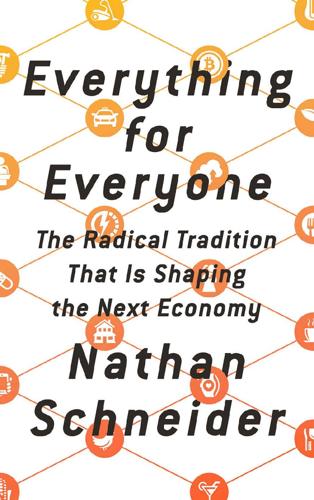
Everything for Everyone: The Radical Tradition That Is Shaping the Next Economy
by
Nathan Schneider
Published 10 Sep 2018
v=xpg4PjGtbu0; her call was echoed in Brian Van Slyke and David Morgan, “The ‘Sharing Economy’ Is the Problem,” Grassroots Economic Organizing (July 3, 2015); see a directory of North American tech worker co-ops at techworker.coop and coops.tech for the UK; for accounts of the rationale for tech co-ops, see Brian Van Slyke, “The Argument for Worker-Owned Tech Collectives,” Fast Company (November 20, 2013), and Gabrielle Anctil, “Can Coops Revolutionize the Tech Industry?” Model View Culture 34 (March 16, 2016). 16. Nathan Schneider, “Owning Is the New Sharing,” Shareable (December 21, 2014); Trebor Scholz, “Platform Cooperativism vs. the Sharing Economy” (December 5, 2014), medium.com/@trebors/platform-cooperativism-vs-the-sharing-economy-2ea737f1b5ad. See also Scholz’s subsequent, fuller account of the concept in his pamphlet Platform Cooperativism: Challenging the Corporate Sharing Economy (Rosa Luxemburg Stiftung, 2016), as well as the collective manifesto he and I coedited, Ours to Hack and to Own: The Rise of Platform Cooperativism, a New Vision for the Future of Work and a Fairer Internet (OR Books, 2016).
…
The best-selling futurist handbook of the same period, John Naisbitt’s Megatrends, likewise promised that “the computer will smash the pyramid,” and with its networks “we can restructure our institutions horizontally.”16 What we’ve gotten instead are apps from online monopolies accountable to their almighty stock tickers. The companies we allow to manage our relationships expect that we pay with our personal data. The internet’s so-called sharing economy requires its permanently part-time delivery drivers and content moderators to relinquish rights that used to be part of the social contracts workers could expect. Yet a real sharing economy has been at work all along. During the 2016 International Summit of Cooperatives in Quebec, I attended a dinner at the Château Frontenac, a palatial hotel that casts its glow across the old city.
…
By October 2014, Janelle Orsi of the Sustainable Economies Law Center, in Oakland, promulgated a cartoon video online that called for “the next sharing economy”—a sharing of cooperative ownership. Orsi was also helping to design the bylaws for Loconomics Cooperative, a gig platform owned by gig workers. Small web-development shops were finding worker-ownership a congenial means of attracting talent and distinguishing themselves in a crowded industry.15 Three people I met in Paris at OuiShareFest that summer were gesturing in the same directions during the months afterward. Venture capitalist Lisa Gansky had been nudging sharing-economy startups to understand and imitate cooperative tradition.
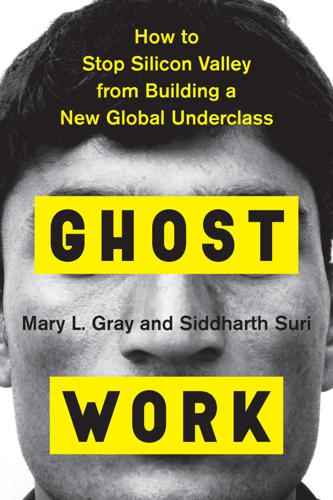
Ghost Work: How to Stop Silicon Valley From Building a New Global Underclass
by
Mary L. Gray
and
Siddharth Suri
Published 6 May 2019
[back] 13. Arun Sundararajan, The Sharing Economy: The End of Employment and the Rise of Crowd-Based Capitalism (Cambridge, MA: MIT Press, 2016); Airi Lampinen et al., “Studying the ‘Sharing Economy’: Perspectives to Peer-to-Peer Exchange,” in Proceedings of the 18th ACM Conference Companion on Computer Supported Cooperative Work & Social Computing (New York: ACM, 2015), 117–21, https://doi.org/10.1145/2685553.2699339; Juliet Schor, “Debating the Sharing Economy,” Great Transition Initiative, October 2014, http://www.greattransition.org/publication/debating-the-sharing-economy; Schor et al., “Paradoxes of Openness and Distinction in the Sharing Economy,” Poetics 54 (2016): 66–81.
…
Scholz, Trebor. Uberworked and Underpaid: How Workers Are Disrupting the Digital Economy. Cambridge, England: Polity, 2016. Schor, Juliet B. “Debating the Sharing Economy.” Great Transition Initiative, October 2014. http://www.greattransition.org/publication/debating-the-sharing-economy. Schor, Juliet B., Connor Fitzmaurice, Lindsey B. Carfagna, Will Attwood-Charles, and Emilie Dubois Poteat. “Paradoxes of Openness and Distinction in the Sharing Economy.” Poetics 54 (2016): 66–81. Schor, Juliet B., and Craig J. Thompson. Sustainable Lifestyles and the Quest for Plenitude: Case Studies of the New Economy.
…
Arun Sundararajan, The Sharing Economy: The End of Employment and the Rise of Crowd-Based Capitalism (Cambridge, MA: MIT Press, 2016); Airi Lampinen et al., “Studying the ‘Sharing Economy’: Perspectives to Peer-to-Peer Exchange,” in Proceedings of the 18th ACM Conference Companion on Computer Supported Cooperative Work & Social Computing (New York: ACM, 2015), 117–21, https://doi.org/10.1145/2685553.2699339; Juliet Schor, “Debating the Sharing Economy,” Great Transition Initiative, October 2014, http://www.greattransition.org/publication/debating-the-sharing-economy; Schor et al., “Paradoxes of Openness and Distinction in the Sharing Economy,” Poetics 54 (2016): 66–81. [back] 14. Kristofer Erickson and Inge Sørensen, “Regulating the Sharing Economy,” Internet Policy Review 5, no. 3 (June 30, 2016), https://doi.org/10.14763/2016.2.414; Juho Hamari, Mimmi Sjöklint, and Antti Ukkonen, “The Sharing Economy: Why People Participate in Collaborative Consumption,” Journal of the Association for Information Science and Technology, 2015; Aaron Smith, Shared, Collaborative, and On Demand. [back] 15. “We believe the new economy is creating opportunities to reinvent work, but we need to ensure the end goal is work that is good for workers.”
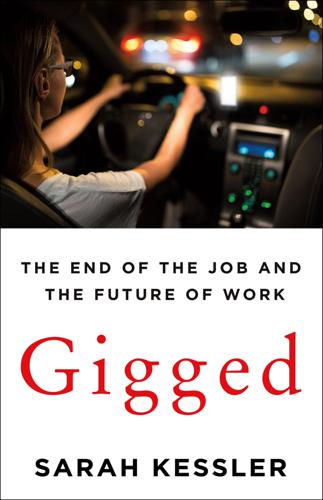
Gigged: The End of the Job and the Future of Work
by
Sarah Kessler
Published 11 Jun 2018
December 21, 2013. http://www.nytimes.com/2013/12/22/opinion/sunday/friedman-how-to-monetize-your-closet.html; Geron, Tomio. Airbnb and the Unstoppable Rise of the Share Economy. Forbes. February 11, 2013. http://www.forbes.com/sites/tomiogeron/2013/01/23/airbnb-and-the-unstoppable-rise-of-the-share-economy/#463a65b6790b. 14 Johnson, Justin Elof. Will You Leave Your Job to Join the Sharing Economy? VentureBeat. January 21, 2013. http://venturebeat.com/2013/01/21/will-you-leave-your-job-to-join-the-sharing-economy/. 15 Manjoo, Farhad. Uber’s Business Model Could Change Your Work. New York Times. January 28, 2015. https://www.nytimes.com/2015/01/29/technology/personaltech/uber-a-rising-business-model.html. 16 Retelny, Daniela, Sébastien Robaszkiewicz, Alexandra To, Walter S.
…
New York Times columnist Thomas Friedman, among the latter camp, held that “these entrepreneurs are not the only answer for our economic woes … but they are surely part of the answer.” A Forbes cover story in 2013 explained that the sharing economy and gig economy had created “an economic revolution that is quietly turning millions of people into part-time entrepreneurs.”13 Tech journalists and bloggers, perhaps having spent too much time immersed in the optimism of entrepreneurs, typically went for full-out hype. “Will You Leave Your Job to Join the Sharing Economy?” prompted the tech blog VentureBeat in a 2013 headline.14 The article’s author had met a Lyft driver who also worked for TaskRabbit, a website on which neighbors could hire each other to complete odd jobs.
…
New York Times. July 20, 2016. https://www.nytimes.com/2016/07/21/business/smallbusiness/a-new-wrinkle-in-the-gig-economy-workers-get-most-of-the-money.html?_r=0. 6 Scholz, Trebor, and Nathan Schneider. The People’s Uber: Why the Sharing Economy Must Share Ownership. Fast Company. October 7, 2015. https://www.fastcompany.com/3051845/the-peoples-uber-why-the-sharing-economy-must-share-ownership. 7 Feeding America. Food Insecurity in the United States. http://map.feedingamerica.org/county/2015/overall/arkansas/county/desha. 8 Blanchflower, David G., and Andrew J. Oswald. What Makes an Entrepreneur?
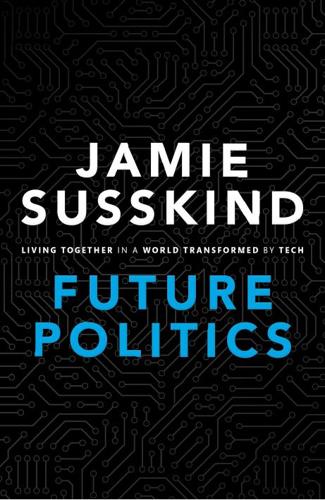
Future Politics: Living Together in a World Transformed by Tech
by
Jamie Susskind
Published 3 Sep 2018
They’d be constantly ‘asset stripping’ their own homes in order to find things to rent out.73 This would be a particular problem in the digital lifeworld, where we already expect an imbalance between asset-haves and asset-have-nots. Moreover, it increasingly looks like the people who benefit most from the sharing economy are not the participants but the platformowners themselves: Uber, Airbnb, and the like. As Jonathan Allen explains, the early wealth effects of the sharing economy are hard to calculate but any wealth created ‘will be highly concentrated in the hands of technology founders and early investors’.74 At its heart, the sharing economy doesn’t really disrupt the Private Property Paradigm.The critical issue in the long-run, I suggest, will be what is shared. Sharing items of comfort, convenience, and amusement may help the asset-poor to make the most of what little they have, but it won’t make them any wealthier over time.
…
OUP CORRECTED PROOF – FINAL, 26/05/18, SPi РЕЛИЗ ПОДГОТОВИЛА ГРУППА "What's News" VK.COM/WSNWS The Wealth Cyclone 335 Sharing The ‘sharing economy’ offers another possible model of ownership for the digital lifeworld. These days, the term is used loosely to describe most forms of ‘peer-to-peer’ online transactions conducted online. The best example is Airbnb, which allows people to rent out their vacant residential properties to strangers. Sharing, with or without strings attached, is nothing new. What’s new is the scale and extent enabled by digital technology.71 At a glance, the ethos of the sharing economy resembles that of the commons. But there are a couple of key differences.
…
But there are a couple of key differences. First, in a commons no one strictly owns any of the stuff held in common, while in a sharing economy individuals retain the title of their property while letting others use it. Second, in the sharing economy, people tend to pay owners for their goods and services, while this would be antithetical to the ethos of the commons. The sharing model is interesting because it encourages sellers to monetize assets that would otherwise be economically useless. And it offers purchasers the benefits of possession without the associated burdens of ownership. Thinking about the digital lifeworld, one might imagine a system that enabled people to share day-to-day items using a fleet of airborne drones that shuttle goods from one place to another:72 [Let’s say] you could just snap your fingers and have something magically appear in your hand whenever you wanted it [at] no cost, and it was instantaneous.
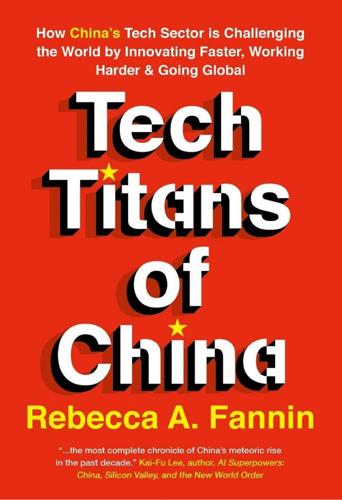
Tech Titans of China: How China's Tech Sector Is Challenging the World by Innovating Faster, Working Harder, and Going Global
by
Rebecca Fannin
Published 2 Sep 2019
Chapter 6 Face-off in AI China and the United States are racing to dominate the high-stakes AI market. China could bypass the United States with its wealth of data and quicker rollout of self-driving vehicles, facial recognition for public security, and AI technologies for fintech, edtech, and health-care startups. Chapter 7 A Shared Economy The fad in China’s booming sharing economy for hitching a ride has been very bumpy for bike-sharing startup Ofo, but ride-hailing leader Didi has had a good run in beating Uber. Now shared umbrellas, mobile chargers, and even takeout kitchens are here. Chapter 8 E-Commerce Gets Social Just when you think there’s nothing else new in e-commerce, along comes social commerce app Pinduoduo, which combines bargain shopping, games, and social sharing—and it’s very popular in China’s rural areas.
…
The growth was made possible by the integration of AI and big data technology into biomedicine to develop oncology media records covering all types of cancers. “This would not have been possible before” in the health-care field, said Xiadong Jiang, managing partner at Long Hill Capital. “I would never have foreseen this.” CHAPTER 7 ________________ A SHARED ECONOMY The fad in China’s booming sharing economy for hitching a ride has been very bumpy for bike-sharing startup Ofo, but ride-hailing leader Didi has had a good run in beating Uber. Now shared umbrellas, mobile chargers, and even takeout kitchens are here. An hour’s ride from Beijing’s Forbidden City to the high-tech zone Zhongguancun in the northwest of this sprawling megalopolis is the modern headquarters of Didi Chuxing, China’s ride-hailing service, which ranks among the most valuable venture-backed startups worldwide.
…
•Fintech: Alibaba affiliate Ant Financial is a one-stop financial services giant that uses big data and machine learning to dominate in money market funds, lending, insurance, mobile payments, wealth management, and blockchain services. •Social credit: China’s new, controversial social credit system judges a citizen’s trustworthiness through technological surveillance and encourages compliance by giving ratings that can determine access to loans, jobs, schools, and travel. •Sharing economy: China-invented business models for shared bikes, battery chargers, umbrellas, basketballs, and takeout kitchens have been popularized by dozens of startups. •Livestreaming: Video streaming sites from Baidu’s Netflix-like iQiyi and digital entertainment innovator YY are booming and creating online celebrities paid in virtual gifts by addicted viewers.
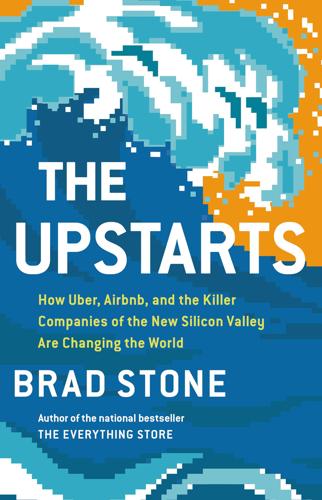
The Upstarts: How Uber, Airbnb, and the Killer Companies of the New Silicon Valley Are Changing the World
by
Brad Stone
Published 30 Jan 2017
Both startups offered age-old ideas (share a vehicle, rent your home) with new twists and ended up fostering a remarkable degree of openness among people who had never previously met. In a previous decade, most of us would have stayed far away from someone’s private car or unlit home, scared by headlines about crime and by our mothers’ earnest warnings to avoid strangers. Airbnb and Uber didn’t spawn “the sharing economy,” “the on-demand economy,” or “the one-tap economy” (those labels never quite seemed to fit) so much as usher in a new trust economy, helping regular folks to negotiate transportation and accommodations in the age of ubiquitous internet access. The nearly simultaneous emergence of both companies has been striking.
…
It was spacious, with three bedrooms, two bathrooms, a comfortable living room, and, up the main flight of stairs, a roof terrace overlooking the golden city, which was undergoing its own momentous reinvention. At the time, the two men had no way of knowing that over the next few years, this apartment would be ground zero for a worldwide social movement and global business phenomenon called the sharing economy. Surve, a native of Mumbai, India, had used the internet to rent an airbed for eighty dollars a night during the World Design Congress, a biennial conference held by the International Council of Societies of Industrial Design, or ICSID. All the hotels in the city that week were either booked or too expensive for Surve, so he hadn’t expected much.
…
With cities waking up to the problems posed by people turning their homes into ad hoc hotels, Chesky’s mettle would soon be tested further. He would have to prove to suspicious lawmakers and regulators that Airbnb’s intentions were pure and that its impact on cities was constructive. It would be his most serious challenge yet and one that Travis Kalanick, Chesky’s new friend and a peer in the proliferating movement called the sharing economy, was about to face in an even more potent form. CHAPTER 7 THE PLAYBOOK Uber’s Expansion Begins I’ve never seen an entrepreneur work as hard. He lives, eats and breathes Uber. —Shervin Pishevar, e-mail to his partners at Menlo Ventures To Travis Kalanick, Uber wasn’t merely a fecund investment opportunity or a promising startup with an auspicious set of early results.

The Age of Stagnation: Why Perpetual Growth Is Unattainable and the Global Economy Is in Peril
by
Satyajit Das
Published 9 Feb 2016
Such a depressed labor market is essential to the sharing economy. Now paid less, forced to work part-time or be unemployed, individuals participate in the sharing economy to cover income shortfalls. Individuals renting out their houses, cars, or labor make a fraction of what they would receive in traditional full-time jobs, without any employment benefits. In the sharing economy it is “possible for a cash-flush tech start-up to have homeless workers.”10 Having ridden the globalization wave with The World Is Flat, New York Times columnist Thomas Friedman now endorses the sharing economy, celebrating new micro-entrepreneurs.
…
9 Peer-to-peer brokers reduce costs, decreasing the income of service providers. The sharing economy requires abundant cheap contract laborers to be available at the touch of a smartphone screen. Full-time employees with normal benefits would make the model unworkable. Comparisons to Wikipedia and open-source software are misleading. In those cases, the individuals are employed elsewhere. They contribute their services free for the joy of participation and contribution, as well as recognition as a member of a community. The sharing economy exploits low-wage workers in a weak economic environment. Despite improving economic statistics, the deterioration in real living conditions is evident.
…
When they locked up the social democrats, I remained silent; I was not a social democrat. When they came for the trade unionists, I did not speak out; I was not a trade unionist. When they came for the Jews, I remained silent; I wasn't a Jew. When they came for me, there was no one left to speak out.” 7 Technology and innovation are touted as sources of future employment. The sharing economy (also known as the peer economy, collaborative economy, and gig economy) is based on the ubiquitous Internet, improved broadband connectivity, smartphones, and apps. Individuals with spare time, houses, rooms, cars, and the like can use them as sources of work and income. The economy that benefits everyone focuses on transport (Uber, Lyft, Sidecar, GetTaxi, Hailo), short-term accommodation (Airbnb, HomeAway), small tasks (TaskRabbit, Fiverr), grocery-shopping services (Instacart), home-cooked meals (Feastly), on-demand delivery services (Postmates, Favor), pet transport (DogVacay, Rover), car rental (RelayRides, Getaround), boat rental (Boatbound), and tool rental (Zilok).
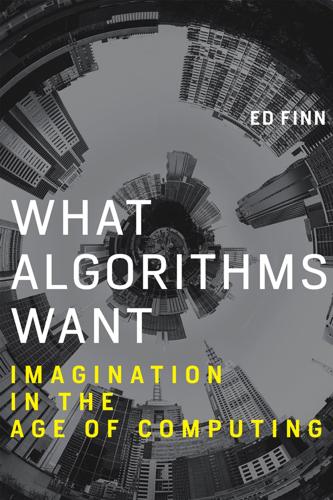
What Algorithms Want: Imagination in the Age of Computing
by
Ed Finn
Published 10 Mar 2017
Little wonder that the most serious threats to these companies are not financial scandals but attacks on that trust, as when Uber was revealed to be tracking the movements of journalists, or incidents where its drivers have been arrested for sexually assaulting passengers.37 The sharing economy ultimately depends on an atomized form of intimacy, a series of fleeting, close encounters with strangers that are managed and underwritten (in emotional, financial, and liability terms) by algorithmic culture machines. While this intimacy is necessary for the sharing economy to function, it is not the primary commodity these systems are selling. The real sell is the interface itself: the experience of computationally mediated culture and its underlying algorithmic simplification and abstraction.
…
Uber depends on abstracting away the complexities, regulations, and established conventions of hailing a cab, turning the hired car experience into a kind of videogame. That mode of abstraction has been so successful that an entire genre of Silicon Valley startups can now be categorized as “Uber for X,” where that X is actually a double abstraction. First, we adapt Uber’s simplifying, free-agent “sharing economy” business model to another economic arena. Then we make all such arenas fungible, a variable X that can stand for any corner of the marketplace where ubiquitous computing and algorithmic services have yet to disrupt the status quo. Like Turing’s original abstraction machine, these systems extend a symbolic logic into the cultural universe that reorders minds and meanings that come into contact with them.
…
These companies operate in what design entrepreneur Scott Belsky calls the “interface layer,” using appealing design to clarify and rationalize messy aspects of cultural life into simple, dependable choices.32 The Interface Economy If Zynga and its cohort of game-makers have found ways to extract labor value from entertainment, the new wave of interface layer companies is reframing labor as a kind of entertainment, adopting the optimistic framing of the “sharing economy.” Their rhetoric relies on the notion of technological collaboration and just-in-time delivery: taking advantage of unused resources like empty seats in cars, unused rooms in houses, and so forth. But all of these interactions are grounded in the mediating computational layer that manages ad hoc logistics, matches buyers and sellers of services, and structures access to platforms through carefully constructed interfaces.

5 Day Weekend: Freedom to Make Your Life and Work Rich With Purpose
by
Nik Halik
and
Garrett B. Gunderson
Published 5 Mar 2018
Take it to the next step. In addition to the domain, also secure social media profiles that match the domain. Then, build out a simple branded website on the domain. Essentially, you are creating and selling pre-built brands and assets to business owners. The Sharing Economy Also referred to as collaborative consumption, the sharing economy is based on people sharing their access to goods and services, and coordinating this sharing via community-based online services. In this new model, people rent beds, cars, boats, and other assets directly from each other instead of owning things themselves or purchasing them from traditional retailers and service companies.
…
At the time of this writing, the consumer peer-to-peer rental market is valued at $26 billion.10 Harvard Business Review argues that the term “sharing economy” is a misnomer and that a more accurate term for it is “access economy.”11 We won’t split hairs. The point we want to make is that this new technology-facilitated model is a great, simple way to leverage your existing assets to earn extra money on the side. Here are just a few examples of ways you can use the sharing economy to boost your income: Airbnb Airbnb, VRBO, and other companies allow you to rent a room or your whole home to travelers, thus earning supplemental income with existing assets.
…
International Drive, 2007). http://sethgodin.typepad.com/seths_blog/2014/12/where-to-start.html https://en.wikipedia.org/wiki/Fiverr http://www.go-globe.com/blog/mobile-apps-usage/ http://fortune.com/2015/07/29/video-game-coach-salary/ https://en.wikipedia.org/wiki/Sharing_economy https://hbr.org/2015/01/the-sharing-economy-isnt-about-sharing-at-all Cecilia Kang, “Podcasts Are Back — and Making Money,” Washington Post, September 25, 2014. https://www.washingtonpost.com/business/technology/podcasts-are-back--and-making-money/2014/09/25/54abc628-39c9-11e4-9c9f-ebb47272e40e_story.html?
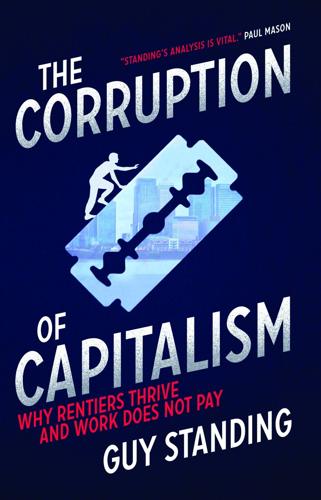
The Corruption of Capitalism: Why Rentiers Thrive and Work Does Not Pay
by
Guy Standing
Published 13 Jul 2016
To reinforce the point, in the USA one of the founders of CrowdFlower indiscreetly revealed that ‘the firm sometimes paid workers $2 to $3 an hour, rather than the federal minimum wage of $7.25, or paid workers in points for various online reward programs and videogame credits.’38 It will be hard to prevent that sort of outcome. THE REAL SHARING ECONOMY Describing rentier platforms as the sharing economy is misleading and mischievous, allowing platforms to claim they are merely facilitating neighbourly sharing rather than providing a commercial service. One genuine sharing online community is Couchsurfing, which enables travellers to find a bed for a night offered for free by other members of the community.
…
If this is a ‘sharing economy’, as its advocates claim, costs as well as benefits should be shared. As an emerging ‘profession’, labour brokers should be registered and required to join an association that develops ethical codes and monitors their conduct. In the UK, work has started on a consumer trust mark for online platforms, including labour brokers, intended to promote good practice for handling consumer complaints. Minimum requirements will be set by the Skoll Centre for Social Entrepreneurship at Oxford University’s Said Business School, working in collaboration with Sharing Economy UK. This trade body, created in March 2015 by twenty-eight online businesses, includes Airbnb, car-hire service Zipcar and cleaner-booking platform Hassle.com.
…
Some do not charge interest but levy a flat fee. A feature of all these companies is that they require full access to their clients’ bank accounts and other personal data, which they use to determine whether to provide loans, what interest rate to charge and for how long to lend. THE PLATFORM DEBT MACHINE The misnamed ‘sharing economy’ is also fostering indebtedness. App-based taxi services, such as Uber and Lyft, have tie-ups with lenders that enable drivers to buy vehicles on credit. Big car companies are becoming involved. In January 2016, General Motors announced a deal with Lyft, under which it would supply rental vehicles to Lyft drivers.
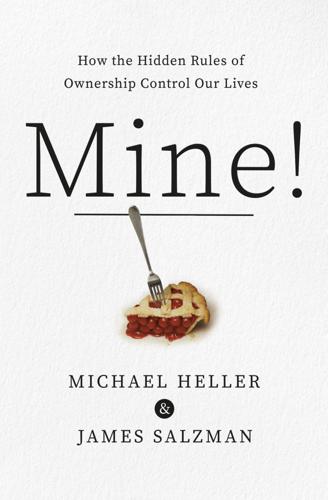
Mine!: How the Hidden Rules of Ownership Control Our Lives
by
Michael A. Heller
and
James Salzman
Published 2 Mar 2021
Companies can maximize revenue by offering us just what we want right that minute. We may feel we own more, but we really don’t. Life à la Carte There is one last stop on this frontier tour of ownership: the sharing economy. In a sense, the sharing economy is the flip side of digital ownership. Instead of wrongly believing we own more than we really do, in the sharing economy we intentionally want to own less. Forget the bundle of ownership. Just give us temporary use of someone else’s good or service. We seek micro-ownership in exchange for micropayments. This is the world of twigs, not sticks.
…
failed hole providers: Sarah Kessler, “The ‘Sharing Economy’ Is Dead, and We Killed It,” Fast Company, September 14, 2015. “A startling number of young”: Janelle Nanos, “The End of Ownership: America’s New Sharing Economy,” Boston Magazine, April 30, 2013. “Nowadays we don’t”: Brian X. Chen, “We’re Living in a Subscriptions World. Here’s How to Navigate It,” New York Times, January 15, 2020. “Many of us are starting to rethink”: Nanos, “End of Ownership.” “Who remembers the sound”: Brooke Masters, “Winners and Losers in the Sharing Economy,” Financial Times, December 28, 2017. ABOUT THE AUTHORS Michael Heller is the Lawrence A.
…
There is something appealing to this idyllic vision, but it also misses a larger point. The sharing economy isn’t really about sharing; nor is it about the end of ownership. It’s about advances in ownership technology that transform who we are as citizens and consumers—just like catch shares and FastPass+, oil unitization and dynasty trusts have changed the landscape of ownership. Going forward, the intersection of micro-ownership and smartphones may upend life as thoroughly as ownership attachment and barbed wire remodeled the Great Plains. There will be surprising costs in the shift from owning things to streaming life. For starters, the sharing economy may turn out to encourage not Zen simplicity but even more conspicuous consumption.
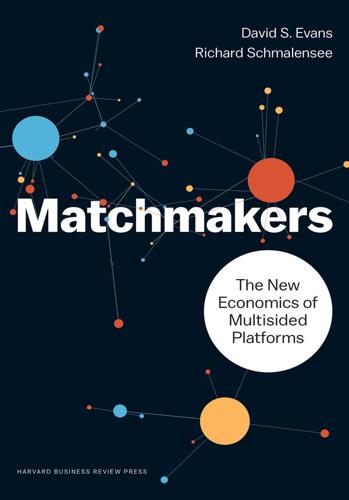
Matchmakers: The New Economics of Multisided Platforms
by
David S. Evans
and
Richard Schmalensee
Published 23 May 2016
With Airbnb, runners will have more choices for more convenient places to stay than ever before, and many people in Boston will have some extra income. Airbnb is one of the leaders in what’s known as the “sharing economy.” That’s one of the most popular business buzzwords of 2015. A Google search of that phrase yields more than 30 million hits. According to Google trends, there weren’t any news headlines with “sharing economy” in them before February 2010. There were a hundred in November 2015, more than twice as many as in September 2014. What’s novel and what isn’t here though? Airbnb and other companies that are part of the “sharing economy” are multisided platforms. What they have in common is that they are matching up people who have spare capacity—an extra room, a car, or a lawnmower, for example—with people who would benefit from that spare capacity.
…
Our five messages might sound contradictory, but they aren’t. Trust us. 1. Matchmakers have been around for millennia. Some of them were even part of the sharing economy of years past. 2. A lot of what the new market darlings do is old stuff. They just use technology to improve on things that other matchmakers have done for many years. 3. What is pioneering is that modern information and communications technologies have turbocharged the multisided platform business model. 4. The history of matchmakers suggests that today’s sharing-economy matchmakers won’t be the last to make waves. 5. Turbocharged matchmakers will transform industries. That will happen gradually over the space of decades, but in fast spurts, as innovative new matchmakers rapidly emerge and displace incumbents.
…
That’s why turbocharged matchmakers are behind the gales of creative destruction that are transforming industries worldwide. The End of History (?) Could this, then, be the golden age of matchmakers? It is remarkable that in the space of only about five years, companies like Airbnb and Uber have become global players in lodging and transportation. Similar sharing-economy matchmakers are popping up all over. With the turbocharged sharing economy, have matchmakers achieved their final destiny? Several millennia of experience strongly suggest otherwise. We expect that better, or at least different, matchmakers will come along and have their turn at disruption. With all due respect to the brilliant entrepreneurs behind today’s unicorns and yesterday’s huge IPOs, the telegraph was a far more important multisided platform in terms of its impact on the global economy than anything the Internet has yet spawned.
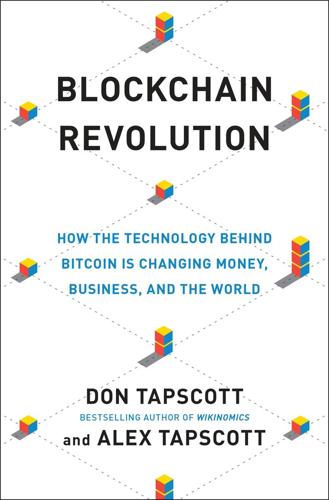
Blockchain Revolution: How the Technology Behind Bitcoin Is Changing Money, Business, and the World
by
Don Tapscott
and
Alex Tapscott
Published 9 May 2016
Interview with Yochai Benkler, August 26, 2015. 30. Interview with David Ticoll, August 7, 2015. 31. Interview with Yochai Benkler, August 26, 2015. 32. www.nytimes.com/2013/07/21/opinion/sunday/friedman-welcome-to-the-sharing-economy.html?pagewanted=1&_r=2&partner=rss&emc=rss&. 33. Sarah Kessler, “The Sharing Economy Is Dead and We Killed It,” Fast Company, September 14, 2015; www.fastcompany.com/3050775/the-sharing-economy-is-dead-and-we-killed-it#1. 34. “Prosumers” is a term invented by Alvin Toffler in Future Shock (1980). In The Digital Economy (1994) Don Tapscott developed the concept and notion of “prosumption.” 35.
…
An open world where everyone can contribute to our technology infrastructure, rather than a world of walled gardens where big companies offer proprietary apps. A world where billions of excluded people can now participate in the global economy and share in its largesse. Here’s a preview. Creating a True Peer-to-Peer Sharing Economy Pundits often refer to Airbnb, Uber, Lyft, TaskRabbit, and others as platforms for the “sharing economy.” It’s a nice notion—that peers create and share in value. But these businesses have little to do with sharing. In fact, they are successful precisely because they do not share—they aggregate. It is an aggregating economy. Uber is a $65 billion corporation that aggregates driving services.
…
He said, “People still have to want to do it, to take the risk of doing it.”31 So get ready for blockchain Airbnb, blockchain Uber, blockchain Lyft, blockchain Task Rabbit, and blockchain everything wherever there is an opportunity for real sharing and for value creation to work together in a cooperative way and receive most of the value they create. 4. The Metering Economy Perhaps blockchain technology can take us beyond the sharing economy into a metering economy where we can rent out and meter the use of our excess capacity. One problem with the actual sharing economy, where, for example, home owners agree to share power tools or small farming equipment, fishing gear, a woodworking shop, garage or parking, and more, was that it was just too much of a hassle. “There are 80 million power drills in America that are used an average of 13 minutes,” Airbnb CEO Brian Chesky wrote in The New York Times.

The Fourth Industrial Revolution
by
Klaus Schwab
Published 11 Jan 2016
Well-known examples of the sharing economy exist in the transportation sector. Zipcar provides one method for people to share use of a vehicle for shorter periods of time and more reasonably than traditional rental car companies. RelayRides provides a platform to locate and borrow someone’s personal vehicle for a period of time. Uber and Lyft provide much more efficient “taxi-like” services from individuals, but aggregated through a service, enabled by location services and accessed through mobile apps. In addition, they are available at a moment’s notice. The sharing economy has any number of ingredients, characteristics or descriptors: technology enabled, preference for access over ownership, peer to peer, sharing of personal assets (versus corporate assets), ease of access, increased social interaction, collaborative consumption and openly shared user feedback (resulting in increased trust).
…
A Supercomputer in Your Pocket 7. Storage for All 8. The Internet of and for Things 9. The Connected Home 10. Smart Cities 11. Big Data for Decisions 12. Driverless Cars 13. Artificial Intelligence and Decision-Making 14. AI and White-Collar Jobs 15. Robotics and Services 16. Bitcoin and the Blockchain 17. The Sharing Economy 18. Governments and the Blockchain 19. 3D Printing and Manufacturing 20. 3D Printing and Human Health 21. 3D Printing and Consumer Products 22. Designer Beings 23. Neurotechnologies Notes Introduction Of the many diverse and fascinating challenges we face today, the most intense and important is how to understand and shape the new technology revolution, which entails nothing less than a transformation of humankind.
…
Some countries or institutions are already investigating the blockchain’s potential. The government of Honduras, for example, is using the technology to handle land titles while the Isle of Man is testing its use in company registration. On a broader scale, technology-enabled platforms make possible what is now called the on-demand economy (referred to by some as the sharing economy). These platforms, which are easy to use on a smart phone, convene people, assets and data, creating entirely new ways of consuming goods and services. They lower barriers for businesses and individuals to create wealth, altering personal and professional environments. The Uber model epitomizes the disruptive power of these technology platforms.
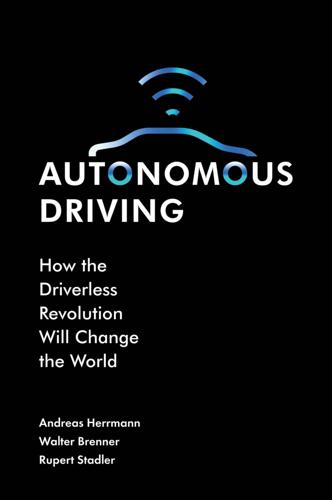
Autonomous Driving: How the Driverless Revolution Will Change the World
by
Andreas Herrmann
,
Walter Brenner
and
Rupert Stadler
Published 25 Mar 2018
Baidu has also announced a driverless bus for the year 2018. This page intentionally left blank CHAPTER 32 THE SHARING ECONOMY TREND From a financial perspective, the cars of private users and also of many commercial users can be described as underused assets. As already explained, most privately owned cars are not even used for an hour each day. Another point is that there is only one person in most cars on many journeys, which means that the standard capacity of five seats is also underused. This is where the sharing economy comes into play as a hybrid market model in between owning and gift giving. Sharing offers the possibility to make better use of underused assets (cars) by making them accessible to a community, which in turn leads to a reduced need for ownership of those assets [132, 90, 79].
…
Norms and Standards 241 25. Ethics and Morals 249 PART 7 IMPACT ON VEHICLES 26. The Vehicle as an Ecosystem 261 27. Vehicle Design 265 28. Human Machine Interaction 277 29. Time, Cost and Safety 295 PART 8 IMPACT ON COMPANIES 30. Business Models 311 31. Value Chains 327 32. The Sharing Economy 341 33. The Insurance Industry 353 Contents viii PART 9 IMPACT ON SOCIETY 34. Work and Welfare 363 35. Competitiveness 367 36. Emerging Societies 377 37. Urban Development 381 PART 10 WHAT NEEDS TO BE DONE? 38. Agenda for the Auto Industry 395 39. Ten-Point Plan for Governments 401 Epilogue: Brave New World 409 Bibliography 413 Index 427 ACKNOWLEDGEMENTS This book could never have been written without the inspiring and instructive discussions we had with some special people.
…
Nonetheless, this generation doesn’t want to forego pleasure, so those who cannot afford, or want, to buy everything tend to swap products instead. In view of the useful lives of objects, the changed mindset initiated by Generation Y seems to make sense [4]. For example, a power drill is typically used for only 11 minutes a year, and lawn mowers are used only for a few hours every summer in many parts of the world. In a sharing economy, payment is still made using money or at least digital money but mutual trust may well turn out to be a kind of new currency. As previously explained, companies or persons could operate entire fleets of self-driving cars, primarily in urban areas. Customers would order such a car via an app, use it for a certain journey and pay a price related to the distance covered or time taken, or an agreed flat rate.
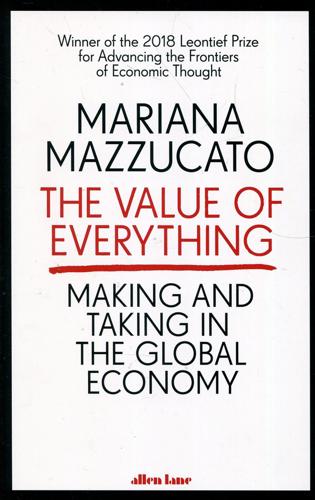
Value of Everything: An Antidote to Chaos The
by
Mariana Mazzucato
Published 25 Apr 2018
Patents themselves should not be seen as ‘rights' (IPR), but rather as a tool with which to incentivize innovation in the sectors where they are relevant - but in such a way that the public sector also gets its return; drug prices could become ‘fairer', reflecting the collective contribution of different actors and making a healthcare system sustainable. The sharing economy would not be based on the ability of a few companies to use public infrastructure for free and the dynamics of network economies to monopolize a market. A true sharing economy must by definition respect the hard-won gains of all workers, irrespective of race, gender or ability. The eight-hour day, the weekend and holiday and sick pay fought for by workers' movements and trade unions were no less important economic innovations than antibiotics, the microchip and the Internet.
…
Common attribution is to Andrew Lewis, as blue_beetle on MetaFilter 2010, ‘If you're not paying for it, you're not the customer; you're the product being sold': http://www.metafilter.com/95152/Userdriven-discontent#3256046 65. M. J. Sandel, What Money Can't Buy: The Moral Limits of Markets (London and New York: Allen Lane and Farrar, Straus and Giroux, 2013). 66. Evgeny Morozov, ‘Don't believe the hype, the “sharing economy” masks a failing economy', the Guardian, 28 September 2014: http://www.theguardian.com/commentisfree/2014/sep/28/sharing-economy-internet-hype-benefits-overstated-evgeny-morozov; Evgeny Morozov, ‘Cheap cab ride? You must have missed Uber's true cost', the Guardian, 31 January 2016: http://www.theguardian.com/commentisfree/2016/jan/31/cheap-cab- ride-uber-true-cost-google-wealth-taxation 67.
…
Mirowski, P., ‘Learning the meaning of a dollar: Conservation principles and the social theory of value in economic theory', Social Research 57(3) (1990), pp. 689-718. Mishan, E. J., The Costs of Economic Growth (New York: Praeger, 1967). Morozov, E., ‘Don't believe the hype, the “sharing economy” masks a failing economy', the Guardian, 28 September 2014: http://www.theguardian.com/commentisfree/2014/sep/28/sharing- economy-internet-hype-benefits-overstated-evgeny-morozov Morozov, E., ‘Silicon Valley likes to promise “digital socialism” - but it is selling a fairy tale', the Guardian, 28 February 2015. Morozov, E., ‘Where Uber and Amazon rule: Welcome to the world of the platform', the Guardian, 6 June 2015.
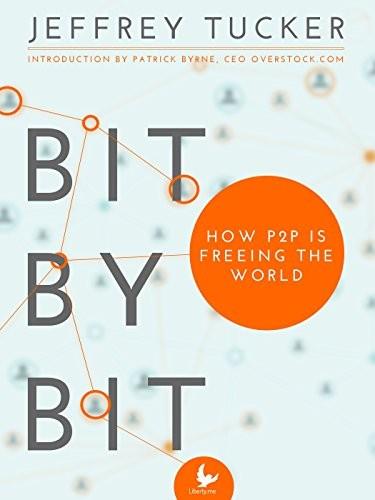
Bit by Bit: How P2P Is Freeing the World
by
Jeffrey Tucker
Published 7 Jan 2015
In short, this publication is something of a harbinger of anti-market opinion. And given its popularity, it seems to speak for a sector of opinion that is intractably opposed to all forms of market action. So what does this publication say about the sharing economy? “Uber is part of a new wave of corporations that make up what’s called the ‘sharing economy,’” writes Avi Asher-Schapiro in the strangely titled article “Against Sharing.” “The premise is seductive in its simplicity: people have skills, and customers want services. Silicon Valley plays matchmaker, churning out apps that pair workers with work.
…
But he does introduce one very interesting argument. “At its core,” he writes, “the sharing economy is a scheme to shift risk from companies to workers.” Here is a remarkable claim. At last, a socialist has found a reason for a corporation to exist: to bear the speculative risk of investing in an uncertain future. Why any corporation would exist at all if it could not also gain some reward and therefore survive economically is the great unanswered question. All businesses form for a reason; it is not to bear all risk and then die. It’s true that under the sharing economy, workers own the enterprise themselves. Rather than depending on the “the man” to decide wages independent of productivity, the workers make money as a direct result of the services they provide. 13 So yes, of course, with worker ownership comes the bearing of risk.
…
Today, the same and better knowledge is being democratized with such services as Kensho, which is bringing quant-style power to every investor and institution, essentially running a Google-style search feature for investments, giving the information it gets based on real-time experience. These are the technologies of the peer-to-peer or sharing economy. You can be a producer, a consumer, or both. It’s a different model—one characterized by the word “equipotency,” 6 meaning that the power to buy and sell is widely distributed throughout the population. It’s made possible through technology. The emergence of the app economy—an emergent order not created by government or legislation—has enabled these developments, and they are changing the world.
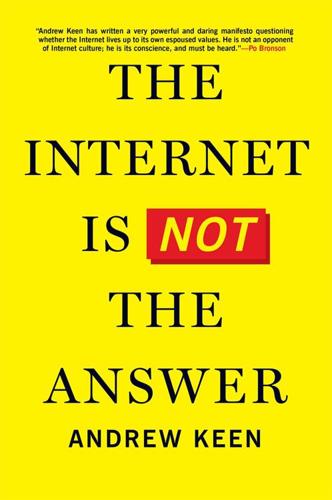
The Internet Is Not the Answer
by
Andrew Keen
Published 5 Jan 2015
As with the Web, Andreessen says, the more people who use the new currency, “the more valuable Bitcoin is for the people who use it.”107 “A mysterious new technology emerges, seemingly out of nowhere, but actually the result of two decades of intense research and development by nearly anonymous researchers,” writes Andreessen, predicting the historical significance of this networked currency. “What technology am I talking about? Personal computers in 1975, the Internet in 1993, and—I believe—Bitcoin in 2014.”108 What Silicon Valley euphemistically calls the “sharing economy” is a preview of this distributed capitalism system powered by the network effect of positive feedback loops. Investors like Andreessen see the Internet—a supposedly hyperefficient, “frictionless” platform for buyers and sellers—as an upgrade to the structural inefficiencies of the top-down twentieth-century economy.
…
Not merely content to give their own stuff away for nothing, Napster gave away everybody else’s as well. Along with other peer-to-peer networks like Travis Kalanick’s Scour and later pirate businesses such as Megaupload, Rapidshare, and Pirate Bay, Napster created a networked kleptocracy, masquerading as the “sharing economy,” in which the only real abundance was the ubiquitous availability of online stolen content, particularly recorded music. Over the last fifteen years, online piracy has become an epidemic. In a 2011 report sponsored by the U.S. Chamber of Commerce, it was estimated that piracy sites attracted 53 billion visits each year.6 In January 2013 alone, the analyst firm NetNames estimated that 432 million unique Web users actively searched for content that infringes copyright.7 A 2010 Nielsen report estimated that 25% of all European Internet users visit pirate sites each month,8 while a 2012 study funded by the United Kingdom’s Intellectual Property Office found that 1 in 6 of all British Web users regularly accessed illegally streamed or downloaded content.9 Such “abundance” has had a particularly catastrophic economic impact on the music industry.
…
As Robert Levine, Billboard’s former executive editor and author of the meticulously researched 2011 book Free Ride, argues, “The real conflict online is between the media companies that fund much of the entertainment we read, see and hear and the technology firms that want to distribute their content—legally or otherwise.”21 And it’s this struggle between an entertainment industry that, to survive, needs to be paid for its expensive content and an Internet built around the utopian idea that “information wants to be free,” Levine argues, that is “breaking” the Internet.22 Many of today’s multibillion-dollar Internet companies are complicit in the piracy epidemic. “Free” social networks like Facebook, Twitter, Tumblr, and Instagram, for example, have spurred the growth of the distribution of unlicensed content. What is left of the photography industry is particularly vulnerable to this kind of “sharing” economy. Because much of the content on these social networks isn’t accessible to the general public and instead is shared only between individuals, photographers find it nearly impossible to stop this form of unlicensed content use or even to accurately measure the extent of the illegal activity. As the American Society of Media Photographers notes, this problem has been compounded because networks like Instagram, Tumblr, and Facebook make very little effort to warn their members against the illegal sharing of images.23 Then there’s the Google problem.
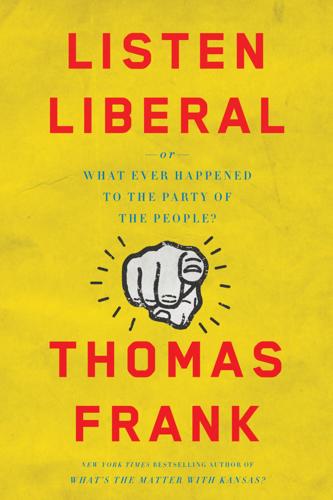
Listen, Liberal: Or, What Ever Happened to the Party of the People?
by
Thomas Frank
Published 15 Mar 2016
Jobs then forwarded Schmidt’s email around with this comment appended: “:)”19 Amazon, meanwhile, is famous for devising ways to goad its executives into fighting with one another—engaging in what the New York Times calls an “experiment in how far it can push white-collar workers”—while its blue-collar workers, often recruited through local temp agencies, are electronically tracked so that their efficiency is maximized as they go about assembling items in the company’s enormous fulfillment centers.20 For the rest of us, Amazon has come up with a nifty device for casual employment called “the Mechanical Turk,” in which tasks that can’t be done by computers are tossed to the reserve army of the millions, who receive pennies for their trouble. This last is a good introduction to the so-called sharing economy—“sharing” because you’re using your own car or apartment or computer, not your employer’s—which has been one of the few robustly growing employment opportunities of the Obama years. The magic derives from the way just about anyone can sign up at one of these sharing companies and work as a sort of temp, only hooked up with the client and employer via software, which makes it all digital and innovative and convenient. In nearly every other way, however, the sharing economy is one of the most lopsided, antiworker employment schemes to come down the pike in many years.
…
On the increasingly fraught matter of the sharing economy—the battle of Silicon Valley and Uber versus the workers of the world—Hillary actually tried to have it both ways in the same speech in July 2015. She first said she approved of how these new developments were “unleashing innovation,” but also allowed that she worried about the “hard questions” they raised. That was tepid, but it was not tepid enough. Republicans pounced; they harbored no reservations at all about innovation, they said. Hillary’s chief technology officer was forced to double down on her employer’s wishy-wash: “Sharing economy firms are disrupting traditional industries for the better across the globe,” she wrote, but workers still needed to be protected.
…
Schmidt) Humphrey, Hubert Iacocca, Lee Illich, Ivan India Indiana IndyMac Bank inequality acceleration of Bill Clinton and Decatur and Democrats and education and Hillary Clinton and innovation and Massachusetts and Obama and professional class and Rhode Island and sharing economy and technocracy and infrastructure innovation Massachusetts and rules circumvented by Intel International Math Olympiad International Women’s Day International Year of Microcredit Internet. See also Silicon Valley; technocracy In the Shadow of FDR (Leuchtenburg) investment banks Iran Iraq War Isaacson, Walter It Takes a Village (H. Clinton) Jackson, Jesse Jackson, Robert Jefferson, Thomas Jobs, Steve jobs. See also unemployment NAFTA and sharing economy and training and Johnson, Dirk Jones, Jesse Jordan, Vernon JPMorgan Judis, John Justice Department Kahn, Alfred Kalanick, Travis Kamarck, Elaine Kennedy, Robert F.
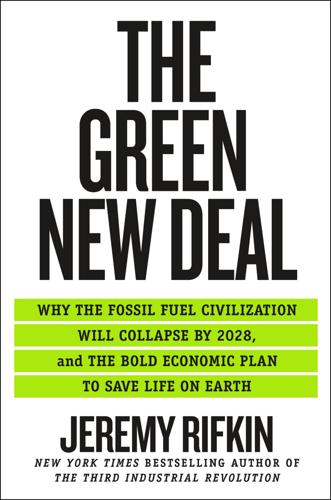
The Green New Deal: Why the Fossil Fuel Civilization Will Collapse by 2028, and the Bold Economic Plan to Save Life on Earth
by
Jeremy Rifkin
Published 9 Sep 2019
Millions of individuals are constructing the knowledge of the world and sharing it on Wikipedia, a nonprofit website that is the fifth-most-trafficked website, all for free.2 The sharing of a range of virtual and physical goods is the cornerstone of an emerging circular economy, allowing the human race to use far less of the resources of the Earth while passing on what they no longer use to others and, by doing so, dramatically reducing carbon emissions. The Sharing Economy is a core feature of the Green New Deal era. The Sharing Economy is now in its infancy and is going to evolve in many directions. But this much is assured: The Sharing Economy is a new economic phenomenon made possible by the digital infrastructure of communication, energy, and mobility that is changing economic life. To this extent, the Sharing Economy is the first new economic system to enter onto the world stage since capitalism and socialism in the eighteenth and nineteenth centuries.
…
In provider/user networks, industries and sectors are replaced by “specialized competencies” that come together on platforms to manage the uninterrupted flow of goods and services in smart networks, returning sufficient profit, even at low margins, by the 24/7 continuous traffic across the system. Margins for some goods and services, however, shrink so low “toward zero” that profits are no longer viable even in capitalist networks because the goods and services produced and distributed are nearly free. This is already occurring and giving rise to a new phenomenon—the Sharing Economy. At any given time of the day, hundreds of millions of people around the world are producing and sharing their own music, YouTube videos, social media, and research. Some are taking massive open online courses (MOOCs), taught by professors at the best universities, and often receiving college credit, for free.
…
The goal is to work with a full range of transportation partners to develop seamless mobility services that can partner Ford’s autonomous self-driving electric vehicles with public transportation, bike-sharing and scooter-sharing services, and pedestrian walkways to ferry passengers and goods effortlessly, passing them off between the various modes of transportation to final destinations, with the objective of reducing congestion and carbon emissions.8 I joined Mark Fields, then CEO of Ford, in January 2017 on the opening day of the North American Auto Show in Detroit to introduce the new business model. Ford went on to sponsor the premiere of the film that our office coproduced with Vice Media, The Third Industrial Revolution: A Radical New Sharing Economy, at the Tribeca Film Festival and sponsored subsequent premieres of the film in Miami, San Francisco, and Los Angeles. The erection of the autonomous Mobility and Logistics Internet transforms the very way we view passenger mobility. Today’s youth are using mobile communication technology and GPS guidance on an incipient Mobility and Logistics Internet to connect with willing drivers in car-sharing services.

The End of Ownership: Personal Property in the Digital Economy
by
Aaron Perzanowski
and
Jason Schultz
Published 4 Nov 2016
Although important in their own right, these are all examples of a much broader and deeper cultural shift away from ownership. We see evidence of this transformation in the emergence of the so-called “sharing economy.” For those unfamiliar with the term, it refers broadly to services and business models that enable individuals and organizations to share, rent, and reuse resources, often enabled by technology. If you’ve ever gotten a ride in an Uber or spent the night in an Airbnb rental, you’ve taken part in the sharing economy. The range of goods and services in the sharing economy is staggering. In addition to rides and apartments, there are platforms for renting parking spots, bicycles, private planes, and clothes.
…
But we need to be fully aware of the bargains we are striking. There are losers in the sharing economy, and they aren’t just legacy taxi companies and expensive hotels. The savings Airbnb users realize and the company’s profits are in part the result of externalities—costs that Airbnb and its users aren’t bearing. In cities big and small, there is evidence that Airbnb contributes to rent increases for residents.2 As more housing units are devoted to the sharing economy, fewer are available for locals to rent. Long-term renters have even been evicted to make room for vacationers.3 The unseen costs of the sharing economy are also borne by the increasing number of workers classified as independent contractors.
…
But many of the services lumped together under the “sharing economy” moniker are premised on short-term, for-profit rentals. Most are built around the exchange of money for temporary access. Some services rely on a distributed network of individual owners connecting to end users through a technology platform. Others depend on a single provider that coordinates the needs of lots of users. The rapid growth of some of these efforts has attracted lots of attention. But we rented cars, stayed in hotels, and endured rented bowling shoes long before the first iPhone app. So what is it—if anything—that makes the sharing economy “disruptive”?
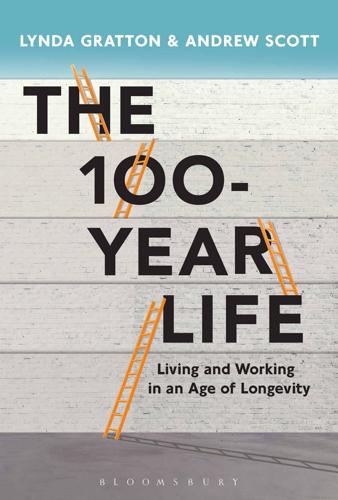
The 100-Year Life: Living and Working in an Age of Longevity
by
Lynda Gratton
and
Andrew Scott
Published 1 Jun 2016
We expect that corporations will become more willing and adept at spotting talented independent producers, and creating a personalized relationship with them that could range from full-time employment, to part-time work, right up to buying their IP or the business itself. Travelling light The major investment of the explorer and independent producer stage is in intangible assets – particularly transformational assets. So during these periods, financing is always going to be tricky. That is why developments in the technologies of the sharing economy are so interesting.19 The sharing economy is a great way of enabling people to remain asset-light or to bring income in to finance their asset accumulation. Sharing platforms such as Airbnb, Simplest, Lyft or even Dogvacay are all examples of an emerging economy where people share capacity of assets that they may have purchased or created.
…
As our discussion about leisure and the working week showed, governments will need to allow for a significant range of lifestyle and work-style choices, and simple characterizations of full-time and part-time will make little sense. This is already apparent in what has been called the ‘sharing economy’. The growth of sharing businesses, such as Uber and Airbnb, has already brought to the fore complex questions such as ‘What is an employee?’ and ‘Who is responsible for benefits such as healthcare and pensions?’ In the past, trade unions have spoken for the collective rights of their members. The profiles of these unions are only just emerging in the sharing economy and we can expect more battles as the rights of these flexible workers are contested in the courts. Our discussion of transitions and partnerships is also challenging for governments.
…
In thinking of possible lives for Jane’s 100 years, the flexibility that the ecosystem model offers makes the prospect of self-employment at certain stages a viable option. The technology that connects an individual to companies who want to buy their skills is becoming more global, cheaper and more sophisticated. These connecting platforms are already proliferating, leading to growing commentary about the ‘gig economy’ and the ‘sharing economy’. Technological change reduces information costs and so enables buyers and sellers to find each other more easily as well as determine the reliability and quality of each other from independent sources. The gig economy refers to the idea that there will be a rising number of people earning their income not through full- or part-time employment, but rather through providing a series of specific tasks and commissions to multiple sequential buyers.
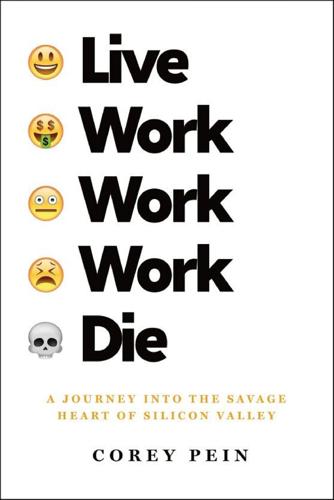
Live Work Work Work Die: A Journey Into the Savage Heart of Silicon Valley
by
Corey Pein
Published 23 Apr 2018
“We had to straighten out this congressman here who said something real positive about the sharing economy,” he told me at one point in our conversation. “We said, ‘What the fuck? Don’t you understand what it is?’” “What did you tell him?” I asked. “We said, ‘This isn’t any sharing economy—this is taking the responsibility of employment away from employers and putting it one hundred percent on people’s backs.’” Rome’s diagnosis was so simple and succinct, even a member of Congress could understand it. Of course, such hypocrisies are not confined to the phony “sharing economy.” They span the industry. Similarly, sympathy for the tech company perspective spans American political institutions, beginning with both major parties.
…
“They are all at university or living their lives or having new relationships and I feel thoroughly forgotten about.” While traditional social institutions left such underemployed, undereducated young people behind, the postwork sharing economy came to the rescue by affording them the opportunity to serve as virtual strippers. Who says the tech industry doesn’t make room for women? * * * The sharing economy’s greatest success story was a YouTube celebrity for whom work and play and reality and artifice had merged beyond all recognition. There were many dubious aspects of his rise to stardom, not the least of which was his politics, beginning with the name he chose for himself: PewDiePie.
…
They knew that well-paid programming jobs would also soon turn to smoke and ash, as the proliferation of learn-to-code courses around the world lowered the market value of their skills, and as advances in artificial intelligence allowed for computers to take over more of the mundane work of producing software. The programmers also knew that the fastest way to win that promotion to founder was to find some new domain that hadn’t yet been automated. Every tech industry campaign designed to spur investment in the Next Big Thing—at that time, it was the “sharing economy”—concealed a larger program for the transformation of society, always in a direction that favored the investor and executive classes. In the first seven years after the 2008 crash, sixteen million people left the U.S. labor force. And in that same period, thanks to Silicon Valley’s timely opportunism, the country gained an endless bounty of gigs.
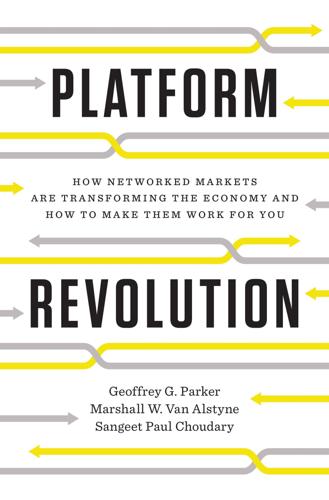
Platform Revolution: How Networked Markets Are Transforming the Economy--And How to Make Them Work for You
by
Sangeet Paul Choudary
,
Marshall W. van Alstyne
and
Geoffrey G. Parker
Published 27 Mar 2016
In a two-sided market, network effects created by the impact of users from one side of the market on other users from the same side of the market—for example, the effects that consumers have on other consumers and the effects that producers have on other producers. Same-side effects can be positive or negative, depending on the design of the system and the rules put in place. Sharing economy. The growing sector of the economy in which products, services, and resources are shared among people and organizations rather than having their availability limited to one proprietor. Often facilitated by platform businesses, sharing economy systems have the potential to unlock hidden or untapped sources of value and to reduce waste. Side switching. The phenomenon of platform users from one side of the platform joining the opposite side—for example, when those who consume goods or services produced on the platform begin to produce goods and services for others to consume.
…
Feng Zhu and Marco Iansiti, “Entry into Platform-Based Markets,” Strategic Management Journal 33, no. 1 (2012): 88–106. 9. Jason Tanz, “How Airbnb and Lyft Finally Got Americans to Trust Each Other,” Wired, April 23, 2014, http://www.wired.com/2014/04/trust-in-the-share-economy/. 10. Arun Sundararajan, “From Zipcar to the Sharing Economy,” Harvard Business Review, January 3, 2013, https://hbr.org/2013/01/from-zipcar-to-the-sharing-eco/. 11. Dan Charles, “In Search of a Drought Strategy, California Looks Down Under,” The Salt, NPR, August 19, 2015, http://www.npr.org/sections/thesalt/2015/08/19/432885101/in-search-of-salvation-from-drought-california-looks-down-under. 12.
…
Kevin Boudreau and Andrei Hagiu, Platform Rules: Multi-Sided Platforms as Regulators (Cheltenham, UK: Edward Elgar, 2009), 163–89. 2. Malhotra and Van Alstyne, “The Dark Side of the Sharing Economy.” 3. Felix Gillette and Sheelah Kolhatkar, “Airbnb’s Battle for New York,” Businessweek, June 19, 2014, http://www.bloomberg .com/bw/articles/2014-06-19/airbnb-in-new-york-sharing-startup-fights-for-largest-market. 4. Ron Lieber, “A Liability Risk for Airbnb Hosts,” New York Times, December 6, 2014. 5. Georgios Zervas, Davide Proserpio, and John W. Byers, “The Rise of the Sharing Economy: Estimating the Impact of Airbnb on the Hotel Industry,” Boston University School of Management Research Paper 2013-16, http://ssrn.com/abstract=2366898. 6.
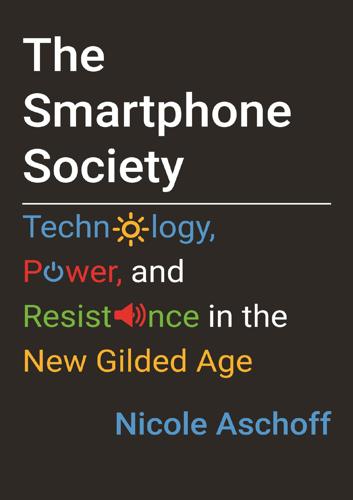
The Smartphone Society
by
Nicole Aschoff
Graeber, “Of Flying Cars and the Declining Rate of Profit.” 11. Galloway, The Four. 12. Bradshaw, “Google Chief Touts Utopian Ambitions.” 13. Cited in Sundararajan, The Sharing Economy, 7. 14. Bowles, “Clooneys to Attend a VIP Fundraiser for Clinton—and Sanders Fans Are Outraged.” 15. Weiss, The American Myth of Success, 9. 16. For a good critique of platforms, see Srnicek, Platform Capitalism. 17. Sundararajan, Sharing Economy, 124. 18. Moazed and Johnson, Modern Monopolies, 62. 19. Brynjolfsson and McAfee, The Second Machine Age, 106. 20. Anderson, “The End of Theory.” 21. Harris, “Inside the First Church of Artificial Intelligence.” 22.
…
These networks of empowered individuals are creating something from nothing—new consumption experiences, new economic activity. We are growing the pie, making new space for individuals who were left out in neoliberalism. As Arun Sundararajan, New York University professor and the author of The Sharing Economy, enthuses: [Thomas] Piketty’s “renters” can begin to experience the other side of the coin by making money through investing or owning rather than laboring. . . . People once relegated to laboring for others are assuming new roles and occupying new locations in the established economic equation, transcending from being people who receive wages to people who own capital.17 This vision jettisons the false promises of neoliberalism in favor of a new promise: in the digital world being created by Silicon Valley individuals can be their own boss, making capitalism work for them, without relying on the government for a handout or a big corporation for sustenance.
…
JC, “Ridester’s 2018 Independent Driver Earnings Survey,” Ridester, March 29, 2019, www.ridester.com/2018-survey. 53. For a discussion, see Taplin, Move Fast and Break Things. 54. Friedman, The World Is Flat. 55. Waddell, “Why Bosses Can Track Their Employees 24/7.” 56. Levin, “Sexual Harassment and the Sharing Economy.” 57. See Laufer, “Social Accountability and Corporate Greenwashing.” 58. Amazon.com, “2017 Amazon Holiday Commercial,” video, https://www.youtube.com/watch?v=OITWgx8K6Ko. 59. Deleuze, “Postscript on the Societies of Control,” 6. Chapter 2: New Titans 1. General Service Studios, “A Trip Through the River Rouge Plant,” film, n.d., https://archive.org/details/TripThroughTheRiverRougePlant. 2.
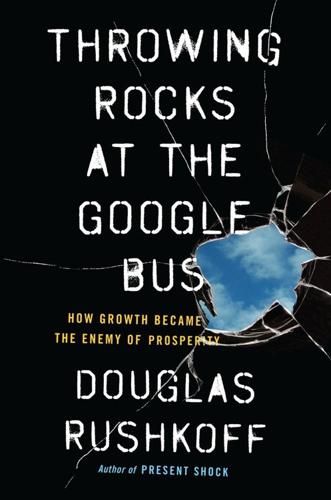
Throwing Rocks at the Google Bus: How Growth Became the Enemy of Prosperity
by
Douglas Rushkoff
Published 1 Mar 2016
It’s as if startups are out there writing algorithms to combat inefficiency and idleness by making sure that everything everyone owns is in use all the time. The platform collects its fee for putting user and provider, rider and driver, or guest and host together and enabling a new transaction where once there was none. Our assets are their new territory. Welcome to the sharing economy. Just as Lanier would have us share our data, these new companies would have us share our homes, cars, and anything else. Only it’s not really sharing; it’s selling. In fact, just as there used to be an Internet that ran entirely on “shareware,” there were originally free versions of these new asset-renting platforms.
…
That’s why the final indignity will be on the Uber drivers themselves, when they are replaced with the automatic cars currently in development by Uber investor Google. The app will orchestrate the movements of robot vehicles even more seamlessly than those driven by humans, and Uber’s shareholders should do just as well—even better—in this more automated future. To them, the sharing economy is less a cultural ethos than part of a strategic transition toward more fully automated solutions. Peer-to-peer is not a means of including more people as value creators but a prelude to getting rid of them—first the skilled, fairly paid ones, and then the unskilled ones who took their places.
…
The investors at this stage make a similar calculation, spreading their tens or hundreds of millions of dollars across a wide range of startups. They may hope to limit their downside by developing a “thesis” about the kinds of companies they think will succeed, such as “social smartphone apps,” “gamified sharing economy,” or “health, medical, and fitness entertainment.” But in the end, venture capitalists invest with low expectations of any single company surviving. Their business model is still based on the rare big winner offsetting a dozen or more losers. If they invest $10 million in a company at a valuation of $50 million, then they need that company to become worth half a billion dollars in order to see a $100 million return.
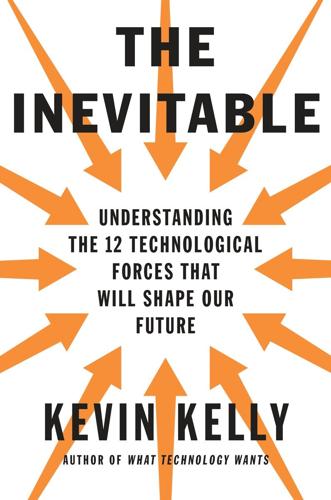
The Inevitable: Understanding the 12 Technological Forces That Will Shape Our Future
by
Kevin Kelly
Published 6 Jun 2016
When masses of people who own the means of production work toward a common goal and share their products in common, when they contribute labor without wages and enjoy the fruits free of charge, it’s not unreasonable to call that new socialism. What they have in common is the verb “to share.” In fact, some futurists have called this economic aspect of the new socialism the “sharing economy” because the primary currency in this realm is sharing. • • • In the late 1990s, activist, provocateur, and aging hippy John Perry Barlow began calling this drift, somewhat tongue in cheek, “dot-communism.” He defined dot-communism as a “workforce composed entirely of free agents,” a decentralized gift or barter economy without money where there is no ownership of property and where technological architecture defines the political space.
…
He defined dot-communism as a “workforce composed entirely of free agents,” a decentralized gift or barter economy without money where there is no ownership of property and where technological architecture defines the political space. He was right about the virtual money since the content that Twitter and Facebook distribute is created by unpaid contributors—that is, users like you. And Barlow was right about the lack of ownership, as explained in the previous chapter. We see sharing economy services such as Netflix and Spotify move audiences away from owning anything. But there is one way in which “socialism” is the wrong word for what is happening: It is not an ideology, not an “ism.” It demands no rigid creed. Rather, it is a spectrum of attitudes, techniques, and tools that promote collaboration, sharing, aggregation, coordination, ad hocracy, and a host of other newly enabled types of social cooperation.
…
We can head out in the wilds of Amazon, Netflix, Spotify, or Google with pretty good confidence that we will uncover someone who has anticipated our most remote interests with a finished work or forum. Each niche is just one step away from a bestselling niche. Today the audience is king. But what about the creators? Who will pay them in this sharing economy? How will their creative acts be financed if the middle is gone? The surprising answer is: another new sharing technology. No method has been as beneficial to creators as crowdfunding. In crowdfunding the audience funds the work. The fans collectively finance their favorites. The technology of sharing enables the power of one fan who is willing to prepay an artist or author to be aggregated (with little effort) together with hundreds of other fans into a significant pool of money.
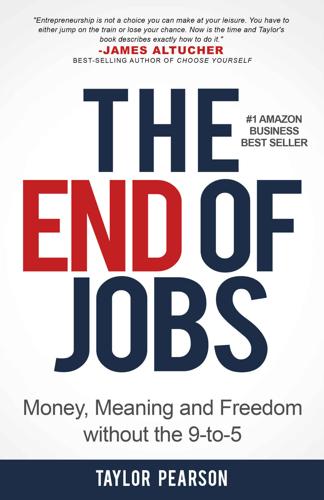
The End of Jobs: Money, Meaning and Freedom Without the 9-To-5
by
Taylor Pearson
Published 27 Jun 2015
Basecamp, a multi-million dollar project management software company, was started by Jason Fried and David Heinemeier Hansson, while living in different countries and while also running a web development consultancy. But it’s not just tech companies. Rent to Own: The Sharing Economy Over the last decade, a more publicly available internet has enabled the “Sharing Economy,” which has democratized the tools of production. Technology and the internet have brought trust and transparency to markets, which lets people share existing resources and repurpose them into higher and better uses to take them from a lower to a higher area of productivity. The sharing economy has made manufacturing more efficient—you can create increased inventory without immediately needing more supply.
…
Let’s use the hotel industry as an example. In the past, if there weren’t enough rooms in a city for visitors, Hilton went and built a new hotel. They would pay millions of dollars for a piece of land downtown, millions of dollars to construct a hotel, and then millions of dollars to hire staff to run it. The sharing economy version of that is a company called AirBnB, which allows homeowners to post their rooms online so people coming to visit can stay in them. It’s often less expensive than a hotel and many people like getting to know a city as a resident instead of as a tourist. Let’s say Julian has a house that he owns in Dallas, Texas.
…
The cost of the tools needed to invest in entrepreneurship has dropped dramatically because the infrastructure has gotten so much more efficient. Let’s look at a few of the primary tools and how entrepreneurs are using them. Software as a Service (SaaS): Plug and Play Tools and Systems Software as a service has arisen primarily in the last decade and facilitates a large part of the sharing economy. Instead of having to buy expensive equipment or sign long-term contracts, entrepreneurs can buy month-to-month access to different services that they need. Previously, a new company would have had to buy accounting software that would cost hundreds of dollars. Now, instead of buying expensive accounting software, you can use a month-to-month service like Xero, which starts at $9 a month.
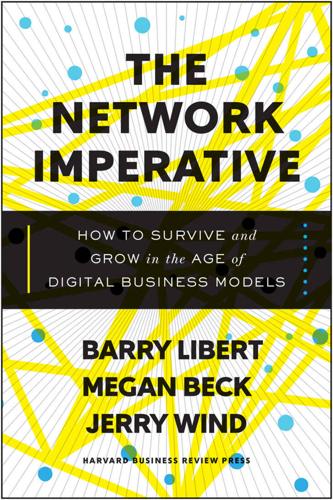
The Network Imperative: How to Survive and Grow in the Age of Digital Business Models
by
Barry Libert
and
Megan Beck
Published 6 Jun 2016
Brent Leary, “Amir Elaguizy of Cratejoy: Good Subscription Business Models Focus on Relationships Not Transactions,” Small Business Trends, August 14, 2015, http://smallbiztrends.com/2015/08/elaguizy-cratejoy-subscription-business-models.html. Principle 7, Employees 1. Travis Kalanick, “The Charms of the Sharing Economy,” Economist, The World in 2016 (single issue), November 6, 2015, http://www.theworldin.com/article/10631/charms-sharing-economy. 2. Ernst & Young, Study: Work-Life Challenges across Generations, http://www.ey.com/US/en/About-us/Our-people-and-culture/EY-work-life-challenges-across-generations-global-study. 3. Rena Rasch, “Your Best Workers May Not Be Your Employees,” IBM Smarter Workforce Institute, October 2014, http://www-01.ibm.com/common/ssi/cgi-bin/ssialias?
…
—PHIL COWDELL, CEO, MediaCom North America “Get ready for a future in which everyone and everything are digitally connected, marginal costs approach zero, and openness to the ideas and assets that exist around the organization matter more than sheer scale. The successful firms of the future will embrace the principles for creating network value found in this prescient book.” —GEORGE DAY, Geoffrey T. Boisi Professor, Emeritus, the Wharton School “In the new world of crowd sourcing, the sharing economy, and the internet of everything, there is no question that every business is being transformed by a networked world. In The Network Imperative, Libert, Beck, and Wind break down this twenty-first century phenomenon and offer an actionable and effective approach for any business to not only ward off disintermediation, but also to set a path for long-term success.”
…
PRINCIPLE 7 EMPLOYEES From Employees to Partners Employment in society has overstretched itself. —Charles Handy, author and philosopher WHEN UBER PASSED THE MILLION-DRIVER MARK (that’s right—one million drivers) in late 2015, CEO Travis Kalanick wrote in the Economist, “I realised that sharing-economy companies really are pointing the way to a more promising future, where we have more power over when, where and how long to work. It’s a shift that has the potential to give people more flexibility, more freedom and more control over their lives, their jobs and their incomes.”1 One might think that this quotation is self-serving, given that Uber’s digital network business model is based on a network of freelance drivers.
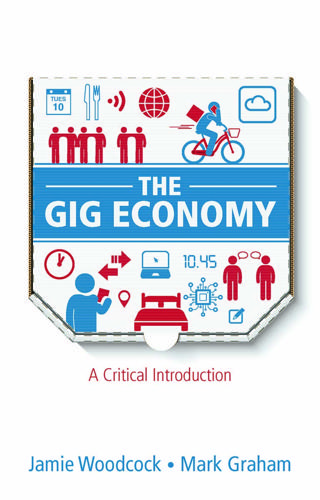
The Gig Economy: A Critical Introduction
by
Jamie Woodcock
and
Mark Graham
Published 17 Jan 2020
Scholz, T. (2017b) Platform cooperativism vs. the sharing economy. In N. Douay and A. Wan (eds.), Big Data & Civic Engagement. Rome: Planum Publisher. Scott, W.R. (2001) Institutions and Organizations. Thousand Oaks, CA: Sage. Semuels, A. (2018) The Internet is enabling a new kind of poorly paid hell. The Atlantic, 23 January, Available at: https://www.theatlantic.com/business/archive/2018/01/amazon-mechanical-turk/551192/ Silver, B.J. (2003) Forces of Labor, Workers’ Movements and Globalization since 1870. Cambridge: Cambridge University Press. Slee, T. (2015) What’s Yours Is Mine: Against the Sharing Economy. London: OR Books.
…
As Sarah Kessler (2018: x) recounts in a story from a startup founder, the gig economy had a promise that ‘we could work for our neighbours, connect with as many projects as we needed to get by, and fit those gigs between band rehearsals, gardening, and other passion promises.’ At this point, some commentators began talking about the ‘sharing economy’ (Sundararajan, 2017), a term that sounds very optimistic in light of the evidence that followed. Although there have been changes in the gig economy, it still involves work. At its core, paid work involves a relationship in which one person sells their time to another. This entails transferring the ownership of labour power (the capacity to work) from the worker to the owner of capital (the owner of the things needed to produce work).
…
Pollert, A. and Charlwood, A. (2009) The vulnerable worker in Britain and problems at work. Work, Employment and Society, 23(2): 343–62. Pollman, E. and Barry, J. (2016) Regulatory entrepreneurship. Southern California Law Review, 90: 383–442. Ravenelle, A. (2019) Hustle and Gig: Struggling and Surviving in the Sharing Economy. Oakland, CA: University of California Press. Raw, L. (2009) Striking a Light: The Bryant and May Matchwomen and their Place in History. London: Continuum Books. Richey, L.A. and Ponte, S. (2011) Brand Aid: Shopping Well to Save the World. Minneapolis, MN: University of Minnesota Press. Roberts, S.T. (2016) Commercial content moderation: Digital laborers’ dirty work.
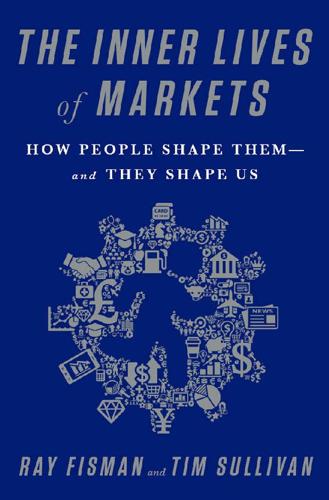
The Inner Lives of Markets: How People Shape Them—And They Shape Us
by
Tim Sullivan
Published 6 Jun 2016
Discrimination may feed into users’ feedback, which would, perhaps less directly, lead to discrimination. Although we know of no research on the topic, the concern has seen much attention in the media. See, for example, “The Sharing Economy Is Not as Open as You Might Think,” The Guardian, November 12, 2014. A post titled “Can the Sharing Economy End Discrimination?” on the website of tech magazine Wired took the opposite view, albeit without providing any evidence in support of the argument. For a broader critique of the sharing economy, see Tom Slee, What’s Yours Is Mine (London: OR Books, 2015). 12. Peter Thiel, “Competition Is for Losers,” Wall Street Journal, September 12, 2014, http://www.wsj.com/articles/peter-thiel-competition-is-for-losers-1410535536.
…
There need not be only two sides: Google’s Android is a meeting point for makers of smart phones like LG and Samsung, app designers, and consumers. The business networking service LinkedIn similarly brings together corporate recruiters, job hunters or employees, and advertisers. The list goes on, including some of the recent “sharing economy” companies that have gotten so much attention: Uber, Lyft, Airbnb, Postmates, and many other online marketplaces. The market maker faces a delicate balancing act in satisfying the needs and wants of each side. And indeed a platform isn’t much good unless all sides agree to participate. Just as no one would visit a supermarket that stocked only a limited supply of cornflakes, eBay wouldn’t get many visitors if the only items for bid were a couple of old Pez dispensers.
…
If friction—informational, transactional, contractual—is all that stands between textbook economic models and the functioning of our real economy, then there is a vocal contingent out there (“there” being mostly Silicon Valley) that sees technology as the solution. When viewed through the lens of market frictions, the much-hyped notion of the sharing economy can be seen as an effort to bring free-market salvation to bricks, mortars, and automobiles. If you’ve ever tried to hail a taxi in San Francisco or rent a room in Washington, DC, you know the frictions of which we speak. The Bay Area’s sprawl, combined with strict regulations on the cab and livery businesses, used to leave you at the mercy of the two thousand or so taxi medallion holders that covered San Francisco’s 230 square miles.
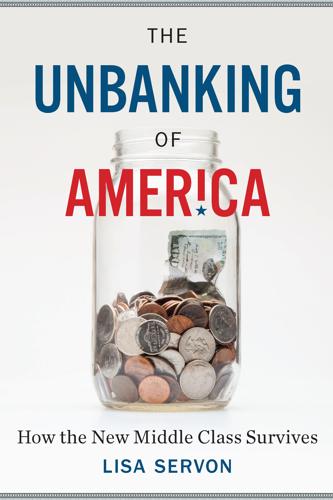
The Unbanking of America: How the New Middle Class Survives
by
Lisa Servon
Published 10 Jan 2017
These informal practices are not: Sudhanshu Handa and Claremont Kirton, “The Economics of Rotating Savings and Credit Associations: Evidence from the Jamaican ‘Partner,’” Journal of Development Economics, vol. 60, no. 1 (1999): 173–94; Sowmya Varadharajan, “Explaining Participation in Rotating Savings and Credit Associations (ROSCAs): Evidence from Indonesia” (Ithaca, NY: Cornell University, 2004). 141 almost less than one in ten: PricewaterhouseCoopers, “The Sharing Economy,” Consumer Intelligence Series, pwc.com/CISsharing, April 2015. the sharing economy: Havas Worldwide, “The New Consumer and the Sharing Economy,” Prosumer Report (New York: Havas, 2014). 8. INSIDE THE INNOVATORS 143 This moment is notable: Brett King, Breaking Banks: The Innovators, Rogues, and Strategists Rebooting Banking (Singapore: John Wiley & Sons, 2014), p. xv.
…
Jack works at the US Department of Housing and Urban Development; he also participates in a ROSCA through his job. “We’re not supposed to do them, but we do. There’s a group checking account we set up with the Federal Credit Union. They pull a hundred dollars from my paycheck, and I get paid bimonthly, so that’s two hundred per month.” Indeed, research shows that the “sharing economy” is on the rise. This economy values shared resources and collaboration over accumulation and ownership, and it operates as a system of providers and users, although people often act in both roles. Providers offer goods and services to be shared, and users rent, pay for, or barter for what’s being offered.
…
Best known for services like Zipcar, Lyft, and Airbnb, it extends to crowdfunding as well as the sharing of equipment and media. Advances in technology—mobile apps and web platforms—allow individuals to connect and then facilitate services and transactions. While almost less than one in ten adults has participated in the sharing economy as providers, consumers under age thirty-five make up 38 percent of the total. Half of millennials belong to or expect to join a sharing service within the next year. Policymakers and most mainstream and alternative financial-services providers have failed to look closely at the informal component of the consumer financial-services system.

12 Bytes: How We Got Here. Where We Might Go Next
by
Jeanette Winterson
Published 15 Mar 2021
We sell our time, we sell our labour, sometimes we have to sell our bodies, sometimes we have to get money in ways we would rather not. But we accept that there is a distinction between making money, however you do it – and being money. Part of the problem, as ever, is the language we use. Big Tech hasn’t created, isn’t interested in creating, a ‘sharing’ economy. That’s just marketing. We don’t live in a sharing economy. We live in the most unequal, socially divided work-and-reward economy the world has ever seen. We must impose democratic limits on the untrammelled and uncontrolled political power of the internet giants. We want the platforms to be transparent about how their algorithms work.
…
But maybe your friend is fired from the hotel because it loses business. Or wages are kept low because hotel-room rates must be kept low, because of competition from Airbnb. At the same time it gets harder to rent an affordable place to live. And those who live close by regularly let Airbnb ‘homes’. Do we love it? No, we hate it. The ‘sharing’ economy (sharing is not a financial transaction – do words mean nothing?) does not factor social consequences into its business model. The consequences for other people, for thriving cities where people can afford to live, the consequences of endless pointless travel, the toll on the planet, are irrelevant
…
Wear these glasses, see a face, and the face-owner’s details flash up on your phone – details scraped from social-media accounts. This is already possible via a database app called Clearview AI, which matches faces to personal details. Did you imagine you owned your face? Owning is so last century. This is a sharing economy. We share. Big Tech collects. As Tom Paine put it back in 1791: A body of men holding themselves accountable to nobody ought not to be trusted by anybody. From Sci-Fi To Wi-Fi To My-Wi These things will make possible a world in which we can be in instant contact wherever we may be. Where we can contact our friends anywhere on earth, even if we don’t know their actual physical location.
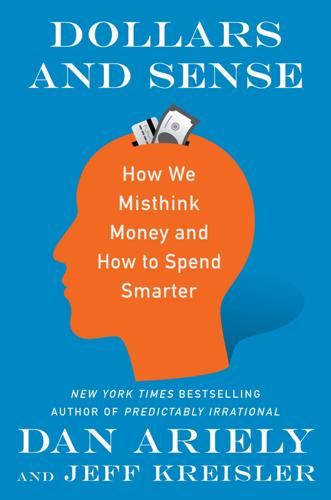
Dollars and Sense: How We Misthink Money and How to Spend Smarter
by
Dr. Dan Ariely
and
Jeff Kreisler
Published 7 Nov 2017
SHARING IS FAIRING What about the phrase “the sharing economy”? Companies like Uber, Airbnb, and TaskRabbit belong to “the sharing economy,” a phrase that frames these services in a positive way. Who doesn’t like to share and who doesn’t appreciate those who do? Who above the age of preschool doesn’t think of sharing as a wonderful human quality? No one, that’s who. The phrase “the sharing economy” conjures an image of the good side of humanity, and that causes most of us to value a service more. Certainly the language doesn’t draw attention to the negatives of the sharing economy. “Sharing” makes it all seem selfless, like we’re letting our little sister play with our Legos or donating a kidney to an orphan.
…
,” 205–6 honeymoon experience, 61–65, 69–71, 75 marriage proposal, 126 shopping for Optimum Slim cereal, 30 traveling with his family, 45, 55 unfulfilled friend’s party, 38 windfall hypothesis, 195 labor market in “sharing” economy, 160 Lambrecht, Anja, 33 Lanchester, John, 162 Langer, Ellen, 114 language, 149–66 overview, 154–55, 214–16, 220 adding value with rituals, 163–66, 179–80, 214–16, 220 choices based on descriptions vs. items, 153–56 consumption enhancement, 156–59, 163 double talk, 161–62 and expectations, 179–80 ignoring vs. immersing in, 149–52 language and fairness, 159–60 and restaurants, 150–55 sharing economy, 160–61 transformative ability of language, 162–63 Las Vegas, Nevada, 45–46 Levav, Jonathan, 50–51 listing price effect on Realtors’ estimates, 93–95, 98, 103 locksmith’s value, x, 133, 137, 140, 146 Loewenstein, George, 67, 77, 106–8, 191–92 loss aversion overview, 120–23 app for combating, 241 and employer’s retirement matching funds, 243 and investments, 123–25, 249 and Netflix new pricing scheme, 138, 138n overvaluing what we own, 219 and positive outcomes, 246–47 luxury items and resorts estate worth tens of millions, 119 prepaying vs. ala carte, 61–62, 69–70, 75–77, 228 relative price vs. real price, 29 malleable mental accounting, 53–54, 55 manipulation advertising copywriter skills, 119 new box and new price (same as old price), 30–31 pricing high to create excitement by lowering it, 104 self-manipulation, 221, 233 and transparency, 146–47, 220 winemakers and language manipulation, 151, 154–55, 162, 221 See also pricing Mansfield, Rob, 183–85, 190–91, 232 marshmallow test, 186 Martin, Jane, 41–43, 56 McGraw, Pete, 50–51 measurability, 24–25, 201, 204–5 Mencken, H.
…
“Sharing” makes it all seem selfless, like we’re letting our little sister play with our Legos or donating a kidney to an orphan. But that’s not always the case. In fact, critics claim that the rise of the sharing economy is the by-product of a labor market providing no full-time jobs, few benefits, and little security, that it rolls back worker protections and takes advantage of the “free-agent nation,” which itself is another term designed to help us feel better about underemployment. But we do all enjoy getting rides more easily, don’t we? Some companies have been accused of greenwashing, or making minor, cosmetic changes to their products so they can call themselves environmentally friendly.
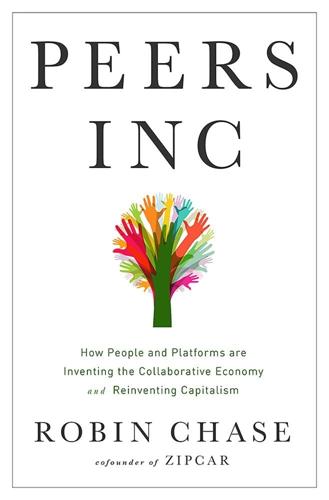
Peers Inc: How People and Platforms Are Inventing the Collaborative Economy and Reinventing Capitalism
by
Robin Chase
Published 14 May 2015
What I failed to appreciate back then was the much larger movement made possible by the Internet. Zipcar was a trailblazer. When you can connect and share assets, people, and ideas, everything changes, not just how you rent a car. Google, eBay, Facebook, OKCupid, YouTube, Waze, Airbnb, WhatsApp, Duolingo—all are part of this transformation of capitalism. Web 2.0, the sharing economy, crowdsourcing, collaborative production, collaborative consumption, and network effects are simply terms we’ve created along the way in an effort to capture what is going on. Attributing all this to “the Internet” misses the building blocks and therefore the ability to replicate this type of activity in a more controlled way.
…
Lots of us have heard about the tragedy of the commons: When people share a resource but don’t own it, everything goes to hell because they don’t care. As you know, this was not my experience with Zipcar, which proved to be a shock to investors and business pundits. And it was this reality that led to the founding of dozens of other successful sharing-economy companies. Ostrom identifies “common pool resources,” which have two characteristics: they produce a steady stream of benefits accruing from the resource, and it is very difficult to exclude individuals. You can see how this maps very closely to what is happening within the Peers Inc model. The platform for participation absolutely produces a steady stream of benefits, and the peers are free agents who opt in.
…
As more and more companies switch over to the Peers Inc structure, more and more people will become freelancers, working for themselves. What are the near-term and long-term implications for them? Andrew Leonard, a business and technology journalist writing for Salon and Wired, has raised a widespread concern about the sharing economy: “The services built on top of these [platform] technologies become especially lucrative when their creators figure out ways to avoid taxes or safety regulations or insurance costs that their old-economy, non-‘sharing’ competitors are stuck with.”9 Leonard’s assessment seems very straightforward, but it obscures the complexity that lies underneath.
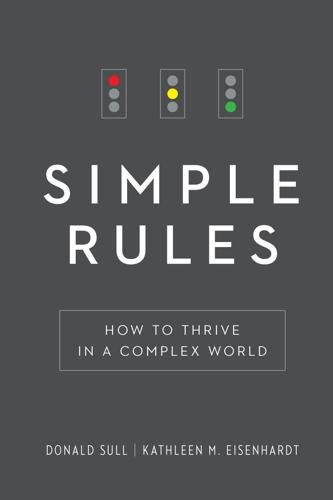
Simple Rules: How to Thrive in a Complex World
by
Donald Sull
and
Kathleen M. Eisenhardt
Published 20 Apr 2015
Instead, they ended up hosting a forty-five-year-old father from Utah, a thirty-five-year-old woman from Boston, and a thirty-year-old Indian man. Brian and Joe realized this market might be bigger than they first thought. They soon launched Air Mattress Bed & Breakfast, later Airbnb. Airbnb is among the most successful of the shared-economy companies. Unlike many traditional businesses, shared-economy companies have no single base of customers. Rather, these companies provide two-sided markets that connect sellers (or people with something to share) with buyers (who are willing to pay for the product or service)—like the transportation-network company Lyft, which connects passengers who need a ride to drivers who have a car, and TaskRabbit, an errand-outsourcing company that connects people who need something done with “taskers” who will do the job.
…
When they combine these and other learning processes like experiments and trial and error, people and organizations gain a particularly potent way to improve their rules. MULTITASKING WAYS TO LEARN You’ve probably heard of Airbnb. You may have used the site to rent a vacation house or an apartment in another city. Maybe you even know that its founders are the first billionaires of the so-called shared economy. You may not, however, have given much thought to the learning processes that helped propel Airbnb’s founders to fortune and fame. Joe Gebbia and Brian Chesky met while they were industrial-design students at Rhode Island School of Design. Although they talked about starting a company together, they went their separate ways after graduation.
…
Rather, these companies provide two-sided markets that connect sellers (or people with something to share) with buyers (who are willing to pay for the product or service)—like the transportation-network company Lyft, which connects passengers who need a ride to drivers who have a car, and TaskRabbit, an errand-outsourcing company that connects people who need something done with “taskers” who will do the job. For Airbnb, it’s connecting local residents with room to spare and travelers who need a place to stay. To grow, shared-economy companies have to keep both sides of the market—sellers and buyers—happy. And growing matters, because these companies face what are known as network effects—in other words, the positively reinforcing cycle in which more buyers attract more sellers and vice versa. Network effects can create exploding growth for the first company or two in a market sector, but they can also make success impossible for later and slower ones.
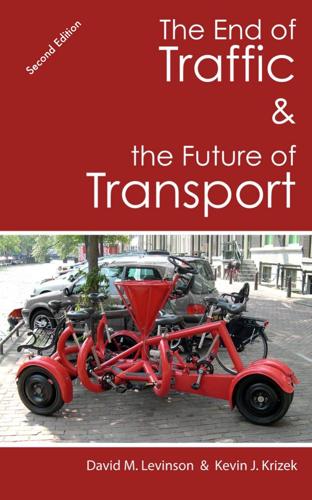
The End of Traffic and the Future of Transport: Second Edition
by
David Levinson
and
Kevin Krizek
Published 17 Aug 2015
Some of this information is gleaned from the Car2Go website https://www.car2go.com/en/minneapolis/ April 3, 2015. 219 As quoted in Thomas Friedman's column: "just think how much better all this is for the environment — for people to be renting their spare bedrooms rather than building another Holiday Inn and another and another. ... The sharing economy — watch this space. This is powerful." See: http://www.nytimes.com/2013/07/21/opinion/sunday/friedman-welcome-to-the-sharing-economy.html?pagewanted=2&_r=0 220 Forecasts of the shared economy and local regulation, see: Rauch, Daniel E. and Schleicher, David (2015) Like Uber, But for Local Governmental Policy: The Future of Local Regulation of the "Sharing Economy" (January 14, 2015). George Mason Law & Economics Research Paper No. 15-01. Available at SSRN: http://ssrn.com/abstract=2549919 221 National Multi-family Housing Coalition (2015-09) https://www.nmhc.org/Content.aspx?
…
We develop a framework to conceive of concepts related to transport and accessibility more broadly. In this framework, transport systems are being augmented with a range of information technologies. Fresh flows of goods and information provide a foundational aspect. We discuss large scale trends revolutionizing transport: dematerialization, electrification, automation, the sharing economy, and big data. The culminating chapters provide strategies to shape future debates about infrastructure. Even if transport is not your bailiwick, there is something interesting for you here. We aim for a quick read—and to encourage you to think outside your immediate realm. By the end of this book (this evening, if you so choose) you will appreciate the changing times in which you live.
…
The Future of Sharing: Cloud Commuting For communities where densities are relatively low, incomes high, and thus taxis scarce, the most reliable strategy for timely point-to-point transport is for people to maintain personal transport close at hand. Cars and bikes, which they own, are parked at their homes, workplaces, or other destinations. But with more widespread use of information technologies, ownership and possession are no longer necessary prerequisites for on-demand mobility. Widely called the 'sharing economy' or 'collaborative consumption,' its manifestations in transport: carsharing and ridesharing are viable if not widespread. Couple these technologies with autonomous vehicles discussed in the previous chapter, and one arrives at what we term 'cloud commuting' — the convergence of ridesharing, carsharing, and autonomous vehicles.211 More formally, this range of options can be termed Mobility-as-a-Service (MaaS).
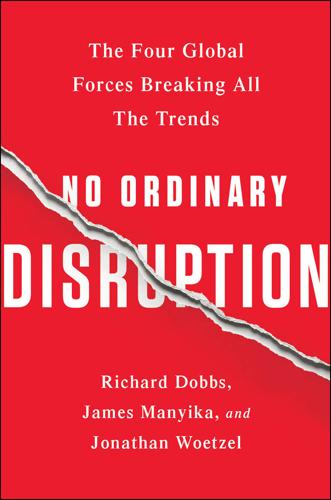
No Ordinary Disruption: The Four Global Forces Breaking All the Trends
by
Richard Dobbs
and
James Manyika
Published 12 May 2015
Kiva, the world’s largest online platform for peer-to-peer microlending, has facilitated loans worth more than $630 million, mostly in the emerging world.51 Kickstarter, a crowd-funding platform that connects entrepreneurs to individuals interested in funding creative projects, has facilitated pledges of more than $1.4 billion to fund 70,000 creative projects since 2009.52 Small or individual registered investment advisors are the fastest-growing segment of the investment advisory business in the United States; they purchase turnkey back-end systems from companies like Fidelity and Charles Schwab to get all the capabilities they need in order to provide direct advice to consumers.53 In markets such as search, e-commerce, social media, and the sharing economy, the low marginal costs of digital infrastructure allow upstarts to build business models with near-limitless scale. WhatsApp, the mobile messaging platform that Facebook recently snapped up for $19 billion, reached 500 million monthly active users within five years of its launch.54 Snapchat surpassed the photo-sharing activity on both Facebook and Instagram with 400 million users only two years after its foundation.55 Sharing economy start-ups are growing at breathtaking speed. In 2013, some 450,000 active users were launching the Uber app every week, and more than a million Lyft users had requested a ride with the tap of a button.56 Traditional players have also benefited from changes in marginal cost economics to enter new markets, grow rapidly, or optimize processes and cost structures.
…
But they have never done so across so many markets and at the speed and scale that is being seen today. As digital platforms reduce to near zero the marginal costs of scaling up business activity, such platforms are enabling new business models, new entrants, and even new market models such as peer-to-peer transactions and the “sharing” economy. With lowered barriers to entry, it is now common to see small companies take on incumbents and gain critical mass in a matter of months. The boundaries separating sectors have become blurred, and digital capabilities are often driving the shift of economic values between players and sectors.
…
The average company’s tenure on the S&P 500 fell to about eighteen years in 2012, down from sixty-one years five decades earlier.13 It’s no longer sufficient to regard large firms as potential competitors; start-ups with access to digital platforms can be born global, scale up in the blink of an eye, and disrupt long-standing rules of competition in markets ranging from taxi services to hotels and retail. Many of these micro-multinationals are upending competition by bringing about a new “sharing economy” in hospitality (Airbnb), transportation (Lyft), and even home Wi-Fi rentals (Spain’s Fon). Technology has leveled the playing field between large and small players and increased companies’ willingness to enter new markets and expand into new sectors. Microsoft took fifteen years to reach $1 billion in sales.14 Amazon reached that mark in fewer than five years.15 Netflix is no longer merely disrupting content distribution, but is also becoming a formidable force in original content production.
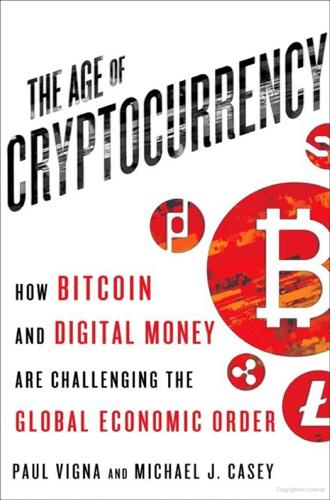
The Age of Cryptocurrency: How Bitcoin and Digital Money Are Challenging the Global Economic Order
by
Paul Vigna
and
Michael J. Casey
Published 27 Jan 2015
As former U.S. vice president Al Gore put it: Al Gore, “The Turning Point: New Hope for the Climate,” Rolling Stone, June 18, 2014, http://www.rollingstone.com/politics/news/the-turning-point-new-hope-for-the-climate-20140618. People have figured out that if they have idle assets: “The Rise of the Sharing Economy,” Economist, March 9, 2013, http://www.economist.com/news/leaders/21573104-internet-everything-hire-rise-sharing-economy. A phrase from Mastercoin’s David Johnston: David Johnston, “Johnston’s Law,” http://www.johnstonslaw.org/. among a host of overhyped Super Bowl XXXIV ads: Dashiell Bennett, “8 Dot-Coms That Spent Million on Super Bowl Ads and No Longer Exist,” Business Insider, February 2, 2011, http://www.businessinsider.com/8-dot-com-super-bowl-advertisers-that-no-longer-exist-2011-2?
…
It includes visits to the mountains of Utah, the beaches of Barbados, schools in Afghanistan, and start-ups in Kenya. The world of cryptocurrencies comprises venture-capital royalty, high school dropouts, businessmen, utopians, anarchists, students, humanitarians, hackers, and Papa John’s pizza. It’s got parallels with the financial crisis, and the new sharing economy, and the California gold rush, and before it’s all over, we may have to endure an epic battle between a new high-tech world and the old low-tech world that could throw millions out of work, while creating an entirely new breed of millionaires. Are you ready to jump down the bitcoin rabbit hole?
…
David Johnston is a senior board member at the Mastercoin Foundation, the body that coordinates the funding for the Mastercoin project, which offers a special software platform for developers to design special decentralized applications that can run on top of the bitcoin blockchain. He says blockchain technology “will supercharge the sharing economy,” that emerging trend in which apartment owners use Airbnb.com to rent out quasi hotel rooms and car owners sign up as self-employed taxidrivers for smartphone-based Uber and Lyft. The idea is that if we can decentralize the economy and foster multiple forms of peer-to-peer exchanges, people will figure out profitable ways to turn much of what they own or control into a marketable service.
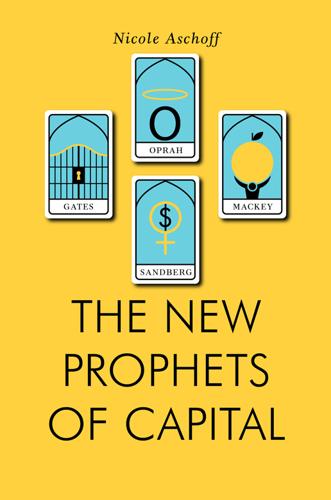
The New Prophets of Capital
by
Nicole Aschoff
Published 10 Mar 2015
Moving up past the “empowered” and the “influential” freelancers we reach the top: the “360 degrees Freelancer.” But the pinnacle isn’t about money, status, or applause. “It’s about giving back.”35 The Freelancers Union is part of an emerging social movement called “new mutualism” that’s grounded in the concept of a sharing economy. Jeremy Rifkin sees the sharing economy as the next big thing. He argues that hundreds of millions of people are already on board, sharing “information, entertainment, green energy, and 3D printed products at near-zero marginal cost.” People are also sharing more personal things like clothes, homes, and household items.36 “Flexible,” “diversified” freelancers are the archetypal sharers: They mentor.
…
Or they make sure they buy from and work with other local freelancers to keep the ecosystem healthy. They buy their groceries at the local food co-op. They attend classes. They teach classes. They go to networking events not just to hand out business cards, but to find other freelancers that share their passions.37 In the new sharing economy we’ll all be freelancers. We’ll rent out our spare rooms on Airbnb and drive our cars for Lyft. We’ll have a “portfolio of jobs” and live our lives by “essentialist” principles: We will live with “intention and choice” and celebrate the joy of “fulfilling a purpose” and making “small choices that lead to big change.”38 It’s all about adapting ourselves and acquiring the necessary skills and connections to make it in the world.
…
Silva, “Constructing Adulthood in an Age of Uncertainty,” American Sociological Review 77: 4, 2012, 508; see also Anthony Giddens, Modernity and Self-Identity: Self and Society in the Late Modern Age, New York: Polity Press, 1991. 26Gary Vaynerchuk, TED Talk, Web. 2.0 Expo, September 2008. 27Dan Schwabel, “Marie Forleo: How She Grew Her Brand to Oprah Status,” Forbes, May 16, 2013. 28See www.marieforleo.com/. 29Oprah Winfrey, Harvard commencement speech. 30O, The Oprah Magazine, March 2014. 31Madeleine Schwartz, “Opportunity Costs: The True Price of Internships,” Dissent, Winter 2013. 32Mark Babbitt, “25 Jobs in a 50-Year Career: Is Gen Y Ready?” Savvy Intern, October 9, 2013. 33See www.freelancersunion.org. 34Ibid.; Freelancers Union, Instagram, February 18, 2014. 35Freelancersunion.org. 36Jeremy Rifkin, “The Rise of the Sharing Economy,” Los Angeles Times, April 6, 2014. 37Freelancersunion.org. 38Ibid.; see also Atossa Araxia Abrahamian’s piece on the Freelancers Union in Dissent, Winter 2012. 39C. Wright Mills, The Sociological Imagination, New York: Oxford University Press, 2000 [1959], p. 6. 40Pierre Bourdieu, “The Forms of Capital,” in J.
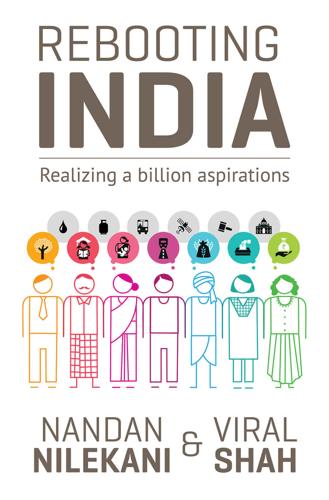
Rebooting India: Realizing a Billion Aspirations
by
Nandan Nilekani
Published 4 Feb 2016
Traditional government domains are now being invaded by the private sector. The rise of the sharing economy, in which people directly share resources with one another, is further changing our understanding of business. In a time of such rapid change, government faces the challenge of implementing regulatory standards and protecting consumer rights in an ever-changing landscape. The mobile telephony network was among the first wave of technologies that required such efforts from the government. Let’s see how some of the newer challenges are shaping up. The rise of India’s sharing economy When Uber made its Indian debut in 2013, it became one of a clutch of taxi services debuting an unfamiliar business model.
…
‘India’s tech opportunity: Transforming work, empowering people’. McKinsey Global Institute Report. http://www.mckinsey.com/insights/high_tech_telecoms_internet/indias_tech_opportunity_transforming_work_empowering_people 11. Fok, Evelyn. 31 January 2015. ‘Sharing economy fails to gain ground in Indian market as startups wary of model’. Economic Times. http://articles.economictimes.indiatimes.com/2015-01-31/news/58650703_1_sharing-economy-taxi-aggregator-vardhan-koshal 12. Mazzucato, M. 2013. The Entrepreneurial State: Debunking Public vs. Private Sector Myths. London: Anthem Press. 13. Sally, Madhvi Sally. 30 April 2014. ‘Demand for accurate weather predictions heralds burgeoning business opportunity for private forecasting firms.
…
The incumbents label the newcomers as ‘tax evaders’ and the new solutions as ‘unsafe’. There is also the risk of the existing interests lobbying against innovations and using regulations to create a barrier to entry. In all these cases, the conflict between regulation and innovation has led to considerable friction in the market. The sharing economy is also giving rise to a new class of ‘micro-entrepreneurs’—small-scale service providers who can now find customers through an online marketplace.8 The US has seen the emergence of a plethora of start-ups that will bring you groceries and flowers, wash your clothes, deliver meals, clean your house, carry out your personal tasks, or send a doctor to your home if you’re ill.
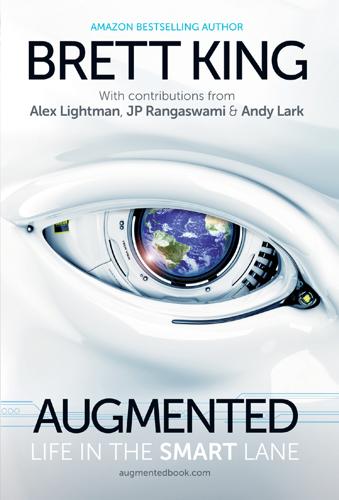
Augmented: Life in the Smart Lane
by
Brett King
Published 5 May 2016
Phil Harrison, the former corporate vice president at Microsoft who led the division responsible for Microsoft’s Xbox, described this dynamic exponential growth in computing as a platform at the launch of the Xbox One at the Electronic Entertainment Expo (E3) in 2013: “Day one of Xbox One, we will have the [cloud] server power equivalent to the entire computing power of the planet in 1999. There’s a tangible data point for you…” Phil Harrison, corporate VP of Microsoft’s Entertainment Division The sharing economy and the social media collective have produced an explosion of content, bytes/bits and data that we didn’t really see coming ten years ago. We predicted a linear increase in demand for data, and when mobile came along we rightly predicted more data usage, but we didn’t expect the explosion of data that occurred as a result of social media, the amplification of “sharing” and the rise of consumers as producers of content.
…
Computational processing is probably another large component of the overall price, and it has a long history of exponential cost reduction. In addition, we can expect battery technology to improve dramatically and allow self-driving vehicles to eventually get through an entire day without the need for a charge. The sharing economy for vehicles will thrive. Electric, self-driving vehicles will be significantly cheaper to run, but the average city dweller won’t even need to own a car, or they may choose to own a share in a vehicle. The user will simply rent a vehicle by the hour, and each vehicle will shuffle between owners or renters themselves, stopping to charge at the required charging station in quiet periods.
…
The user will simply rent a vehicle by the hour, and each vehicle will shuffle between owners or renters themselves, stopping to charge at the required charging station in quiet periods. The trend of young adults moving away from vehicle ownership is already becoming evident. Instead of asking for their own car when they reach driving age, teens are now asking their parents for an Uber account.6 So this is not just a factor of electric, self-driving cars; the sharing economy is already starting to shift behaviour towards dramatically different vehicle ownership models. Children who have grown up with parents who use Uber or ride-sharing services will do the maths and find that it is cheaper to not own their own vehicle in an average city with good public transportation and an autonomous vehicle network.
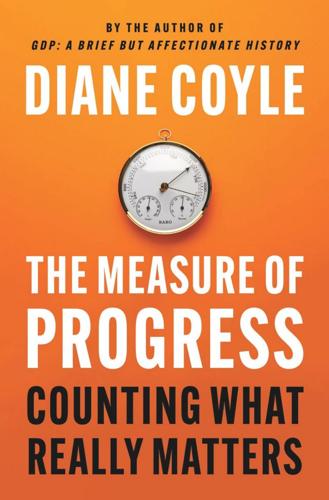
The Measure of Progress: Counting What Really Matters
by
Diane Coyle
Published 15 Apr 2025
They can also be seen as extensions of the phenomenon of leasing, the separation of ownership and use that had already been increasing somewhat over time. But it raises new questions about ownership and power, with examples both benign and malign. A benign example is what was briefly described (and probably hyped) as the sharing economy. This was the emergence of a business model (sometimes non-profit) that provided consumers with asset services without the need to purchase the asset. Airbnb is one example. It has morphed into a large accommodation platform but was originally envisaged as a homespun way of matching people who had spare rooms or apartments looking to earn from spare capacity with travelers wanting a place to stay short-term with different characteristics (including lower price) than a conventional h otel room.
…
There are many examples of smaller businesses true to the original philosophy of asset sharing for mutual benefit, including ride-sharing 94 Chapter Thr ee proper, platforms sharing gardening or DIY tools, driveways for car parking, or even pet sharing. A fleet of s ervices has slowly built around these, providing insurance and financial s ervices, for example— including some big players such as Stripe. Businesses of this kind are providing the matching efficiencies and gains from variety enabled by the digital platform model. The sharing economy concept generated a small literature identifying such efficiencies (e.g., Sundararajan 2016) along with its claimed potential environmental benefits. Less benign are examples where the customers do not know that when they purchase a product, the bundle of rights associated with the transaction is not what they expected.
…
Digitisation has been shifting a range of activities previously involving market transactions across the production boundary, out of the market and into the household, or combining household and marketed activities. Other examples apart from doing your own grocery checkout include online travel booking, banking, financial day trading, estate agency, and online search; some sharing economy activities involving using the services of household capital assets; and some provision of household labor providing f ree digital public goods such as open-source software or entertaining videos. In a 2019 article I labelled the first set of t hese “do-it-yourself ” digital activities digital intermediation services and pointed out that—although we do not know the full scale—many of them have grown in usage.
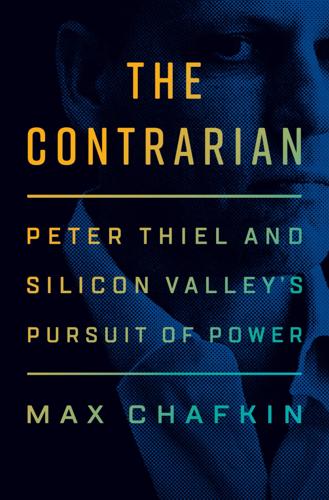
The Contrarian: Peter Thiel and Silicon Valley's Pursuit of Power
by
Max Chafkin
Published 14 Sep 2021
“that’s somewhat unusual”: Ariana Eunjung Cha, “Peter Thiel’s Quest to Find the Key to Eternal Life,” The Washington Post, April 3, 2015, https://www.washingtonpost.com/business/on-leadership/peter-thiels-life-goal-to-extend-our-time-on-this-earth/2015/04/03/b7a1779c-4814-11e4-891d-713f052086a0_story.html. tribune of globalization: Thomas Friedman, “Welcome to the ‘Sharing Economy,” The New York Times, July 20, 2013, https://www.nytimes.com/2013/07/21/opinion/sunday/friedman-welcome-to-the-sharing-economy.html. “Got Americans to Trust Each Other”: Jason Tanz, “How Airbnb and Lyft Finally Got Americans to Trust Each Other,” Wired, April 23, 2014, https://www.wired.com/2014/04/trust-in-the-share-economy/. Thiel was concerned: Thiel’s 2009 Cato essay refers to the 1920s as the “last decade in American history during which one could be genuinely optimistic about politics,” singling out the “vast increase in welfare beneficiaries,” in addition to women’s suffrage.
…
Taft Club, 203 Robertson, Pat, 42 Robertson, Willie, 237 Robinhood, 77 Robinson, Peter, 31 Rolling Stone, 200, 224 Rometty, Ginni, 264 Romney, Mitt, 179, 182, 183, 212, 236 Ron Paul’s Revolution (Doherty), 181 Rose, Dan, 292–93 Ross, Adam, 312 Ross, Wilbur, 302 Rössing Mine, 5–6 Roth IRAs, 212–13 Royan, Ajay, 102, 254 Ruffin, Phil, 237 Russell, Austin, 271 Russia, xi, 79–80, 112, 149, 175, 200, 235, 245, 272, 276, 284 election interference by, 301 Facebook and, 245, 299 Ryan, Paul, 242 Sabato, Antonio, Jr., 237 Sacks, David, xvi, 35–36, 47, 53, 67, 71, 83, 89–90 The Diversity Myth, 40–42, 47, 53, 145, 202, 252, 344n Salmon, Felix, 312 Sandberg, Sheryl, viii–x, 257, 260, 292 Sanders, Bernie, xvi, 300, 304 San Francisco Chronicle, 47, 120 Sankar, Shyam, 117, 265, 310–12, 318 Saverin, Eduardo, 108–9, 159, 205 Saving Arizona PAC, 332 Scalia, Antonin, 39 Schiavo, Terri, 227 Schmidt, Eric, xiv–xv, 54, 123, 261, 275–76 Schmitt, Carl, 94 Schwartz, Richard, 268 Scowcroft, Brent, 271 seasteading, 136–38, 169, 192, 229 SEC (Securities and Exchange Commission), 86, 88, 249, 317 Seder, Sam, 287 SENS Research Foundation, 138, 326–27 September 11 attacks, see 9/11 attacks Sequoia Capital, 57, 66, 85, 86, 108, 119–20, 134–35 Sessions, Jeff, 286 700 Club, 42 Seymour, Stephanie, 228 sharing economy, 189–90 Shelton, Kathy, 243 Shockley, William, 144 Shockley Semiconductor, 143–44 Sicknick, Brian, 322 Signal, 330 Silicon Valley, vii, x, xii, 24, 43, 45–46, 54–56, 63–64, 75–76, 95, 121, 123–25, 134–35, 159, 162, 282–83, 305, 318, 334, 335 Bush and, 93–94 COVID pandemic and, 308–9 ideology of, xii, xiv, xv, xviii Karp on, 317–18 meritocracy in, 54 military-industrial complex and, 144, 145 Obama and, 262 sharing economy and, 189–90 Traitorous Eight and, 143–44 Trump and, 236, 240, 247–49, 257–64, 271, 281 Silicon Valley, 188–89, 326 Simmons, Russell, 53 Simpson, O.
…
“I’ve always had this really strong sense that death was a terrible, terrible thing,” he said. “I think that’s somewhat unusual.” He added that he hoped his work to extend the human lifespan would be his legacy. At the moment, Thiel’s investment firm, Founders Fund, was throwing money behind the hottest Silicon Valley trend: the “sharing economy.” The term described a class of startups in which unemployed people, or those looking for extra income, offered professional services on smartphone apps—Thiel’s firm invested in most of the biggest players. There was Lyft, a ride-hailing app that replaced taxi drivers with regular people driving their own cars.
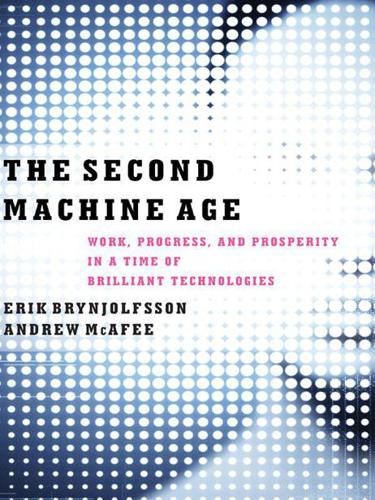
The Second Machine Age: Work, Progress, and Prosperity in a Time of Brilliant Technologies
by
Erik Brynjolfsson
and
Andrew McAfee
Published 20 Jan 2014
Alyson Shontell, “Founder Q&A: Make a Boatload of Money Doing Your Neighbor’s Chores on TaskRabbit,” Business Insider, October 27, 2011, http://www.businessinsider.com/taskrabbit-interview-2011-10 (accessed August 12, 2013). 29. Tomio Geron, “Airbnb and the Unstoppable Rise of the Share Economy,” Forbes, January 23, 2013, http://www.forbes.com/sites/tomiogeron/2013/01/23/airbnb-and-the-unstoppable-rise-of-the-share-economy/ (accessed August 12, 2013). 30. Johnny B., “TaskRabbit Names Google Veteran Stacy Brown-Philpot as Chief Operating Officer,” TaskRabbit Blog, January 14, 2013, https://www.taskrabbit.com/blog/taskrabbit-news/taskrabbit-names-google-veteran-stacy-brown-philpot-as-chief-operating-officer/ (accessed August 12, 2013). 31.
…
In fact, much of the change has been invisible for a long time simply because we did not know what to look for. There’s a huge layer of the economy unseen in the official data and, for that matter, unaccounted for on the income statements and balance sheets of most companies. Free digital goods, the sharing economy, intangibles and changes in our relationships have already had big effects on our well-being. They also call for new organizational structures, new skills, new institutions, and perhaps even a reassessment of some of our values. Music to Your Ears The story of music’s move from physical media to computer files has been told often and well, but one of that transition’s most interesting aspects is less discussed.
…
Research by Michael Luca of Harvard Business School has found that the increased transparency has helped smaller independent restaurants compete with bigger chains because customers can more quickly find quality food via rating services like Yelp, reducing their reliance on brand names’ expensive marketing campaigns.17 The intangible benefits delivered by the growing sharing economy—better matches, timeliness, customer service, and increased convenience—are exactly the types of benefits identified by the 1996 Boskin Commission as being poorly measured in our official price and GDP statistics.18 This is another way in which our true growth is greater than the standard data suggest.
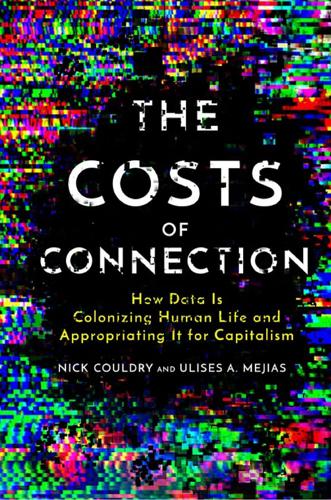
The Costs of Connection: How Data Is Colonizing Human Life and Appropriating It for Capitalism
by
Nick Couldry
and
Ulises A. Mejias
Published 19 Aug 2019
Despite the challenges that gig workers face, those who celebrate the “disruptive” effects that the sharing economy is having on traditional sectors (hotel and taxi companies, for instance) could perhaps be excused for seeing in all this a benefit for society—cheaper services. What is missing from such an analysis, however, is any discussion of long-term effects. The buyers of gig services today may enjoy lower costs, but if more and more of them are forced to become the providers of gig services tomorrow, then the “disruption” that the sharing economy is creating is clearly negative over the longer term. Surveilled Labor Not only are workers’ conditions becoming more precarious, but their moment-to-moment activities are also becoming increasingly monitored.
…
Work, for many, increasingly occurs within the sort of corporate environment of sensors that Davenport imagined; in its absoluteness, this recalls the continuous surveillance, if not the violence, that slave labor endured on a large scale under historical colonialism.37 Labor relations are becoming more directly and continuously extractive, whatever the formalities that cloak them.38 This has implications too for inequality, as exposure to (or freedom from) continuous surveillance becomes a key factor that distinguishes lower-status from higher-status jobs. New forms of labor are also emerging under data colonialism in the “sharing economy.” Here data relations are fused with labor relations, although the existence of labor relations is controversially denied by platforms such as Uber.39 These new hybrid data/labor relations encompass a huge variety of more or less formalized work, including data processing.40 Labor is captured in a seemingly “scale-less” business model that detaches workers from institutional supports but richly rewards platform management.
…
And yet, these trends are paradoxically being hailed—in the words of an Uber executive and former Clinton administration strategist—as “democratizing capitalism” and “driving wealth down to the people.”81 A Pew report from 201682 put the supposedly transformative impact of the gig economy into perspective: 24 percent of Americans in that year reported making money from gig platforms, with only 8 percent (around twenty-six million) doing so from employment, as opposed to other activities such as selling things on eBay. For comparison purposes, in China the sharing economy generated $500 billion in transactions involving six hundred million people in 2015 alone (although “sharing” in this context might simply mean renting a bicycle from one of the forty companies that facilitate fifty million rides every day).83 The gig economy, for all its limitations, has significance as an exemplar of where capitalism is heading.
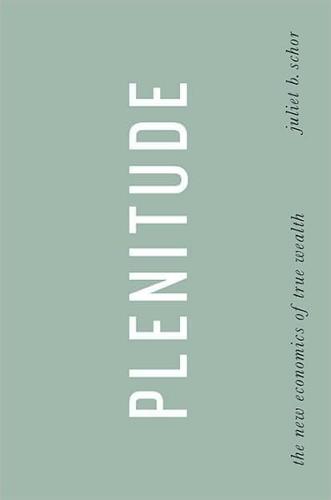
Plenitude: The New Economics of True Wealth
by
Juliet B. Schor
Published 12 May 2010
The Share Solution When I published The Overspent American in 1998, one sentence generated a reaction akin to outrage—my suggestion that neighbors could share expensive items that are only used periodically, such as riding mowers. Ten years later, it’s not only mowers that are being jointly owned, but tractors and even vehicles. The sharing economy is taking off. The best-known example is car sharing, pioneered in the United States by Zipcar, which makes vehicles available to urban members on a short-term basis. Its founder, Robin Chase, has moved on to create GoLoco, a ride-sharing service. Freecycle.org members are committed to the reciprocity of both giving and getting.
…
When money is cheap, nature isn’t counted, and time is expensive, as in the BAU economy, where incentives favor private ownership. A shift toward plenitude, which economizes on materials and is rich in time, enhances the value of sharing. Recapitalizing the Social: Economies of Reciprocity For the vanguard that is passionate about the sharing economy, it is a matter of more than ecological appeal. Sharing is a route to rebuilding social ties in a society that has experienced a rise in disconnection, loneliness, and individualism. Bioneers understand that reconstructing community, or recapitalizing the social, is a necessary adaptation for an economically and ecologically perilous world.
…
Business Alliance for Local Living Economies business-as-usual (BAU) economy decline of environmental impact of extra-market diversification and origin of term for systems dynamics and unemployment and California Closets Canada: health care system in hours worked in materials use in sharing economy in canning and preserving capitalism carbon dioxide atmospheric concentration of carbon footprint carbon pricing cashmere cell phones environmental impact of storage and disposal of Census of Manufactures Center for Alternative Technologies Center for Economic and Policy Research ceramics, imported, weight of chain stores, market power of Chase, Robin child care China commodities use by ecological footprint in greenhouse gas emissions and historical carbon emissions of Kuznets model and population and Chrysler Corp.
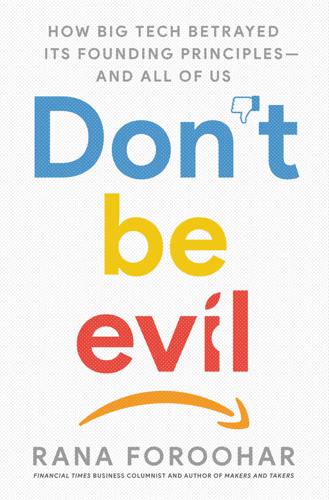
Don't Be Evil: How Big Tech Betrayed Its Founding Principles--And All of US
by
Rana Foroohar
Published 5 Nov 2019
It’s been estimated that globally, 60 percent of all occupations will, in the next few years, be substantially redefined because of new disruptive technologies.60 It’s not only low-level or menial jobs that will be automated—it’s all jobs. In fact, there’s a case to be made that “knowledge work”—radiology, law, sales, and finance—will actually be automated faster than more physical jobs in areas like healthcare and manufacturing. Moreover, even in fields where humans can’t be replaced entirely, the gig economy and the “sharing” economy—driven, of course, by tech firms—have dramatically increased the number of contingency workers without benefits.61 Beyond these relatively easy-to-track numbers is perhaps a deeper and more worrisome issue, which is the way in which data-driven capitalism has turned people into the factory inputs of the digital age.
…
Billion-dollar venture funds, once unheard of, are now commonplace. Last year, Sequoia raised an $8 billion seed fund, and SoftBank a whopping $100 billion fund. Big, of course, begets big. Charismatic CEOs and their PR teams drum out compelling narratives around these sectors (wearables, electric cars, the “sharing” economy, cybersecurity). Then they send market signals about their own “value” with announcements that play off these narratives: Uber’s $680 million purchase of self-driving truck firm Otto, for example. Venture capitalists and private equity investors keep the bubble going by buying into it at higher and higher valuations.
…
She found that, not surprisingly, while Uber itself took most of the upside of the business, drivers were often left to bear the cost and the downsides of the disruptive technology on their own. Lyft, Uber’s biggest competitor, has always been known as the kinder, gentler ridesharing company, in part because its CEO Logan Green has been more inclined to discuss the downsides of the sharing economy in a thoughtful and open way (that and the fact that he hasn’t been caught on a dashcam screaming at his own drivers). Green is, for example, concerned about the potential mass displacement of drivers in the United States (which represents the largest single category of work for men with a high school degree or less) by autonomous vehicles.

Sunbelt Blues: The Failure of American Housing
by
Andrew Ross
Published 25 Oct 2021
More and more houses are falling into the hands of Wall Street firms and global investors looking to extract rents, fees, and other income streams from every square foot. The biggest transfer of this property wealth has occurred in Sunbelt states whose economies are fueled by an unwholesome cocktail of breakneck growth, hands-off regulation, depressed wages, and real estate speculation. Adding to the money drain is the boom in short-term renting: Airbnb’s “sharing economy” has turned a sizable chunk of the nation’s housing stock into ad hoc hotels, while the surging number of vacation rental homes with faraway owners has also claimed its share. Like other regions dependent on tourism, the nation’s fifth-largest industry, Central Florida lends itself particularly well to this kind of prospecting.
…
In 2012, the county’s marketing agency renamed itself Experience Kissimmee to distinguish the location from Orlando in the tourist mind and began plugging Osceola’s VHR offerings at every opportunity. This reboot coincided with a widespread surge in renting out private homes (or rooms in them) to travelers. Airbnb, the poster child of the sharing economy, led the pack in urban areas. Other online platforms, such as HomeAway, VRBO, FlipKey, TripAdvisor, Vacasa, and Expedia, made it easy for second-home owners in traditional tourist destinations to book nightly renters. Demand for local property managers and service firms increased. Almost overnight, VHR became an industry, albeit with little in the way of professional norms and standards.
…
The “ownership society” promoted by George Bush in the early 2000s has steadily lost ground among its middle-class aspirants since then; the meaning of “home” has slipped from the warm, wholesome sense of a haven, lurching more and more in the grubby direction of retail. In the heady lead-up to the housing crash, owners began to treat their homes as assets for leveraging equity. They still lived there, though, and cherished their private space. In the decade since then, as the “renter nation” and the sharing economy took hold, every corner of the home became fair game for being booked as long as the price was right. Suddenly, everyone could be an amateur landlord. By 2020, the sanctity of the owner-occupied home, preached by generations of national moralists openly shilling for the real estate industry, had faded significantly.
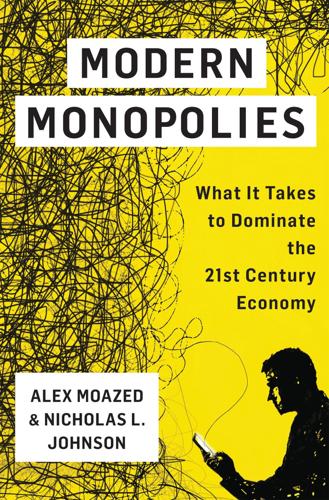
Modern Monopolies: What It Takes to Dominate the 21st Century Economy
by
Alex Moazed
and
Nicholas L. Johnson
Published 30 May 2016
Concepts like the value chain and economies of scale provided incremental improvements on the old, linear model. But the shift from linear businesses to platforms that we’re seeing today is not incremental. Rather, it’s massive and immediate. Despite all the controversy around Uber and the so-called sharing economy, the magnitude of change that platforms have brought to our society has gone largely unnoticed. In fact, this shift is much larger than the sharing economy, as platforms encompass many more areas of economic activity. And it will only continue in the future when connected technology is adopted by more and more industries. The rest of this book will help you understand how and why these businesses work and, just as important, when they won’t.
…
Krueger, “An Analysis of the Labor Market for Uber’s Driver-Partners in the United States,” January 22, 2015 (http://dataspace.princeton.edu/jspui/bitstream/88435/dsp010z708z67d/5/587.pdf), which we collated with leaked customer numbers from: Nitasha Tiku, “Leaked: Uber’s Internal Revenue and Ride Request Numbers,” Valleywag, December 4, 2013, http://valleywag.gawker.com/leaked-ubers-internal-revenue-and-ride-request-number-1475924182. Another source, “Uber Spearheads Growth of the Shared Economy in Mexico,” Global Delivery Report, July 9, 2014 (http://globaldeliveryreport.com/uber-spearheads-growth-of-the-shared-economy-in-mexico/), puts the driver/passenger ratio at about 1 to 8, but exact, up-to-date data is not publicly available. 2. Tom Cheredar, “Airbnb Admits Gaming Craigslist, Blames Rogue Contractors,” Venture Beat News, June 2, 2011, http://venturebeat.com/2011/06/02/airbnb-admits-gaming-craigslist/. 3.
…
Glen Weyl has acted as an advisor to Applico in the past. 12. David Plouffe, “Uber and the American Worker,” Medium, November 5, 2015, https://medium.com/@davidplouffe/uber-and-the-american-worker-bdd499ec5323#.24uxoctyq. 13. Georgios Zervas, David Prosperio, and John Byers, “The Rise of the Sharing Economy: Estimating the Impact of Airbnb on the Hotel Industry,” May 7, 2015, http://papers.ssrn.com/sol3/papers.cfm?abstract_id=2366898. 14. Paul Carsten, “Alibaba’s Singles’ Day Sales Surge 60 Percent to $14.3 Billion,” Reuters, November 11, 2015, http://www.reuters.com/article/us-alibaba-singles-day-idUSKCN0SZ34J20151112. 15.
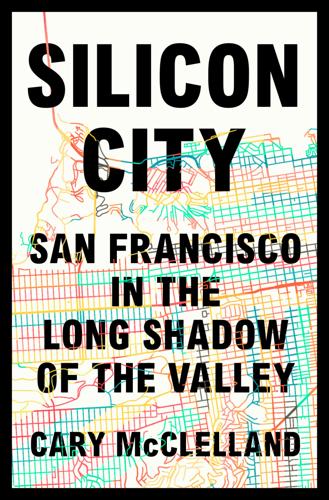
Silicon City: San Francisco in the Long Shadow of the Valley
by
Cary McClelland
Published 8 Oct 2018
They are shuttled to their corporate campuses—like summer camp, a world of primary colors and playgrounds and cafés and endless amusement to keep them happy at work. For them, all of life’s conveniences can be had at the push of a button; for others, they’ve got to get running every time the bell rings. The sharing economy meets modern sweatshop. The gamification of life in the city doesn’t mean everyone can afford to play. Through its history, San Francisco has stood as something like the nation’s western capital. But it has always been something of a funhouse mirror, reflecting a strange yet sublime potential self back to the rest of the nation.
…
But these environments are not representative of the rest of the world. And so they can end up with a skewed view of what the world looks like and what kind of problems they’re really capable of solving. Meanwhile, there’s a much bigger structural shift happening in the labor market. It’s going away from employment to this notion of liquefying work. The sharing economy: project-based, as-you-need-it stuff. Now, you can execute on your passions: you earn your income, in a flexible way, with a flexible schedule, so you can go work on the project that you’re really excited about or bootstrap the business that you always wanted to start. I take Lyft into work, and I’ve had some of the most amazing conversations on my morning commute: a Tibetan refugee, or an artist who’s working on something on the side, or people building their own companies.
…
The ride is only ten minutes, they want to have answers beyond their imagination. I should tell my life story between the Marina and North Beach? It’s arrogance more than ignorance. People nowadays see an Uber driver as an object. He has no value. He just comes with the service. Picks you up at the push of a button. That’s the sharing economy. They think they can use you as an object for a certain specific time—that they can do whatever they want with you. It’s not sharing cars, it’s sharing people. One day maybe human beings will be obsolete. The self-driving car is almost done. It’s not only drivers who will disappear. Brokers of insurance—who’s gonna get insurance when no one is driving?
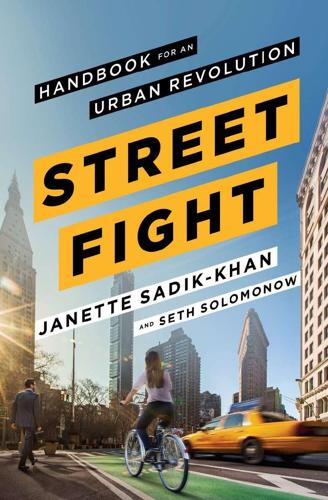
Streetfight: Handbook for an Urban Revolution
by
Janette Sadik-Khan
Published 8 Mar 2016
Other credits appear in the captions of the respective images. 978-0-698-40941-5 Cover design: Evan Gaffney Cover images: (city background) Merten Snijders/Getty Images; (cyclist) Biederbick & Rumpf/F1 Online/Superstock; (businessman) Massimo Colombo/Getty Images Version_1 To the men and women of the New York City Department of Transportation Contents Title Page Copyright Dedication Preface INTRODUCTION A New Street Code CHAPTER 1 The Fight CHAPTER 2 Density Is Destiny CHAPTER 3 Setting the Agenda CHAPTER 4 How to Read the Street CHAPTER 5 Follow the Footsteps CHAPTER 6 Battle for a New Times Square CHAPTER 7 Stealing Good Ideas CHAPTER 8 Bike Lanes and Their Discontents CHAPTER 9 Bike Share: A New Frontier in the Shared Economy CHAPTER 10 Safety in Numbers CHAPTER 11 Sorry to Interrupt, but We Have to Talk About Buses CHAPTER 12 Measuring the Street CHAPTER 13 Nuts and Bolts CHAPTER 14 The Fight Continues Photographs Acknowledgments Notes Index Preface My six-year, seven-month, eighteen-day tenure as New York City transportation commissioner began with a meeting at City Hall, at the foot of the Brooklyn Bridge, in early spring 2007.
…
Judged from the street and by the sight of ordinary people riding bikes as basic transportation and not as a political statement, a new road order for cities had become a self-evident fact on the streets of New York. “The biggest mischaracterization about the infamous New York Cycling War is that there’s a war at all,” wrote a columnist for The Wall Street Journal. “Look all around you. The bikes have won, and it’s not a terrible thing.” 9 Bike Share: A New Frontier in the Shared Economy Just after eleven p.m. my e-mail inbox exploded with messages from viewers tuned to The Daily Show with Jon Stewart. I was out that night at an event and had missed the entire show, but quickly figured out that Stewart had just given Citi Bike the full comic treatment. “There are a lot of important stories in the world right now,” Jon Stewart said to open the show, and “one of the most important is happening right here in New York City.”
…
Under Bloomberg’s successor, Citi Bike would expand far beyond its original launch area, moving up the Upper East and Upper West sides and into Long Island City, Queens, and Park Slope, Brooklyn. The Great Bike Panic could no longer be reported with a straight face. The bikes had truly won, forging a new frontier in the shared economy. 10 Safety in Numbers Early on a Thursday in late February, six-year-old Amar Diarrassouba and his older brother approached the intersection of 116th Street and First Avenue in East Harlem, the final crosswalk in their daily walk to Public School 155. When the light turned green, the driver of a tractor-trailer on 116th Street started to turn right onto First Avenue, into the crosswalk where Amar started crossing with his brother.
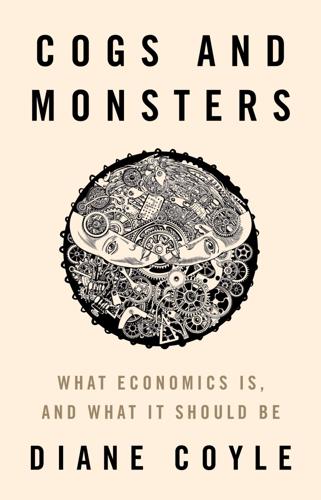
Cogs and Monsters: What Economics Is, and What It Should Be
by
Diane Coyle
Published 11 Oct 2021
For instance, through digital matching platforms like Airbnb, OpenTable, Uber, or Amazon Marketplace, people are able to satisfy highly specific individual needs or preferences. In some cases, no money is exchanged, not only in the case of Al Roth’s famous kidney exchange described earlier, but also now the numerous, non-profit sharing economy platforms exchanging unwanted goods or sharing equipment, or dogs. As with previous episodes of major innovation, from printing to electricity, enormous value is being created. Yet it is not much of an exaggeration to say these phenomena verge on the invisible in the current framework of economic statistics.
…
In my research with my co-authors on some aspects of the digital economy, we have looked at the quality-adjusted and data-volume adjusted price of telecommunications services; at the scope and price of businesses’ use of cloud computing; at shifts in activity from market to unpaid household activity thanks to digital innovation; at the sharing economy; and at the use of contract manufacturers by firms which look like big manufacturers but whose main activity is innovation and services. In every case, the absence of the underlying data gathering has been a hurdle, and official statisticians are gradually adjusting their surveys and other forms of data gathering to fill the gaps.
…
Salais, 1997, Worlds of Production: The Action Frameworks, Cambridge, MA: Harvard University Press. Sugden, R., 2018, The Community of Interest, Oxford: Oxford University Press. Sugden, R., 2020, ‘Normative Economics Without Preferences’, International Review of Economics, online 23 July 2020. Sundararajan, A., 2016, The Sharing Economy: The End of Employment and the Rise of Crowd-Based Capitalism, Cambridge, MA: MIT Press. Sunstein, Cass R., 2003, ‘Libertarian Paternalism’, American Economic Review, 93 (2), 175–179. Sutton, J., 2000, Marshall’s Tendencies: What Can Economists Know?, London: MIT Press and Leuven University Press.
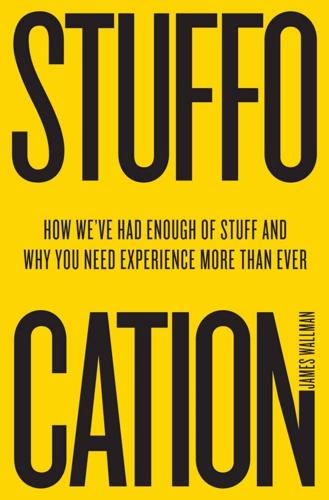
Stuffocation
by
James Wallman
Published 6 Dec 2013
Put the brand’s Clever Little Shopper bag in hot water for three minutes and it harmlessly dissolves, so you can pour it safely down the plug. The social accommodation brand Airbnb, the car-sharing service Zipcar and music-streaming site Spotify are all examples of what is variously known, from slightly different angles, as the new trend for dis-ownership, the sharing economy and collaborative consumption. Now, thanks to these trends and the technologies that make them possible, you can enjoy the experience of a room, a house, a car, a CD, a handbag, a lawnmower, a musical instrument or even a dog – without all the hassle that comes with owning them. The success of Zipcar, for instance, reflects the space and cost that comes with keeping a car in a city, and the fact that, if you live in a city, you just do not need a car so much anymore.
…
As well as giving people the chance to borrow other people’s goods, it also lets them share a good they already own: their own home. Beyond the obvious financial reward, there is also a participatory, social good that comes with Airbnb. It provides the people who let their rooms and their homes, and the people who stay there, with real connections. As a result, they tend to feel part of the new, innovative sharing economy, they feel more connected to other people, and they have more stories to share. Apple has become the world’s leading brand because of its ruthless focus on experience. Think, for a moment, how easy it is to operate an Apple device, and how slim the operating manual is. How different is that to the manual that came with, say, your VHS recorder in the 1980s?
…
Rising costs, stagnating incomes See Richard Dobbs et al., Resource Revolution: Meeting the World’s Energy, Materials, Food, and Water Needs, a report from McKinsey & Company (November, 2011). Also, “Hitting our Limits?”, The Economist, 14 October 2011. “A technologist…” For examples of technology facilitating the shift from owning material things to experience, consider the success of Spotify, Zipcar, and the Kindle. Various sources, including: “All Eyes on the Sharing Economy”, The Economist, 9 Mar 2013. The Perfect Storm Applied more than 5,000 times Source: Everett M Rogers, Diffusion of Innovations (New York: Free Press, 1962, fifth edition, 2003) Sherlock Holmes and the Mystery of the Krispy Kremes This story draws on a number of reports, including: Peter Laing, “Cops Tackle Krispy Kreme Traffic Chaos – and Pick up a Box of Doughnuts”, Deadline News, 15 February 2013; Shiv Malik, “Krispy Kremes Cause Chaos in Edinburgh Streets”, The Guardian, 15 February 2013; and Harriet Arkell, “Jam Doughnuts: Hundreds of Motorists Bring Traffic Chaos to M8 as They Queue for Opening of New Krispy Kreme”, Mail Online, 15 February 2013.
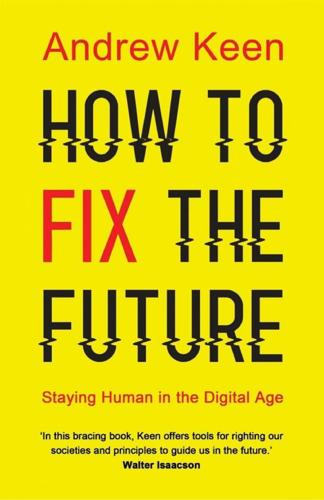
How to Fix the Future: Staying Human in the Digital Age
by
Andrew Keen
Published 1 Mar 2018
This is emblematic of an increasingly unequal economy where, in truth, multibillion-dollar start-ups like Uber and Lyft share none of their stratospheric value with their workers. Indeed, a July 2017 report about the gig economy by the British MP Frank Field alleges that some self-employed UK drivers are earning only £2.50 an hour working for sharing economy companies like Parcelforce and webuyanycar.com.30 “In reality, there is no utopia at companies like Uber, Lyft, Instacart and Handy, whose workers are often manipulated into working long hours for low wages while continually chasing the next ride or task,” that 2017 New York Times editorial argues.31 Or, as the New Yorker staff writer Jia Tolentino bluntly put it, commenting on the cult of work celebrated by on-demand companies such as the freelance marketplace Fiverr, “The gig economy celebrates working yourself to death.”32 My own experience as a heavy Uber user chimes with these conclusions.
…
In 2015, for example, the Seattle City Council voted unanimously to approve a bill that allows drivers for ride-hailing apps to form unions.44 In 2016 a London employment tribunal ruled that these drivers are indeed entitled to workers’ rights, including the national minimum wage and paid holidays.45 In 2016 Uber paid $25 million to settle a lawsuit filed by the cities of Los Angeles and San Francisco claiming that the rideshare company misled customers with a “false sense of security” about its checks on drivers.46 In Austin, Texas, voters rejected Uber’s and Lyft’s proposal to self-regulate their services. Trust us, this 2016 local referendum asked. No, the voters replied.47 Politicians around the world are also working to responsibly regulate other areas of the sharing economy. Shannon Liss-Riordan’s political ally, Massachusetts senator Elizabeth Warren, has taken on Airbnb, claiming that the $31 billion–valued home-sharing start-up is forcing up rents in large cities. In October 2016 Warren established a coalition of lawmakers from more than a dozen cities, urging the Federal Trade Commission (FTC) to “help cities protect consumers” and to study how the short-term rental market is affecting the overall rental market.48 In November 2016 regulators in New York City and San Francisco successfully got Airbnb to establish a “one host, one home” rule for new hosts as a defense against rising rents.
…
The case for a universal basic income is also shared by many technologists and entrepreneurs, who see it as an essential feature—perhaps even the central social security pillar—of tomorrow’s networked society. Robin Chase, the former CEO of both Zipcar and Buzzcar and a leading evangelist for the sharing economy, tells me that universal basic income represents a kind of investment that will allow us to “tap into people’s talents.” There will, she promises me, be a “huge uptick in happiness, creativity, and productivity” after its introduction. More ominously, Stowe Boyd, a Boston-based influential technology commentator and researcher who describes himself as a “post-futurist,” warns me that unless we introduce universal basic income, there will be “homelessness sixteen deep in the streets.”
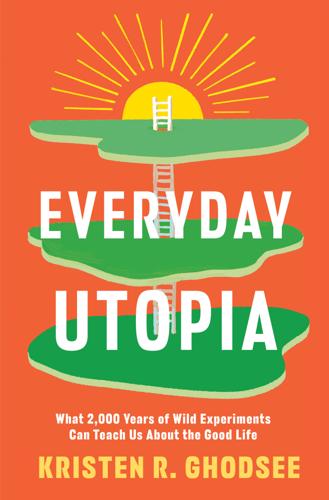
Everyday Utopia: What 2,000 Years of Wild Experiments Can Teach Us About the Good Life
by
Kristen R. Ghodsee
Published 16 May 2023
In some ways we already see steps being taken in this direction by start-ups in the so-called sharing economy; businesses like Zipcar, Citi Bike, HomeExchange, and Rent the Runway are finding ways to monetize either our desire to have less stuff or, more cynically, our inability to afford all of the stuff we want on our shrinking incomes in the precarious gig economy. But to the extent that young people avail themselves of these new services, they are accustoming themselves to the idea that property can be shared in common even if, for now at least, that sharing must be mediated by a for-profit company. The sharing economy may normalize communal property in otherwise competitive societies obsessed with material accumulation.
…
(Although one certain way to undermine the lingering cultural influences of patrilineality and patrilocality is to never marry or have children.) Despite these shortcomings, co-living developments continue to expand in major cities around the world. Investors predict further growth as younger generations embrace the sharing economy. Between 2016 and 2021, Starcity grew to include twelve locations in the Bay Area, seven in Los Angeles, and three in Barcelona.52 As of 2021, the co-living provider Habyt owned more than four thousand micro apartments across thirteen metropolises in five countries.53 And the growing popularity of co-living has already sparked a backlash against it.
…
The kids love it here. It’s quite a bit safer to grow up here than in suburbia. Both my boys are happy and well-adjusted. My younger boy went to college at UVA [University of Virginia], and has remarked several times that people have too much money there. I think he’s probably right.” Toward a Real Sharing Economy Whether as kibbutzniks, Bible communists, or the secular residents of other income-sharing communities, people around the world continue to organize their personal relationships with private property in ways not so different from the followers of Pythagoras at Kroton way back in the sixth century BCE.
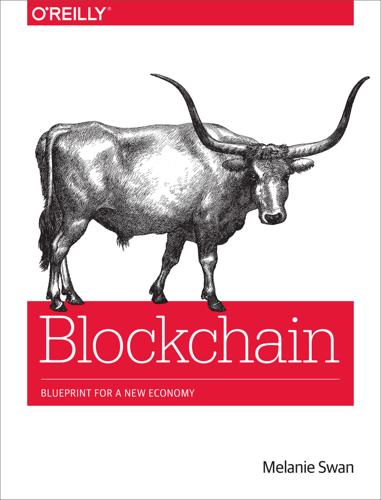
Blockchain: Blueprint for a New Economy
by
Melanie Swan
Published 22 Jan 2014
Beyond these situations in which a public interest must transcend governmental power structures, other industry sectors and classes can be freed from skewed regulatory and licensing schemes subject to the hierarchical power structures and influence of strongly backed special interest groups on governments, enabling new disintermediated business models. Even though regulation spurred by the institutional lobby has effectively crippled consumer genome services,3 newer sharing economy models like Airbnb and Uber have been standing up strongly in legal attacks from incumbents.4 In addition to economic and political benefits, the coordination, record keeping, and irrevocability of transactions using blockchain technology are features that could be as fundamental for forward progress in society as the Magna Carta or the Rosetta Stone.
…
The same templated altcoin issuance could extend to groups within these communities, like DeltaChiCoin or NeuroscienceConferenceCoin, to support any specific group’s activities. The Campuscoin issuance template could have specific prepackaged modules. First, there could be a module for buying and selling assets within the local community, an OpenBazaar- or Craigslist-like asset exchange module. Second, there could be a sharing economy module, a decentralized model of Airbnb for dorm rooms, Getaround for transportation including cars and bikes, and LaZooz peer-based ride sharing. Third, there could be a consulting or “advisory services” module for all manner of advice, mentoring, coaching, and tutoring related to classes, departments, majors, and careers.
…
The license would encompass anyone doing anything with anyone else’s Bitcoins, including basic wallet software (like the QT wallet).192 However, on the other hand, regulated consumer protections for Bitcoin industry participants, like KYC (know your customer) requirements for money service businesses (MSBs), could hasten the mainstream development of the industry and eradicate consumer worry of the hacking raids that seem to plague the industry. The deliberations and early rulings of worldwide governments on Bitcoin raise some interesting questions. One issue is the potential practical impossibility of carrying out taxation with current methods. A decentralized peer-to-peer sharing economy of Airbnb 2.0 and Uber 2.0 run on local implementations of OpenBazaar with individuals paying with cryptocurrencies renders traditional taxation structures impossible. The usual tracking and chokehold points to trace the consumption of goods and services might be gone. This has implications both for taxation and for the overall measurement of economic performance such as GDP calculations, which could have the beneficial impact of drawing populaces away from being overly and possibly incorrectly focused on consumption as a wellness metric.
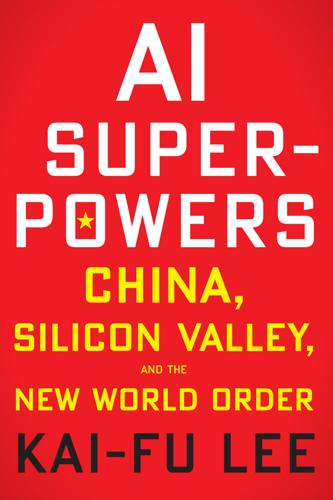
AI Superpowers: China, Silicon Valley, and the New World Order
by
Kai-Fu Lee
Published 14 Sep 2018
As with any technological revolution, many workers will find the new tools both imperfect in their uses and potentially threatening in their implications. But these tools will only improve with time, and those who seek to compete against AI on its own terms will lose out. In the long run, resistance may be futile, but symbiosis will be rewarded. Finally, the internet-enabled sharing economy will contribute significantly to alleviating job losses and redefining work for the AI age. We’ll see more people step out of traditional careers that are being taken over by algorithms, instead using new platforms that apply the “Uber model” to a variety of services. We see this already in Care.com, an online platform for connecting caregivers and customers, and I believe we will see a blossoming of analogous models in education and other fields.
…
We see this already in Care.com, an online platform for connecting caregivers and customers, and I believe we will see a blossoming of analogous models in education and other fields. Many mass-market goods and services will be captured by data and optimized by algorithms, but some of the more piecemeal or personalized work within the sharing economy will remain the exclusive domain of humans. In the past, this type of work was constrained by the bureaucratic costs of running a vertical company that attracted customers, dispatched workers, and kept everyone on the payroll even when there wasn’t work to be done. The platformatization of these industries dramatically increases their efficiency, increasing total demand and take-home pay for the service workers themselves.
…
The platformatization of these industries dramatically increases their efficiency, increasing total demand and take-home pay for the service workers themselves. Adding AI to the equation—as ride-hailing companies like Didi and Uber have already done—will only further boost efficiency and attract more workers. Beyond the established roles in the sharing economy, I’m confident we will see entirely new service jobs emerge that we can hardly imagine today. Explain to someone in the 1950s what a “life coach” was and they’d probably think you were goofy. Likewise, as AI frees up our time, creative entrepreneurs and ordinary people will leverage these platforms to create new kinds of jobs.
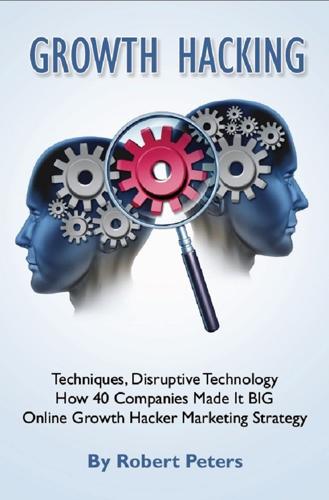
Growth Hacking Techniques, Disruptive Technology - How 40 Companies Made It BIG – Online Growth Hacker Marketing Strategy
by
Robert Peters
Published 18 May 2014
Although facing stiff competition from Groupon, LivingSocial is still very much in the game and well positioned for even greater growth. Sidecar Defining the prevailing zeitgeist at any moment in time can be a powerful but difficult growth hack, but San Francisco-based Sidecar, a major competitor with Uber in the sector of peer-to-peer ride sharing seems to be a good market fit for the rapidly emerging Sharing Economy. In the months following its January 2012 launch in San Francisco, the company experienced 60% month-over-month growth and secured impressive funding starting with $20 million in seed money. Like Uber, SideCar opted for a “proof is in the pudding” approach to demonstrating its value at the influential SXSW tech conference in Austin, Texas from March 8-17, 2013.
…
For this age group, however, real freedom is simply having ready access to transportation that meets their needs. The fact that Sidecar is smartphone based further caters to this ethos since the basic assumption is that the smartphone is the central hub of activity and means of organization and connection for the current crop of twenty-somethings. Within this age bracket, the sharing economy has gained considerable traction as evidence by the success of other startups with a similar philosophical bent like AirBnB. With services like Sidecar, all parties benefit — riders and drivers. The latest iteration of the Sidecar app lets user tailor their rides by type of vehicle type, driver, and price as well as proximity to their current location.
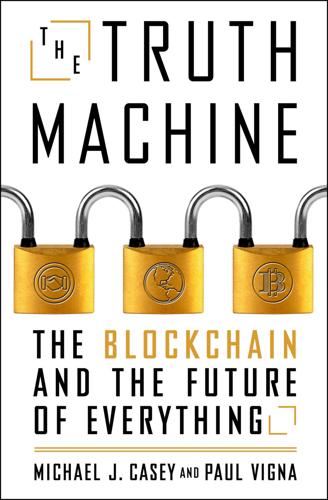
The Truth Machine: The Blockchain and the Future of Everything
by
Paul Vigna
and
Michael J. Casey
Published 27 Feb 2018
That failure was clear in the subsequent Internet 2.0 phase, which unlocked the power of social networks but also allowed first-mover companies to turn network effects into entrenched monopoly power. These included social media giants like Facebook and Twitter and e-marketplace success stories of the “sharing economy” such as Uber and Airbnb. Blockchain technologies, as well as other ideas contained in this Internet 3.0 phase, aim to do away with these intermediaries altogether, letting people forge their own bonds of trust to build social networks and business arrangements on their own terms. The promise lies not just in disrupting the behemoths of the Internet, however.
…
Even so, the data suggest that black-hat hackers are among the most financially successful innovators of the Internet era. This colossal failure to protect global commerce is directly attributable to a mismatch between the centralized way in which we process and store information and the decentralizing tendencies of a global “sharing” economy that’s pushing for more peer-to-peer and device-to-device commerce. As more people connect over peer-to-peer social networks and use online services, and as more so-called Internet of Things (IoT) devices such as smart thermostats and refrigerators and even cars join the network, ever more access points are created.
…
Once this decentralized trust structure is in place, it opens up a world of new possibilities. Consider this futuristic example: Imagine you drive your electric Tesla car to a small rural town to take a hike in the mountains for the day. When you return you realize you don’t have enough juice in your car and the nearest Tesla Supercharger station is too far away. Well, in a sharing economy enabled by blockchains, you would have nothing to fear. You could just drive up to any house that advertises that it lets drivers plug into an outlet and buy power from it. You could pay for it all with cryptocurrency over a high-volume payments system, such as the Lightning Network, and the tokens would be deducted from your car’s own digital wallet and transferred to the wallet of the house’s electric meter.
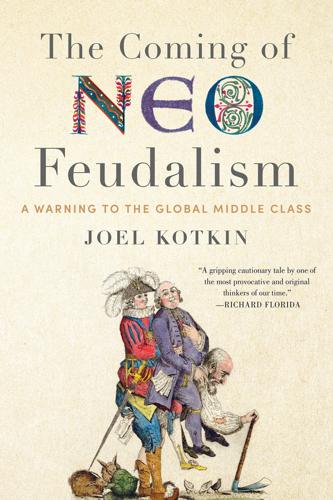
The Coming of Neo-Feudalism: A Warning to the Global Middle Class
by
Joel Kotkin
Published 11 May 2020
It also holds appeal for the rentier class—which Piketty calls the “enemy of democracy”—as they would be assured of steady profits by collecting rents while the middle class loses independence.39 The younger generations, increasingly destined to be without property of their own, are even losing ownership of their personal data. They hand over large amounts of personal information, often unknowingly, to big tech firms in exchange for free services. Rather than the much-ballyhooed “sharing economy,” we are seeing an economy based on mining personal data for the benefit of a few companies. In this way, the middle class will become digital serfs in what Gaspard Koenig calls “digital feudalism.”40 CHAPTER 12 Culture and Capitalism Close ties and common goals shared between a powerful, wealthy class and a priestly or intellectual class have shaped many cultures throughout history, including the feudal era.1 Today a symbiosis between the economic oligarchy and the clerisy poses the biggest threat to the future of the middle class, as it serves to promote values and advance policies harmful to their well-being.
…
The instability in employment is widely seen as one reason for the country’s ultra-low birth rate.15 Many of today’s “precariat” work in the contingent “gig” economy, associated with firms such as Uber and Lyft. These companies and their progressive allies, including David Plouffe (who managed Barack Obama’s presidential campaign in 2008), like to speak of a “sharing” economy that is “democratizing capitalism” by returning control of the working day to the individual. They point to opportunities that the gig economy provides for people to make extra money using their own cars or homes. The corporate image of companies like Uber and Lyft features moonlighting drivers saving up cash for a family vacation or a fancy date while providing a convenient service for customers—the ultimate win-win.16 Yet for most gig workers there’s not very much that is democratic or satisfying in it.
…
Gig workers lack many basic protections that full-time workers might have, such as enforcement of civil rights laws. Workers without representation, or even set hours, do not have the tools needed to protect their own position; they are essentially fungible, like day laborers anywhere. Robert Reich, former U.S. secretary of labor, has gone so far as to label the “sharing” economy a “share-the-scraps” economy.18 Rather than providing an “add on” to a middle-class life, gig work for many has turned out to be something closer to serfdom. Cultural Erosion in the Working Class The downward economic trajectory of the working class has been amplified by cultural decline. The traditional bulwarks of communities—religious institutions, extended family, neighborhood and social groups, trade unions—have weakened generally, but the consequences are most damaging for those with limited economic resources.19 Social decay among the working class echoes what occurred in the first decades of the industrial revolution, when family and community structures and bonds of religion buckled and often broke.
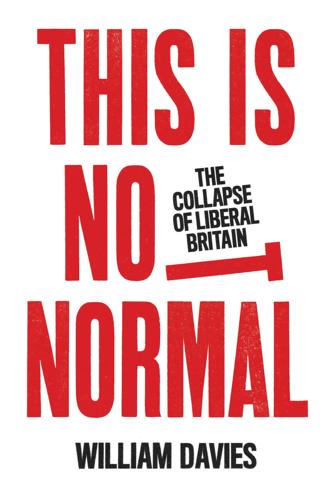
This Is Not Normal: The Collapse of Liberal Britain
by
William Davies
Published 28 Sep 2020
There is one emerging economic model that ties all of these strands together, satisfying regressive nineteenth-century liberals, techno-utopian libertarians, communitarian conservatives, corporate elites and policy pragmatists equally. This is the cluster of platforms and services known as the ‘sharing economy’. These seek to push a rentier mentality into more and more corners of society, making the ownership of assets (homes, bedrooms, cars, capital equipment, free time, and so on) the condition of an income. The opportunities for the precariat to be administered and employed via digital platforms have only just begun to be explored, but have huge potential.
…
The question to be taken more seriously, now that numbers are being constantly generated behind our backs and beyond our knowledge, is where the crisis of statistics leaves representative democracy. On the one hand, it is worth recognising the capacity of long-standing political institutions to fight back. Just as ‘sharing economy’ platforms such as Uber and Airbnb have recently been thwarted by legal rulings (Uber being compelled to recognise drivers as employees, Airbnb being banned altogether by some municipal authorities), privacy and human rights law represents a potential obstacle to the extension of data analytics.
…
The state’s job was to keep interest rates low on the assumption that people wanted to own assets, and otherwise to maintain a ‘level playing field’ so they could reap the rewards of all that hard work. Clearly most people cannot be conceived of as entrepreneurs in a neoliberal society – though the ‘sharing economy’ is now belatedly pressing that Thatcherite dream more deeply into the fabric of society – but they are assumed to be exerting themselves in order to become something better: richer, happier, healthier and so on. They are optimisers, just as economists assume in their models. May has replaced ‘hard-working families’ with ‘ordinary people’, which includes the ‘working class’.
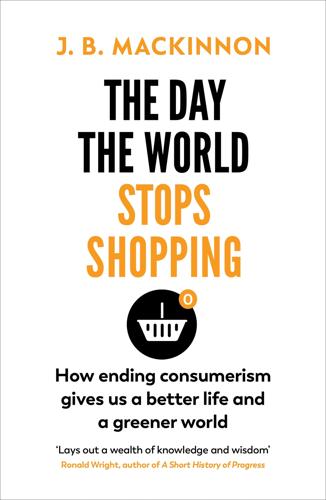
The Day the World Stops Shopping
by
J. B. MacKinnon
Published 14 May 2021
By 2021, the entire European Union was preparing to embed a “right to repair”—better access to the tools, parts and information needed to fix products—in its consumer policies, with a further goal to provide shoppers with labels indicating how long a product should last. Durability is especially important to the sharing economy. Sharing goods was initially promoted as an action that reduced consumption by its very nature—common sense tells us that if people share, say, a car or an electric slow cooker, then each of them does not need to own one. The sharing economy proved to be much more complicated than that, most famously in the case of ride-hailing schemes, which, rather than inspiring people to reject car ownership, led many to take more trips using services like Uber and fewer by foot, bicycle or public transit.
…
“What’s the grand term? A ‘paradigm shift,’” Defriend said. Every One Every Day operates in the consumerist world—one of its goals is to generate a hundred new businesses in Barking and Dagenham within five years—but also outside of it. A lot of sharing goes on, but Defriend does not consider it a “sharing economy,” because that term has been hijacked by for-profit businesses like ride-hailing and home rental. In Barking and Dagenham, sharing is often as simple and immediate as a group of women drawing lines on the floor of a workspace to mark out an area where they can take turns caring for each other’s children.
…
See also planned obsolescence “occasional geniuses,” 238 Oe, Kenzaburo, 260 one-planet level, 35–36 one-planet lifestyle, 35 one-planet living, 33, 37 Oppenheim, Leonora, 115–18 “ordeal of performance,” 103 Organization for Economic Co-operation and Development, 150 Osram, 145 outdoor industry, 113 “outdoor rooms,” 37 overconsuming, 32, 90, 281 overconsumption, 10, 138, 290 “oversupply,” 111 Packard, Vance, 145 Paez, Fernanda, 31, 33–34, 36, 40–41 Pan-American Highway, 40 “pandemic pets,” 96 paradigm shift, 191 Paramus, New Jersey, 43–45, 50, 54 Partanen, Anu, 103–4 “participant observation,” 131 Participatory City Foundation, 188, 190 participatory culture, 188, 190–91, 193 Patagonia, 109–15, 139, 164–65, 175 Patagucci, 110 peer group influence, 100 “perceived time” approach, 180 “perfect tranquility,” 245–46 perpetual growth, 183, 219 personal growth, 125–26 Perth, Australia, 69–71, 77 Philips, 145 Phoebus, 145–46 Phoenix, Arizona, 24, 71, 139 pigeons, 231–32 Pike, Kenneth, 251 Piketty, Thomas, 86, 89 Pilling, David, 86 ping-pong balls, 61, 66 Planet America, 32 Planet Germany, 32 Planet Italy, 32 Planet Netherlands, 32 planned obsolescence, 29, 112, 145–48, 150, 220, 252 plastic, 1–2, 6, 10, Polar Furniture Enterprise, 131–133 Pollyannaism, 187 positional consumption, 101–2, 287 poverty, 34, 36, 85, 87, 89–90, 94, 103–4, 132, 135, 157, 264, 278 defining, 40 predictions, 232 versus simple life, 281 Pöyry, Varpu, 93–94, 105–6 prêt-à-jeter, 138 “primitive disaccumulation,” 133 Printers’ Ink, 146 product durability, 144, 149, 290 protest movement, 129, 291 psychology, and intrinsic values, 129 Pull & Bear, 157 Pynchon, Thomas, 146 Q’eqchi’ culture, 282–83 quality of life, 45, 175, 191, 217, 290 quarantine, 11, 53, 124, 126–27, 138, 249 Quito, Ecuador, 31, 33–34, 38, 40, 115 Rana Plaza disaster (2013), 27 Ratner moment, 18, 109 Ratner, Gerald, 18 Reagan, Ronald, 213 rebound effects, 215–20, 255 redistribution of wealth, term, 280, 290 Renaissance Italy, 165, 210, 219 “respending,” 215 retail apocalypse, 291 “retail therapy,” 103 Rhoades, Cyndi, 166–68 “right to repair,” 150 right whales and “marine roads,” 227 noise, effect on, 226 ship strike, 226 studying, 225–227 Rinderle, Amanda, 161–62, 288–89 Riyead, Fakir Wahiduzzaman, 159 Roaring Twenties, 20, 95 Robin, Vicki, 240 Roblox, 251 Rolland, Rosalind, 225 Roosevelt, Franklin, 84 Rousseau, 54 Ruben, Andy, 163–65, 294 running below capacity, 275–76, 278, Russia, 33, 39, 84, 95, 131–36 RVs, 23 sabbath, 14, 43–46, 48–9, 51–54, 267 Sado Island, 259–62, 264, 266–68, 270–72, 293 Sahlins, Marshall, 4–5, 275 sakoku (“closed country”), 175–76 sakura mochi, 171 Sandia National Laboratories, 144 savers, 216 Schlesinger, James, 21 Schor, Juliet, 100, 239 Schwieger, Sarah, 285 Science Advances, 70 “scramble,” 268 Sears, 159 Second Life, 253 Second World War, 20, 22, 47, 62, 73, 87, 93, 95, 98, 134, 170, 177, 187, 219 Seinfeld, 28 self-respect, complacency of, 101, 104 Sey, Jen, 137–39 sharing, 165, 279, 281–82 demand sharing, 280 sharing economy, 150, 191 word, 280 shatta-gai, 261 Shelby Electric, 143 Shi, David, 53 shikata ganai, 264 shinui, 46–47 shiyang, 20 sho, 273 shohi, 273 shopping. See adaptation, not-shopping; collapse, not-shopping; first days, not-shopping; transformation; not-shopping end of, 25, 87, 136, 170, 172, 227 impacts of, 197–98 “shortage economy,” 132 short-term thinking, 176 shoten-gai, 261 Shove, Elizabeth, 201–3, 206–7, 290 Shulevitz, Judith, 43, 53–54 Silicon Valley, 4 Siltala, Juha, 96 simplicity, 6, 53, 243–44, 247, 281, 287.
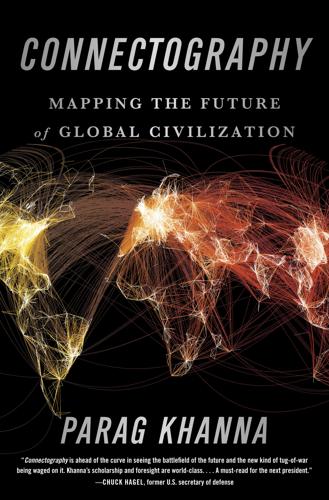
Connectography: Mapping the Future of Global Civilization
by
Parag Khanna
Published 18 Apr 2016
In the aftermath of the financial crisis, Germany introduced a Kurzarbeit scheme to keep workers in their jobs part-time while using their remaining time to up-skill in programs jointly funded by industry, unions, and government. Is the sharing economy another path to economic salvation? Platforms that enable the rental of assets owned by others such as automobiles or housing have created economic activity that is expected to reach over $300 billion by 2020. Uber and Airbnb enjoy skyrocketing valuations because they provide the marketplace for billions of connected individuals to transact among themselves. Sharing economy is in fact a misnomer: It is rather the full flourishing of self-regulated peer-to-peer capitalism, one in which people get paid for work in micro-increments, but as they do, connectivity becomes the foundation of whatever stability they have.
…
That same year, Huawei sued fellow Shenzhen-based ZTE in a German court for the same reason! PRINTING, SHARING—AND TRADING The biggest threat to current patterns of global trade comes from the combination of 3-D printing (which allows more products to be manufactured locally at “home”) and the sharing economy (by which fewer goods are purchased but existing goods are consumed as services). Local prototyping and mass production together could bring about a severe long-term contraction in global shipping, inventories, and warehousing. If DHL’s largest clients—the U.S. military and hardware companies such as HP—suddenly printed all their components on-site at bases or client facilities, the courier business could go bust.
…
A new stage has even entered the supply circle before recycling—up-cycling—by which materials are repurposed in higher-value ways: Plastic becomes furniture, tires become boots, shipping containers become two-bedroom homes for dense cities or refugee camps. A supply chain world could be more sustainable if it follows a principle that animates the sharing economy: Unused value is wasted value. COMING HOME—BUT ONLY TO SELL AT HOME A half century ago, GE manufactured consumer goods at Appliance Park in Louisville, Kentucky, an SEZ-like town with its own power plant, fire department, and zip code. Rising costs, labor disputes, and outsourcing pushed down its employment from a peak of twenty thousand workers in the 1970s to only eighteen hundred by 2008.
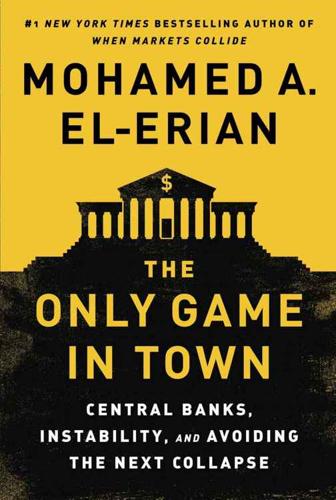
The Only Game in Town: Central Banks, Instability, and Avoiding the Next Collapse
by
Mohamed A. El-Erian
Published 26 Jan 2016
Meanwhile, and perhaps more important, rapid technological innovations have enabled and empowered individuals like never before (something that we will return to later in the book). Today, so many more people in so many more places are enabled to connect and participate, and, soon, they will also be able to make a lot more things. It is the “sharing economy” in which so many more citizens can be productive entrepreneurs and collaborators, including by deploying existing (underutilized) assets. But it is a world that displaces existing workers and makes the political center weaker. More concerning, it is a world that makes cyberterrorism and nonstate terrorism more meaningful threats.3 Governments that look to the technological revolution to materially improve the welfare of both current and future generations while also countering its dark side need to understand the dual nature of these transformative innovations.
…
Banque de France, “Macroprudential Policies: Implementation and Interactions,” Financial Stability Review, April 2014. 6. Mohamed A. El-Erian, “3 Steps to Remove Financial System Risk,” Harvard Business School, August 15, 2007, http://hbswk.hbs.edu/item/5745.html. 7. Mohamed A. El-Erian, “Creative Self-Disruption,” Project Syndicate, April 7, 2015, https://www.project-syndicate.org/commentary/consumer-sharing-economy-adaptation-by-mohamed-a--el-erian-2015-04. 8. Steve Lohr, “Banking Start-ups Adopt New Tools for Lending,” New York Times, January 19, 2015, http://www.nytimes.com/2015/01/19/technology/banking-start-ups-adopt-new-tools-for-lending.html. 9. For full disclosure, I have been recently involved in one of these efforts—“Payoff”—as an investor and board member of a start-up seeking to improve the financial services offered to households and small businesses.
…
Richard Dobbs, James Manyika, and Jonathan Woetzel, No Ordinary Disruption: The Four Global Forces Breaking All the Trends (New York: PublicAffairs, 2015). 2. Mohamed A. El-Erian, “Creative Self-Disruption,” Project Syndicate, April 7, 2015, http://www.project-syndicate.org/commentary/consumer-sharing-economy-adaptation-by-mohamed-a--el-erian-2015-04. CHAPTER 29: WHAT HISTORY TELLS US 1. Richard Dobbs, James Manyika, and Jonathan Woetzel, No Ordinary Disruption: The Four Global Forces Breaking All the Trends (New York: PublicAffairs, 2015). 2. Daniel Kahneman, Thinking, Fast and Slow (New York: Farrar, Straus & Giroux, 2011). 3.
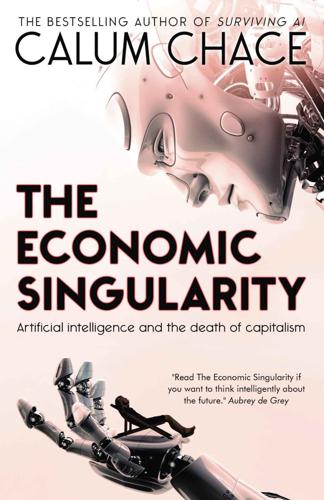
The Economic Singularity: Artificial Intelligence and the Death of Capitalism
by
Calum Chace
Published 17 Jul 2016
Parts of the economies of developed countries are being fragmented, or Balkanised, with more and more people working freelance, carrying out individual tasks which are allocated to them by platforms and apps like Uber and TaskRabbit. There are many words for this phenomenon: the gig economy, the networked economy, the sharing economy, the on-demand economy, the peer-to-peer economy, the platform economy, and the bottom-up economy. Is this a way to escape the automation of jobs by machine intelligence? To break jobs down into as many component tasks as possible, and preserve for humans those tasks which they can do better than machines?
…
Whether or not the new forms of freelancing opened up by Uber, Lyft, TaskRabbit, Handy and so on are precarious is a matter of debate, especially in their birthplace, San Francisco. Are the people hired out by these organisations “micro-entrepreneurs” or “instaserfs” - members of a new “precariat”, forced to compete against each other on price for low-end work with no benefits? Are they operating in a network economy or an exploitation economy? Is the sharing economy actually a selfish economy? Whichever side of this debate you come down on, the gig economy is a significant development: a survey by accounting firm PricewaterhouseCoopers found that as many as 7% of US adults were involved in it.[cclxv] But our concern here is not whether the gig economy is a fair one.
…
mt=2&i=361020299 [cclx] http://uk.businessinsider.com/high-salary-jobs-will-be-automated-2016-3 [cclxi] http://www.fiercefinanceit.com/story/will-regulatory-compliance-drive-artificial-intelligence-adoption/2016-01-05 [cclxii] http://www.liverpoolecho.co.uk/news/business/liverpool-fc-sponsor-standard-chartered-11104215 [cclxiii] http://www.cnbc.com/2015/12/30/artificial-intelligence-making-some-bosses-nervous-study.html [cclxiv] Assuming the work is happening on Earth. Wikipedia offers a more general but less euphonious definition: “Work is the product of the force applied and the displacement of the point where the force is applied in the direction of the force.” [cclxv] http://www.wsj.com/articles/can-the-sharing-economy-provide-good-jobs-1431288393 [cclxvi] https://www.edge.org/conversation/kevin_kelly-the-technium [cclxvii] https://www.singularityweblog.com/techemergence-surveys-experts-on-ai-risks/ [cclxviii] http://uk.businessinsider.com/social-skills-becoming-more-important-as-robots-enter-workforce-2015-12 [cclxix] http://www.history.com/topics/inventions/automated-teller-machines [cclxx] http://www.theatlantic.com/technology/archive/2015/03/a-brief-history-of-the-atm/388547/ [cclxxi] http://www.wsj.com/articles/SB10001424052748704463504575301051844937276 [cclxxii] http://kalw.org/post/robotic-seals-comfort-dementia-patients-raise-ethical-concerns#stream/0 [cclxxiii] http://viterbi.usc.edu/news/news/2013/a-virtual-therapist.htm [cclxxiv] http://observer.com/2014/08/study-people-are-more-likely-to-open-up-to-a-talking-computer-than-a-human-therapist/ [cclxxv] http://mindthehorizon.com/2015/09/21/avatar-virtual-reality-mental-health-tech/ [cclxxvi] http://www.handmadecake.co.uk/ [cclxxvii] http://www.bbc.co.uk/news/magazine-15551818 [cclxxviii] http://www.oxforddnb.com/view/article/19322 [cclxxix] http://www.ft.com/cms/s/2/c5cf07c4-bf8e-11e5-846f-79b0e3d20eaf.html#axzz3yLGlrr1J [cclxxx] http://www.bls.gov/cps/cpsaat11.htm [cclxxxi] https://en.wikipedia.org/wiki/No_Man%27s_Sky [cclxxxii] http://www.ft.com/cms/s/2/c5cf07c4-bf8e-11e5-846f-79b0e3d20eaf.html#axzz3yLGlrr1J [cclxxxiii] http://www.inc.com/john-brandon/22-inspiring-quotes-from-famous-entrepreneurs.html [cclxxxiv] http://www.uh.edu/engines/epi265.htm [cclxxxv] http://googleresearch.blogspot.co.uk/2015/06/inceptionism-going-deeper-into-neural.html [cclxxxvi] http://www.bbc.co.uk/news/technology-35977315 [cclxxxvii] http://fee.org/freeman/the-economic-fantasy-of-star-trek/ [cclxxxviii] https://www.wired.co.uk/news/archive/2012-11/16/iain-m-banks-the-hydrogen-sonata-review [cclxxxix] http://www.ft.com/cms/s/0/dfe218d6-9038-11e3-a776-00144feab7de.html#axzz3yUOe9Hkp [ccxc] http://www.brautigan.net/machines.html [ccxci] As noted in chapter 3.4, Anders Sandberg is James Martin Fellow at the Future of Humanity Institute at Oxford University.
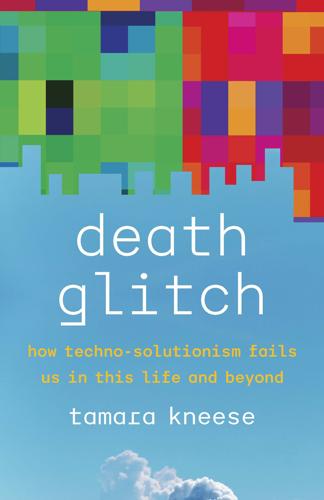
Death Glitch: How Techno-Solutionism Fails Us in This Life and Beyond
by
Tamara Kneese
Published 14 Aug 2023
The Internet of Things is composed of invisible angels with names like Siri, Alexa, and Cortana. As systems age, break down, and decay, however, it is people who must keep them alive. Such objects are manufactured with the expectation of smartness, but there are plenty of not-so-smart objects that are now networked with digital platforms. The sharing economy integrates cars, apartments, and other everyday objects into automated systems. On Airbnb, for example, the listings of the dead continue to persist, as the company has no mechanism for sorting out which hosts have died. Automation makes it hard to tell the difference between the objects of the living and the dead.
…
Aside from the technical glitches, there was the matter of profitability. Stewart told me that Kelley was hoping to make $150 a night on Airbnb with the house, thinking that people would be happy to pay that much to stay at a condo with smart features. The house never attracted enough tourists, however, and failed to turn a profit as part of the so-called sharing economy. As of December 2019, the Transhuman House is no more.76 The father and son living there, Kelley, and Stewart packed all of the equipment, tools, art, and books into a storage unit. Unfortunately, they had to leave the touchscreen behind. In the future, Kelley may create a VR simulation of the house, but he is reluctant to do so, writing that it “feels like a memorial in a way.”
…
“Built to Last.” Logic Magazine, August 31, 2020. logicmag.io/care/built-to-last. Hicks, Mar. Programmed Inequality: How Britain Discarded Women Technologists and Lost Its Edge in Computing. Cambridge: MIT Press, 2017. Hill, Kashmir. “Airbnb Has a Dead People Problem: The Morbid Side of the Sharing Economy.” Splinter, February 11, 2015. splinternews.com/airbnb-has-a-dead-people-problem-the-morbid-side-of-th-1793845201. Hobart, Hi’ilei Julia Kawehipuaakahaopulani, and Tamara Kneese. “Radical Care: Survival Strategies for Uncertain Times.” Social Text 38, no. 1 (142) (2020): 1–16. doi.org/10.1215/01642472-7971067.

Four Futures: Life After Capitalism
by
Peter Frase
Published 10 Mar 2015
In a society like ours, characterized by extreme concentrations of wealth and income, the market allocates social power in proportion to money—thus producing a society of “one dollar, one vote.” Consider the example of companies like the car-sharing service Uber, the errand-outsourcing website TaskRabbit, and the short-term rental market AirBnB. All represent themselves as part of the “sharing economy,” in which individuals make small exchanges of goods and services under conditions of fundamental equality. The idea is that I might rent out my apartment when I’m on vacation, and hire you to drive me somewhere when you have the spare time, and that we all therefore end up with a bit more convenience and a bit more money.
…
Ultimately, this means overcoming the capitalist system of resource distribution and approaching a world in which control of wealth is equalized—that is, where “the distribution of the means of payment” (to use Gorz’s phrase cited in Chapter 2) is essentially equal. But short of that, there are ways to turn some of the predatory “sharing economy” businesses into something a bit more egalitarian. Economics writer Mike Konczal, for instance, has suggested a plan to “socialize Uber.”26 He notes that since the company’s workers already own most of the capital—their cars—it would be relatively easy for a worker cooperative to set up an online platform that works like the Uber app but is controlled by the workers themselves rather than a handful of Silicon Valley capitalists.

Simple Matters: Living With Less and Ending Up With More
by
Erin Boyle
Published 12 Jan 2016
Other websites like Call2Recyle (call2recycle.org) and Earth911 (earth911.com) have easy-to-use features that allow you to enter the particulars about your electronic device and help you find the best way to get rid of it. As stated above, many manufacturers, like Apple, also accept used and broken items for recycling. The books that we keep in our house are generally true favorites. Everything else gets borrowed from the library or read and then donated. Our neighborhood happens to have an informal book sharing economy, where people leave books on their stoops for others to scoop up. What Do I Need to Keep? A Practical List The list of paper documents that the average person needs to keep at home feels enormous at first pass, but it is much simpler after closer inspection. In an age when most things have gone digital, there’s less need to lug around a paper trail.
…
Small for my age, I was almost always able to fit into the clothes that my closest friends were outgrowing. Their mothers would cart garbage bags of used and outgrown clothes to our house, and I would rifle through the piles, pulling out what I liked best. Somehow it didn’t dawn on me to be embarrassed that I was wearing my classmates’ castoffs. This kind of sharing economy is definitely something to be encouraged. But it comes with a caveat: I’ve found that when things are given to us as gifts, it can be even more difficult to say no them. But a home overflowing with other people’s discarded items is still a home overflowing. Give yourself permission to say no.
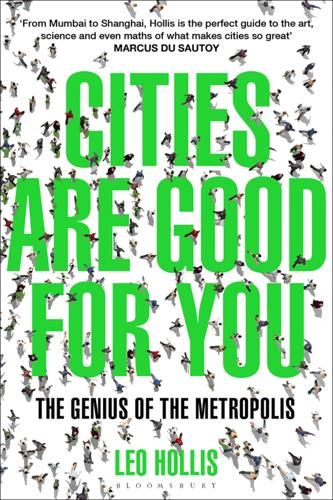
Cities Are Good for You: The Genius of the Metropolis
by
Leo Hollis
Published 31 Mar 2013
The fact that we no longer trust politicians and the police means not that we have lost trust but that we have placed our trust in other relationships and forms. Rather than signalling the end of trust, instead what we are seeing is its redistribution into other systems such as the proliferation of open source and sharing communities – what Burnham calls a ‘sharing economy’. As a result, as hierarchical trust has declined, a belief in the commons has become more important, as we ‘discover new values, and new ways of creating and extending trust, outside of existing damaged systems’.37 The Sculpt Me Point exhibit by Marti Guixe, Amsterdam, 2008 But, I asked, how does this reflect on the way we build cities?
…
Yet more importantly than this, Burnham reminded me that trust was not a building, it was not bricks and stones; instead it was the sharing of the process of building that created and nurtured trust. That we no longer trust governments, corporations and police does not mean that we have lost the art of trusting. We are already more trusting than we imagine in a new sharing economy that encompasses car clubs, Airbnb; World Book Night; peer-to-peer platforms; Wikipedia; Instagram; open source software such as the Linux operating system and the Firefox browser, as well as the Creative Commons code of practice. However, we need to be aware of how the uses of urban spaces can impact on this.
…
R. and Podolny, J., ‘William Bratton and the NYPD’, Yale School of Management, Yale Case 07-015, 12 February 2008, p. 14. 15. www.economist.com/node/12630201 16. Putnam, R., Bowling Alone: The Collapse and Revival of American Community, Simon & Schuster, 2001, p. 115. 17. Ibid., p. 19. 18. Minton, A., Ground Control: Fear and Happiness in the 21st-Century City, Penguin, 2009, p. 21. 19. Griffiths, R., The Great Sharing Economy, Cooperatives UK, Penguin, 2012, p. 1. 20. Ibid., pp. 4–11. 21. www.shareable.net/blog/policies-for-a-shareable-city 22. www.shareable.net/blog/policies-for-a-shareable-city-11-urban-agriculture 23. www.theuglyindian.com Chapter 6: Trust in the city 1. www.tampabay.com/news/humaninterest/article1221799 2.
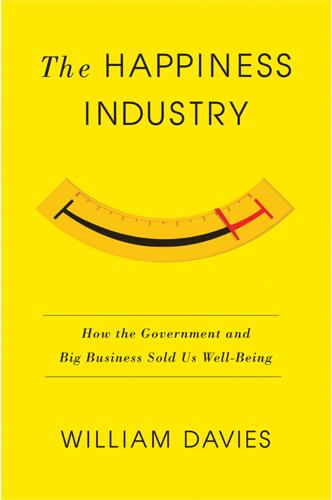
The Happiness Industry: How the Government and Big Business Sold Us Well-Being
by
William Davies
Published 11 May 2015
Managers hope that their employees will also act as ‘brand ambassadors’ in their everyday social lives and seek advice on how to influence them to do this. Meanwhile, neuromarketers have begun studying how successfully images and advertisements trigger common neural responses in groups, rather than in isolated individuals. This, it seems, is a far better indication of how larger populations will respond.7 The rise of the ‘sharing economy’, exemplified by Airbnb and Uber, and studies such as the pay-it-forward experiment, offer a simple lesson to big business. People will take more pleasure in buying things if the experience can be blended with something that feels like friendship and gift exchange. The role of money must be airbrushed out of the picture wherever possible.
…
See Chicago School of economics divorce of from psychology, 61, 69 evolution of discipline of, 54 exceptional status attributed to, 26 function of, according to Coase, 156 happiness economics, 5, 74, 229, 252 as mathematical problem, 51 neo-classical economists/economics, 113, 123, 181 as phenomenon of the mind, 59 pop-economics, 152 reunion of with psychology, 64, 182 subjective sensation and, 55 as winner take all, 160 economies classical political economy, 49–50, 57 knowledge-based economy, 136 political economy, 50, 56 sharing economy, 188 social economy, 190 Edgeworth, Francis, 60, 84 Eisenhower, Dwight David, 255 Ello, 213 emotion definition, 75 as market research industry’s preferred version of happiness/pleasure, 74 emotional contagion, 225 empiricism, 27, 30, 152, 269 employee engagement, 106–9, 113, 126 employee fitness-tracking programmes, 240 employee-owned businesses, advantages of, 272 end of theory, 237 Enlightenment, 7, 19, 23, 27, 47, 85, 251 ennui, costs of, 108 enthusiasm, 251 entropy, law of, 115 ergonomics, 50, 116, 137 Essay on Government (Priestley), 13 European Commission, 255 European Management Forum, 1 evidence-based policy-making, 17 existentialism, 38 experience medicine, 126 experienced utility, measurement of, 64 experimental psychology, 81 Exxon Valdez oil spill, 62–3 eye tracking, 72, 97 eyes, focus on by Wundt, 79–81 Facebook, 10, 74, 100, 189, 204, 206, 207, 208, 209, 210, 213, 220, 221, 224, 225, 238, 239, 257, 269 face-reading software, 222 facial coding, 76, 97 facial scanning/face-scanning technology, 72, 222, 276 farm experiences, benefits of, 246 fatigue, businesses’ concern about, 50, 116, 120 Fatigue Laboratory (Harvard Business School), 120, 122 FearFighter, 222 Fechner, Gustav as coining pleasure principle, 29 distrust of language, 32 dualism of, 28, 30, 265 on energy, 29, 115 as influenced by Hegel, 30 as monist, 33 as new age thinker, 28 parallels in English psychology to, 48 psychophysical methods of, 60 psychophysical parallelism, 259 as representing relationships between mind and world as numerical ratio, 35 on solving mind–body problem using mathematics, 27, 28 on theory of psychology, 29 weight-lifting experiments of, 30–1, 38, 49, 50, 59, 78 Federal Drug, Food and Cosmetic Act (US) (1938), 170 feedback loops/feedback mechanisms, 95, 103, 230, 276 feelings, adjustment of, 31–2 Ferriss, Tim, 112 fit notes, 112 Fitbit, 240 fitness-tracking ticket machine, 240 fMRI, 32, 231, 237, 241, 261, 262 focus groups, 102, 125 Foucault, Michel, 280n22 FP7 research (European Commission), 255 Freakonomics (Levitt and Dubner), 152 free markets, 19, 49, 57, 69, 140, 154, 181, 185, 274 Free: The Future of a Radical Price (Anderson), 185 Freud, Sigmund, 29, 164, 169, 198, 200, 203 Friedman, Milton, 149, 150, 154, 156–7, 159, 160, 161 friendship, 186, 187, 188, 191, 197, 201, 205, 208, 211, 212, 222, 225, 243, 258 friendvertising, 189 Gale, Harlow, 83, 85 Gallup (poll), 9, 106, 146, 219, 272 Gallup, George, 101 gaming, 205–6 The Genealogy of Morals (Nietzsche), 84 General Adaptation Syndrome, 129 General Medical Council (Britain), 110 General Motors (GM), 215–16 General Phonograph Manufacturing Company, 200 General Sentiment, 223 generosity, 185, 196 Georgetown University, 142 German Automobile Manufacturers’ Association, 217 Germany, influx of Americans taking university degrees and research training in, 83 Gershon, Michael, 231 Gilbert, Jeremy, 213 Gladwell, Malcolm, 72 global economic management, 3 Google, 37, 193 Graham, Richard, 205, 206 gratitude, 33, 131, 186, 187, 194, 196, 210, 276 group identity, 123 group psychology, 124, 125 Growing Well, 246, 247, 248, 250 Guze, Samuel, 169 Hague, William, 139–40, 141, 142, 144 Haidt, Jonathan, 73 Hall, G.
…
See positive psychology promise of practical utility of, 91 reunion of with economics, 64, 182 social psychology, 125, 189, 266 theory of, as balancing act, 67 The Psychology of Advertising (Scott), 86 psychopharmacology, 162 psychophysical parallelism, 259 psychophysics, 29, 30, 31 psychosomatic interventions/management/programmes/theories, 122, 124, 128, 135 psychotherapy, 124, 127 pulse rate, 25, 26, 27, 37, 79 punishment, 16, 19, 22, 23, 179, 183, 239 PwC, 119 Qualia, 36 quality of life measures, 126 quantitative sociological research, 98 quantified community, 233, 234 quantified self apps, 221 quantified self movement, 221, 228 quants, 237 questionnaires, 165, 175, 176 random acts of managerial generosity, 184 randomized sampling methods, 97 Rapley, Mark, 250 Rayner, Rosalie, 93 Reagan, Ronald, 144, 149, 159 Realeyes, 72 real-time health data, 137 real-time social trends, 224 recessions, 67–8, 252 Recognizing the Depressed Patient (Ayd), 164 reductionism, 27, 264 research ethics, 91–2, 225 resilience training, 35, 273 Resor, Stanley, 93–4, 95, 96 retail culture, 58 Ricard, Matthieu, 2, 4 Robbins, Lionel, 154 Robins, Eli, 169 Rockefeller Foundation, 97, 99, 121 Rogers, Carl, 146 Roosevelt, Franklin, 101, 146 Rowntree, Joseph, 99 RunKeeper, 240 Ryanair, 185 Salter, Tim, 110 sampling methods, 97–8 Santa Monica, California, 4 São Paolo, Brazil, Clean City Law, 275 scales, 146, 165, 175, 176 scanning technology, 75–6 scent logos, 73 Schrader, Harald, 44 scientific advertising, 215 scientific management, 118–19, 120, 136–7, 235 scientific optimism, 242 scientific politics, 77, 88, 145 scientists, as source of authority, 147–8 Scott, Walter Dill, 83, 85 screen time, 207 second brain, 231 secular religions, 260 selective serotonin reuptake inhibitors (SSRIs), 163, 166 self-anchored striving, 147, 166, 175 self-anchoring striving scale, 146 self-forming groups, 200 self-help gurus, 210 self-help literature, 247 self-improvement, 212 self-monitoring, 258 self-optimization, 213 self-reflection, 211 self-surveillance, 221, 230 Seligman, Martin, 165, 277n5 Selye, Hans, 128–31, 133, 264 The Senses and the Intellect (Bain), 48 sentiment analysis/tracking, 6, 221, 223, 261 sexual orientation disturbance, 172 sharing economy, 188 shopping, 58, 74, 93, 188, 239 sick notes, 112 Sing Sing prison, 201 Smail, David, 250 smart cities, 220, 224, 239 smart homes, 239 smart watches, 37 smartphones, 10, 207, 222, 230 smiles/smiling, 36–7, 38 Smith, Adam, 49, 50, 52, 55 social, 1, 36, 184, 186, 187, 188, 190, 191, 203, 204, 205, 207, 208, 211–12 social analytics, 188, 191, 193, 196 social capitalism, 212 social contagion, science of, 257 social economy, 190 social epidemiology, 9, 250, 254 social media, 188, 189, 199, 203, 207, 208–9, 213, 224, 261, 274 social media addiction, 206, 207 social network analysis, 204, 208 social networks, 193, 194, 195, 196, 213, 225 social neuroscience, 193, 195, 213, 214 social obligation, 184 social optimization, 181–214 social prescribing, 194, 212, 246, 271 social psychology, 125, 189, 266 social research, 98, 202, 226 social science, as converging with physiology into new discipline, 195 sociology, 254 sociometric analysis, 199 sociometric maps, 202 Sociometric Solutions, 239 sociometry, 199, 201, 202, 203 Spengler, Oswald, 121 Spitzer, Robert, 171–3, 176, 271 sponsored conversations, 189 sport, as virtue for political leaders, 140 sporting metaphors, 141 SSRIs (selective serotonin reuptake inhibitors), 163, 166 St Louis school of psychiatry, 169, 170, 171, 173, 174, 176, 179 Stanton, Frank, 99 Stigler, George, 150, 152, 153, 156–7, 158, 160 stress, 37, 129, 130, 131, 132, 133, 175, 250, 262, 272, 273 Stuckler, David, 252 subjective affect, science of, 6, 7 subjective feelings, relationship with external circumstances, 254 subjective sensation, 30, 45, 55, 61 Suicide (Durkheim), 227 Sully, James, 59, 84 surveillance, 231, 237, 238, 240, 242.
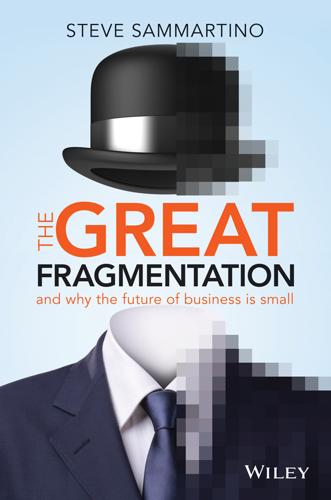
The Great Fragmentation: And Why the Future of All Business Is Small
by
Steve Sammartino
Published 25 Jun 2014
We can access these items with very little friction. This reduced friction creates opportunity for temporary connections with goods and services, which, in a physical world, would be too costly and cumbersome. This means where we used to have to buy items, we can now instead pay to use them when we need them. The sharing economy In a sharing economy we can enjoy the benefit of usage and status on a temporary basis. It’s an obvious solution when you consider that we only use much of what we own for a fraction of the time that it’s available to us, excluding such things as furniture and the fridge. Quite often, we now share or purchase collectively whatever we need, paying only for the time we use it.
…
The interest graph in action The anti-demographic recommendation engine Chapter 7: The truth about pricing: technology and omnipresent deflation Technology deflation Real-world technology deflation The free super computer The crux is human It’s getting quicker Technology curve jumping Technology stacking Omnipresent deflation Consumer price index trickery Connections and the impact on prices Economic border hopping The new minimum wage Notes Chapter 8: A zero-barrier world: how access to knowledge is breaking down barriers So what’s changed? Why do we even own stuff? The sharing economy Personal access Physical access Ownership is a mental state Commercial access Access to everything A personal global factory The clothing company The two-way street The laptop corporation Chapter 9: The infinite store: rebooting retail The physical and virtual challenges Retail was easy The retail revolution What retail forgot The discount death spiral Price and range equalise Same brand, different plan The questions that matter Selling online If you make, you retail (big and small) Border hopping and digital reinvention Experience > item Clues in coffee culture Chapter 10: Bigger than the internet: 3D printing A virtual physical reality The history of technology repeats The home factory Piracy on steroids Dad vs daughter Notes Chapter 11: Screen play: post–mass media Television is no more Device convergence Digital demarcation Mass-media platform fragmentation The legacy media challenge Blogs vs The New York Times Who do you trust?
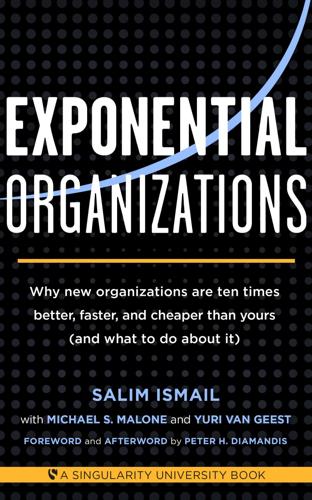
Exponential Organizations: Why New Organizations Are Ten Times Better, Faster, and Cheaper Than Yours (And What to Do About It)
by
Salim Ismail
and
Yuri van Geest
Published 17 Oct 2014
BioCurious, another Silicon Valley invention, is an open wetlab where enthusiasts take courses, use centrifuges and test tubes, and synthesize DNA. Genspace offers a similar resource in New York City. This rent-not-own philosophy further extends the current craze of collaborative consumption and the sharing economy. There’s less and less need to own a factory, a laboratory or even a scientific tool. Instead, why not rent those assets, reducing up-front investment and leaving the ownership and maintenance of state-of-the-art facilities to someone else? Further, given that the control mechanisms offered by software and the Internet allow the management of these capabilities at a distance, why build your own?
…
Most have improved a bit in recent years—almost by default, thanks to social media—but even now a company’s online presence is mostly limited to a Facebook page half-heartedly managed by the marketing department. How can companies rise above prosaic participation in the Web 2.0 world and create a truly social business? How can they cooperate with the sharing economy or with peer-to-peer startups to boost innovation internally? How can they build a vibrant community around their products that will enable them to use P2P forums to drive down support costs? Zappos spends a great deal of time and money managing its community, and is an excellent example of a company that has launched a truly social business.
…
Currently, one hundred twenty business leaders and thirty-four Fortune 500 companies are council members of Crowd Companies and, according to Owyang, over eighty global brands have experimented with these techniques. Owyang isn’t alone in his thinking: Shel Israel, co-author of the book Age of Context: Mobile, Sensors, Data and the Future of Privacy, noted recently that there have been many such labels attached to this new movement: the Sharing Economy, the Mesh Economy, Collaborative Consumption and the Collaborative Economy. We actually think Exponential Organizations works quite well as a label. But whatever the ultimate designation, it is clear that ExO attributes can and are being implemented by large organizations. In fact, as we wrote this book we were surprised to see how fast that implementation is occurring.
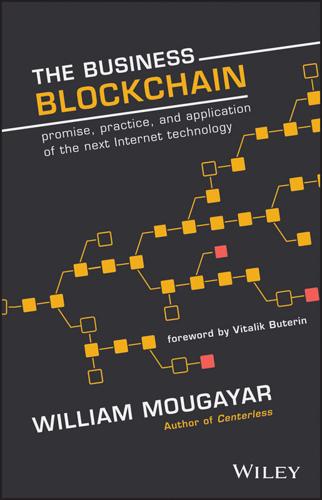
The Business Blockchain: Promise, Practice, and Application of the Next Internet Technology
by
William Mougayar
Published 25 Apr 2016
Applications ranging from Apple's phones to WhatsApp have started building in forms of encryption that are so strong that even the company writing the software and managing the servers cannot break it. For those who prefer corporations to government as their boogeyman of choice, the advent of “sharing economy 1.0” is increasingly showing signs of failure to fulfill what many had originally seen to be its promise. Rather than simply cutting out entrenched and oligopolistic intermediaries, giants like Uber are simply replacing the middleman with themselves, and not always doing a better job of it. Blockchains, and the umbrella of related technologies that I have collectively come to call “crypto 2.0,” provide an attractive fix.
…
The blockchain moves the power of transactions closer to the individuals, and it empowers any user on earth to align themselves with a decentralized application or organization, and start generating or moving their own nucleus of crypto value. Another benefit of this phenomenon is to put the sharing economy on steroids, as it melds (crypto) capital and labor with mobile, location-agnostic marketplace environments. We are in the early stages of understanding the movement, distribution and creation of “value” outside of the traditional norms of currency, commodity and property as the main vehicles for value transfer and appreciation.

Slow
by
Brooke McAlary
Published 22 Aug 2017
Keep in mind that these suggestions won’t always be applicable to your situation, but embracing them where you can means the space you work hard to free up in your decluttering efforts will stay free. Share things The sharing economy is growing at a rapid pace, and the idea of sharing resources is starting to take hold in the mainstream. In her 2012 TED talk, Rachel Botsman spoke of the sharing economy as a way to minimise buying things that have a limited use. Talking of handheld drills, which, on average, are used for a total of 12–13 minutes throughout their entire life, she exclaimed, ‘You need the hole, not the drill!’
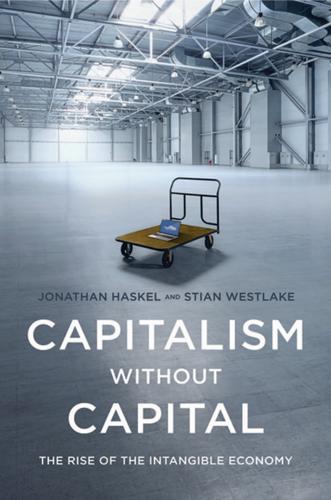
Capitalism Without Capital: The Rise of the Intangible Economy
by
Jonathan Haskel
and
Stian Westlake
Published 7 Nov 2017
But the process of “software eating the world,” in venture capitalist Marc Andreessen’s words, is not just about software: it involves other intangibles in abundance. Consider Apple’s designs and its unrivaled supply chain, which has helped it to bring elegant products to market quickly and in sufficient numbers to meet customer demand, or the networks of drivers and hosts that sharing-economy giants like Uber and AirBnB have developed, or Tesla’s manufacturing know-how. Computers and the Internet are important drivers of this change in investment, but the change is long running and predates not only the World Wide Web but even the Internet and the PC. The rise of intangible investment becomes clear if we look at data for the economy as a whole.
…
And it’s also possible to think of examples of companies that have invested to create valuable organizational assets outside their own firms. The remarkable Apple supply chain that Tim Cook was responsible for developing is clearly a long-term source of value for Apple, allowing it to bring products to market extraordinarily quickly. A valuable asset of so-called sharing-economy businesses like Uber or AirBnB is typically their network of committed suppliers—Uber’s drivers or AirBnB’s hosts. This too is an asset of lasting value that both companies have invested heavily to develop (and which they invest to protect, for example, against legal actions requiring them to treat their suppliers as employees).
…
To put it another way, computers are physical devices that become useful and valuable when you fill them with useful, intangible information. Because computers and networks of computers deal in information, they also help make other intangible investment easier or more effective. Consider the network of big sharing-economy companies like Uber or AirBnB. There is nothing about their business models that absolutely requires computers and the Internet. Before everyone had a smartphone, there were networked cab companies, some of which, like London’s ComCab or Radio Taxis, used independent drivers. Before AirBnB, there were house-share clubs with brochures and telephone booking systems.
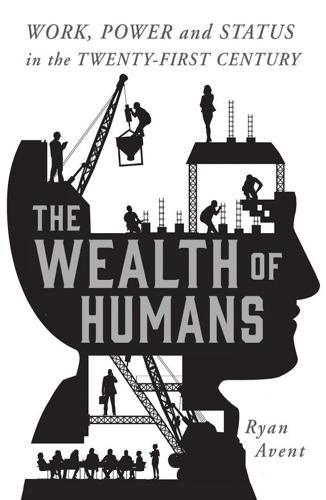
The Wealth of Humans: Work, Power, and Status in the Twenty-First Century
by
Ryan Avent
Published 20 Sep 2016
Moderate reformers will find themselves losing ground to politicians keen to unpick elements of the era of moderation, from the move towards freer trade and capital flows to the elimination of labour-market protections. Politicians will promise to make markets create good jobs: by mandating higher minimum wages, supporting occupational certification and other job protections, and pushing firms to regularize work in sharing-economy sectors – by requiring payment of benefits and the guarantee of a certain number of regular hours, for instance. The global economy probably won’t reward these efforts either. But they benefit from securing the support of portions of the electorate who receive protections from such measures – whose slice of the pie is cut a bit larger.
…
What’s more, ageing countries are not uniformly old; even in places with highly top-heavy population pyramids, a large share of the population is still of working age and is bound to be resentful of large numbers of people brought in expressly to fill jobs in one of the few sectors that reliably creates new employment. An openness and cosmopolitanism inspired by demographic change would be an encouraging political development. It might one day materialize. It hasn’t yet. THE SHARING ECONOMIES Could there be a constituency for a more benign set of policy innovations: for generous basic incomes tied to sensible work requirements, designed to encourage public-spirited labour contributions but leaving room for the individual’s freedom to live the way he or she wants to live? That might be a lot to ask.
…
Ray labour abundance as good problem bargaining power cognitive but repetitive collective bargaining and demographic issues discrimination and exclusion global growth of workforce and immigration liberalization in 1970s/80s ‘lump of labour’ fallacy occupational licences organized and proximity reallocation to growing industries retraining and skill acquisition and scarcity and social value work as a positive good see also employment Labour Party, British land scarcity Latvia Le Pen, Jean-Marie Le Pen, Marine legal profession Lehman Brothers collapse (2008) Lepore, Jill liberalization, economic (from 1970s) Linkner, Josh, The Road to Reinvention London Lucas, Robert Lyft maker-taker distinction Malthus, Reverend Thomas Manchester Mandel, Michael Mankiw, Gregory marketing and public relations Marshall, Alfred Marx, Karl Mason, Paul, Postcapitalism (2015) McAfee, Andrew medicine and healthcare ‘mercantilist’ world Mercedes Benz Mexico Microsoft mineral industries minimum wage Mokyr, Joel Monroe, President James MOOCs (‘massive open online courses’) Moore, Gordon mortality rates Mosaic (web browser) music, digital nation states big communities of affinity inequality between as loci of redistribution and social capital nationalist and separatist movements Netherlands Netscape New York City Newsweek NIMBYism Nordic and Scandinavian economies North Carolina North Dakota Obama, Barack oil markets O’Neill, Jim Oracle Orbán, Viktor outsourcing Peretti, Jonah Peterson Institute for International Economics pets.com Philadelphia Centennial Fair (1876) Philippines Phoenix, Arizona Piketty, Thomas, Capital in the Twenty-First Century (2013) Poland political institutions politics fractionalization in Europe future/emerging narratives geopolitical forces human wealth narrative left-wing looming upheaval/conflict Marxism nationalist and separatist movements past unrest and conflict polarization in USA radicalism and extremism realignment revolutionary right-wing rise of populist outsiders and scarcity social membership battles Poor Laws, British print media advertising revenue productivity agricultural artisanal goods and services Baumol’s Cost Disease and cities and dematerialization and digital revolution and employment trilemma and financial crisis (2008) and Henry Ford growth data in higher education of highly skilled few and industrial revolution minimum wage impact paradox of in service sector and specialization and wage rates see also factors of production professional, technical or managerial work and education levels and emerging economies the highly skilled few and industrial revolution and ‘offshoring’ professional associations skilled cities professional associations profits Progressive Policy Institute property values proximity public spending Putnam, Robert Quakebot quantitative easing Race Against the Machine, Brynjolfsson and McAfee (2011) railways Raleigh, North Carolina Reagan, Ronald redistribution and geopolitical forces during liberal era methods of nation state as locus of as a necessity as politically hard and societal openness wealth as human rent, economic Republican Party, US ‘reshoring’ phenomenon Resseger, Matthew retail sector retirement age Ricardo, David rich people and maker-taker distinction wild contingency of wealth Robinson, James robots Rodrik, Dani Romney, Mitt rule of law Russia San Francisco San Jose Sanders, Bernie sanitation SAP Saudi Arabia savings glut, global ‘Say’s Law’ Scalia, Antonin Scandinavian and Nordic economies scarcity and labour political effects of Schleicher, David Schwartz, Anna scientists Scotland Sears Second World War secular stagnation global spread of possible solutions shale deposits sharing economies Silicon Valley Singapore skilled workers and education levels and falling wages the highly skilled few and industrial revolution ‘knowledge-intensive’ goods and services reshoring phenomenon technological deskilling see also professional, technical or managerial work Slack (chat service) Slate (web publication) smartphone culture Smith, Adam social capital and American Constitution baseball metaphor and cities ‘deepening’ definition/nature of and dematerialization and developing economies and erosion of institutions of firms and companies and good government and housing wealth and immigration and income distribution during industrial revolution and liberalization and nation-states productive application of and rich-poor nation gap and Adam Smith and start-ups social class conflict middle classes and NIMBYism social conditioning of labour force working classes social democratic model social reform social wealth and social membership software ‘enterprise software’ products supply-chain management Solow, Robert Somalia South Korea Soviet Union, dissolution of (1991) specialization Star Trek state, role of steam power Subramanian, Arvind suburbanization Sweden Syriza party Taiwan TaskRabbit taxation telegraphy Tesla, Nikola Thatcher, Margaret ‘tiger’ economies of South-East Asia Time Warner Toyota trade China as ‘mega-trader’ ‘comparative advantage’ theory and dematerialization global supply chains liberalization shaping of by digital revolution Adam Smith on trade unions transhumanism transport technology self-driving cars Trump, Donald Twitter Uber UK Independence Party United States of America (USA) 2016 Presidential election campaign average income Bureau of Labour Statistics (BLS) Constitution deindustrialization education in employment in ethno-nationalist diversity of financial crisis (2008) housing costs in housing wealth in individualism in industrialization in inequality in Jim Crow segregation labour scarcity in Young America liberalization in minimum wage in political polarization in post-crisis profit rates productivity boom of 1990s real wage data rising debt levels secular stagnation in shale revolution in social capital in and social wealth surpasses Britain as leading nation wage subsidies in university education advanced degrees downward mobility of graduates MOOCs (‘massive open online courses’) and productivity see also education urbanization utopias, post-work Victoria, Queen video-gamers Virginia, US state Volvo Vox wages basic income policy Baumol’s Cost Disease cheap labour and employment growth and dot.com boom and financial crisis (2008) and flexibility and Henry Ford government subsidies and housing costs and immigration and industrial revolution low-pay as check on automation minimum wage and productivity the ‘reservation wage’ as rising in China rising in emerging economies and scarcity in service sector and skill-upgrading approach stagnation of and supply of graduates Wandsworth Washington D.C.
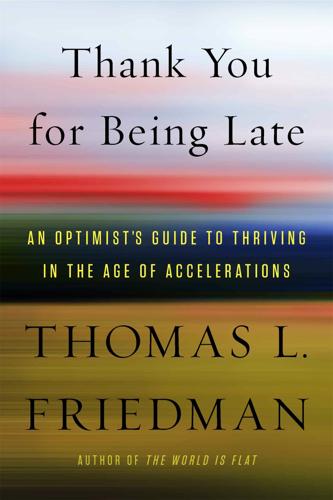
Thank You for Being Late: An Optimist's Guide to Thriving in the Age of Accelerations
by
Thomas L. Friedman
Published 22 Nov 2016
The idea was to create a global network through which anyone anywhere could rent a spare room in their home to earn cash. In homage to its roots, they called the company Airbnb, which has grown so large that it is now bigger than all the major hotel chains combined—even though, unlike Hilton and Marriott, it doesn’t own a single bed. And the new trend it set off is the “sharing economy.” When I first heard Chesky describe his company, I confess to being a little dubious: I mean, how many people in Paris really want to rent out their kid’s bedroom down the hall to a perfect stranger—who comes to them via the Internet? And how many strangers want to be down the hall? Answer: a lot!
…
What we did was give those strangers identities and brands that you could trust. Do you want a stranger staying in your home? No. But would you like Michelle who went to Harvard, works in a bank, and has a five-star rating as a guest on Airbnb? Sure!” Chesky would love to apply what Airbnb has learned about the sharing economy to other realms and experiences, or, as he once put it to me: “There are eighty million power drills in America that are used an average of thirteen minutes. Does everyone really need their own drill?” The distance between imagining something, designing it, manufacturing it, and selling it everywhere has never been shorter, faster, cheaper, and easier—for engineers and non-engineers alike.
…
.: Social technologies are how we organize to capture the benefits of cooperation—non-zero-sum games. Physical technologies and social technologies coevolve. Physical technology innovations make new social technologies possible, like fossil fuel technologies made mass production possible, smartphones make the sharing economy possible. And vice versa, social technologies make new physical technologies possible—Steve Jobs couldn’t have made the smartphone without a global supply chain. But there is one big difference between these two forms of technology, he added: Physical technologies evolve at the pace of science—fast and getting exponentially faster, while social technologies evolve at the pace at which humans can change—much slower.

The Automatic Customer: Creating a Subscription Business in Any Industry
by
John Warrillow
Published 5 Feb 2015
Call them the Access Generation: a growing cohort of mobile, technically savvy young people who value access over assets. They prefer to stay nimble and rent a home rather than own one; listen to a song on Spotify rather than buy it from iTunes; or subscribe to Oysterbooks .com or Scribd rather than buy from a Barnes & Noble store. The Access Generation is behind the explosion of the new “sharing” economy. Sharing stuff has been around since stuff itself, but technology allows sharing to scale: websites like Airbnb match buyer and seller; your GPS-enabled iPhone allows you to find the closest Zipcar; Facebook and LinkedIn enable you to vet anyone you’re thinking of doing business with; and sites like PayPal allow you to safely pay for what you’re renting.
…
Power & Associates, 186–87 Jobs, Steve, 57 Kassensturz, 88 Kava, Jordana, 93–94 Kelly, Patrick, 35–36, 96, 164 Kerber, Tim, 49 Kirkpatrick & Hopes, 168–70 Klein, Bernard, 93 Køge, 24–25 Koum, Jan, 2, 113 K-Tipp, 88 LA Fitness, 180 laptops, 116 Lapwood, Nev, 171 large companies, 188–89, 194 lawn care, 104 Levine, Mark, 81–83, 87 Liechti, Samy, 83 LifeLock, 140 lifetime value (LTV), 128, 130, 138, 139, 142–43, 146, 151, 173 Ancestry.com and, 136 Constant Contact and, 137 HubSpot and, 133–34 Mosquito Squad and, 138 light-switch reliability, 19–20, 22 Lindt, 93, 94 LinkedIn, 19, 63, 140 Lippitt, Robb, 51 logo churn, 191–93 LoJack Stolen Vehicle Recovery System, 116 long tail, 21–22 Long Tail, The (Anderson), 16, 21 Lore, Marc, 84–85 Luciani, Patrick, 70 Lynda.com, 59 magazines, 16–17, 193 margin, 131–32 Ancestry.com and, 136 HubSpot and, 133–34 Mosquito Squad and, 138 MarketingSherpa, 52, 53 market research, 34–36 Martella, Roberto, 70 Matrix Partners, 129 McCabe, Kathy, 48–49 McDerment, Mike, 27, 144–48, 163 McGrath, Rob, 68 measuring progress, 125–34 Meeker, Matt, 19, 92 MemberGate, 49 membership website model, 47–55 Mequoda Group, 61, 154, 161, 179 messaging services, 2 WhatsApp, 1–2, 108–9, 113, 157 Microsoft, 22 Office, 24 Project, 146n Windows, 57 millennial generation, 18 MMORPGs (massively multiplayer online role-playing games), 111–12 monthly recurring revenue (MRR), 128, 139, 143, 149, 174 Ancestry.com and, 135, 136 CAC payback period and, 140–43 churn rate and, see churn rate Constant Contact and, 136, 137 HubSpot and, 132, 133–34, 135, 149 Mosquito Squad and, 138 SnowboardAddiction.com and, 171 Wild Apricot and, 189–91 Morningstar, 11, 12 Mosquito Squad, 31–32, 103–4, 138, 153–54, 197 Murdoch, Rupert, 16 music business, 57–58 Myspace, 146n National Dance Council of America, 49–50 Nelson, Perry, 165, 171–72, 178–79 Netflix, 35, 59, 63, 154, 155, 159, 166 NetSuite.com, 189 network model, 107–14 New Masters Academy, 59–62, 155, 166 newspapers, 16–17 New York Times, 17, 48, 82 Nicely Noted, 165, 171–72, 178–79 Nicholas, Don, 61, 154, 161, 179 Nightingale Conant, 66 Nike, 89 Nimsoft, 141–42 O’Brien, Chris, 187 onboarding, 132, 140, 142 90-day clock and, 176–82 One Wipe Charlies, 192 online reputation, 117 Onvia, 17 Osler Bluff, 162 Otis, 40 Outdoor Living Brands, 32 Oyster, 59 Panda, Sonu, 33, 158, 197 PayPal, 19 peace-of-mind model, 115–22 pets, 91–92 BarkBox and, 19, 92, 95, 165, 187 PetShopBowl.com and, 38 Tagg and, 115 PetShopBowl.com, 38 pharmacies, 31 photo printing, 156–57 Piranha Marketing System: The Seven Success Multiplying Factors to Dominate Any Market You Enter (Polish), 66 Pitney Bowes, 178 Plugg, 157 Polish, Joe, 66–67, 155 Portrait Software, 178 prioritizing customers, 75 private club model, 65–72 Private Retreats, 68 Procter & Gamble (P&G), 192 productivity applications, 100 profit-and-loss (P&L) statement, 125–28, 138 publishing, 16–17 QSS Group, 101 Qualcomm, 115 Quickbooks, 146n Quidsi, 15, 86 Radian6, 117 radioactive waste and devices, 36–37 Ravindran, Vijay, 12 razor blade business: Dollar Shave Club, 81–83, 84, 87–89, 157, 175–76, 192–93 Raz*War, 157–58, 193, 194 Raz*War, 157–58, 193, 194 Rdio, 58, 155 recession, 39–41 recurring revenue, 4, 6, 78, 104, 128 see also monthly recurring revenue reliability, 19–20, 22 “Renegotiation of Cash Flow Rights in the Sale of VC-Backed Firms” (Broughman and Fried), 147 RestaurantOwner.com, 49 Revolution Dancewear, 50–52 Rhapsody, 58 risk, 119–20, 121 RoleView, 150, 192 roof business, 118–20 Rosen, Lori, 88 Roth, Marcel, 83 Royal Melbourne Golf Club (RMGC), 65–66, 72 Running Room, 13 social status, 68, 69 SafetyNet, 116 sales approaches, 134–38 Salesforce.com, 18, 19, 74–75, 117, 159, 176 salespeople, 135, 167 Salon Speaker Series (Grano Speaker Series), 70–71, 159 scaling up, 171–94 Schwietzer, Robbie, 13 self-employed individuals, 188–89 Sellability Score.com, 3–4, 28, 31, 132, 149, 176, 182 selling subscriptions, see subscription selling “sharing” economy, 18–19 simplifier model, 99–105, 121 Site24x7.com, 117 skiing, 162 Skok, David, 129–30, 131, 150, 151, 185 Snaptracs, 115 SnowboardAddiction.com, 171 social proof, 67 socks: Blacksocks, 83, 84, 88, 151 Foot Cardigan, 165 software industry, 29–32, 74–75, 125–26 Spagnuolo, Marc, 47 SpicySubscriptions.com, 91 Spotify, 58 Springwise, 157 Standard Cocoa, 22, 93–94, 165 StitchFix, 91 Stone, Brad, 85 Strife, Carly, 92 strivers, 72 Stuart Hunt & Associates, 36–37 subscription economy, 11–25 competing in, 22–24 subscription models: all-you-can-eat library, 57–63 automatic payments in, 36–37 business valuation and, 28–32 challenges of adopting, 41–43 consumables, 81–90 convincing employees and partners about merits of, 168–69 customer loyalty and, 38 demand and, 33–34 front-of-the-line, 73–79 history of, 15–18 lifetime value of customer in, 32–33 market research and, 34–36 measuring progress in, 125–34 membership website, 47–55 need for, 27–43 network, 107–14 peace-of-mind, 115–22 private club, 65–72 recession risk and, 39–41 renaissance of, 18–22 sales approaches for, 134–38 simplifier, 99–105, 121 surprise box, 91–98 up-selling in, 38–39 using in your own business, 122 subscription selling, 153–70 burning platform strategy in, 166–67 freemium option in, 161–62, 164 gift offers in, 164–66 rational buying and, 157–59 subscription fatigue and, 154 10x vs. 10% idea in, 155–57 trial in, 161–64 ultimatum in, 159–60 Subscription Site Insider, 52, 53 surfing, 182–83 surprise box model, 91–98 swimming pools, 104 Tagg, 115 Tarence, Zen, 29–30 Target, 13, 89 Subscriptions, 15 TechCrunch, 157 technology, 99 telephone, 107–8 telephone sales, 135 The Live Event (TLE), 53 37signals, 144, 145–46 Thriveworks, 75–77 TIGER 21, 67–68, 72, 149, 159 Time Warner Cable, 23 TrendHunter.com, 91–92 trial offers, 161–64 Tri-State Elevator Co., 40–41 Trojan Horse, 94–95, 98 Twitter, 61, 63, 108, 117 ultimatums, 159–60 underwriting profit, 117, 118 user marketing, 108–9 vacation industry, 68–70, 73–74 Vagonis, Jim, 102–3, 181 valuation of businesses, 28–32 venture capital, 147–48, 151 viability threshold, 129–30 Volcker, Paul, 70 Wall Street Journal, 17, 48, 188 Walmart, 13, 84, 89 Goodies Co., 20–21, 35 Warrillow & Co., 5–6 website monitoring, 117 Wells Fargo, 126 Werdelin, Henrik, 92 WhatsApp, 1–2, 108–9, 113, 157 WhichTestWon.com, 52–53 Whiteman, Brian, 156 Whiteman, Julie, 156 Wild Apricot, 29, 184–85, 189–91 Wired, 16 Women’s Living, 179 Woodward, Bob, 71 Wood Whisperer Guild, 47 Workday, 135 World of Warcraft, 111–12 WP Engine, 177 Wunderlist, 100 Yoga Journal, 179 Zendesk, 77, 79, 163 Zide, Scott, 32 Zipcar, 19, 109–11, 113, 153 * The “first mover advantage” concept is severely overhyped.

Intertwingled: Information Changes Everything
by
Peter Morville
Published 14 May 2014
Yes, once again, I’m making myself uncomfortable. I’m an advisor to the School of Library and Information Science at San José State University. Since 2009, the program has embraced a 100% online model. Ironically, I’m here for a face to face meeting. And I’m using this visit to California as an opportunity to dip my toes into the infamous sharing economy. So, I’m not in a cab, and I’m not hitchhiking. I’m in a black town car with an Uber-qualified driver named Gustavo. I hailed him via mobile app. I must admit it was fun watching the little black car icon drive to my location. I already know a bit about my driver. He’s passed Uber’s insurance and background checks and has a 5 star rating.
…
As my black Uber car cruises the freeways of San José, I’m besieged by the image of urban sprawl. It’s hard to feel at home in a place like this. But it’s not just the office parks and strip malls that are making me uncomfortable. I’m worried about meeting Sophie. Part of the reason I don’t participate in the sharing economy is I’m an introvert, and a shy one too. Hotels are easy. Staff rarely say more than hello. But Airbnb is different. I’m staying in a home with my host. It’s like crashing with a friend you don’t know. Of course, Sophie comes highly recommended. She has a 5-star rating and dozens of glowing reviews.
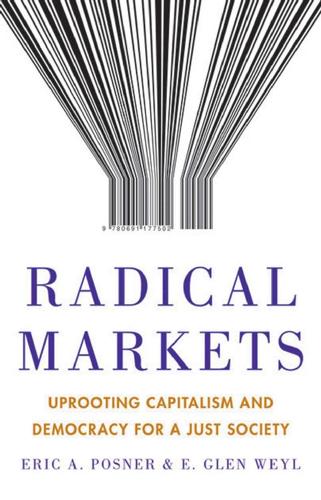
Radical Markets: Uprooting Capitalism and Democracy for a Just Society
by
Eric Posner
and
E. Weyl
Published 14 May 2018
Renting carries with it the risk that you will be evicted if you miss a number of rental payments or cannot afford your rent after it has been increased by the landlord. People “self-assess” valuations in difficult circumstances whenever they buy insurance and are required, even if only implicitly, to decide how much money they would need if their house or car is destroyed. The sharing economy—exemplified by Zipcar, Uber, and Airbnb—is helping to accustom us to temporary “possessing” rather than “owning,” and simultaneously consuming and selling (and hence setting a price on) the same product. However, a COST would change life radically, which is why it should be tested in limited public and commercial markets before being applied more broadly.
…
Leaders, political campaigns, and political scientists have begun to explore whether using QV to elicit public opinions allows them to more accurately answer the questions so crucial to their jobs: how can we form a platform and reach compromises that will respect the strongly held views of a range of citizens? In the coming years, experiments with QV will offer a proving ground for the practical utility of QV. RATING AND SOCIAL AGGREGATION Rating and social aggregation systems fuel today’s digital economy. Reputation systems are the crucial trust mechanisms that allow “sharing economy” services like Airbnb, VRBO, Uber, and Lyft to win consumer acceptance and give providers the confidence to adopt the system.46 They play a core role in the popular search services offered by Amazon, Google, Apple’s app store, and Yelp. Yet a growing body of evidence suggests these systems are badly broken.
…
INDEX Italic page numbers indicate figures and tables abortion, 27, 112–13, 116 Acemoglu, Daron, 240, 316n4 activism, 3, 124, 140, 176–77, 188, 193, 211, 232 Adachi, Kentaro, 80–81, 105–8 Africa, 136, 138 African Americans, 24, 89, 209–10 Airbnb, 70, 117 airlines, 171, 183, 189–91, 194 Akerlof, George, 66–67 algorithms, 208, 214, 219, 221, 281–82, 289–93, 307n7 Allen, Robert C., 240 Amazon, 112, 230–31, 234, 239, 248, 288, 290–91 American Constitution, 86–87 American Federation of Musicians, 210 American Tobacco Company, 174 America OnLine (AOL), 210 Anderson, Chris, 212 antitrust: Clayton Act and, 176–77, 197, 311n25; landlords and, 201–2; monopolies and, 23, 48, 174–77, 180, 184–86, 191, 197–203, 242, 255, 262, 286; resale price maintenance and, 200–201; social media and, 202 Apple, 117, 239, 289 Arginoussai Islands, 83 aristocracy, 16–17, 22–23, 36–38, 84–85, 87, 90, 135–36 Aristotle, 172 Arrow, Kenneth, 92, 303n17 Articles of Confederation, 88 artificial intelligence (AI), 202, 257, 287; Alexa and, 248; algorithms and, 208, 214, 219, 221, 281–82, 289–93; automated video editing and, 208; Cortana and, 219; data capacities and, 236; Deep Blue and, 213; democratization of, 219; diminishing returns and, 229–30; facial recognition and, 208, 216–19; factories for thinking machines and, 213–20; Google Assistant and, 219; human-produced data for, 208–9; marginal value and, 224–28, 247; Microsoft and, 219; neural networks and, 214–19; payment systems for, 224–30; recommendation systems and, 289–90; siren servers and, 220–24, 230–41, 243; Siri and, 219, 248; technofeudalism and, 230–33; techno-optimists and, 254–55, 316n2; techno-pessimists and, 254–55, 316n2; worker replacement and, 223 Athens, 55, 83–84, 131 Atwood, Margaret, 18–19 auctions, xv–xxi, 49–51, 70–71, 97, 99, 147–49, 156–57, 300n34 au pair program, 154–55, 161 Australia, 10, 12, 13, 159, 162 Austrian school, 2 Autor, David, 240 Azar, José, 185, 189, 310n24 Bahrain, 158 banking industry, 182–84, 183, 190 Bank of America, 183, 184 Becker, Gary, 147 Beckford, William, 95 behavioral finance, 180–81 Bénabou, Roland, 236–37 Bentham, Jeremy, 4, 35, 95–96, 98, 132 Berle, Adolf, 177–78, 183, 193–94 Berlin Wall, 1, 140 Berners-Lee, Tim, 210 big data, 213, 226, 293 Bing, xxi BlackRock, 171, 181–84, 183, 187, 191 Brazil, xiii–xvii, 105, 135 Brin, Sergey, 211 broadcast spectrum, xxi, 50–51, 71 Bush, George W., 78 Cabral, Luís, 202 Cadappster app, 31 Caesar, Julius, 84 Canada, 10, 13, 159, 182 capitalism, xvi; basic structure of, 24–25; competition and, 17 (see also competition); corporate planning and, 39–40; cultural consequences of, 270, 273; Engels on, 239–40; freedom and, 34–39; George on, 36–37; growth and, 3 (see also growth, economic); industrial revolution, 36, 255; inequality and, 3 (see also inequality); labor and, 136–37, 143, 159, 165, 211, 224, 231, 239–40, 316n4; laissez-faire, 45; liberalism and, 3, 17, 22–27; markets and, 278, 288, 304n36; Marx on, 239–40; monopolies and, 22–23, 34–39, 44, 46–49, 132, 136, 173, 177, 179, 199, 258, 262; monopsony and, 190, 199–201, 223, 234, 238–41, 255; ownership and, 34–36, 39, 45–49, 75, 78–79; property and, 34–36, 39, 45–49, 75, 78–79; Radical Markets and, 169, 180–85, 203, 273; regulations and, 262; Schumpeter on, 47; shareholders and, 118, 170, 178–84, 189, 193–95; technology and, 34, 203, 316n4; wealth and, 45, 75, 78–79, 136, 143, 239, 273 Capitalism and Freedom (Friedman), xiii Capitalism for the People, A (Luigi), 203 Capra, Frank, 17 Carroll, Lewis, 176 central planning: computers and, 277–85, 288–93; consumers and, 19; democracy and, 89; governance and, 19–20, 39–42, 46–48, 62, 89, 277–85, 288–90, 293; healthcare and, 290–91; liberalism and, 19–20; markets and, 277–85, 288–93; property and, 39–42, 46–48, 62; recommendation systems and, 289–90; socialism and, 39–42, 47, 277, 281 Chetty, Raj, 11 Chiang Kai-shek, 46 China, 15, 46, 56, 133–34, 138 Christensen, Clayton, 202 Chrysler, 193 Citigroup, 183, 184, 191 Clarke, Edward, 99, 102, 105 Clayton Act, 176–77, 197, 311n25 Clemens, Michael, 162 Coase, Ronald, 40, 48–51, 299n26 Cold War, xix, 25, 288 collective bargaining, 240–41 collective decisions: democracy and, 97–105, 110–11, 118–20, 122, 124, 273, 303n17, 304n36; manipulation of, 99; markets for, 97–105; public goods and, 98; Quadratic Voting (QV) and, 110–11, 118–20, 122, 124, 273, 303n17, 304n36; Vickrey and, 99, 102, 105 colonialism, 8, 131 Coming of the Third Reich, The (Evans), 93 common ownership self-assessed tax (COST): broader application of, 273–76; cybersquatters and, 72; education and, 258–59; efficiency and, 256, 261; equality and, 258; globalization and, 269–70; growth and, 73, 256; human capital and, 258–61; immigrants and, 261, 269, 273; inequality and, 256–59; international trade and, 270; investment and, 258–59, 270; legal issues and, 275; markets and, 286; methodology of, 63–66; monopolies and, 256–61, 270, 300n43; objections to, 300n43; optimality and, 61, 73, 75–79, 317n18; personal possessions and, 301n47, 317n18; political effects of, 261–64; predatory outsiders and, 300n43; prices and, 62–63, 67–77, 256, 258, 263, 275, 300n43, 317n18; property and, 31, 61–79, 271–74, 300n43, 301n47; public goods and, 256; public leases and, 69–72; Quadratic Voting (QV) and, 123–25, 194, 261–63, 273, 275, 286; Radical Markets and, 79, 123–26, 257–58, 271–72, 286; taxes and, 61–69, 73–76, 258–61, 275, 317n18; technology and, 71–72, 257–59; true market economy and, 72–75; voting and, 263; wealth and, 256–57, 261–64, 269–70, 275, 286 communism, 19–20, 46–47, 93–94, 125, 278 competition: antitrust policies and, 23, 48, 174–77, 180, 184–86, 191, 197–203, 242, 255, 262, 286; auctions and, xv–xix, 49–51, 70–71, 97, 99, 147–49, 156–57; bargaining and, 240–41, 299n26; democracy and, 109, 119–20; by design, 49–55; elitism and, 25–28; equilibrium and, 305n40; eternal vigilance and, 204; horizontal concentration and, 175; imperfect, 304n36; indexing and, 185–91, 302n63; innovation and, 202–3; investment and, 196–97; labor and, 145, 158, 162–63, 220, 234, 236, 239, 243, 245, 256, 266; laissez-faire and, 253; liberalism and, 6, 17, 20–28; lobbyists and, 262; monopolies and, 174; monopsony and, 190, 199–201, 223, 234, 238–41, 255; ownership and, 20–21, 41, 49–55, 79; perfect, 6, 25–28, 109; prices and, 20–22, 25, 173, 175, 180, 185–90, 193, 200–201, 204, 244; property and, 41, 49–55, 79; Quadratic Voting (QV) and, 304n36; regulations and, 262; resale price maintenance and, 200–201; restoring, 191–92; Section 7 and, 196–97, 311n25; selfishness and, 109, 270–71; Smith on, 17; tragedy of the commons and, 44 complexity, 218–20, 226–28, 274–75, 279, 281, 284, 287, 313n15 “Computer and the Market, The” (Lange), 277 computers: algorithms and, 208, 214, 219, 221, 281–82, 289–93; automation of labor and, 222–23, 251, 254; central planning and, 277–85, 288–93; data and, 213–14, 218, 222, 233, 244, 260; Deep Blue, 213; distributed computing and, 282–86, 293; growth in poor countries and, 255; as intermediaries, 274; machine learning (ML) and, 214 (see also machine learning [ML]); markets and, 277, 280–93; Mises and, 281; Moore’s Law and, 286–87; Open-Trac and, 31–32; parallel processing and, 282–86; prices of, 21; recommendation systems and, 289–90 Condorcet, Marquis de, 4, 90–93, 303n15, 306n51 conspicuous consumption, 78 Consumer Reports magazine, 291 consumers: antitrust suits and, 175, 197–98; central planning and, 19; data from, 47, 220, 238, 242–44, 248, 289; drone delivery to, 220; as entrepreneurs, 256; goods and services for, 27, 92, 123, 130, 175, 280, 292; institutional investment and, 190–91; international culture for, 270; lobbyists and, 262; machine learning (ML) and, 238; monopolies and, 175, 186, 197–98; preferences of, 280, 288–93; prices and, 172 (see also prices); recommendation systems and, 289–90; robots and, 287; sharing economy and, 117; Soviet collapse and, 289; technology and, 287 cooperatives, 118, 126, 261, 267, 299n24 Corbyn, Jeremy, 12, 13 corruption, 3, 23, 27, 57, 93, 122, 126, 157, 262 Cortana, 219 cost-benefit analysis, 2, 244 “Counterspeculation, Auctions and Competitive Sealed Tenders” (Vickrey), xx–xxi Cramton, Peter, 52, 54–55, 57 crowdsourcing, 235 crytocurrencies, 117–18 cybersquatters, 72 data: algorithms and, 208, 214, 219, 221, 281–82, 289–93; big, 213, 226, 293; computers and, 213–14, 218, 222, 233, 244, 260; consumer, 47, 220, 238, 242–44, 248, 289; diamond-water paradox and, 224–25; diminishing returns and, 226, 229–30; distribution of complexity and, 228; as entertainment, 233–39, 248–49; Facebook and, 28, 205–9, 212–13, 220–21, 231–48; feedback and, 114, 117, 233, 238, 245; free, 209, 211, 220, 224, 231–35, 239; Google and, 28, 202, 207–13, 219–20, 224, 231–36, 241–42, 246; investment in, 212, 224, 232, 244; labeled, 217–21, 227, 228, 230, 232, 234, 237; labor movement for, 241–43; Lanier and, 208, 220–24, 233, 237, 313n2, 315n48; marginal value and, 224–28, 247; network effects and, 211, 236, 238, 243; neural networks and, 214–19; online services and, 211, 235; overfitting and, 217–18; payment systems for, 210–13, 224–30; photographs and, 64, 214–15, 217, 219–21, 227–28, 291; programmers and, 163, 208–9, 214, 217, 219, 224; Radical Markets for, 246–49; reCAPTCHA and, 235–36; recommendation systems and, 289–90; rise of data work and, 209–13; sample complexity and, 217–18; siren servers and, 220–24, 230–41, 243; social networks and, 202, 212, 231, 233–36; technofeudalism and, 230–33; under-employment and, 256; value of, 243–45; venture capital and, 211, 224; virtual reality and, 206, 208, 229, 251, 253; women’s work and, 209, 313n4 Declaration of Independence, 86 Deep Blue, 213 DeFoe, Daniel, 132 Demanding Work (Gray and Suri), 233 democracy: 1p1v system and, 82–84, 94, 109, 119, 122–24, 304n36, 306n51; artificial intelligence (AI) and, 219; Athenians and, 55, 83–84, 131; auctions and, 97, 99; basic structure of, 24–25; central planning and, 89; check and balance systems and, 23, 25, 87, 92; collective decisions and, 97–105, 110–11, 118–20, 122, 124, 273, 303n17, 304n36; collective mediocrity and, 96; competition and, 109, 119–20; Declaration of Independence and, 86; efficiency and, 92, 110, 126; elections and, 22, 80, 93, 100, 115, 119–21, 124, 217–18, 296n20; elitism and, 89–91, 96, 124; Enlightenment and, 86, 95; Europe and, 90–96; France and, 90–95; governance and, 84, 117; gridlock and, 84, 88, 122–24, 261, 267; Hitler and, 93–94; House of Commons and, 84–85; House of Lords and, 85; impossibility theorem and, 92; inequality and, 123; Jury Theorem and, 90–92; liberalism and, 3–4, 25, 80, 86, 90; limits of, 85–86; majority rule and, 27, 83–89, 92–97, 100–101, 121, 306n51; markets and, 97–105, 262, 276; minorities and, 85–90, 93–97, 101, 106, 110; mixed constitution and, 84–85; multi-candidate, single-winner elections and, 119–20; origins of, 83–85; ownership and, 81–82, 89, 101, 105, 118, 124; public goods and, 28, 97–100, 107, 110, 120, 123, 126; Quadratic Voting (QV) and, 105–22; Radical Markets and, 82, 106, 123–26, 203; supermajorities and, 84–85, 88, 92; tyrannies and, 23, 25, 88, 96–100, 106, 108; United Kingdom and, 95–96; United States and, 86–90, 93, 95; voting and, 80–82, 85–93, 96, 99, 105, 108, 115–16, 119–20, 123–24, 303n14, 303n17, 303n20, 304n36, 305n39; wealth and, 83–84, 87, 95, 116 Demosthenes, 55 Denmark, 182 Department of Justice (DOJ), 176, 186, 191 deregulation, 3, 9, 24 Desmond, Matthew, 201–2 Dewey, John, 43 Dickens, Charles, 36 digital economy: data producers and, 208–9, 230–31; diamond-water paradox and, 224–25; as entertainment, 233–39; facial recognition and, 208, 216, 218–19; free access and, 211; Lanier and, 208, 220–24, 233, 237, 313n2, 315n48; machine learning (ML) and, 208–9, 213–14, 217–21, 226–31, 234–35, 238, 247, 289, 291, 315n48; payment systems for, 210–13, 221–30, 243–45; programmers and, 163, 208–9, 214, 217, 219, 224; rise of data work and, 209–13; siren servers and, 220–24, 230–41, 243; spam and, 210, 245; technofeudalism and, 230–33; virtual reality and, 206, 208, 229, 251, 253 diversification, 171–72, 180–81, 185, 191–92, 194–96, 310n22, 310n24 dot-com bubble, 211 double taxation, 65 Dupuit, Jules, 173 Durkheim, Émile, 297n23 Dworkin, Ronald, 305n40 dystopia, 18, 191, 273, 293 education, 114; common ownership self-assessed tax (COST) and, 258; data and, 229, 232, 248; elitism and, 260; equality in, 89; financing, 276; free compulsory, 23; immigrants and, 14, 143–44, 148; labor and, 140, 143–44, 148, 150, 158, 170–71, 232, 248, 258–60; Mill on, 96; populist movements and, 14; Stolper-Samuelson Theorem and, 143 efficient capital markets hypothesis, 180 elections, 80; data and, 217–18; democracy and, 22, 93, 100, 115, 119–21, 124, 217–18, 296n20; gridlock and, 124; Hitler and, 93; multi-candidate, single-winner, 119–20; polls and, 13, 111; Quadratic Voting (QV) and, 115, 119–21, 268, 306n52; U.S. 2016, 93, 296n20 Elhauge, Einer, 176, 197 elitism: aristocracy and, 16–17, 22–23, 36–38, 84–85, 87, 90, 135–36; bourgeoisie and, 36; bureaucrats and, 267; democracy and, 89–91, 96, 124; education and, 260; feudalism and, 16, 34–35, 37, 41, 61, 68, 136, 230–33, 239; financial deregulation and, 3; immigrants and, 146, 166; liberalism and, 3, 15–16, 25–28; minorities and, 12, 14–15, 19, 23–27, 85–90, 93–97, 101, 106, 110, 181, 194, 273, 303n14, 304n36; monarchies and, 85–86, 91, 95, 160 Emergency Economic Stabilization Act, 121 eminent domain, 33, 62, 89 Empire State Building, 45 Engels, Friedrich, 78, 240 Enlightenment, 86, 95 entrepreneurs, xiv; immigrants and, 144–45, 159, 256; labor and, 129, 144–45, 159, 173, 177, 203, 209–12, 224, 226, 256; ownership and, 35, 39 equality: common ownership self-assessed tax (COST) and, 258; education and, 89; immigrants and, 257; labor and, 147, 166, 239, 257; liberalism and, 4, 8, 24, 29; living standards and, 3, 11, 13, 133, 135, 148, 153, 254, 257; Quadratic Voting (QV) and, 264; Radical Markets and, 262, 276; trickle down theories and, 9, 12 Espinosa, Alejandro, 30–32 Ethereum, 117 Europe, 177, 201; democracy and, 88, 90–95; European Union and, 15; fiefdoms in, 34; government utilities and, 48; income patterns in, 5; instability in, 88; labor and, 11, 130–31, 136–47, 165, 245; social democrats and, 24; unemployment rates in, 11 Evans, Richard, 93 Evicted (Desmond), 201–2 Ex Machina (film), 208 Facebook, xxi; advertising and, 50, 202; data and, 28, 205–9, 212–13, 220–21, 231–48; monetization by, 28; news service of, 289; Vickrey Commons and, 50 facial recognition, 208, 216–19 family reunification programs, 150, 152 farms, 17, 34–35, 37–38, 61, 72, 135, 142, 179, 283–85 Federal Communications Commission (FCC), 50, 71 Federal Trade Commission (FTC), 176, 186 feedback, 114, 117, 233, 238, 245 feudalism, 16, 34–35, 37, 41, 61, 68, 136, 230–33, 239 Fidelity, 171, 181–82, 184 financial crisis of 2008, 3, 121 Fitzgerald, F.
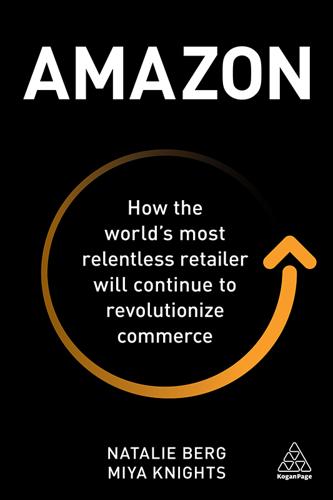
Amazon: How the World’s Most Relentless Retailer Will Continue to Revolutionize Commerce
by
Natalie Berg
and
Miya Knights
Published 28 Jan 2019
The addition of allotments and farms gives shoppers the opportunity to select their own produce for their meal, while a network of waterways will not only offer an alternative route around the shopping centre but also access to watersports – one of the many leisure activities available. Westfield’s ‘Destination 2028’ concept also highlights the rise of the sharing economy, with ‘rental retail’ expected to become the norm for post-millennials seeking to rent everything from clothes to exercise gear. Pop-ups, temporary retail, and co-working spaces are also likely to emerge in the future of retail, according to Westfield. * * * A place to discover, a place to learn Retailers must not overlook the importance of discovery as they aim to create a more meaningful connection with shoppers.
…
Known for going the extra mile, Lush employees are also empowered to make their own decisions to better connect with the customer, whether that’s giving away a free sample or changing the merchandising mix to reflect the weather (ie putting out more colourful, cheery products on a rainy day). The result is a more meaningful, more memorable experience – and certainly one that goes beyond the transaction. A place to borrow Last but not least, we believe that the store of the future will be a place to borrow. The sharing economy has already disrupted transportation and tourism but has yet to make its mark on the retail sector – shops naturally want to sell, rather than lend, to their customers. Well, the times are a-changing. We are entering an age where access will trump ownership. This is due to the combination of a growing population, unprecedented connectivity and shifts in consumer values and priorities.
…
Available from: https://uk.westfield.com/content/dam/westfield-corp/uk/Style-Trial-Press-Release.pdf [Last accessed 1/7/2018] 29 Balch, Oliver (2016) Is the Library of Things an answer to our peak stuff problem? Guardian, 23 August. Available from: https://www.theguardian.com/sustainable-business/2016/aug/23/library-of-things-peak-stuff-sharing-economy-consumerism-uber [Last accessed 1/7/2018]. 13 Retail fulfilment: winning the customer over the final mile ‘You do not want to give Amazon a seven-year head start.’ Warren Buffett, US business magnate1 In Chapters 11 and 12, we saw how the store of the future will have to evolve to simultaneously reduce friction and become more experiential.

The Infinite Machine: How an Army of Crypto-Hackers Is Building the Next Internet With Ethereum
by
Camila Russo
Published 13 Jul 2020
Williams, and Stephanie Alexander, “Augur: A Decentralized Oracle and Prediction Market Platform (v2.0),” November 1, 2019, https://www.augur.net/whitepaper.pdf. 2. he wrote on GitHub: Vitalik Buterin, “Standardized_Contract_APIs,” GitHub, June 23, 2015, https://github.com/ethereum/wiki/wiki/Standardized_Contract_APIs/499c882f3ec123537fc2fccd57eaa29e6032fe4a. 3. with their thoughts: Alex Van de Sande, “Let's talk about the coin standard,” Reddit, 2015, https://www.reddit.com/r/ethereum/comments/3n8fkn/lets_talk_about_the_coin_standard/. 4. issue being discussed: Fabian Vogelsteller, “ERC: Token standard #20,” GitHub, November 19, 2015, https://github.com/ethereum/EIPs/issues/20. 5. ended up implementing: Rune Christensen, “Introducing eDollar, the ultimate stablecoin built on Ethereum,” Reddit, 2015, https://www.reddit.com/r/ethereum/comments/30f98i/introducing_edollar_the_ultimate_stablecoin_built/. 6. companies to build on: Jeff Wilcke, “Homestead Release,” Ethereum Foundation Blog, February 29, 2016, https://blog.ethereum.org/2016/02/29/homestead-release/. 7. world had Ethereum: Gavin Andresen, “Bit-thereum,” GavinTech (blog), June 9, 2014, http://gavintech.blogspot.com/2014/06/bit-thereum.html. 19: The Magic Lock 1. Slock.it’s blog posts: Slock.it, “Decentralizing the Emerging Sharing Economy,” Medium, Slock.it Blog, December 2, 2015, https://blog.slock.it/slock-it-decentralizing-the-emerging-sharing-economy-cf19ce09b957?c=20150901_vision%22%20%5Cl%20%220_blog. 2. automating governance rules: Christoph Jentzsch, “Decentralized Autonomous Organization to Automate Governance, Final Draft—Under Review,” 2016, https://web.archive.org/web/20180913233456/https://download.slock.it/public/DAO/WhitePaper.pdf. 20: The DAO Wars 1. a blog post about it: Peter Vessenes, “More Ethereum Attacks: Race-to-Empty Is the Real Deal,” Vessenes (blog), June 9, 2016, https://vessenes.com/more-ethereum-attacks-race-to-empty-is-the-real-deal/. 2.
…
Christoph Jentzsch, a German theoretical physicist, had been working on testing and checking the compatibility among the different Ethereum clients. Christoph was known for being very good at his job, obsessive and meticulous, so when he jumped into a new venture, people paid attention. “With Uber, Airbnb, and others leading the way, we have to ask ourselves, ‘Is this how we want to build the sharing economy?’ Monopolistic companies that take extraordinary fees and have full control of the market?” said one of Slock.it’s blog posts.1 Slock.it cofounders, including Jentzsch’s brother, wanted to make it possible for people to rent, sell, and share their property without having to use intermediaries.
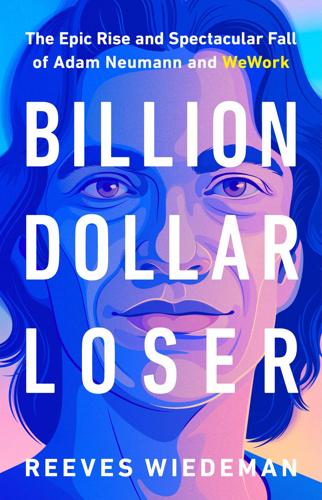
Billion Dollar Loser: The Epic Rise and Spectacular Fall of Adam Neumann and WeWork
by
Reeves Wiedeman
Published 19 Oct 2020
Investors wanted to believe Adam could fulfill his vision, and at least some of their faith seemed to rest on an expectation that he could convince the next person to kick in even more—the greater fool theory of finance. When Adam approached tech investors, he emphasized the money that could be made in real estate; to more traditional financiers, he talked about the promise of WeWork’s technology. Around 2015, Adam came up with a new pitch: WeWork was a “community company,” part of the sharing economy, with hallways that were designed to be as narrow as possible not because doing so allowed WeWork to squeeze in more paying tenants, but in order to force members to connect. In early 2015, just a few months after WeWork’s Series D, its finance team started approaching investors about another injection of capital that would allow the company to keep up with its escalating costs.
…
“For a very spiritual country—and I can definitely tell you this is the most spiritual country in the world—I’m surprised a little bit from the amount of talk I heard about valuation and raising money and bubbles.” The crowd laughed nervously. Adam insisted this wasn’t what he was after. He believed that India’s budding democracy and growing economy embodied an idea he had been talking about with increasing frequency: the “We Generation,” an ageless demographic defined by a faith in the sharing economy and a belief that doing well could come from doing good. “I swear to you success will follow; the money will follow,” Adam said. “And you will change the world.” On his last night in India, Adam met Masa at a bar on the top floor of a building in New Delhi. The meeting had been arranged by Nikesh Arora, Masa’s top deputy at SoftBank, who had previously spurned WeWork as a potential investment.
…
At the end of 2017, Adam and Rebekah spent $35 million to buy four apartments in a single Gramercy building, combining three of the units into a mega penthouse. Adam bought homes for his sister and grandmother, paying them back for the rent and tuition they had covered during his early years in New York. WeWork employees could only roll their eyes when Adam and Rebekah spoke about their embrace of the sharing economy and lack of interest in material wealth. “We believe in this new ‘asset-light lifestyle,’” Rebekah told one interviewer, at a time when the Neumanns owned five homes. “We want to live off of the land. I’m like a real hippie.” WeWork’s 2017 Halloween party had another apt theme: The Great Gatsby.
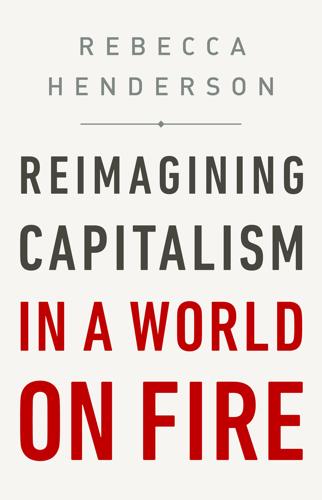
Reimagining Capitalism in a World on Fire
by
Rebecca Henderson
Published 27 Apr 2020
It can create entirely new businesses—particularly if, like CLP, you are sophisticated enough to see how the world is changing before others do. Robin Chase founded Zipcar—a car sharing service—in 2000, nearly twenty years ago, years before the rest of us discovered the sharing economy. She saw Zipcar as part of a much larger vision for how the economy might be transformed. In one interview she explained: The collaborative economy is larger than the sharing economy. The sharing economy feels to me like it’s about assets. The collaborative economy is everything. It’s making clear and visceral to us that, if I can have real-time access not just to hard assets, but to people, to networks, to experiences, it means that the way I do my own personal life is completely transformed.
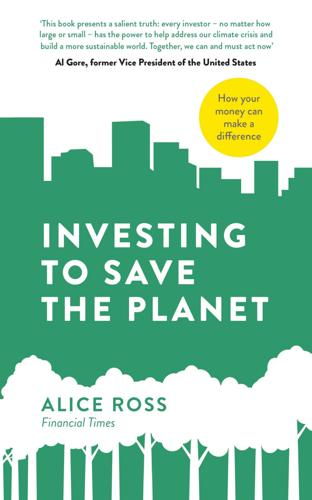
Investing to Save the Planet: How Your Money Can Make a Difference
by
Alice Ross
Published 19 Nov 2020
One of the top holdings in the Impax Environmental Markets fund is DS Smith, a FTSE 100-listed packaging company in the UK that has been expanding in the US, developing environmentally friendly packaging solutions and using recycled paper and cardboard to make new packaging. Companies like this can also help address the issue of so-called scope 3 emissions, which take into account emissions indirectly caused by a company through their supply chain. The sharing economy is also part of the circular-economy movement: the emphasis being on consumers owning fewer things and instead renting or sharing. Lift-sharing services like Uber or Lyft are one obvious example, while in China, start-up YCloset, which allows users to rent clothes and jewellery, attracted investment from Chinese technology giant Alibaba in 2018.
…
Morgan 82, 86, 88, 188, 189 Just 147–8 Kellogg Company 83, 155, 161–2 Kingspan 170 Kiverdi 159 Kleiner Perkins 114, 152 Kleinman, Gabe 135–6 Korteweg, Jaap 153 L&G Future World ESG UK Index 9 Legal & General Investment Management (LGIM) 60–61, 74, 88, 98; Climate Impact Pledge report (2018) 61 lending/loans 66, 67, 73, 82, 83, 118–20, 194, 195 Lenzing 173 Lewis, Michael 11, 180, 181, 186 Lightsource Renewable Energy 116 Lilac 137 London Stock Exchange 25, 56 Looney, Bernard 116, 199 low carbon funds 42, 62, 63, 68, 85, 86, 106 Luke, Horace 127–9 Maersk 76 Make My Money Matter movement 40–41, 201 Mallinda 168 Malta (energy company) 121 Maple Leaf 154 Marks & Spencer 69, 71–2 McDonald’s McVegan burger 151 McKinsey 63–4, 128, 202 meat, alternative 7, 10, 15, 18, 22, 35, 36, 149–66 methane 109, 113, 159, 175 micromobility 127–9 Microsoft 7, 19, 62–3, 91, 127, 197 Mintel 150–51 mis-selling 11–12, 101, 193 MIT (Massachusetts Institute of Technology) 114, 122 Mitsui 148 Mizuno, Hiro 93 mopeds, electric 127, 128 Morgan Creek Capital Management 35, 152 Morgan Stanley 79, 181, 200 Morningstar 6, 11, 41, 42, 62, 85, 103, 105, 124, 125, 197–8 Mosaic 118–20 MSCI World Index 2, 30, 97, 97n, 100–101, 102, 103, 104, 184, 185, 191 Musk, Elon 15, 119, 132 mutual funds 30, 62, 143, 161 Nest (workplace pension scheme) 91 Nestlé 76, 155, 177 Netflix 157 New Energy Investment Trust 25–6 New York City 47, 173 next-gen investors 170–71 Northvolt 137 Nutmeg 99–102 nutrition fund 161 NXP Semiconductors 143, 166 Obvious Ventures 135–6, 152 oil and gas companies 7, 9, 16–17, 125, 134, 199, 203; alternative energy investment 4, 78, 83, 85, 107–13, 115–20, 140, 142, 154, 187, 196; banks and 82, 188, 194; Big Oil 4, 53, 55, 113, 115, 116–17, 126; billionaires and 16–17; Climate Leadership Council and 188–9; divestment and 45–7, 50, 51, 52–3, 54, 55–6, 59, 61, 62, 66, 68; greenwashing and 78–9, 101, 191–2; lending to 82; liquidity of shares 59; ‘net zero’ pledges 5, 71, 76, 78, 79–80, 116, 126, 186; oil prices 55, 56, 138, 189, 197; public shaming of 60; scope 3 emissions and 185, 186; subsidies 182; transitioning away from/energy transition 19, 21, 36, 39, 76, 84, 107–20, 123; value traps 59 Olympics (2020) 137 ON Semiconductor 166, 167 Oppenheim, Jeremy 63–5, 93, 142, 190, 194 Orsted 108, 125, 137, 154 ‘overweight’ equities 31 palm oil 141, 191 Paris Agreement (2015) 4–5, 10, 42, 73, 74–5, 76, 78, 109, 111, 117, 132, 165, 188, 193 Parish, Billy 118–20 Parr, Adam 38–9 passive funds 30, 31, 41, 74, 96–104 Patagonia 175, 176 PCAF (Partnership for Carbon Accounting Financials) 186–7 pension funds ix, 4, 7, 13, 20, 39–41, 44, 46, 54, 58, 59, 61, 67, 74, 76, 88, 92, 93, 98, 105, 122, 137, 140, 180, 181, 184, 185, 195; putting pressure on your pension manager 90–93 PetroChina 76 PG&E 58 Philip Morris 177 Philips 82 Pictet Clean Energy fund 125, 138, 143, 161, 166–7 Pod Point 140 Poulsen, Henrik 108 Prime Coalition 123, 168, 170 Pritzker Simmons, Liesel 170, 171, 182 private equity 3, 20, 34–7, 41, 44, 121, 124, 139, 140, 144, 174, 178–9 Procter & Gamble 174 Proterra 135 Provera, Nino Tronchetti 35 public shaming 60, 61–2 Purcell, James 66, 163–4 Quakers 48, 54 Quantum Energy Partners 140 QuantumScape 137 Quidnet Energy 121, 123 Quigley, Dr Ellen 65–6, 67, 74–5 recycling 15, 24–5, 28, 33, 51, 66, 82, 159, 166, 168, 171–2, 173–4, 175, 176, 184 RE100 initiative 86–7 renewable energy see individual type of renewable energy retail investors 3, 7, 8, 13, 31, 34, 36, 39, 61, 66, 73, 74, 77, 84, 90, 93, 95, 96, 101, 104, 195 Richemont 11 risk 4, 6, 7; agriculture and levels of 161–2; angel investing and 37–8; bonds and 33, 34; disclosure of 58, 80–84, 88, 190–91, 199; energy efficiency and 171, 178–9; energy solutions and 122, 124, 125, 126; equities and 31, 32; ESG/climate change risk 8, 13, 16, 17, 55–9, 62, 63, 81, 89, 93, 103, 178, 180, 181–2, 183, 184, 185–7, 189–91, 192, 193, 194, 195, 197, 199; high-risk investors 126, 144, 162, 178–9; low-risk investors 126, 143, 161, 178; measurement of carbon risk 57–8, 62, 63, 81, 84, 103, 178, 181, 185, 186, 189, 190–91, 193; medium-risk investors 126, 143–4, 161–2, 178; private equity 34, 35; regulation and 130; risk appetite 20, 22, 26, 125, 138; spreading 54, 84, 94; transport and 130, 138, 143–4; understanding 24–30 Risley, John 142 RobecoSAM Sustainable Food Equities fund 161 Roessing, Christian 125, 138, 166–8 Royal Ahrend 173 Royal DSM 173 Royal Dutch Shell 4, 5, 49, 50, 53, 55, 69–71, 72, 76, 78, 108, 115, 116, 117, 142, 186 S&P 31, 196; Global Clean Energy index 124–5, 197 Samsung 115, 143 Sarasin & Partners 75, 77, 90, 161 Schroders 49, 73–4, 134, 143, 144, 189–90 SCM Direct 9, 103 scope 3 emissions 81, 175, 176, 185–7 semiconductor companies 143, 166–7, 178 shale gas extraction 53, 79 ShareAction 33, 67, 73, 75, 78, 87–9, 104, 192 share prices 31, 50–51, 53, 56, 59, 60, 61, 65, 75, 132, 138, 154, 199 sharing economy 175 shipping 76, 96, 143, 158 Siam Cement 83 Siemens 90, 103, 125; Gamesa Renewable Energy 103, 125 Silicon Ranch 116 socially responsible investing (SRI) 8, 9, 47–50, 56, 73, 75, 99, 100–102, 123, 147, 200 SolarCity 119 SolarEdge Technologies 125 solar energy 3, 4, 21, 79, 110, 111, 113–14, 115, 116, 117, 118–21, 125, 131, 134, 138, 167 solar loans to homeowners 118–20 Sonnen 115–16 Soros, George 18 sovereign wealth funds 74, 122, 148 SSE 125 standards, global sustainability 190–96 start-ups 15, 18, 27, 36–7, 64, 114, 115, 122, 126, 128, 131, 137, 138, 139, 140, 142, 144, 146, 152, 153, 155–6, 157, 158, 160, 162, 166, 168, 170, 175, 179 subsidies 3, 114, 115, 131, 182, 201 Sustainability Accounting Standards Board 190 Sustainalytics 62, 82, 104 Swarthmore College, Pennsylvania 45 Systemiq 64, 93, 142, 190, 194 Systrom, Nicole 123, 124 Taskforce for Climate-Related Financial Disclosures (TCFD) 58, 88, 190–91, 199 TCI (activist hedge fund) 13–14 Teekay Shuttle Tankers 96 Temasek 148 Terramera 158 Tesla 7, 15, 103, 115, 119, 132–3, 134, 157, 163 Tetrick, Josh 145–8 Thiel, Peter 148 350.org 46, 82 Thunberg, Greta 6 Timberland 172 tobacco holdings 3, 8, 9, 40, 47, 49, 51–2, 54, 101, 103, 177 Tomra Systems 165–6 Too Good to Go 160 Total 76, 117 Toyota 15, 137, 140, 143 Trafigura 138 ‘tragedy of the horizon’ 193–4 transport 7, 21–2, 33, 85, 120, 125, 127–44, 148, 149, 153, 157, 160, 165, 167, 172; battery, role of 136–8; biofuels and aviation 140–43; electrification of 129–40; high-risk investors 144; Horace Luke/electric mopeds 127–9; infrastructure 138–40; low-risk investors 143; medium-risk investors 143–4; shipping 143; venture capitalist firms and 135–6 Treau 170 trees, planting 5, 28, 79, 150, 203 Trimble Navigation 157 Triodos Investment Management 90, 102–3, 187 T.
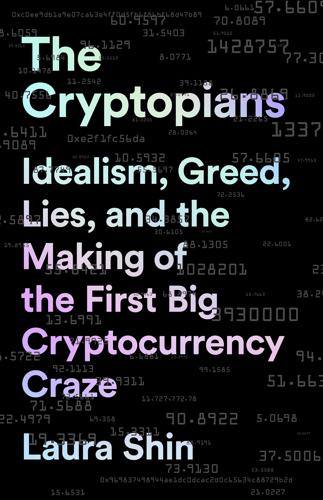
The Cryptopians: Idealism, Greed, Lies, and the Making of the First Big Cryptocurrency Craze
by
Laura Shin
Published 22 Feb 2022
He did not know, however, that they were in for a bumpy ride. CHRISTOPH JENTZSCH, THE C++ developer from Mittweida, Germany, who had, before launch, created the tests that aimed to fork the network, was now working on a new venture. Slock.it was an internet-of-things company to enable a blockchain-based, decentralized sharing economy. As he had demonstrated at DevCon 1 with the electric kettle, the Slock was a device that could be unlocked with an Ethereum transaction so that, for instance, the door to a decentralized Airbnb could open as soon as the guest paid. Christoph, his older brother Simon, and Stephan Tual, who were cofounders, and two employees—Lefteris and an American from Seattle named Griff Green—needed funding for Slock.it.
…
Or they could do something more interesting: sell a token that conferred voting rights. Even better, they decided, not only would they do that, but Slock.it would not raise the funds itself: the sale would create a decentralized autonomous organization (DAO) whose decisions would be controlled by its token holders, and that would pay Slock.it for developing the decentralized sharing economy. If Slock.it alone worked for the DAO, the DAO would function, in effect, like Slock.it’s executive board. As Christoph explained at DevCon, “You fund the development, you are able to vote on major decisions, and very importantly, you control the funds… [T]he money will not just go to us.” Slock.it, however, would hopefully become one of the first “service providers,” or contractors, to the DAO.
…
He would say Slock.it’s legal point of view was that creating the DAO was the same as gathering thousands of founders to create a company that didn’t need to register with the Securities and Exchange Commission. Slock.it’s other cofounders had slightly different conceptions, with self-described “crazy anarchist” Griff thinking of it more as a nonprofit governing body for the universal sharing economy that he was obsessed with—one that would allow him to be a nomad who lived out of a backpack and to rent things he needed on occasion. Lefteris and Stephan described it as a traditional company, except with token holders operating a smart contract at the center, which would return profits to them.
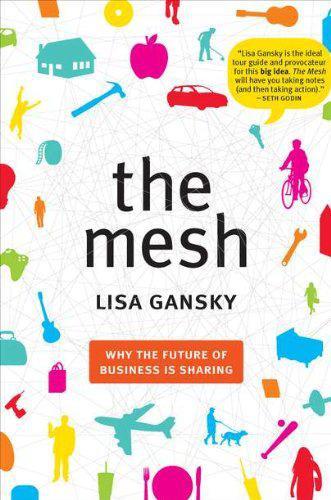
The Mesh: Why the Future of Business Is Sharing
by
Lisa Gansky
Published 14 Oct 2010
—PETER SCHWARTZ, futurist; cofounder and chairman, GBN, and partner in the monitor group “In this timely and extremely practical book, Gansky not only gives dozens of examples of sharing companies disrupting the status quo and experiencing exponential growth, but she also talks about why they’re successful—what it means to be a Mesh business and what you have to do to thrive as the world moves to a share economy.” —JOHN LILLY, CEO, Mozilla “Lisa Gansky has uncovered a revolution that even most of its perpetrators didn’t know existed. It’s a brave new marketplace, where consumers rule and business models are turned topsy-turvy. Where innovation and inspiration collide to create greener, cooler products and services that are high in value and values.
…
Firefox’s intellectual property is held under a special type of open-source license. The code, developed by community and incorporated into Firefox, continues to be held by those members, who in return grant access to Mozilla to embed and use it. This “communal IP,” as I call it, is a wonderful example of the share economy ethos that was, and hopefully will remain, at the core of the Internet. Mozilla, Creative Commons, Wikipedia, and Architecture for Humanity remain strong embodiments of that ethos. The result is continuously organic improvement of the Web experience for all. These open communities and platforms are a terrific demonstration of the culture of gifting and generosity that fueled the “Web economy” in the mid-1990s.
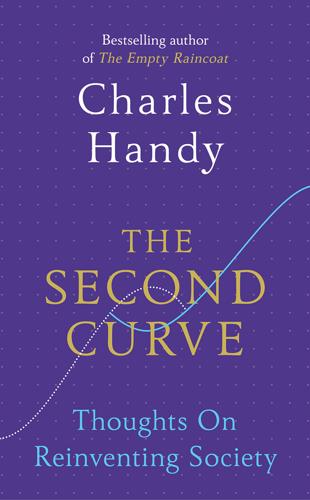
The Second Curve: Thoughts on Reinventing Society
by
Charles Handy
Published 12 Mar 2015
Everything you can do as a customer you can also do as a supplier, even write your own computer game if you so wish. You can sell a seat in your car, a meal in your home, a parking space outside your house, a loan of your bicycle, even time with your dog, along with limitless other services in the newly christened ‘sharing economy’. This new fashion is just one more example of the excluded middle, allowing you as an individual to bypass the conventional suppliers of these services by doing it yourself on the web. It is big business for some. By April 2014 Airbnb was valued by investors at $10 billion, bigger than Hyatt or the Intercontinental hotel groups, while the homeowners each earned an average of $7,530 in 2013 by renting out their rooms.
…
Employment will drop a bit, particularly in the domestic service sector. The capital goods sector may improve, although much of it will probably be imported. More people will shrink back into their homes rather than go out on the town. Our homes will increasingly become work hubs as we start to exploit all the opportunities of the new DIY and sharing economies. The worrying thought is that we will see less of other people except on the screens of our phones or computers, even if we work in some sort of organisation. It is this aspect of the DIY Second Curve that I will explore in the next essay, because we are all going to have to find our way up this curve, whether we like it or not.
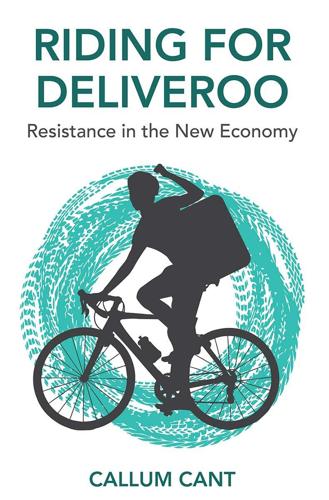
Riding for Deliveroo: Resistance in the New Economy
by
Callum Cant
Published 11 Nov 2019
They can stop working for any one capitalist and go and get another job, but they can never stop working for the capitalist class altogether. You work and are exploited to make your boss rich, or you starve – some ‘freedom’.5 It’s not unusual to hear pundits argue that people who understand class as Marx did are living in the past. In the new ‘sharing economy’, everyone is a winner, they say. But that same struggle between workers and bosses that has defined the last two centuries of our history still defines it today. Society is still predominantly divided into two camps: that small group of people who live off the value produced by others, and that big group of people whose only choice is to work or starve.
…
Brighton and Hove City Council (2010) Housing costs update Quarter 4 2010. www.brighton-hove.gov.uk/sites/brighton-hove.gov.uk/files/2010%20%284%29%20Housing%20Costs%20%28Oct-Dec%29.pdf; Brighton and Hove City Council (2017) Brighton & Hove housing market report Quarter 4 2017. www.brighton-hove.gov.uk/sites/brighton-hove.gov.uk/files/2017%20%284%29%20Housing%20Market%20Report%20%28Oct-Dec%29.pdf. 3. F. Kooti, M. Grbovic, L. M. Aiello, N. Djuric, V. Radosavljevic, and K. Lerman (2017) Analyzing Uber’s ride-sharing economy, in Proceedings of the 26th International Conference, ACM Press. 4. K. Bryan (2019) Deliveroo and Uber Eats takeaway riders rent jobs to ‘illegal immigrants’. The Times. www.thetimes.co.uk/article/deliveroo-and-uber-eats-takeaway-riders-rent-jobs-to-illegal-immigrants-ml36gvp93. 5. M. Perry (2000) Bread and work: social policy and the experience of unemployment, 1918–39.
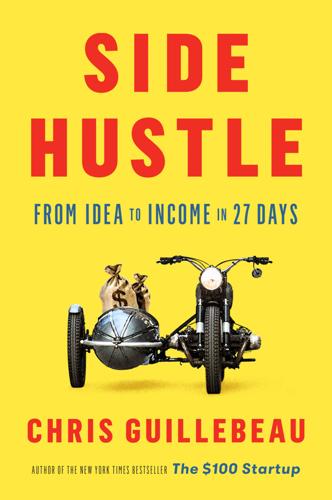
Side Hustle: From Idea to Income in 27 Days
by
Chris Guillebeau
Published 18 Sep 2017
You just need a napkin, a pen, and the power of observation. There’s a sharing economy service or app for everything these days. You can get paid to lend a set of tools to a neighbor you’ve never met. You can invest in a crowdfunding project led by strangers on a different continent. And now, several services let you rent out your car by the hour, day, or week to someone who needs it. If you have a car that you don’t drive every day, it’s one of the easiest ways to make some extra cash. In Los Angeles, Tahsir Ahsan took this hustle idea several steps further. After creating an account with Turo, one of the sharing economy services that operates as a middleman between renters and car owners, he quickly learned how to optimize his price and listing details to bring him just about as much business as he could handle.
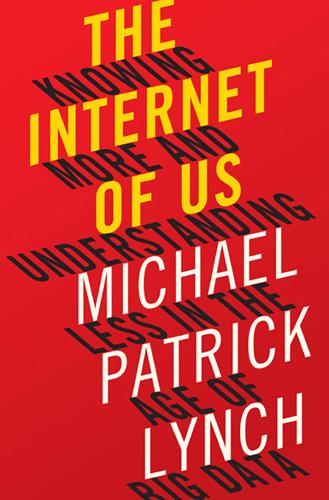
The Internet of Us: Knowing More and Understanding Less in the Age of Big Data
by
Michael P. Lynch
Published 21 Mar 2016
We are instead, Rifkin suggests, seeing the rise of the Collaborative Commons: The IoT [the Internet of Things] enables billions of people to engage in peer-to-peer social networks and cocreate the many new economic opportunities and practices that constitute life on the emerging Collaborative Commons. That platform turns everyone into a prosumer and every activity into a collaboration … allowing social capital to flourish on an unprecedented scale, making a shared economy possible.5 As a result, Rifkin argues, the Internet of Things and the networked nature of our digital form of life are moving us toward “the zero marginal cost society.” In turn, that challenges the central capitalist tenet, that increased human productivity requires increased human labor. “The traditional dream of rags to riches is being supplanted by a new dream of sustainable quality of life”—a life where we can spend more time engaged in pursuits that interest us, such as making music, cooking better food and thinking about philosophy.6 Rifkin thinks the same revolution is happening at the level of knowledge—perhaps especially there, since the wide availability of knowledge is the fuel powering the rest of our economy.
…
S., 159–60 Bush, George W., advisor to, 86 calculators, 153 Caldarelli, Guido, 112 cameras, 89, 94 security, 91, 97 Cancer Ward (Solzhenitsyn), 185 capitalism, changes in, 140–41, 144 Cartesian coordinates, 175 Cartesian foundationalism, 126–29, 131 Catanzaro, Michele, 112 Cavell, Stanley, 10 CCTV, 91 CD-ROMs, 8 censorship, 42, 65, 66, 134, 144 self-, 97 Chabris, Christopher, 30 Chalmers, David, 115 chat rooms, 118 chess, 165 children: and hands-on experience, 174 understanding in, 177 China: iPhone production in, 77–78, 139 oppressive government policies of, 81 truth deleted from Internet in, 65, 66 Chuck, 167–68, 173 Church, power held by, 133–34 CIA, 100 data searched by, 99 Clark, Andy, 115 climate change, 56, 100, 124, 144, 185, 198 cloud: data storage on, 23 data trail on, 9 in information sharing, 4–5 coherentism, 130 see also fabric metaphor, for structure of beliefs Collaborative Commons, 140–41 educational model of, 151–52 as first world resource, 144 collective responsibility, 118–19 College Humor (website), 24 common point of view, 48 communication: isolation and, 41–42 neuromedia and, 113–14 of standards, 39–40 computers, xvii brains and, 19 games, 19–20, 191 reality simulated in, see SIMs self-awareness in, 116, 193 Concept of Mind, The (Ryle), 168 conclusions, jumping to, 29–30, 58 Condorcet Jury Theorum, 120–21 confirmation bias, 54–55, 56 defined, 51–52 Congress, U.S., NSA vs., 99 consequences, 172 conservatives, 43 context, in data analysis, 161 continuum hypothesis, defined, 197 “cookies,” tracking by, 90 Copernicus, Nicolaus, 34 corporate responsibility, 118 corporations, as “people,” 200 correlation analyses, 158–59 Coursera, 150 cover-ups, 83 creationism, 49 creativity: “impossible” aspect of, 176, 177 knowledge and, xvii, 6, 180 as personally relative, 176–77, 181–82 in reaching understanding, 15–16, 174–77, 181, 183 value and importance of, 183 credibility, 40, 46, 50, 119–20 and human rights, 147 criminal justice system, identification techniques in, 93–95 critical thinking: democratic institutional support for, 61–62 importance of, 125 knowledge through, 33–34 crowdsourcing, 136–37, 141–42 Cukier, Kenneth, 8, 158–59 culture: form of life as, 10, 17–18 video map of, 161–62 cyborging, 5–6, 191–92 Daedalus, 13 D’Agata, John, 79–80 Daily Kos, 43 Daisey, Mike, 77–80, 82 data, information vs., 12, 14 data analysis, data analytics, 9, 90, 91, 155–63 data maps, 160 data mining, 90–91 abuses of, 95–107 commercial use of, 97, 105–6 control and, 96 incidental collection in, 95–96, 99, 199 intention in, 96–98, 100 data storage, 91, 95–96, 99–100, 108 data trails, 9, 185 dating sites, 157 deception: justified, and relation to autonomy, 83 truth and, 75–83 decision making: autonomy in, 102–7 overruling in, 102 undermining in, 102–3 Deepwater Horizon oil spill, responsibility for, 118 dehumanization, 105 democratization: capitalism vs., 141–42 Internet as force for, 11, 49, 55–63, 125, 133–38, 148 of public policy, 121 Dennett, Daniel, 74 dependency relationships, in understanding, 165–67, 177, 182 dephysicalized objects, defined, 69 Descartes, René, 19–20, 34, 39, 126–27, 129, 162, 174–76, 177 Dewey, John, 151 Dianetics, 61 Dick, Philip K., 75 dictionaries, 21–22 digital form of life, xviii, 3–20 as abstract and depersonalized, 41–50 caveats about, 184–88 as a construction, 70–74, 83–86, 187 defined, 10 limitations of, 16 understanding in, 153–78 see also Internet of Us digital groups, 118–19 digital knowledge: caveats about, 184–88 dependence on, xvi–xviii, 5, 12, 21–26, 31, 36, 179 distribution of, 113 education and, 148–54 full and equal participation in, 146 as interconnective, 184–88 international access rates for, 135, 144–45 massive proliferation of, 8, 11–12, 32, 56, 128 network of, 111–32 as power, 9, 98–99, 186 ready accessibility of, 3–4, 23, 30, 42, 56, 113–16, 135–36, 141, 149, 153, 180 speed of, 23, 29–30, 42, 135 using alternative sources to, 21–23 see also Google-knowing dinosaurs, 66 discursive knowledge, 169 “divided line” graph of knowledge, 126 DNA identification techniques, 93–94 Dreyfus, Hubert, 168, 171 drugs: abilities changed by, 173 SIM life compared to, 77 Duke University, 152 earthquakes, emotional epicenters of, 160–61 eavesdropping, 101 Ebola, 16 economy, 111, 162 as digitally dependent, 7–8, 9 free-market, 145 full and equal participation in, 146 globalization of, 139, 142 of knowledge, 138–45 manufacturing in, 138–39 prediction markets in, 122–23 education: cheapening of, 152–53 crisis in, 149–50 as epistemic resource, 143, 145 information technology and, 148–54 old model of, 151–52 U.S. hegemony in, 149 education bubble, 149, 152 education systems, 35–36 edX, 150 Einstein, Albert, 175, 177 elections, 120–23 emails, 81 emotion, reasoning vs., 51–55 “End of Theory, The: The Data Deluge Makes the Scientific Method Obsolete” (Anderson), 156–57 Enlightenment, 33–34, 58–59 environment: interacting with, 174 receptive tracking of, 27–30, 131 “environmental luck,” 203 epilepsy, 168 epistêmê, 14, 170, 172 epistemic economy, 147–48 epistemic equality, 138–48, 150, 187 epistemic inclusivity, 135–36 epistemic inequality, 142–48, 201 epistemic injustice, 146–48, 201 epistemic principles, 14, 47, 50, 55, 57, 60 as democratic, 62, 135–36 epistemic resources, 143–45 epistemic trust, 195 epistemology, defined, see epistemic principles Epistemology and Cognition (Goldman), 194 Essay concerning Human Understanding, An (Locke), 35 ethical values: changes in, 53–54 democratic, 58 and fragmentation, 44 technology and, xvii, 6, 89–90 “eureka” moment, 176, 177 Eurocentrism, 162 Euthyphro (Plato), 165–66, 172 evangelicals, 47–49 evidence, in change of belief, 54–55 expectations: in changing of social constructs, 72–73 conclusions colored by, 29–30, 160 theoretical, 159 of truth, 79–80 experience: as foundation for knowledge, 127, 131 in hands-on movements, 173–74 illusion and reality in, 18–19 procedural knowledge in, 172–73 understanding through, 16, 173–74 experts, expertise: knowledge based on, 15, 35–38, 120, 139–40 outsourcing of, 141–42 in predicting, 122–23 in problem solving, 137 understanding and, 170–71 explanation, 165–67, 182 extended mind hypothesis, 115 fabric metaphor, for structure of beliefs, 129 Facebook, xvii, 8, 24, 43, 72, 124 hegemony of, 146 as simulacrum, 16 tracking by, 105 fact-checking, 46–47, 56, 85, 130 falsehoods, 77–83 “fast thinking” processes, 29–30 FBI, data searched by, 99 fiction, 79–80 fingerprints, 93 FISA, see Foreign Intelligence Surveillance Act fishbowls, digital life compared to, 91 Fishburne, Laurence, 18–19 Flanagan, Owen, 73–74 Floridi, Luciano, 10, 69–71 Foreign Intelligence Surveillance Act (FISA; 1978), 88 court of, 99, 109 form of life: defined, 10 philosophy in, 17–18 Forms (Platonic), 126 foundationalism, Cartesian, 126–29, 131 Fox News, 43 fragmentation: of reason, 148 threat of, 4, 41–63 Freebase, 151 freedom of choice, autonomy of decision vs., 102 French Revolution, 58 Freud, Sigmund, 184 Fricker, Miranda, 146–48, 201 Galileo, 34, 68 Galton, Francis, 120 games, gaming, 20, 191 gatekeeping, 128, 134, 146 gender, 162 in marriage, 53–54, 72 in problem solving, 137 Georgetown University, 77–78 Gilbert, Margaret, 117–19, 200 Glass, Ira, 78 Glaucon, 54 Glauconian reasoning, 54–55, 56–58 global economy, 139, 142, 152 global warming, 56, 100, 124, 144, 185, 198 Goldberg, Sandy, 115 Goldman, Alvin, 194 Google, 5, 23, 30, 113, 128, 130, 135, 163, 174, 182, 203 business model of, 9 data collection and tracking by, 90, 155–56, 158, 161 as hypothetical “guy,” 24 monopolization by, 145–46 propaganda disseminated on, 66 in reinforcement of one’s own beliefs, 56 Google Complete, 155 Google Flu Trends, 158, 183 Google Glass, 149, 186 Google-knowing, xvi, 21–40, 25 defined, 23 limitations of, 174, 180 reliance on, 6–7, 23, 25–26, 30–31, 36, 113, 116, 153, 163, 179–80 Google Maps, 116 Google Street View, 23 Gordon, Lewis, 148 gorilla suit experiment, 30 government: autonomy limited by, 109 closed politics of, 144–45 data mining and analysis used by, 9, 90–91, 93, 104, 107 online manipulation used by, 81 purpose of, 38 transparency of, 137–38 Greece, classical philosophy of, 13, 47, 166–67, 171–72 Grimm, Stephen, 164 Guardian, 81 Gulf of Mexico, oil spill in, 118 H1N1 flu outbreak, tracking of, 158 Haidt, Jonathan, 51–54, 56, 57, 60, 196–97 Halpern, Sue, 106 Harvard Law Review, 89 Hazlett, Allan, 49 HBO GO, 145 Heidegger, Martin, 177 Hemingway, Mark, 46 Higher Order Thinking Skills (HOTS), 61 Hippocrates, 13 hive-mind, 4, 136 HM (patient), 168–69 Hobbes, Thomas, 38, 109 holiness, logical debate over, 166–67 homosexuality, changing attitudes toward, 53–54 Houla massacre, 83 Howe, Jeff, 136 Huffington Post, 43 human dignity: autonomy and, 58, 59–60 information technology as threat to, 187 interconnectedness and, 184–88 privacy and, 101–9 human rights, 54, 60 digital equality as, 142–48 protection of, 145 Hume, David, 48 hyperconnectivity, 184–88 identity: digital reshaping of, 73–74 manufactured online, 80–81 “scrubbing” of, 74 illegal searches, 93 illusion, distinguishing truth from, 67–74 incidental data collection, 95–96, 99 inclusivity, 135–37 income inequality, 142 inference, 29, 60, 172 information: accuracy and reliability of, 14, 27–30, 39–40, 44–45 collected pools of, 95–100, 107–9 distribution vs. creation of, 24 immediate, unlimited access to, 3–4, 23, 30, 42, 56, 113–16, 135–36, 141, 149, 153, 180 as interconnective, 184–88 vs. knowledge, 14 sorting and filtering of, 12, 26–29, 44–45, 127–28 information age, 111 information analysis, techniques of, 8–9 information cascades, 36, 66, 121 defined, 32 information coordination problem, 38–39, 56 information “glut,” 9–10, 44 information privacy, 94–100 and autonomy, 102–7 information sharing, coordination in, 4–5 information technology: costs of, 145 data trail in, 9 democratization through, 133–38, 148 devices and platforms of, xvii–xviii, 3, 7–8, 10, 41–43, 69, 70, 77–78, 90–91, 106–7, 144, 148–49, 156, 180, 185–87 disquieting questions about, 6 in education, 148–54 experience vs., 173–74 hypothetical loss of, 5 paradox of, 6, 12, 179 pool of data in, 95–100 surveillance and, 89–109 typified and dephysicalized objects in, 69 unequal distribution of, 144–45 see also Internet of Things information theory, 12 infosphere: defined, 10 feedback loop of social constructs in, 72–73 network of, 180 pollution of, 148 vastness of, 128 InnoCentive, 136–37, 141 institutions, cooperative, 60–61 intellectual labor, 139–40 International Telecommunications Union, 135 Internet: author’s experiment in circumventing, 21–24, 25, 35 in challenges to reasonableness, 41–63 changes wrought by, xv–xviii, 6–7, 10–11, 23, 180, 184–88 as a construction, 69 cost and profit debate over, 145 as epistemic resource, 143–45 expectations of, 80–83 as force for cohesion and democracy, 55–63 freedom both limited and enhanced by, 92–93 international rates of access to, 135, 144–45 monopolization and hegemony in, 145–46 as network, 111–13 “third wave” of, 7 see also World Wide Web; specific applications Internet of Everything, 184 Internet of Things: blurring of online and offline in, 71 defined, 7–8 integration of, 10 shared economy in, 140–41 threat from, 107, 153, 184–88 Internet of Us, digital form of life as, 10, 39, 73, 83–86, 106, 179–88 interracial marriage, 54 interrogation techniques, 105 In the Plex (Levy), 5–6 Intrade, 122–23, 136 intuition, 15, 51–53 iPhone, production of, 77–78, 80, 139, 144 IQ, 52 Iraq, 83 Iraq War, 137 ISIS, 128 isolation, polarization and, 42–43 I think, I exist, 127 James, William, 11 Jefferson, Thomas, 143 Jeppesen, Lars Bo, 137 joint commitments, defined, 117–18 journalism, truth and, 84 judgment, 51–55, 57 collective vs. individual, 117, 120–25 justice, 54 “just so” stories, 27–28 Kahneman, Daniel, 29, 51 Kant, Immanuel, 34, 58–60, 62, 85 Kitcher, Philip, 182 knowing-which, as term, 171 knowledge: in big data revolution, 87–190 changing structure of, 125–32 common, 117–19 defined and explained, xvii, 12–17 democratization of, 133–38 digital, see digital knowledge; Google-knowing distribution of, 134–35, 138, 141 diverse forms of, 130 economy of, 138–45 hyperconnectivity of, 184–88 individual vs. aggregate, 120–24 information vs., 14 Internet revolution in, xv–xviii minimal definition of, 14–15 as networked, 111–32 new aspects in old problems of, 1–86, 90 personal observation in, 33–35 political economy of, 133–54 as power, 9, 98–99, 133, 185–86 practical vs. theoretical, 169, 172 procedural, 167–74 recording and storage of, 127–28 reliability of sources of, 14, 27–31, 39–40, 44–45, 114–16 as a resource, 38–39 shared cognitive process in attainment of, 114–25 three forms of, 15–17 three simple points about, 14–17 truth and, 19, 126 understanding vs. other forms of, 6, 16–17, 90, 154, 155–73, 181 value and importance of, 12–13 knowledge-based education, 61 Kodak camera, 89 Koran, 48, 61 Kornblith, Hilary, 194 Krakauer, John, 169 Kuhn, Thomas, 159–60 Lakhani, Karim, 137 Larissa, Greece, 13, 15, 182 Leonhardt, David, 122–23 Levy, Steven, 5–6 liberals, 43 libraries, 22, 134, 153–54 of Alexandria, 8 digital form of life compared to, xvi, 17, 20, 44–45, 56, 63, 128 as epistemic resource, 145 Google treated as, 24 “Library of Babel” (Borges), 17 “Lies, Damned Lies, and ‘Fact-Checking’: The Liberal Media’s Latest Attempt to Control the Discourse” (Hemingway), 46 Lifespan of a Fact, The (D’Agata), 79 literacy, 35, 134 literal artifacts: defined, 69 social artifacts and, 71, 72 lobectomy, 168 Locke, John, 33–36, 39, 60, 67–70, 85, 127, 143 “Locke’s command,” 33–34 London Underground, mapping of, 112–13 machines, control by, 116 “mainstream” media, 32 censorship of, 66 majority rule, 120 manipulation: data mining and, 97, 104–6 of expectations, 80–82 persuasion and, 55, 57–58, 81–83, 86 manuals, 22 manufacturing, 138–39 maps, 21–22 marine chronometer, 137 marketing: bots in, 82 Glauconian, 58 targeted, 9, 90, 91, 105 marriage: changing attitudes toward, 53–54 civil vs. religious, 58–59 as social construct, 72 martial arts, 170 mass, as primary quality, 68 Massive Open Online Courses (MOOCs), 150–53 mathematics, in data analysis, 160, 161 Matrix, The, 18–19, 75 Mayer-Schönberger, Viktor, 8, 158–59 measles vaccine, 7, 124 Mechanical Turk, 136, 141 media, 134 diversity in, 42 opinion affected by, 53 sensationalist, 77 memory: accessing of, 114, 115 in educational models, 152 loss of, 168–69 superceded by information technology, xv–xvi, 3, 4, 6, 94, 149 trust in, 28, 33 Meno, 13 merchandising, online vs. brick and mortar, 70 Mercier, Hugo, 54 metrics, 112 Milner, Brenda, 168–69 mirror drawing experiment, 169 misinformation, 6–7, 31–32 in support of moral truth, 78–80, 82 mob mentality, 32–33 MOOCs (Massive Open Online Courses), 150–53 moral dumbfounding, 52 morality, moral values, xvii, 6, 44, 53–54, 195 “Moses Illusion,” 29–30 motor acuity, mastery of, 170–71, 173 motor skills, 167–74 Murray, Charles J., 147 music, as dephysicalized object, 69–70 Nagel, Thomas, 84 naming, identification by, 94 narrative license, truth and falsehood in, 78–79 National Endowment for the Humanities, 61 National Science Foundation, 61 Nature, 158, 161 Netflix, 69, 145 Net neutrality, defined, 145 netography, 112–13 of knowledge, 125–32 networked age, 111 networks, 111–32 collective knowledge of, 116–25, 180 knowledge reshaped and altered by, 125–32, 133, 140 in problem solving, 136 use of term, 111–12 neural system, 26 neural transplants, 3, 5 Neurath, Otto, 128–29 neuromedia, 3–5, 12, 17–19, 113–14, 132, 149, 168, 180–82, 184 limitations of, 174 as threat to education, 153–54 Newton, Isaac, 175 New Yorker, 25, 26 New York Times, 122, 174 Nietzsche, Friedrich, 111 Nobel laureates, 149 noble lie, 83, 86 nonfiction, 79–80 NPR, 78, 80 NSA: alleged privacy abuses by, 98–100, 138 data mining by, 9, 91, 95–96, 108, 167 proposed limitations on, 109 Ntrepid, 81 nuclear weapons technology, xvii nullius in verba (take nobody’s word for it), 34 Obama, Barack, 7, 100 administration, 109 objectivity, objective truth, 45, 74 as anchor for belief, 131 in constructed world, 83–86 as foundation for knowledge, 127 observation, 49, 60 affected by expectations, 159–60 behavior affected by, 91, 97 “oceanic feeling,” 184 “offlife,” 70 OkCupid, 157 “onlife,” 70 online identity creation, 73–74 online ranking, 119–21, 136 open access research sharing sites, 135–36 open society: closed politics vs., 144–45 values of, 41–43, 62 open source software, 135 Operation Earnest Voice, 81 Operation Ivy, ix opinion: knowledge vs., 13, 14, 126 in online ranking, 119–20 persuasion and, 50–51 truth as constructed by, 85–86 optical illusions, 67 Oracle of Delphi, 16–17, 171 Outcome-Based Education (OBE), 61–62 ownership, changing concept of, 73 ox, experiment on weight of, 120 Oxford, 168 Page, Larry, 5–6 Panopticon, 91, 92, 97 perception: acuity of, 173 distinguishing truth in, 67–74 expectations and, 159–60 misleading, 29–30, 67 as relative, 67–68 perceptual incongruity, 159–60 personal freedom, 101 persuasion, 50–51, 54–55, 56–58 by bots, 82 phone books, 22 phone data collection, 95, 108 photography: privacy and, 89, 93 sexually-explicit, 99 photo-sharing, manipulation in, 82–83 Plato, 13–14, 16–17, 54, 59, 83, 126, 165–67 polarization, 7 herd mentality in, 66 isolated tribes in, 43–46 politics, 162, 196 accessibility in, 23 activism in, 66, 67 bias in, 43–46 closed, 144–45 elections in, 120–23 of knowledge, 133–54 opposition to critical thinking in, 61–62 persuasion in, 57–58, 82–83 power in, 86, 133 prediction market in, 122–23 Politifact, 46 Popper, Karl, 41–43 Postman, L.
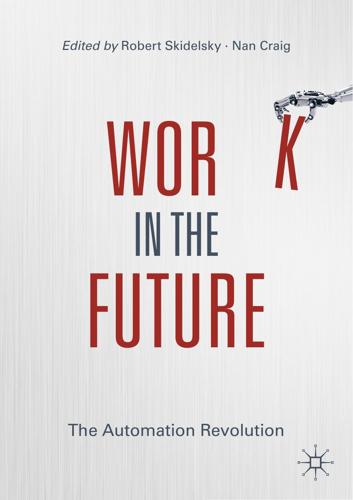
Work in the Future The Automation Revolution-Palgrave MacMillan (2019)
by
Robert Skidelsky Nan Craig
Published 15 Mar 2020
This is exactly what a lot of companies have found when they try to bring high-skilled workers onto an Uberised platform: the workers end up going i ndependent 1 Srnicek (2016). 14 Two Myths About the Future of the Economy 135 since it makes more economic sense for them. One of the more prominent examples of this is Homejoy, which was a sort of Uber for home cleaning. It collapsed after many of its cleaners decided to leave the platform, because they could make more money elsewhere.2 Growth in the sharing economy and in these lean platforms tends to be premised not on being profitable right now, but on the promise that at some point in the future they will be profitable. At the current moment, most of these companies are losing significant chunks of money. This is a growth before profit model, which dictates that losses are part of the strategy.
…
Retrieved from http://www.reuters.com/article/uber-china-idUSKCN0VR1M9 Jovanovic, B., & Rousseau, P. L. (2005). General Purpose Technologies. Working Paper (National Bureau of Economic Research, January 2005). Retrieved from http://www.nber.org/papers/w11093 Kosoff, M. (2017, November 9). Why the ‘Sharing Economy’ Keeps Getting Sued. Vanity Fair. Retrieved from https://www.vanityfair.com/news/2017/11/ postmates-worker-classification-lawsuit Levine, D., & Somerville, H. (2016, May 10). Uber Drivers, If Employees, Owed $730 Million More: US Court Papers. Reuters. Retrieved from http:// www.reuters.com/article/us-uber-tech-drivers-lawsuit-idUSKCN0Y02E8 Somerville, H. (2018, January 19).
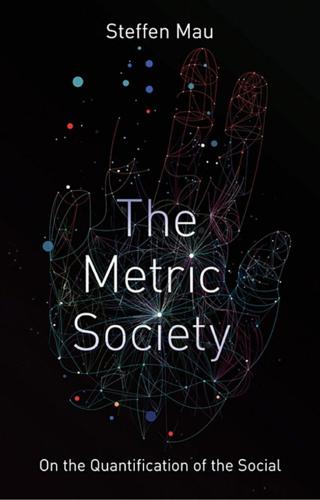
The Metric Society: On the Quantification of the Social
by
Steffen Mau
Published 12 Jun 2017
A further classification is denoted by colour (up to 9,999 points), after which the stars become shooting stars. Those with the highest market reputation (more than a million positive ratings) are distinguished with a silver shooting star. It will come as no surprise that even portals which surround themselves with an aura of freedom, community and independence and are regarded as part of the sharing economy, such as Airbnb or Couchsurfing (‘Stay with locals and make travel friends’), are not averse to the use of ratings (Hamari et al. 2015; Lauterbach et al. 2009). On the contrary, these brokering systems would be unlikely to survive without the systematic recording and communication of reputational data, given that the interacting parties enter into a transaction with no knowledge of each other – a potentially high-risk proposition, especially when entrusting someone with your own four walls.
…
Haas, Peter M. (1992) ‘Introduction: epistemic communities and international policy coordination’, International Organizations 46/1 (pp. 1-35). Habermas, Jürgen (2007) The Theory of Communicative Action, 2 vols., trans. Thomas McCarthy, Cambridge: Polity. Haffert, Lukas (2016) Die Schwarze Null. Über die Schattenseiten ausgeglichener Haushalte, Berlin: Suhrkamp. Hamari, Juho, Mimmi Sjöklint and Antti Ukkonen (2015) ‘The sharing economy: why people participate in collaborative consumption’, Journal of the Association for Information Science and Technology 67/9 (pp. 2047-59). Han, Byung-Chul (2015) The Burnout Society, trans. Erik Butler, Stanford Briefs, an imprint of Stanford University Press. Han, Byung-Chul (2017) Psychopolitics: Neoliberalism and New Technologies of Power, trans.
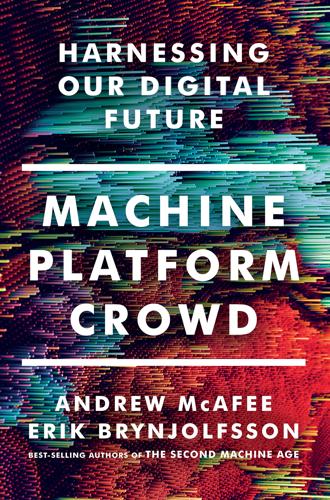
Machine, Platform, Crowd: Harnessing Our Digital Future
by
Andrew McAfee
and
Erik Brynjolfsson
Published 26 Jun 2017
The economists Tyler Cowen and Alex Tabarrok highlight online user reviews of platforms and other products as examples of a broad reduction in information asymmetries. This reduction has come about because of the diffusion of powerful technologies like smartphones, sensors, and networks, and because of ever-growing amounts of data. As Cowen and Tabarrok write, “Many of the exchanges in the sharing economy . . . use two-way reputational systems. That is the customer rates the Uber driver, but in turn the Uber driver rates the customer. Dual reputation systems can support a remarkable amount of exchange even in the absence of law or regulation.” In the case of Uber and others, much of this “remarkable amount of exchange” comes from temporary and part-time drivers.
…
¶ Benjamin Edelman, Michael Luca, and Dan Svirsky found in an experiment that Airbnb hosts were, on average, 16% less likely to rent to prospective guests whose newly created profiles included a distinctively African American name. Benjamin Edelman, Michael Luca, and Dan Svirsky, “Racial Discrimination in the Sharing Economy: Evidence from a Field Experiment,” Ben Edelman.org, September 16, 2016, http://www.benedelman.org/publications/airbnb-guest-discrimination-2016-09-16.pdf. # See Figure 5 in Chapter 7 (page 156) for an explanation of the p×q (price times quantity, or revenue) rectangle. ** A 2016 study by economists at Uber, Oxford, and the University of Chicago used almost 50 million UberX rides across four US cities to estimate the actual demand curve for the service.
…
Lodging Industry, but Los Angeles Hotels Continue to Thrive,” Los Angeles Times, September 26, 2016, http://www.latimes.com/business/la-fi-airbnb-hotels-20160926-snap-story.html. 223 Airbnb was responsible for a 10% decline: Gregorios Zervas, Davide Proserpio, and John W. Byers, “The Rise of the Sharing Economy: Estimating the Impact of Airbnb on the Hotel Industry,” last modified November 18, 2016, http://cs-people.bu.edu/dproserp/papers/airbnb.pdf. Chapter 10 THAT ESCALATED QUICKLY: THE EMERGENCE OF THE CROWD 229 the author Robert Wright: Robert Wright, Twitter page, accessed February 6, 2017, https://twitter.com/robertwrighter. 229 “Most newsgroup traffic”: Robert Wright, “Voice of America,” New Republic, September 13, 1993, http://cyber.eserver.org/wright.txt. 230 “The things [the Net] changes”: Ibid. 231 An estimated 130 million books: Leonid Taycher, “Books of the World, Stand Up and Be Counted!

Radical Technologies: The Design of Everyday Life
by
Adam Greenfield
Published 29 May 2017
Some developers understand the blockchain not primarily as an end in its own right, but as an enabling payment and security infrastructure for capturing the value from situations and settings there’s no efficient way to monetize at present—something capable of “fractionalizing” industries, “liquifying” markets, and siphoning from the world that fraction of gain that has to date remained beyond the reach of the so-called sharing economy. In this vision, it is through the blockchain that the internet of things will acquire the ability to exchange access permission for payment, and via the internet of things that gradients of access will be inscribed on the physical world. Specifically, this means that the smart contract’s property of intrinsic enforcement need not be limited to exchanges of digital assets, or debts denominated in cryptocurrency like Ether, but can be extended to whatever tangible artifacts can be joined to the network.
…
Specifically, this means that the smart contract’s property of intrinsic enforcement need not be limited to exchanges of digital assets, or debts denominated in cryptocurrency like Ether, but can be extended to whatever tangible artifacts can be joined to the network. A rudimentary version of this proposition is already being trialled by a German startup called Slock.it (tagline: “the future infrastructure of the Sharing Economy”). Slock.it claims that its devices will function as a bridge between the blockchain and objects in the physical world, affording those objects “an identity, the ability to receive payments and the capability to enter complex agreements.” Their first product is a networked lock, that releases if and only if the terms of its contract are met.
…
Here’s where everything implied by intrinsic enforcement comes into its own, in the real world of apartments, storage lockers, conference rooms and cars: applied to such physical spaces, the smart contract functions as a potent gatekeeping mechanism, supporting ever-finer gradients of payment and remote access control. It’s easy to imagine such a module being retrofitted to doors and gates, replacing the code locks which have sprouted like fungus all over certain high-demand districts in recent years—the telltale sign of a property being rented on AirBnb. What we now know as the sharing economy, then, only begins to suggest what is possible in a world where the smart contract is grafted onto the pervasive fabric of sensing and actuation we think of as the internet of things. By giving blockchain-mediated smart contracts tangible real-world impact, Slock.it’s “smart locks” make something that might otherwise remain an abstraction concrete and easy to understand.
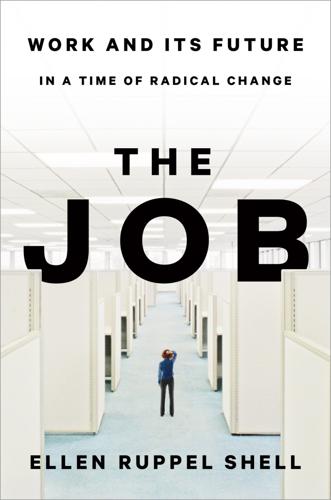
The Job: The Future of Work in the Modern Era
by
Ellen Ruppel Shell
Published 22 Oct 2018
far outpacing the growth in fossil fuels “Renewable Generation Capacity Expected to Account for Most 2016 Capacity Additions,” “Today in Energy,” US Energy Information Administration, January 10, 2017, https://www.eia.gov/todayinenergy/detail.php?id=29492. the interference—and cost—of a middleman Trebor Scholz, “Platform Cooperativism vs. the Sharing Economy,” Medium, December 5, 2014, https://medium.com/@trebors/platform-cooperativism-vs-the-sharing-economy-2ea737f1b5ad. “capitalism in which profit” Lawrence H. Summers and Ed Balls, “Report of the Commission on Inclusive Prosperity,” Center for American Progress, January 15, 2015, https://www.americanprogress.org/issues/economy/reports/2015/01/15/104266/report-of-the-commission-on-inclusive-prosperity/.
…
It was 2011, a time when most Americans distrusted unions, sensing corruption in their well-paid bureaucrats and economic stagnation in their rules. Like LePage, many of us pinned our hopes on a “free-agent nation” of market-driven employment relationships, whereby each of us would be free to negotiate our own best terms based on our perceived value to employers and customers. The idea of a “sharing economy” in which some of us started “sharing” our homes, cars, or other assets for a fee had just taken hold, and some of us felt ourselves well liberated from the yoke of “old-fashioned” employment contracts. But recently that thinking has shifted. In 2017, public support for unions was at a ten-year high, with roughly 60 percent taking a positive view.
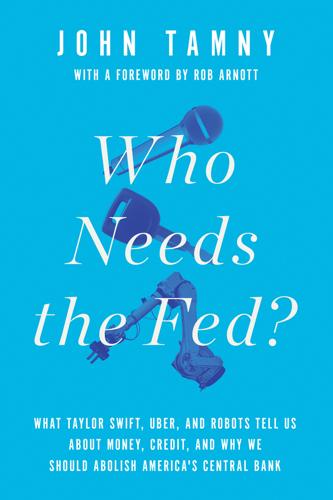
Who Needs the Fed?: What Taylor Swift, Uber, and Robots Tell Us About Money, Credit, and Why We Should Abolish America's Central Bank
by
John Tamny
Published 30 Apr 2016
Instead, the dawn of the automobile meant that the business owner in a remote locale wasn’t limited to selling to fellow townsfolk; he could deliver his goods to customers far and wide. More recently, the car has turned consumers of automobiles into capitalists of a different kind. Thanks to Uber and the “sharing economy,” cars that we purchase for personal use are increasingly an economic resource we can charge people for rides in. Speaking of computers, does anyone remember brands such as Kaypro, Commodore, and Tandy Corporation’s TRS-80 Micro Computer? Those of us born in the 1960s and 1970s might recall all three from the 1980s, when visionary entrepreneurs started to mass market these items to consumers.
…
W., 156 Phillips curve, 156 Pipes, Sally, 53 political class, 51–52, 58–59 Ponnuru, Ramesh, 138–39 Popular Economics (Tamny), 3, 4, 48–49, 67, 81, 142, 143 price cutting, 73 private air transportation, 85–86, 98 private-sector investment, 78 production and money supply, 136 property development, 33, 35–37 quantitative easing (QE) program, 149–54, 172 RadioShack, 57 Rasmussen, Bill, 109 Reagan, Ronald, 49–50, 68–69, 71, 72, 171, 172 recessions, 142, 147, 153 recruiting of college athletes, 15–21 Reds (film), 23 Reid, Harry, 51 Reynolds International, 54 The Rise and Fall of Monetarism (Smith), 121 Rivals recruit rankings, 15–18, 19–20 the Roaring Twenties, 94–95 robots and job creation, 176–80 Rock, Arthur, 31 Romney, Mitt, 126 Roosevelt, Franklin D., 61, 142, 167–69 Rothbard, Murray, 89, 92 Rubio, Marco, 59 The Russians (Smith), 77 Ryan, Paul, 51, 150 Saban, Nick, 79, 129 Sampler, Jeffrey, 105 Sam’s Club, 105, 106–7 San Francisco 49ers, 17 Sarbanes-Oxley regulations, 119, 124 Sarkisian, Steve, 16, 20 saving money, 57–58, 77, 88, 112, 149, 176 Say’s Law, 94–95 Schlumberger, 73 Schumpeter, Joseph, 28, 123 Secrets of the Temple (Greider), 121 Securities and Exchange Commission (SEC), 38 Security Pacific Bank, 34–35, 101, 108, 129, 164–65 The Seven Fat Years (Bartley), 70, 157–58 Shampoo (film), 23 Shandling, Garry, 24 Shanghai, 138 Sharma, Ruchir, 151 She’s Gotta Have It (film), 109 Shlaes, Amity, 167–69 Shula, Mike, 79, 129 Shultz, George, 170 Silicon Valley, 27–32, 143 Smith, Adam, 65, 67, 77, 119, 140, 142–43 Smith, David, 121 Smith, Hedrick, 77 Smith, Robert H., 34–37, 108, 111, 129, 162, 164–65, 173 Smoot-Hawley Tariff, 142 Snow, John, 118 Solyndra, 59, 60 Soviet Union, 76–78, 80, 94 Splash (film), 22–23 Stanford University, 16–17 stimulus spending, 53, 141 student debt, 173–74 substitution effect and traditional banking alternatives, 105, 106–7 supply-side economics, 48–55, 79–80, 92–94, 141, 144 surge pricing, 12–14, 106–7, 165–66 Swanson, Bret, 143 Swift, Taylor, 9–12, 13, 162–63 Switzer, Barry, 18–19 tariffs, 3 taxes as barrier to economic growth and prosperity, 3 and Laffer curves, 50, 54–55 Smoot-Hawley Tariff, 142 and supply-side economics, 49–51, 79–80, 92–93, 141 technology innovation in Austin, Texas, 123–25 robots and job creation, 176–80 Ten Days That Shook the World (Reed), 23 Tennessee Valley Authority (TVA), Texas Instruments, 155 The Theory of Money and Credit (von Mises), 87 Thiel, Peter, 28–29, 59, 150, 168 This Time Is Different (Reinhart and Rogoff), 168 Thwaites, Thomas, 64–65 Timiraos, Nick, 147, 148 toasters, 64–65 Town & Country (film), 23–24, 28 Townsend, Robert, 109 Trammel, Joel, 123–25 Troubled Asset Relief Program (TARP), 172–73 Truffaut, François, 24 Trump, Donald, 33–37 The 21st Century Case for Gold (Gilder), 68 The Twilight of Sovereignty (Wriston), 109 2008 financial crisis, 106, 110 Uber and “easy credit,” 115–16 and the “sharing economy,” 57 and surge pricing, 12–14, 106–7, 165–66 Ueberroth, Peter, 34–35 unicorn companies, 28, 148 University of Michigan, 16–17, 18, 19, 20, 21, 79, 103, 127, 148 University of Southern California (USC), 18–20 University of Washington, 20 USAA, 108 U.S. Treasuries market prices and cost of credit, 42 and “money multipliers” myth, 91–92 and mortgage-backed securities, 150–52 venture capital, 28–29, 109 Volcker, Paul, 170 von der Osten, Hans-George, 91 von Mises, Ludwig bank lending practices, 85, 88 dollar devaluation, 117 Human Action, 20 on market forces, 20, 152 on money and capital, 92, 94, 136–37, 161 on price of credit, 9 The Theory of Money and Credit, 9, 85, 87, 135 on why people borrow money, 87, 90, 148 Wachovia, 120 Wall Street bank bailouts, 127–30 Goldman Sachs, 41, 44, 45, 46 housing boom and “easy credit,” 113–14 increased regulation of banks, 119–20 and investment banking, 124–26 involvement with federal government, 129–31 as “price giver,” 126 Wal-Mart checking accounts, 108 Sam’s Club, 105, 106–7 “War on Poverty,” 60, 61 Warren, George, 167 WBH Energy, 73 Wealth and Poverty (Gilder), 118 The Wealth of Nations (Smith), 65, 67, 119, 140 wealth, paper currency, and real economic wealth, 1 Wells Fargo, 120 Wharton School of Business, 38 When Money Dies (Fergusson), 91, 121 White, Harry Dexter, 169 Winkler, Henry, 22 The Wire (television show), 135 Woodson, Charles, 16 Woods, Thomas E., Jr., 113–15 Wriston, Walter B., 109 Yellen, Janet, 149, 154, 156 yuan and Chinese economy, 137, 152–53 Zero to One (Thiel), 29, 97 Zuckerberg, Mark, 29 Zuckerman, Gregory, 66, 71, 72, 120

Make Your Own Job: How the Entrepreneurial Work Ethic Exhausted America
by
Erik Baker
Published 13 Jan 2025
Babson College, a business school in Massachusetts specializing in entrepreneurship, launched an MBA course called “Entrepreneurship and the Gig Economy,” which taught students how to “get contract work, line up side hustles, negotiate fees, and market themselves in a new kind of labor market.”15 Even analysts who acknowledged the potential for exploitation in the gig economy were often loath to question the underlying assumption that digital platforms were, at least ideally speaking, engines of entrepreneurship. The rise of the “sharing economy,” the NYU economist Arun Sundararajan wrote in 2016, posed a social choice between “two contrasting future worlds of work”—one populated by “disenfranchised drones,” and one by “empowered entrepreneurs.” The advance of platform capitalism couldn’t be stopped, he implied; the task was to ensure that it functioned as a tool for promoting entrepreneurship rather than serfdom.16 Although each relied on a vision of the precarious urban proletariat as an untapped reservoir of entrepreneurial energy, the notion of gig-economy entrepreneurship had a major advantage over de Soto’s scheme for bringing informal entrepreneurs into the formal sector: its claims were much harder to falsify.
…
See also Jeff Faux, The Servant Economy: Where America’s Elite Is Sending the Middle Class (New York: Wiley, 2012). 13Florida, Creative Class, 77. 14The literature on the so-called gig economy is now vast. Inter alia see Nick Srnicek, Platform Capitalism (Cambridge: Polity Press, 2017); Juliet Schor, After the Gig: How the Sharing Economy Got Hijacked and How to Win It Back (Princeton, NJ: Princeton University Press, 2021); Jamie Woodcock and Mark Graham, The Gig Economy: A Critical Introduction (Cambridge: Polity, 2020); Phil Jones, Work Without the Worker: Labour in the Age of Platform Capitalism (London: Verso, 2021); and Louis Hyman, Temp: How American Work, American Business, and the American Dream Became Temporary (New York: Viking, 2018), chs. 12-13. 15Micha Kaufman, “The Gig Economy: The Force That Could Save the American Worker?”
…
Wired, September 2013; Simon Mainwaring, “Purpose at Work: How Uber Scales a Culture of Entrepreneurship,” Forbes, November 5, 2019; Dan Blacharski, “Gig Economy Platforms Are Creating a New Class of Entrepreneurs,” Entrepreneur, February 15, 2017; Brian Scudamore, “How the Gig Economy Is Fueling a New Type of Entrepreneur,” Forbes, May 8, 2018, Linda Gorman, “How the Gig Economy Supports Entrepreneurial Activity,” NBER Bulletin on Entrepreneurship, April 14, 2021, https://www.nber.org/be-20211/how-gig-economy-supports-entrepreneurial-activity; Michelle Cheng, “How Universities Are Starting to Prepare Students for the Gig Economy,” Quartz, October 28, 2019. 16Arun Sundararajan, The Sharing Economy: The End of Employment and the Rise of Crowd-Based Capitalism (Cambridge, MA: MIT Press, 2016), 202. 17Monica Anderson, Colleen McClain, Michelle Faviero, and Risa Gelles-Watnick, “The State of Gig Work in 2021,” Pew Research Center, December 8, 2021; Elka Torpey and Andrew Hogan, “Working in a Gig Economy,” Career Outlook, US Bureau of Labor Statistics, May 2016; Lydia DePillis, “If the Job Market Is So Good, Why Is Gig Work Thriving?”
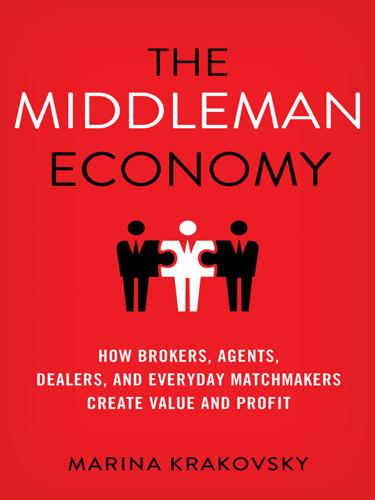
The Middleman Economy: How Brokers, Agents, Dealers, and Everyday Matchmakers Create Value and Profit
by
Marina Krakovsky
Published 14 Sep 2015
Yet, to reach new heights of fame and fortune, these newly minted celebrities have been signing with professional middlemen—the talent agents who scout YouTube for clients needing an advocate in negotiating TV deals and endorsement contracts.10 Facebook, Twitter, and other social media make it easy to strike up conversations with strangers, but when big stars use Facebook and Twitter to engage with fans, it is typically through social media marketers, publicists, and other middlemen with the expertise to do the job better and more efficiently than the celebrities could on their own.11 Finally, consider the workings of the so-called “peer-to-peer” or “sharing” economy—people selling bits of unused labor or other form of spare capacity—which wouldn’t exist through buyers and sellers acting alone. Everywhere you look in the sharing economy, from Airbnb to TaskRabbit, Uber, and ZocDoc, right in the center is a middleman business. So much for the end of middlemen. Of course, there is no question that the Internet has shaken up entire industries and caused the loss of many middleman jobs: think of the stockbroker who merely executes your trade or the travel agent who does nothing more than take your order.
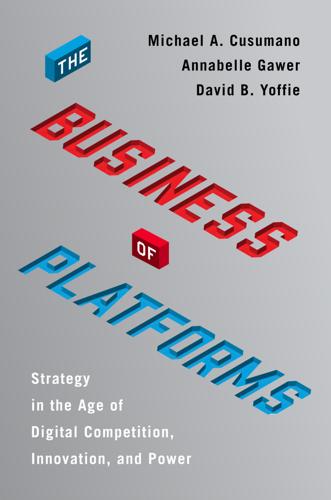
The Business of Platforms: Strategy in the Age of Digital Competition, Innovation, and Power
by
Michael A. Cusumano
,
Annabelle Gawer
and
David B. Yoffie
Published 6 May 2019
The government started to crack down in 2016–2017, jailing for life the founder of Ezubao, a $9 billion lending platform. In July 2018 alone, China closed down 168 of these dubious lending platforms, according to one industry source.5 In retrospect, most of these platforms were little more than Ponzi schemes, operating under the cover of the “sharing economy.” The discussion of what governments should and should not permit is really about platform regulation. Some platforms have hidden behind their self-definition as “technology companies” to claim that sectoral regulation should not apply to them. Uber claimed it was not a transportation service and should not be regulated like a taxi company.
…
Forbes, October 17, 2017. 34.Ibid. 35.Noam Scheiber, “Gig Economy Business Model Dealt a Blow in California Ruling,” New York Times, April 30, 2018. 36.Sarah Kessler, “The Gig Economy Won’t Last Because It Is Being Sued to Death,” Fast Company, February 17, 2015. 37.Andrei Hagiu and Julian Wright, “The Status of Works and Platforms in the Sharing Economy,” June 20, 2018, http://andreihagiu.com/wp-content/uploads/2018/07/Liquidity-constraint-06202018.pdf (accessed September 11, 2018); and Andrei Hagiu and Rob Biederman, “Companies Need an Option Between Contractor and Employee,” Harvard Business Review, August 21, 2015. 38.Kia Kokalitcheva, “Lyft to Pay $12.3 Million as Part of a Proposed Labor Lawsuit Settlement,” Fortune, January 27, 2016. 39.Jeff John Roberts, “Is a Maid an Employee?

A More Beautiful Question: The Power of Inquiry to Spark Breakthrough Ideas
by
Warren Berger
Published 4 Mar 2014
These days, Gebbia and Chesky are asking a whole new set of questions about whether it’s feasible to create a “sharing economy.” At the core of this idea is the fundamental question Why should we, as a society, continue to buy things that we really don’t need to own? (Consider, for example, that the average power24 drill in the United States is used a total of thirteen minutes in its lifetime.) As Gebbia notes, we’ve spent decades accumulating “stuff” in the modern consumer age. “What if we spent the next hundred years sharing more of that stuff? What if access trumped ownership?” Whether or not Airbnb, joined by others, will be able to successfully lead that ambitious “sharing economy” movement is an open question, and one that—even more than the earlier questions about whether people would be willing to share homes and beds—aggressively challenges assumptions about how our economy works, the extent to which people are willing to change ingrained behavior, and whether sharing even makes sense as a viable business model.
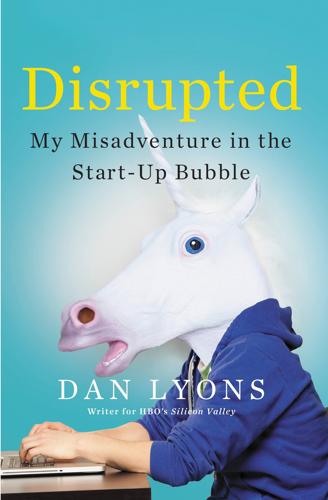
Disrupted: My Misadventure in the Start-Up Bubble
by
Dan Lyons
Published 4 Apr 2016
Uber, the ride-sharing company, saves money by categorizing drivers as independent contractors rather than employees. Uber insists drivers prefer this because they enjoy more freedom. Uber and others in the “share economy” are creating a new form of serfdom, an underclass of quasi-employees who receive low pay and no benefits. As former secretary of labor Robert Reich put it in a June 2015 Facebook post: “The ‘share economy’ is bunk; it’s becoming a ‘share the scraps’ economy.” Tech companies also are pushing the U.S. government to increase the number of skilled foreign workers who can enter the country on H-1B visas.
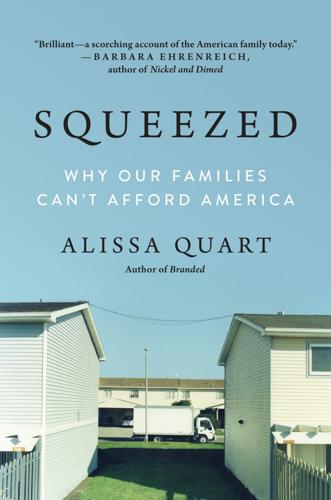
Squeezed: Why Our Families Can't Afford America
by
Alissa Quart
Published 25 Jun 2018
The result for teachers like Barry is that they wind up having to provide, in essence, personal services for their students’ families just to make ends meet. Uber has hailed this arrangement as an “opportunity” for teachers—a chance to boost their earnings while “dedicating their lives to shaping students’ futures” in their teaching jobs. Teachers moonlighting as Uber drivers are supposedly a prime example of the “sharing economy” at work. Yet, stripped of its “generous” veneer, Uber’s teacher-driver campaigns are also sharing in a more twisted Silicon Valley fantasy: low taxes, good schools, and teachers who drive you home after your expense-account meal with a venture capitalist! These conglomerates are gargantuan outfits that offer short-term, cheap services delivered by “independent” contractors.
…
As employees, they would be entitled to minimum wage, overtime pay, benefits, and basic employee protections—which would strike at the very engine of the Uber business model, costing the company billions of dollars. As independent contractors, they receive none of these benefits. Uber is fueled in part by those trying to make ends meet in an overall economy that devalues their work. The sharing economy helps deny its participants basic worker rights or, in the case of Airbnb, creates more scarcity in the rental market by turning apartments into illegal hotels, in a cruel cycle. Many drivers, along with leading labor advocates, disagree with the company’s classification of its drivers as independent contractors and have begun challenging the company in court.

The Perfect Police State: An Undercover Odyssey Into China's Terrifying Surveillance Dystopia of the Future
by
Geoffrey Cain
Published 28 Jun 2021
“We will work faster to build China into a manufacturer of quality, develop advanced manufacturing, promote further integration of the internet, big data, and artificial intelligence with the real economy,” Xi announced, “and foster new growth areas and drivers of growth in medium-high-end consumption, innovation-driven development, the green and low-carbon economy, the sharing economy, modern supply chains, and human capital services.”7 Then the government got to work, creating a “national AI team” to realize the dream. The ministry of science and technology selected four companies: AI giants Baidu, Alibaba, and Tencent, the trio called the BAT, along with voice recognition specialist iFlyTek.
…
The 5G network promised a high-speed network with blazing-fast data speeds that could sustain AI, smart manufacturing, smart cities, and other emerging technologies. It was the twenty-first century equivalent to building the railroads and airlines of the past—a boon for the economy, the engine and symbol of national economic progress. “Widespread 5G connectivity will eliminate information islands, boost the prosperity of a digitalized sharing economy, promote changes to existing production methods and lifestyles, and finally improve people’s quality of life,” Huawei wrote in a white paper.16 By the middle of 2018, the United States and its allies expressed their reservations over granting a 5G contract to Huawei. The US pressured its European Union allies and Australia to not sign 5G deals with Huawei,17 and later began working with Ericsson and Nokia to see if they could build more secure and trustworthy alternatives.18 “Developing our own secure 5G networks will outweigh any perceived gains from partnering with heavily subsidized Chinese providers that answer to party leadership,” said US Secretary of Defense Mark Esper.19 Australia went forward with a ban in August 2018, crippling Huawei’s business there.
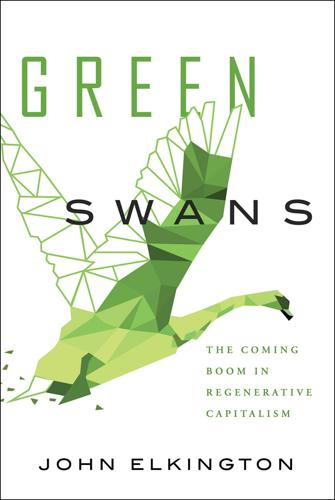
Green Swans: The Coming Boom in Regenerative Capitalism
by
John Elkington
Published 6 Apr 2020
It helped inspire and was followed by Double and Quadruple Bottom Lines; Social Return on Investment; multiple capital models; Full Cost Accounting; ESG (a framework focusing investors and financial analysts on Environmental, Social, and Governance factors); the Environmental Profit & Loss approach pioneered by Trucost, Puma, and Kering; Net Positive; Blended and Shared Value; Integrated Reporting; Impact Investment; and a range of proprietary versions, including consultancy BCG’s Total Societal Impact framework. That’s even before we get into next-generation concepts like Carbon Productivity, the Sharing Economy, the Circular Economy, and Biomimicry. Such experimentation is clearly essential and can spur a proliferation of potential solutions. But too often the sheer range of options, this Tower of Babel we have been building, provides business with yet another alibi for inaction. Worse, we have conspicuously failed to benchmark progress across these options on the basis of their real-world potential, impact, and performance.
…
In the economic domain, recent Green Swan breakthroughs have included the rapid spread of cell phone technology and the internet, linking us in new ways and massively boosting the prospects for self-education, and the staggering cost reductions for solar and wind power systems. The accelerating shift to electric vehicles is a linked example, especially when coupled with the rapid evolution of battery technology and the impact of digitalization on autonomous vehicles, the internet of everything, and the sharing economy. In the social domain, Green Swan trajectories have been followed by universal schooling in many countries, the evolution of vaccine technology (despite recent anti-vaccine rumors and propaganda), and the growth of social movements focusing on environmentalism, social enterprise, and impact investment.
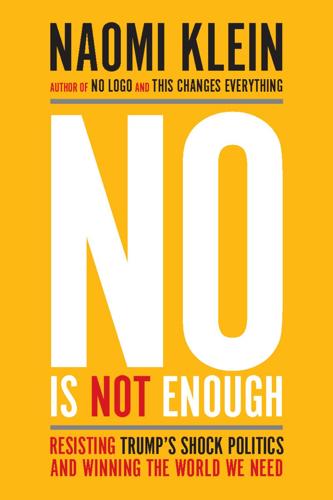
No Is Not Enough: Resisting Trump’s Shock Politics and Winning the World We Need
by
Naomi Klein
Published 12 Jun 2017
Germany: proposals for housing migrants Dagmar Breitenbach, “Creative Housing for Refugees—but a Cemetery?” Deutsche Welle, January 21, 2016, http://www.dw.com/en/creative-housing-for-refugees-but-a-cemetery/a-18996041. “Airbnb for refugees” Aza Wee Sile, “This Non-profit Wants to Use the Sharing Economy to Ease Europe’s Refugee Crisis,” CNBC.com, August 18, 2016, http://www.cnbc.com/2016/08/18/refugees-welcome-aims-to-use-sharing-economy-to-ease-europe-immigration-crisis.html. Refugees Welcome, website, accessed April 1, 2017, http://www.refugees-welcome.net/. New York Times: “the world’s most personal resettlement program” Jodi Kantor and Katrin Einhorn, “Canadians Adopted Refugee Families for a Year.
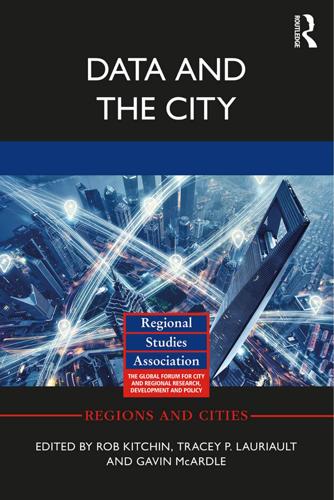
Data and the City
by
Rob Kitchin,Tracey P. Lauriault,Gavin McArdle
Published 2 Aug 2017
As presently understood, a smart city is one that strategically uses networked infrastructure and associated big data and data analytics to produce a: •• •• •• •• •• •• smart economy by fostering entrepreneurship, innovation, productivity, competitiveness, and producing new forms of economic development such as the app economy, sharing economy and open data economy; smart government by enabling new forms of e-government, new modes of operational governance, improved models and simulations to guide future development, evidence-informed decision-making, better service delivery, and making government more transparent, participatory and accountable; smart mobility by creating intelligent transport systems, efficient interoperable multi-modal public transport, smart parking and sharing services related to taxis and bikes; smart environments by promoting sustainability and resilience and the development of green energy; smart living by improving quality of life, increasing safety and security and reducing risk; smart people by creating a more informed citizenry and fostering creativity, inclusivity, empowerment and participation (Giffinger et al. 2007; Cohen 2012).
…
Index abstraction 17, 90, 91, 93, 114, 117, 128, 142, 143, 160, 165, 166, 173, 179 accountability 48, 62, 64, 67, 68, 113, 120, 122, 144, 220 Actor Network Theory (ANT) 22, 86, 94, 161 Acxiom 75, 76 agency 95, 153, 165, 197, 198, 201, 205, 217 algorithm 1, 19, 20, 27, 31, 51, 53, 54, 102, 117, 143, 159, 160, 161, 172, 177, 179, 203, 205, 214, 216 API 7, 46, 99, 113, 116, 130, 135, 157 apps 23, 48, 130, 138 assemblage 19, 20, 22, 22, 78, 85, 158–60, 162, 163, 164, 192, 193, 213, 216 assemblage theory 7, 157 automation 9, 26, 31, 31, 34, 175, 184, 197, 218 auto-spatialization 162 Batty, M. 1, 2, 3–4, 10, 17, 19, 20, 26, 31, 33, 34, 47, 75, 114, 158, 190 bias 63, 65, 73, 74, 76, 77, 78, 79, 87, 92, 98, 99, 100, 102, 103, 104, 117, 118, 195, 196, 197, 198 biopolitics 174 bitcoin, 7, 141–3, 148, 149, 150, 151, 153, 154 black-boxed 11, 22, 24, 45, 51, 53, 75, 76, 119, 156, 214 blockchain, 2, 7, 141–57 Borgmann, A. 214, 215, 216, 221–22 boundary object 86, 88, 93 calibration 1, 35, 50, 77, 102, 116, 117, 142, 147 cameras 17, 46, 52, 53, 113, 127, 213, 214, 219, 220, 221 capital 9, 77, 114, 151, 196 capta 60, 68 Castells, M. 25, 26, 156 census 31, 32, 33, 45, 99, 113, 120, 173 Chicago school 18, 24 CitiStat 121 citizen science 2, 9, 11, 21, 46, 209, 213, 216–19, 222 citizenship 2, 9, 11, 203, 207 city operating systems 1, 46, 47, 48 Clery Act 67, 68 code/space 22, 76–77, 159 Cohen, J. 204, 205 communities of practice 86, 88 community 9, 21, 22, 25, 26, 27, 63–4, 91, 100, 123, 145, 204, 216, 217, 220, 221, 222 context 5, 6, 8, 21, 22, 23, 50, 51, 60, 63, 67, 68, 72, 73, 79, 80, 92, 98, 99, 100, 101, 103–05, 115, 122, 163, 166, 179, 191–7 contingency 49, 51, 52, 76, 86, 87, 90, 92, 122, 160, 181 control 10, 11, 44, 48, 51, 54, 60, 62, 76, 122, 166, 202, 203, 214, 217 control rooms 1, 7, 17, 46, 47, 111 counter-narrative 6, 9, 68, 120, 122 crime 5, 53, 59–69, 141, 202 critical data studies 72, 75, 80, 81, 91, 173, 179 crowdsourcing 46, 68, 69, 105, 113, 222 culture 18, 24–7, 49, 60, 64, 68, 95, 100, 104, 114, 153, 159, 191, 193 Customer Relationship Management 153 cybernetics 19, 48, 92, 165, 202, 207 cyberspace 158, 160, 201–07 dashboard 2, 6, 7, 17, 47, 111–124, 135, 137, 138, 139, 141, 154, 190, 197, 198 data: access 11, 17, 23, 45, 50, 51, 60, 61, 64, 68, 99, 105, 113, 115–17, 122, 226 Index 123, 131, 138, 139, 158, 174, 190, 205, 207, 208; administration 2, 45, 46, 47, 78, 88, 111, 113, 127; analytics 1, 19, 45, 47, 48, 53, 59, 60, 74, 75, 127, 196, 197; assemblage 4, 6, 11, 50, 51, 53, 86, 181; big 1, 3, 4, 6, 9, 32, 33–39, 41, 42, 44, 45–9, 50, 51, 52, 72, 75, 78, 104, 113, 115, 116, 118, 122, 127, 135, 138, 139, 159, 175, 184, 189–91, 213, 216; brokers 1, 9, 10, 46, 53; citizens 9, 10, 11, 201–10; control 4, 45, 51; coverage 4, 45, 50, 103; crime 4, 59–69; cube 4, 32–33; culture 1, 2, 8–9, 10, 11, 189–198; derived 5, 44, 53, 113; determinism 53; encounter 5, 73, 79–81; financial 76, 77; framework 51, 116, 184; friction 2, 6, 93, 99, 101, 103; governance 8, 189, 196; indexical 2; infrastructure 1, 2, 5, 7, 8, 77, 78, 85, 156–66, 172, 173, 180, 182, 193; integrity 4, 45, 52, 66, 67, 68, 73, 144; journey 5, 85, 93; lineage 73, 80, 116, 117; linked 184; management 59, 174, 177; minimization 52; mining 31, 38, 42, 47, 114; model 8, 45, 102, 171, 173, 175–77, 178, 179, 180–82; open 1, 4, 10, 47, 48, 59, 60, 61, 64, 66, 67, 69, 77, 99, 113, 116, 118, 120, 122, 124, 193, 196, 198; ownership 4, 45, 51, 80, 202, 208; politics 10, 49–51; portal 7, 99, 123, 139, 193; power 8, 11, 189–98; practice 2, 8, 10, 75, 76, 91, 92, 93, 94, 189, 191, 193–7, 198; protection 4, 45, 64, 207, 208; provenance 2, 5, 72–81, 85, 95, 180, 184, 202; proxies 6, 98, 99, 115, 138, 153; quality 2, 5, 45, 50, 61, 65, 89, 90, 103, 116–18, 194; re-use 66, 116, 128, 134, 190, 193; science 4, 10, 32, 47, 139; security 4, 45, 52; sharing 4, 7, 63, 78, 116, 127, 128, 134, 139; small 4, 32, 33, 41, 46; spatial 32, 72, 73, 79, 80, 117, 118, 131, 175; statistical 47, 61, 64, 113; sticky 6, 98–105; threads 5, 11, 85–95 database 7, 8, 19, 23, 45, 80, 81, 87, 87, 141, 145, 145, 153, 159, 171, 172, 173, 178, 179, 181, 184 data-driven urbanism 2, 3, 4, 11, 12, 44, 48, 113 dataveillance 4, 10, 45, 49, 52, 197 democracy 2, 9, 11, 122, 190, 222 demographic 60, 63, 100, 101, 104, 192, 196 device paradigm 9, 214–16, 217, 218 Dodge, M. 21, 22, 46, 48, 49, 52, 76, 79, 157, 159, 175, 204, 205, 214 Dublin Dashboard 6, 113, 117, 118, 120, 122 dynamic nominalism 8, 11, 181, 182–85 efficiency 11, 19, 48, 72, 75, 123, 127, 190, 196, 197, 213, 222 embodiment 92, 159, 203, 209, 210 empowerment 19, 48, 147 epistemology 2, 3, 6, 7, 10–11, 17, 18–21, 22, 27, 59, 77, 78, 85, 113–15, 121, 123, 160, 162, 163, 194, 214 error 5, 88, 89, 99, 117, 118, 120, 154, 180, 217 essentialism 4, 75, 114, 115, 158 ethics 2, 10, 27, 45, 49, 52–3, 95, 122–123, 190, 198 Euclidean space 7, 161, 162, 164 Evans, L. 23 fab lab 219 Facebook 76, 130, 153, 156, 214, 215 feminism 94, 202 focal practice 9, 214–16, 217, 218, 219–221, 222 Foucault, M. 50, 51, 78, 174, 178, 179, 181, 203, 205 Foursquare 46, 77, 78, 156 Fuchs, C. 206, 207 gender 63, 68, 196 geodemographic 19, 53, 76, 78, 123 geoservices 7, 128, 131–4, 135, 136 geosurveillance 49, 52 Github, 164 Google 73, 76, 104, 130, 135, 160, 210, 216, 217, 220 governance 1, 2, 8, 9, 44, 45, 48, 49, 72, 78, 85, 95, 104, 115, 121, 122, 123, 191, 192, 193, 197, 202; algorithmic 48, 54; anticipatory 4, 45, 49, 53; technocratic 9, 49, 78, 121 government, 9, 10, 19, 21, 22, 48, 59, 64, 79, 88, 111, 113, 116, 141, 174, 189, 190, 192, 193, 205, 208, 222 GPS 46, 53, 80, 149, 152, 160, 165, 217, 219 gravity model 36 hacking 4, 45, 48, 49, 52, 105, 219, 221 Hacking, I. 8, 172, 178, 179, 181–83 Hägerstrand, T. 141, 144, 145, 153 HarassMap 68 heterogeneity 19, 27, 39, 50, 160, 179 Index 227 IBM 19, 47, 189, 190, 218 ideology 5, 20, 21, 49, 86, 95, 114, 115, 205, 206, 214 immutable mobile 86, 162, 163 indicators 5, 51, 85, 88, 89, 90, 91, 113, 115, 116, 117, 122, 138, 139, 194 inequality 49, 62, 100, 101, 146, 158 infant mortality 86–9 infrastructure 1, 3, 22, 40, 44, 45, 48, 49, 50, 52, 54, 66, 72, 77, 85, 86, 91, 92, 111, 127, 136, 157, 158, 159, 162, 172, 179, 184, 184, 189, 192, 195, 205, 214 innovation 48 institution 1, 5, 9, 10, 19, 20, 22, 50, 60, 61–2, 68, 78, 98, 99, 116, 174, 179, 182, 183, 210 instrumentally 2, 5, 6, 9, 11, 12, 23, 54, 72, 121, 122, 123, 222 intelligent transport systems 2, 48 interface 22, 25, 26, 51, 93, 114, 130, 131, 133, 134, 158, 166 internet of things 46, 127 interoperability 6–7, 45, 127, 129, 130, 131, 134, 135, 136, 139, 184 interpretation 5, 33, 34, 60, 68, 79, 80, 87, 117, 119, 150, 194, 209, 210, 214 ISO 37, 120 51, 89, 90, 91 Judgement 5, 10, 60 Kitchin, R. 1, 4, 6, 8, 11, 17, 20, 21, 22, 27, 34, 44, 46, 47, 48, 49, 52, 53, 60, 74, 75, 76, 78, 85, 113, 114, 115, 116, 121, 122, 157, 159, 171, 178, 179, 180, 189, 190, 190, 191, 192, 194, 196, 197, 204, 205, 214 labour 10, 100, 153, 190 Latour, B. 22, 159, 160, 161, 162, 164, 165, 166, 208 ledgers 141–57 Lefebvre, H. 165, 206, 209 Lessig, L. 204, 205 licensing 45, 53, 85, 95, 116, 123 lightings 101–03 literacy 113, 119–20, 123, 158, 194 living labs 21, 148 loose coupling 7, 128, 129, 137 machine learning 3, 19, 42, 47, 145 management 3, 4, 6, 10, 17, 25, 34, 45, 47, 48, 50, 54, 61, 62, 95, 111, 113, 115, 120, 121, 122, 127, 134, 135, 144, 153, 190, 193, 197, 214 Map Knitter 220 mapping 2, 10, 45, 46, 64–66, 116, 119, 135, 172, 174, 210, 216, 217, 220, 222 Marx, K. 141, 142 materiality 5, 7, 8, 85, 91, 93, 95, 157, 158, 159, 163–65 media 22, 26, 31, 44, 45, 66, 100, 116, 156, 159, 160 metadata 5, 6, 7, 72, 73, 74, 75, 76, 77, 79, 80, 81, 90, 98, 99, 116, 118, 123, 134, 135 metaphysics 27, 94, 114 Microsoft 47, 130, 135, 191 misinterpretation 74 mobile; devices 39, 52, 99, 184; phone 23, 46, 51, 76, 158, 159, 160, 210 model 4, 17, 19, 35–9, 78, 104, 119, 145, 147, 172, 173, 180, 184 modelling 19, 35–9, 40, 47, 100, 114, 118, 120, 132, 172, 180, 181, 184, 213 Modifiable Areal Unit Problem 119 money 39, 40, 141–4, 148, 153, 190, 196 Mumford, L. 24–5 MySpace 26 NASA 102, 103 neoliberalism 63, 65, 78, 196 network 1, 7, 19, 22, 23, 40, 45, 46, 52, 53, 86, 93, 129, 135, 142, 143, 150, 158, 161, 162, 163, 164, 165, 173, 193, 203, 205; society 26, 156; topology 161 networked; locality 22; urbanism 44, 48, 52, 54 neutrality 4, 5, 8, 10, 22, 48, 49, 51, 54, 60, 78, 79, 86, 87, 114, 115, 134, 135, 166, 179, 202, 214 normative 2, 3, 4, 11–2, 18, 24, 26, 27, 28, 54, 115 objectivity 5, 8, 10, 18, 49, 51, 54, 60, 61, 69, 78, 79, 81, 86, 87, 103, 114, 115, 123, 144, 172, 179, 181, 194, 195, 206, 209 object-oriented model 8, 179 ontology 3, 4, 8, 23, 72, 79, 80, 81, 86, 113, 162, 165, 171, 174, 175, 177, 182, 183, 184, 194, 209, 214 Open Street Map 46, 217 Ordnance Survey Ireland 8, 173, 174–8, 183–5 organizational service layer 136–8 participation 2, 9, 10, 48, 48, 68, 122, 203, 214, 216–19, 221, 222 pavement management system 173 228 Index performance 26, 62, 86, 120, 121, 141, 164; metrics 74, 88–91, 122, 197 performativity, 23, 206, 207, 209 phenomenology 23 planning 18, 34, 47, 54, 60, 72, 74, 78, 89, 90, 184 platform 6, 27, 49, 51, 100, 101, 104, 127, 129, 130, 142, 143, 148, 150, 154, 173, 174, 175, 179, 198, 208, 209, 210, 215; independency 7, 127, 128, 134, 135, 137; society 26 policy 5, 6, 12, 44, 45, 47, 49, 50, 64, 74, 89, 90, 115, 118, 120, 121, 122, 190, 192, 196 political economy 8, 49, 114, 173, 181, 185, 197 politics 2, 4, 8, 9, 10, 11, 12, 21, 27, 49, 50, 52, 54, 78, 86, 91, 95, 99, 102, 114, 115, 120, 124, 157, 193, 196, 201, 202, 203, 208, 209, 213 post-human 164–5 post-political 12 power 5, 7, 8, 9, 10, 20, 21, 22, 24, 25, 27, 49, 73, 143, 144, 160, 161, 166, 189–98, 201–208, 210, 222 power/knowledge 8, 51, 179, 180, 185 prediction 7, 35–7, 47, 52, 53, 76, 100, 102, 104, 114, 139, 153 predictive policing 2, 5, 53, 104 privacy 4, 9, 45, 52, 65, 68, 72, 105, 122, 201, 202, 207, 208 privatization 51, 63, 68, 116 profiling 2, 19, 77 protocols 1, 7, 76, 81, 93, 130, 133, 135, 157, 163, 205 public; good 8, 49, 77, 78; space 26, 27, 100, 152, 205 Public Lab 219, 222 race 63, 64, 67, 196 realism 21, 22, 50, 79, 103, 114, 121, 146, 158, 172, 194, 197, 215, 216, 217, 222 real-time 1, 3, 4, 17, 18, 19, 23, 34, 39–41, 44, 46, 47, 48, 54, 72, 75, 113 regulation 9, 10, 11, 22, 50, 50, 51, 52, 54, 142, 192, 203, 205, 206, 207 relational space 79, 94, 161 relationality 5, 7, 17, 51, 85, 86, 93, 122, 156, 173 representation 23, 25, 42, 59, 60, 68, 72, 75, 76, 89, 92, 92, 93, 98, 105, 114, 117, 141, 142, 143, 145, 149, 153, 158, 184, 195, 197, 206, 216, 217 Research Data Alliance 191 resistance 10, 183, 197 resource allocation 66 RESTful service 7, 128, 129–36, 138 RFID 39, 53 sampling 2, 4, 36, 45, 50, 89, 99, 113, 116, 118 scalable 7, 128, 130, 135, 139 scale 11, 37, 38, 76, 80, 81, 86, 95, 99, 103, 119, 158, 171, 173, 175, 184 science and technology studies 157, 159 security 2, 5, 9, 46, 48, 63, 64, 67, 72, 130, 134, 135, 164, 202, 213 Senseable City Lab 19 sensors 2, 19, 34, 46, 49, 50, 52, 53, 60, 62–3, 102, 103, 113, 116, 127, 213, 214, 216, 219, 221, 222 service orientation principles 7, 128–9 sharing economy 48 simulation 2, 47, 48, 114 smart: card 34, 39, 40, 53, 116; cities, 1, 2, 3, 4, 7, 9, 10, 18, 19, 20, 21, 42, 44, 45–9, 52, 54, 68, 75, 78, 80, 113, 122, 123, 127–139, 148, 190, 197, 202, 213–222; smartphone 52, 53, 54, 80, 116, 127, 215, 218, 219, 221 social: media 42, 46, 48, 49, 76, 99, 100, 101, 104, 113, 206; network 17, 26, 35, 100, 215; sorting 2, 4, 45, 52, 123, 172 socio-technical: assemblage 4, 7, 8, 10, 49, 49, 50, 161, 172, 178, 179, 184, 185, 202; practices 80 space 25, 52, 65, 79, 92, 93, 94, 100, 115, 144, 145, 153, 157, 158, 162, 163, 165, 183, 191, 201, 202, 204, 205, 206; production of 3, 8, 21, 22, 25, 206 space of flows, 7, 156 spacetime 93, 94, 165 space-time compression, 7, 156 spacetimematter 94, 165 spatial: imaginaries 86, 92–4; interaction 32–3, 42; media 2; sorting 49, 123; structure 95; urban 18, 21–4, 68, 156, 157, 173, 196, 209, 213; video 46 spatiality 7, 24, 85, 91, 92, 93, 94, 143, 161, 163 standards 1, 5, 6, 46, 51, 62, 64, 73, 74, 75, 80, 85, 87, 89, 90, 91, 116, 117, 118, 123, 129, 130, 134, 173, 184, 195, 195 statistical analysis 47 statistics 33, 44, 45, 59, 61, 62, 64, 65, 67, 85, 87, 88, 89, 115, 118, 184, 213 subjective 5, 22, 49, 60, 166, 196, 198, 201, 207, 210 Index 229 subjectivity 2, 10, 60, 165, 202, 203, 208 surveillance 2, 9, 10, 46, 52, 78, 100, 102, 144, 202, 210 survey 2, 45, 49, 61, 64, 66, 74, 89, 89, 89, 90, 99, 113, 210 sustainability 11, 48, 122, 123, 127, 148, 197 truth 49, 77, 78, 114, 123, 174, 184 Twitter, 6, 46, 49, 99–101, 103, 113, 218 TCP/IP 93 technicity 159 territory 7, 174 Thrift, N. 144, 158 time-spaces 7, 163, 164, 164–65 topology 7, 11, 157, 160, 161–4, 165, 166, 173, 175, 176, 181, 183, 184 Toyota 147, 154 transduction 8, 22, 159, 162, 171, 173 transparency 20, 48, 60, 64, 66–8, 113, 120, 122, 164, 181, 193, 216, 221 transponder 46, 53, 113, 127 transport 4, 20, 33, 34–41, 45, 46, 48, 51, 53, 76, 90, 184, 215 trust 5, 7, 24, 25–6, 27, 52, 62, 73, 74, 85, 103, 111, 117, 118, 148, 150, 151, 154, 195 values 8, 9, 10, 33, 78, 88, 91, 98, 142, 143, 146, 191, 192, 193, 195–7, 202, 213 veracity 5, 6, 33, 45, 76, 95, 113, 117–19, 120, 123 virtual 142, 157, 158, 159, 201, 204 visualization 4, 6, 33, 34, 35, 38, 42, 44, 47, 59, 60, 61, 64, 65, 66, 68, 69, 103, 111, 113, 114, 120, 154, 213, 216 volunteer computing 218 volunteered geographic information 1, 46 Uber 26, 76, 156 urban: entrepreneurship 48; informatics 18, 47, 48, 114, 123; modelling 2, 33; science 4, 10, 18, 48, 47, 114 Web Services 7, 128, 129–131, 134, 135, 136, 138 wicked problems 20, 49, 122 wifi 53 World Council on City Data 90–1
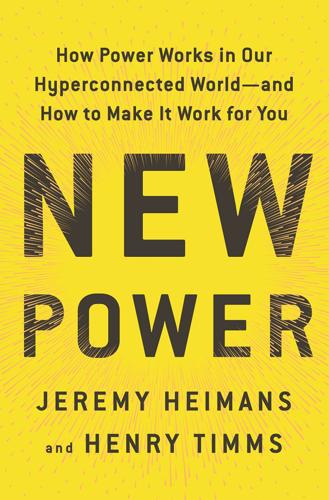
New Power: How Power Works in Our Hyperconnected World--And How to Make It Work for You
by
Jeremy Heimans
and
Henry Timms
Published 2 Apr 2018
“One of the things that Uber drivers complain about, jokingly, amongst drivers, is that when you get to pick up an Uber passenger, they make you wait forever…It’s kind of like going off the slogans. ‘Would you make your private driver wait?’ ‘Yeah. Probably.’ ‘Would you make your friend with a car wait?’ ‘Maybe not.’ ” The power of “platform culture” The sum of the relationships between platform, super-participants, and participants makes up what sharing-economy guru Arun Sundararajan has called “platform culture,” those “shared norms, values and capabilities among the providers.” He sees this as the analog of a corporate culture, but “without the directive authority or co-located social systems that traditional firms can take advantage of to manage their employees.”
…
“nonblack hosts are able”: Ben Edelman and Michael Luca, “Digital Discrimination: The Case of Airbnb.com,” Harvard Business School Publishing, January 10, 2014, 2. Further research by Edelman, Luca, and Dan Svirsky: Ben Edelman, Michael Luca, and Dan Svirsky, “Racial Discrimination in the Sharing Economy: Evidence from a Field Experiment,” Harvard Business School Publishing, September 4, 2016. “profile photos are essential”: Sam Levin, “Airbnb Adopts New Rules in Effort to Fight Racial Discrimination by Hosts,” The Guardian, September 8, 2016. Initially created as a workaround: Chris Garces, “People’s Mic and Democratic Charisma: Occupy Wall Street’s Frontier Assemblies,” Focaal: Journal of Global and Historical Anthropology 2013, no. 66 (Summer 2013): 88–102.

Ghost Road: Beyond the Driverless Car
by
Anthony M. Townsend
Published 15 Jun 2020
Most important of all, these deliveries stop me from taking a trip by car several times a month—and even after accounting for the diesel-spewing trucks that bring this stuff home for me, we all end up way ahead on the carbon counter. I tell myself this self-delusional story often, though I stop short of wrapping this remote-controlled retail extravaganza in labels like the sharing economy. It’s hard to imagine anything less communitarian than renting haute couture, outsourcing storage for a household hoard, or breaking down bulk foodstuffs into millions of little plastic pouches. And then the rebound effect enters the analysis, and blows away all these incremental gains in ecological efficiency.
…
Cheape, Moving the Masses: Urban Public Transit in New York, Boston, and Philadelphia 1880–1912 (Cambridge, MA: Harvard University Press, 1980), 1. 175companies merely joined forces: Cheape, Moving the Masses, 172. 175the most powerful, reviled traction monopoly: Walt Crowley, “City Light’s Birth and Seattle’s Early Power Struggles, 1886–1950,” History Link, April 26, 2000, https://www.historylink.org/File/2318. 175enjoyed decades of unrivaled power: Owain James, “We Miss Streetcars’ Frequent and Reliable Service, Not Streetcars Themselves,” Mobility Lab, April 17, 2019, https://mobilitylab.org/2019/04/17/we-miss-streetcars-frequent-and-reliable-service-not-streetcars-themselves/; combination of technological change and federal intervention: “Jersey Trolley Merger,” Wall Street Journal, May 13, 1905, 2. 176$100 billion Vision Fund: Katrina Brooker, “The Most Powerful Person in Silicon Valley,” Fast Company, January 14, 2019, https://www.fastcompany.com/90285552/the-most-powerful-person-in-silicon-valley. 176its total commitment to some $9 billion: Pavel Alpeyev, Jie Ma, and Won Jae Ko, “Taxi-Hailing Apps Take Root in Japan as SoftBank, Didi Join Fray,” Bloomberg, July 19, 2018, https://www.bloomberg.com/news/articles/2018-07-19/softbank-didi-to-roll-out-taxi-hailing-business-in-japan. 177$2 billion into Singapore-based Grab: Yoolim Lee, “Grab Vanquishes Uber with Local Strategy, Billions from SoftBank,” Bloomberg, March 26, 2018, https://www.bloomberg.com/news/articles/2018-03-26/grab-vanquishes-uber-with-local-strategy-billions-from-softbank. 177Ola downloaded $2 billion: Saritha Rai, “India’s Ola Raises $2 Billion from SoftBank, Tencent,” Bloomberg, October 2, 2017, https://www.bloomberg.com/news/articles/2017-10-02/india-s-ola-is-said-to-raise-2-billion-from-softbank-tencent. 17715 percent stake in Uber: Alison Griswold, “SoftBank—not Uber—Is the Real King of Ride-Hailing,” Quartz, January 23, 2018, https://qz.com/1187144/softbank-not-uber-is-the-real-king-of-ride-hailing/. 177Uber picked off Dubai-based Careem: Adam Satariano, “This Estonian Start-Up Has Become a Thorn in Uber’s Side,” New York Times, April 23, 2019, https://www.nytimes.com/2019/04/23/technology/bolt-taxify-uber-lyft.html. 177The damage to consumers: Justina Lee, “Singapore Fine Is ‘Minor Bump’ in Grab’s Ride-Hailing Dominance,” Nikkei Asian Review, September 25, 2018, https://asia.nikkei.com/Spotlight/Sharing-Economy/Singapore-fine-is-minor-bump-in-Grab-s-ride-hailing-dominance. 177Grab cornered more than 80 percent: Ardhana Aravindan, “Singapore Fines Grab and Uber, Imposes Measures to Open Up Market,” Reuters, September 23, 2018, https://www.reuters.com/article/us-uber-grab-singapore/singapore-fines-grab-and-uber-imposes-measures-to-open-up-market-idUSKCN1M406J. 177all launched antitrust investigations: Mai Nguyen, “Vietnam Says Eyeing Formal Antitrust Probe into Uber-Grab Deal,” Reuters, May 16, 2018, https://www.reuters.com/article/us-uber-grab-vietnam-idUSKCN1IH0XNiAikaRey, “Antitrust Watchdog Fines Grab P16 Million over Uber Deal,” Rappler, October 17, 2018, https://www.rappler.com/business/214502-philippine-competition-commission-fines-grab-philippines-over-uber-deal; Yoolim Lee, “Singapore Watchdog Fines Uber, Grab $9.5 Million over Merger,” Bloomberg, September 24, 2018, https://www.bloomberg.com/news/articles/2018-09-24/singapore-fines-uber-grab-s-13-million-for-merger-infringement. 177another fare-slashing battle with Ola: “Steering Group: A Bold Scheme to Dominate Ride-Hailing,” The Economist, May 10, 2018, https://www.economist.com/briefing/2018/05/10/a-bold-scheme-to-dominate-ride-hailing. 177“SoftBank is playing the ride-hailing”: Alison Griswold, “Softbank Has Spread Its Ride-Hailing Bets and Didi Looks Like an Early Win,” Quartz, April 24, 2018, https://qz.com/1261177/softbanks-winner-in-ride-hailing-is-chinas-didi-chuxing-not-uber/. 177“driver incentives, passenger discounts”: Tim O’Reilly, “The Fundamental Problem with Silicon Valley’s Favorite Growth Strategy,” Quartz, February 5, 2019, https://qz.com/1540608/the-problem-with-silicon-valleys-obsession-with-blitzscaling-growth/. 178“locked in a capital-fueled deathmatch”: O’Reilly, “The Fundamental Problem.” 178The Vision Fund’s biggest investor: Brooker, “The Most Powerful Person.” 178the proceeds of an earlier liquidation: Catherine Shu, “Saudi Arabia’s Sovereign Fund Will Also Invest $45B in SoftBank’s Second Vision Fund,” Tech-Crunch, October 2018, https://techcrunch.com/2018/10/07/saudi-arabias-sovereign-fund-will-also-invest-45b-in-softbanks-second-vision-fund/. 178Uber’s multi-billion-dollar quarterly losses: “Aramco Value to Top $2 Trillion, Less Than 5 Percent to Be Sold, Says Prince,” Reuters, April 25, 2016, https://www.reuters.com/article/us-saudi-plan-aramco-idUSKCN0XM16M. 178the House of Saud: Brooker, “The Most Powerful Person.” 178thwart municipal officials’ attempts at enforcement: Mike Isaac, “How Uber Deceives the Authorities Worldwide,” New York Times, March 3, 2017, https://www.nytimes.com/2017/03/03/technology/uber-greyball-program-evade-authorities.html. 179“Even if that means paying money”: Dara Khosrowshahi, “The Campaign for Sustainable Mobility,” Uber, September 26, 2018, https://www.uber.com/newsroom/campaign-sustainable-mobility/. 180Five-cent nickel fares: Cheape, Moving the Masses, 174–75. 180cities . . . grant a ride-hail monopoly: “Free Exchange: The Market for Driverless Cars Will Head towards Monopoly,” The Economist, June 7, 2018, https://www.economist.com/finance-and-economics/2018/06/07/the-market-for-driverless-cars-will-head-towards-monopoly. 180“corrupt and contented”: Cheape, Moving the Masses, 177. 180Jay Gould’s Manhattan Railway Company: Terry Golway, Machine Made: Tammany Hall and the Creation of Modern American Politics (New York: Live-right, 2014), 135. 180took over Puget Sound’s streetcar: Crowley, “City Light’s Birth.” 181Public transit was the competition: United States Securities and Exchange Commission, Registration Statement under the Securities Act of 1933: Uber Technologies, April 11, 2019, 25, https://www.sec.gov/Archives/edgar/data/1543151/000119312519103850/d647752ds1.htm#toc. 181deploy predatory pricing: United States Securities and Exchange Commission, Registration Statement. 182“have been created based on cash flows”: “Asset-Backed Security,” Investo-pedia, accessed December 7, 2018, https://www.investopedia.com/terms/a/asset-backedsecurity.asp. 183Amazon’s body-tracking technology: “The Learning Machine: Amazon’s Empire Rests on its Low-Key Approach to AI,” The Economist, April 11, 2019, https://www.economist.com/business/2019/04/13/amazons-empire-rests-on-its-low-key-approach-to-ai. 8.

Golden Gates: Fighting for Housing in America
by
Conor Dougherty
Published 18 Feb 2020
In person in Leimert Park, he was a dreamy and optimistic organizer who espoused a sort of socialist utopianism where you had neighborhoods full of Sister Christina–style land trusts and cooperatives and local work requirements and government programs to allow tenants to buy their own apartments—“a real shared economy, not the screwed-up definition of shared economy where your apartment is now a hotel and your car is now a taxi.” Civil Rights icons like William Byron Rumford had fought for equal opportunity to a capitalist system that they still basically believed in. Damien Goodmon did not believe capitalism was capable of being equal opportunity, so instead of fighting for access to the suburbs, he was fighting, in essence, to keep the suburbs out.
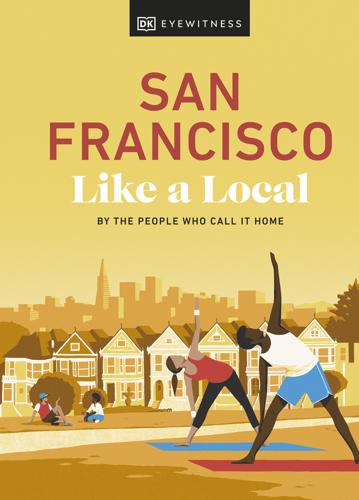
San Francisco Like a Local: By the People Who Call It Home
by
Dk Eyewitness
Published 5 Apr 2023
Between earthquakes and dot-com crashes, residents have rebuilt the city several times over – and it always bounces back better than ever. And little wonder; pioneering is in the blood. SF (only tourists say “San Fran”) was built on the Gold Rush, and has blazed many a trail – LGBTQ+ rights, sharing economies, and revolutionary politics, to name a few. It’s a small city with big ideas; a place where anything seems possible. Some say the big tech invasion has tamed SF’s subversive side. But scratch below the surface and you’ll find free-thinking, flamboyant ’Frisco alive and kicking. And that’s exactly where this book will take you.

Lonely Planet Pocket Vienna
by
Lonely Planet
New Year’s Day (Neujahr) 1 January Epiphany (Heilige Drei Könige) 6 January Easter Monday (Ostermontag) March or April Labour Day (Tag der Arbeit) 1 May Ascension Day (Christi Himmelfahrt) Sixth Thursday after Easter Whit Monday (Pfingstmontag) Sixth Monday after Easter Corpus Christi (Fronleichnam) Second Thursday after Pentecost Assumption (Maria Himmelfahrt) 15 August National Day (Nationalfeiertag) 26 October All Saints’ Day (Allerheiligen) 1 November Immaculate Conception (Mariä Empfängnis) 8 December Christmas Eve (Heiligabend) 24 December; everything closed afternoon Christmas Day (Christfest) 25 December St Stephen’s Day (Stephanitag) 26 December Responsible Travel Overtourism Vienna has been one of the most active municipalities in Europe when it comes to tackling the woes of the shared economy. It’s also one of the world’s greenest cities. Give it a hand by avoiding Airbnb properties and other short-term rentals. Visiting Vienna in the low season (Feb-Mar and Nov) can help ease the strain. Safe Travel Vienna is a very safe city and in general women and men will have no trouble walking around at night.
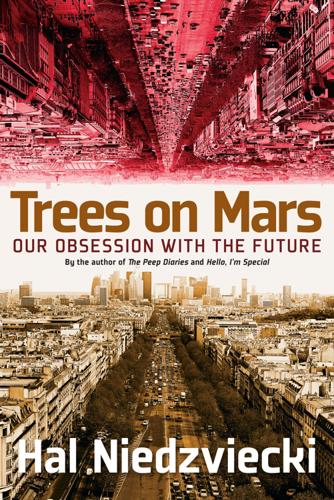
Trees on Mars: Our Obsession With the Future
by
Hal Niedzviecki
Published 15 Mar 2015
Jodi Kantor, “Working Anything but 9 to 5,” The New York Times, August 13, 2014, http://www.nytimes.com/interactive/2014/08/13/us/starbucks-workers-scheduling-hours.html. 79. Packer, “Change the World.” 80. Lanier, Who Owns the Future?, 186. 81. Natasha Singer, “In the Sharing Economy, Workers Find Both Freedom and Uncertainty,” The New York Times, August 16, 2014, http://www.nytimes.com/2014/08/17/technology/in-the-sharing-economy-workers-find-both-freedom-and-uncertainty.html. 82. Ibid. 83. Ibid. 84. Ibid. 85. Lanier, Who Owns the Future?, 186. 86. Dyson, Turing’s Cathedral, 2012. 87. Lanier, Who Owns the Future?, 155. 88. Ibid., 17. 89.
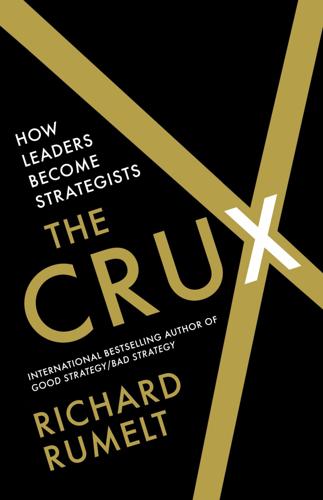
The Crux
by
Richard Rumelt
Published 27 Apr 2022
An intriguing study found that companies that smoothed earnings had a much greater incidence of subsequent stock-price crashes.11 Another careful study found “no relation between earnings smoothness and average stock returns over the last 30 years.”12 The evidence is that managers and analysts prefer smoother earnings. But the stock market doesn’t really care. Manipulating earnings to be smoother messes up accounting results and wastes time and energy. Spend your IQ on something else. NO EARNINGS AT ALL The rise of the Web economy and, especially, the “sharing” economy has created a number of growing firms with no earnings at all. The premise is that they are playing the Amazon game of “get big fast” and will then, at some future time, make a profit. I cannot honestly say “Don’t do this” because you might fool people long enough to become a billionaire. Back in 1999 we discovered that the market tolerated losses at the newly minted dot-com companies as long as revenue grew smartly.
…
SoftBank backed away from the IPO. The board wanted Neumann out, giving him a payoff of $185 million to just step aside. SoftBank reentered the deal with $5 billion, valuing the company at $8 billion, a long way down from $47 billion. The gloss on WeWork was that it was a “tech” company building the sharing economy. It actually seems more like an office-space lessor in a competitive world with excess office space. Yet billions were thrown around. Supposedly sober Goldman Sachs investment bankers claimed that it might have a path to a $1 trillion valuation. Their fees on a successful IPO would have bought many new homes in the Hamptons.

San Francisco Like a Local
by
DK Eyewitness
Published 4 Oct 2021
The City by the Bay is no stranger to challenging times. Between earthquakes and dot-com crashes, residents have rebuilt the city several times over. And it always bounces back better than ever. And little wonder; pioneering is in the blood. SF (only tourists say “San Fran”) was built on the Gold Rush, and has blazed many a trail: LGBTQ+ rights, sharing economies, and revolutionary politics, to name a few. It’s a small city with big ideas; a place where anything seems possible. Some say the big tech invasion has tamed SF’s subversive side. But scratch below the surface and you’ll find free- thinking, flamboyant ’Frisco alive and kicking. And that’s exactly where this book will take you.
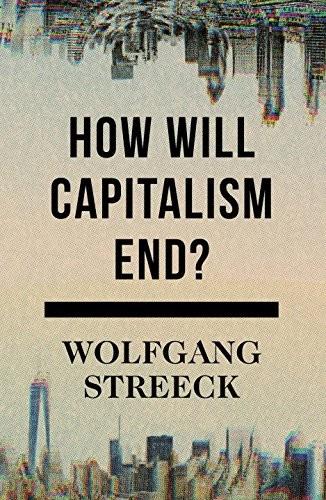
How Will Capitalism End?
by
Wolfgang Streeck
Published 8 Nov 2016
As post-war national labour regimes, established after intense political struggles to protect workers and their families from market pressures, are being subverted by international competition, labour markets in leading capitalist countries are changing to precarious employment, zero hours jobs, freelancing and standby work, not just in small local but also and often in large global firms. An extreme case in point is Uber, a giant of the so-called ‘sharing economy’, which with the help of new communication technologies functions almost entirely without a workforce of its own. In the United States alone, more than 160,000 people depend on Uber for their livelihood, only 4,000 of whom are regular employees.37 For the rest, employment risks are being privatized and individualized, and life and work become inseparably fused.
…
See also indebtedness as apocalyptic horseman of contemporary capitalism, 18 cause of growing level of, 114, 116 as convenient functional equivalent of inflation, 82 devaluation of, 82 explosion of (1980s), 16 increase in, 53 kinds of, 124 plundering of as systemic disorder, 68–9 replacement of with private debt, 84, 85 rise of, 82–3 sales of to sovereign investors, 117 public domain, plundering of, 28, 65, 68, 69 public goods, 107, 140 ‘Public Goods and Private Status’ (Monsen and Downs), 95 public infrastructure, 6, 15, 115 Public Interest (journal), 95f public-sector reforms, 106 public services, 49, 53, 60, 89, 104, 119, 124, 130, 132, 141, 186, 193, 228 public sociology, 237, 241, 245–9, 250, 251 public spending, relation of tax revenue to, 116, 135 public sphere, as marketized, 103–5 Puma, 101 Pumpkapitalismus (capitalism on tick), 149 Q quantitative easing, 19, 51, 57, 72 R Rathenau, Walther, 242 Reagan, Ronald, 79, 81, 83 real estate, expectation of open-ended increase in value of, 84 regional peculiarities, in European currency issues, 172–3 regulatory law/regulation, 58, 62, 70, 138, 183, 186, 189, 193, 196, 207, 232, 233 resilience, use of term, 38, 39–40 resource shortages, 6 Ricardo, David, 3 Riesman, David, 210 robot owners, capitalist class of, 10 Rubin, Robert, 31 Rupert, Murdoch, 104 S Sachzwang, 22 Sachzwänge, 146 Sarrazin, Thilo, 238–9 Sattelzeit, 249 sauve qui peut, 41 Schattschneider, Elmer Eric, 170 Schmitt, Carl, 151–63 Schumpeter, Joseph A., 3, 57, 115, 201, 204, 232, 245 self-destruction, escapes that have hitherto saved capitalism from, 10 Sen, Amartya, 149 Sennett, Richard, 27 sequential displacements, 89–90 sharing economy, 26 shopping, 42, 44–5 Simmel, Georg, 102, 249 single currency system (Europe), 171, 172, 173, 175, 176, 177, 180, 181, 182, 183 Single Market, 157, 161 Smelser, Nail, 166 Smith, Adam, 1, 165, 166, 169, 201, 204 social assistance/entitlements, 8, 75, 82, 89, 119, 135, 137, 215 social change, 208 social character, 38 social-conflict management, 83 social-democratic capitalism, 4 social division, 149–50 social entropy, 13, 39, 43 social integration, 14, 15, 38, 41, 45, 46, 58, 91, 102, 168, 212, 218, 242, 246 socialism, 11, 60 social justice, 75–6, 213–14 social life, 14, 35, 40, 41, 45, 46, 77, 100, 103, 202, 205, 208, 209, 216, 218, 221, 229, 235, 237, 248, 249 social market economy, 186, 227 social media, 41, 45, 103 social protection, 190, 207, 215 social regulation, 207, 233 social solidarity, 63, 107 social structure, 28, 38, 77, 102, 188, 208, 245 sociation, by consumption, 100–3 society lite, 13, 38 sociology.
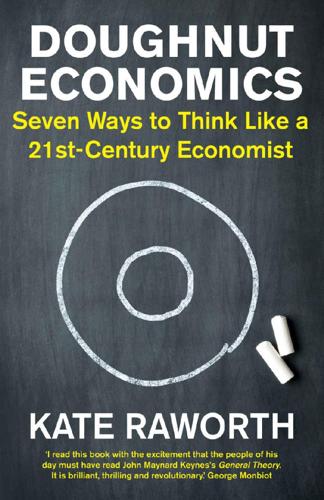
Doughnut Economics: Seven Ways to Think Like a 21st-Century Economist
by
Kate Raworth
Published 22 Mar 2017
Analysts such as Jeremy Rifkin believe that today’s emerging horizontal networks of renewable energy generation and 3D printing are set to amplify this trend. If they do, it could result in a great deal of economic value that was once sold at a profit in the marketplace being shared for low or no cost in the collaborative commons. The sharing economy is also growing, in which the culture of ownership – with every household equipped with its own washing machine and car – is giving way to a culture of access, with households sharing laundry facilities and renting cars by the hour from a local car club. Rather than go shopping for new clothes, books and children’s toys, a growing number of people are swapping – or ‘swishing’ – them with friends and neighbours.41 In such an economy, plenty of economic value will still be generated through the products and services that people enjoy, but far less of that total value will flow through market transactions.
…
Page numbers in italics denote illustrations A Aalborg, Denmark, 290 Abbott, Anthony ‘Tony’, 31 ABCD group, 148 Abramovitz, Moses, 262 absolute decoupling, 260–61 Acemoglu, Daron, 86 advertising, 58, 106–7, 112, 281 Agbodjinou, Sénamé, 231 agriculture, 5, 46, 72–3, 148, 155, 178, 181, 183 Alaska, 9 Alaska Permanent Fund, 194 Alperovitz, Gar, 177 alternative enterprise designs, 190–91 altruism, 100, 104 Amazon, 192, 196, 276 Amazon rainforest, 105–6, 253 American Economic Association, 3 American Enterprise Institute, 67 American Tobacco Corporation, 107 Andes, 54 animal spirits, 110 Anthropocene epoch, 48, 253 anthropocentrism, 115 Apertuso, 230 Apple, 85, 192 Archer Daniels Midland (ADM), 148 Arendt, Hannah, 115–16 Argentina, 55, 274 Aristotle, 32, 272 Arrow, Kenneth, 134 Articles of Association and Memoranda, 233 Arusha, Tanzania, 202 Asia Wage Floor Alliance, 177 Asian financial crisis (1997), 90 Asknature.org, 232 Athens, 57 austerity, 163 Australia, 31, 103, 177, 180, 211, 224–6, 255, 260 Austria, 263, 274 availability bias, 112 AXIOM, 230 Axtell, Robert, 150 Ayres, Robert, 263 B B Corp, 241 Babylon, 13 Baker, Josephine, 157 balancing feedback loops, 138–41, 155, 271 Ballmer, Steve, 231 Bangla Pesa, 185–6, 293 Bangladesh, 10, 226 Bank for International Settlements, 256 Bank of America, 149 Bank of England, 145, 147, 256 banking, see under finance Barnes, Peter, 201 Barroso, José Manuel, 41 Bartlett, Albert Allen ‘Al’, 247 basic income, 177, 194, 199–201 basic personal values, 107–9 Basle, Switzerland, 80 Bauwens, Michel, 197 Beckerman, Wilfred, 258 Beckham, David, 171 Beech-Nut Packing Company, 107 behavioural economics, 11, 111–14 behavioural psychology, 103, 128 Beinhocker, Eric, 158 Belgium, 236, 252 Bentham, Jeremy, 98 Benyus, Janine, 116, 218, 223–4, 227, 232, 237, 241 Berger, John, 12, 281 Berlin Wall, 141 Bermuda, 277 Bernanke, Ben, 146 Bernays, Edward, 107, 112, 281–3 Bhopal gas disaster (1984), 9 Bible, 19, 114, 151 Big Bang (1986), 87 billionaires, 171, 200, 289 biodiversity, 10, 46, 48–9, 52, 85, 115, 155, 208, 210, 242, 299 as common pool resource, 201 and land conversion, 49 and inequality, 172 and reforesting, 50 biomass, 73, 118, 210, 212, 221 biomimicry, 116, 218, 227, 229 bioplastic, 224, 293 Birmingham, West Midlands, 10 Black, Fischer, 100–101 Blair, Anthony ‘Tony’, 171 Blockchain, 187, 192 blood donation, 104, 118 Body Shop, The, 232–4 Bogotá, Colombia, 119 Bolivia, 54 Boston, Massachusetts, 3 Bowen, Alex, 261 Bowles, Sam, 104 Box, George, 22 Boyce, James, 209 Brasselberg, Jacob, 187 Brazil, 124, 226, 281, 290 bread riots, 89 Brisbane, Australia, 31 Brown, Gordon, 146 Brynjolfsson, Erik, 193, 194, 258 Buddhism, 54 buen vivir, 54 Bullitt Center, Seattle, 217 Bunge, 148 Burkina Faso, 89 Burmark, Lynell, 13 business, 36, 43, 68, 88–9 automation, 191–5, 237, 258, 278 boom and bust, 246 and circular economy, 212, 215–19, 220, 224, 227–30, 232–4, 292 and complementary currencies, 184–5, 292 and core economy, 80 and creative destruction, 142 and feedback loops, 148 and finance, 183, 184 and green growth, 261, 265, 269 and households, 63, 68 living metrics, 241 and market, 68, 88 micro-businesses, 9 and neoliberalism, 67, 87 ownership, 190–91 and political funding, 91–2, 171–2 and taxation, 23, 276–7 workers’ rights, 88, 91, 269 butterfly economy, 220–42 C C–ROADS (Climate Rapid Overview and Decision Support), 153 C40 network, 280 calculating man, 98 California, United States, 213, 224, 293 Cambodia, 254 Cameron, David, 41 Canada, 196, 255, 260, 281, 282 cancer, 124, 159, 196 Capital Institute, 236 carbon emissions, 49–50, 59, 75 and decoupling, 260, 266 and forests, 50, 52 and inequality, 58 reduction of, 184, 201, 213, 216–18, 223–7, 239–41, 260, 266 stock–flow dynamics, 152–4 taxation, 201, 213 Cargill, 148 Carney, Mark, 256 Caterpillar, 228 Catholic Church, 15, 19 Cato Institute, 67 Celts, 54 central banks, 6, 87, 145, 146, 147, 183, 184, 256 Chang, Ha-Joon, 82, 86, 90 Chaplin, Charlie, 157 Chiapas, Mexico, 121–2 Chicago Board Options Exchange (CBOE), 100–101 Chicago School, 34, 99 Chile, 7, 42 China, 1, 7, 48, 154, 289–90 automation, 193 billionaires, 200, 289 greenhouse gas emissions, 153 inequality, 164 Lake Erhai doughnut analysis, 56 open-source design, 196 poverty reduction, 151, 198 renewable energy, 239 tiered pricing, 213 Chinese Development Bank, 239 chrematistics, 32, 273 Christianity, 15, 19, 114, 151 cigarettes, 107, 124 circular economy, 220–42, 257 Circular Flow diagram, 19–20, 28, 62–7, 64, 70, 78, 87, 91, 92, 93, 262 Citigroup, 149 Citizen Reaction Study, 102 civil rights movement, 77 Cleveland, Ohio, 190 climate change, 1, 3, 5, 29, 41, 45–53, 63, 74, 75–6, 91, 141, 144, 201 circular economy, 239, 241–2 dynamics of, 152–5 and G20, 31 and GDP growth, 255, 256, 260, 280 and heuristics, 114 and human rights, 10 and values, 126 climate positive cities, 239 closed systems, 74 coffee, 221 cognitive bias, 112–14 Colander, David, 137 Colombia, 119 common-pool resources, 82–3, 181, 201–2 commons, 69, 82–4, 287 collaborative, 78, 83, 191, 195, 196, 264, 292 cultural, 83 digital, 82, 83, 192, 197, 281 and distribution, 164, 180, 181–2, 205, 267 Embedded Economy, 71, 73, 77–8, 82–4, 85, 92 knowledge, 197, 201–2, 204, 229, 231, 292 commons and money creation, see complementary currencies natural, 82, 83, 180, 181–2, 201, 265 and regeneration, 229, 242, 267, 292 and state, 85, 93, 197, 237 and systems, 160 tragedy of, 28, 62, 69, 82, 181 triumph of, 83 and values, 106, 108 Commons Trusts, 201 complementary currencies, 158, 182–8, 236, 292 complex systems, 28, 129–62 complexity science, 136–7 Consumer Reaction Study, 102 consumerism, 58, 102, 121, 280–84 cooking, 45, 80, 186 Coote, Anna, 278 Copenhagen, Denmark, 124 Copernicus, Nicolaus, 14–15 copyright, 195, 197, 204 core economy, 79–80 Corporate To Do List, 215–19 Costa Rica, 172 Council of Economic Advisers, US, 6, 37 Cox, Jo, 117 cradle to cradle, 224 creative destruction, 142 Cree, 282 Crompton, Tom, 125–6 cross-border flows, 89–90 crowdsourcing, 204 cuckoos, 32, 35, 36, 38, 40, 54, 60, 159, 244, 256, 271 currencies, 182–8, 236, 274, 292 D da Vinci, Leonardo, 13, 94–5 Dallas, Texas, 120 Daly, Herman, 74, 143, 271 Danish Nudging Network, 124 Darwin, Charles, 14 Debreu, Gerard, 134 debt, 37, 146–7, 172–3, 182–5, 247, 255, 269 decoupling, 193, 210, 258–62, 273 defeat device software, 216 deforestation, 49–50, 74, 208, 210 degenerative linear economy, 211–19, 222–3, 237 degrowth, 244 DeMartino, George, 161 democracy, 77, 171–2, 258 demurrage, 274 Denmark, 180, 275, 290 deregulation, 82, 87, 269 derivatives, 100–101, 149 Devas, Charles Stanton, 97 Dey, Suchitra, 178 Diamond, Jared, 154 diarrhoea, 5 differential calculus, 131, 132 digital revolution, 191–2, 264 diversify–select–amplify, 158 double spiral, 54 Doughnut model, 10–11, 11, 23–5, 44, 51 and aspiration, 58–9, 280–84 big picture, 28, 42, 61–93 distribution, 29, 52, 57, 58, 76, 93, 158, 163–205 ecological ceiling, 10, 11, 44, 45, 46, 49, 51, 218, 254, 295, 298 goal, 25–8, 31–60 and governance, 57, 59 growth agnosticism, 29–30, 243–85 human nature, 28–9, 94–128 and population, 57–8 regeneration, 29, 158, 206–42 social foundation, 10, 11, 44, 45, 49, 51, 58, 77, 174, 200, 254, 295–6 systems, 28, 129–62 and technology, 57, 59 Douglas, Margaret, 78–9 Dreyfus, Louis, 148 ‘Dumb and Dumber in Macroeconomics’ (Solow), 135 Durban, South Africa, 214 E Earning by Learning, 120 Earth-system science, 44–53, 115, 216, 288, 298 Easter Island, 154 Easterlin, Richard, 265–6 eBay, 105, 192 eco-literacy, 115 ecological ceiling, 10, 11, 44, 45, 46, 49, 51, 218, 254, 295, 298 Ecological Performance Standards, 241 Econ 101 course, 8, 77 Economics (Lewis), 114 Economics (Samuelson), 19–20, 63–7, 70, 74, 78, 86, 91, 92, 93, 262 Economy for the Common Good, 241 ecosystem services, 7, 116, 269 Ecuador, 54 education, 9, 43, 45, 50–52, 85, 169–70, 176, 200, 249, 279 economic, 8, 11, 18, 22, 24, 36, 287–93 environmental, 115, 239–40 girls’, 57, 124, 178, 198 online, 83, 197, 264, 290 pricing, 118–19 efficient market hypothesis, 28, 62, 68, 87 Egypt, 48, 89 Eisenstein, Charles, 116 electricity, 9, 45, 236, 240 and Bangla Pesa, 186 cars, 231 Ethereum, 187–8 and MONIAC, 75, 262 pricing, 118, 213 see also renewable energy Elizabeth II, Queen of the United Kingdom, 145 Ellen MacArthur Foundation, 220 Embedded Economy, 71–93, 263 business, 88–9 commons, 82–4 Earth, 72–6 economy, 77–8 finance, 86–8 household, 78–81 market, 81–2 power, 91–92 society, 76–7 state, 84–6 trade, 89–90 employment, 36, 37, 51, 142, 176 automation, 191–5, 237, 258, 278 labour ownership, 188–91 workers’ rights, 88, 90, 269 Empty World, 74 Engels, Friedrich, 88 environment and circular economy, 220–42, 257 conservation, 121–2 and degenerative linear economy, 211–19, 222–3 degradation, 5, 9, 10, 29, 44–53, 74, 154, 172, 196, 206–42 education on, 115, 239–40 externalities, 152 fair share, 216–17 and finance, 234–7 generosity, 218–19, 223–7 green growth, 41, 210, 243–85 nudging, 123–5 taxation and quotas, 213–14, 215 zero impact, 217–18, 238, 241 Environmental Dashboard, 240–41 environmental economics, 7, 11, 114–16 Environmental Kuznets Curve, 207–11, 241 environmental space, 54 Epstein, Joshua, 150 equilibrium theory, 134–62 Ethereum, 187–8 ethics, 160–62 Ethiopia, 9, 226, 254 Etsy, 105 Euclid, 13, 15 European Central Bank, 145, 275 European Commission, 41 European Union (EU), 92, 153, 210, 222, 255, 258 Evergreen Cooperatives, 190 Evergreen Direct Investing (EDI), 273 exogenous shocks, 141 exponential growth, 39, 246–85 externalities, 143, 152, 213 Exxon Valdez oil spill (1989), 9 F Facebook, 192 fair share, 216–17 Fama, Eugene, 68, 87 fascism, 234, 277 Federal Reserve, US, 87, 145, 146, 271, 282 feedback loops, 138–41, 143, 148, 155, 250, 271 feminist economics, 11, 78–81, 160 Ferguson, Thomas, 91–2 finance animal spirits, 110 bank runs, 139 Black–Scholes model, 100–101 boom and bust, 28–9, 110, 144–7 and Circular Flow, 63–4, 87 and complex systems, 134, 138, 139, 140, 141, 145–7 cross-border flows, 89 deregulation, 87 derivatives, 100–101, 149 and distribution, 169, 170, 173, 182–4, 198–9, 201 and efficient market hypothesis, 63, 68 and Embedded Economy, 71, 86–8 and financial-instability hypothesis, 87, 146 and GDP growth, 38 and media, 7–8 mobile banking, 199–200 and money creation, 87, 182–5 and regeneration, 227, 229, 234–7 in service to life, 159, 234–7 stakeholder finance, 190 and sustainability, 216, 235–6, 239 financial crisis (2008), 1–4, 5, 40, 63, 86, 141, 144, 278, 290 and efficient market hypothesis, 87 and equilibrium theory, 134, 145 and financial-instability hypothesis, 87 and inequality, 90, 170, 172, 175 and money creation, 182 and worker’s rights, 278 financial flows, 89 Financial Times, 183, 266, 289 financial-instability hypothesis, 87, 146 First Green Bank, 236 First World War (1914–18), 166, 170 Fisher, Irving, 183 fluid values, 102, 106–9 food, 3, 43, 45, 50, 54, 58, 59, 89, 198 food banks, 165 food price crisis (2007–8), 89, 90, 180 Ford, 277–8 foreign direct investment, 89 forest conservation, 121–2 fossil fuels, 59, 73, 75, 92, 212, 260, 263 Foundations of Economic Analysis (Samuelson), 17–18 Foxconn, 193 framing, 22–3 France, 43, 165, 196, 238, 254, 256, 281, 290 Frank, Robert, 100 free market, 33, 37, 67, 68, 70, 81–2, 86, 90 free open-source hardware (FOSH), 196–7 free open-source software (FOSS), 196 free trade, 70, 90 Freeman, Ralph, 18–19 freshwater cycle, 48–9 Freud, Sigmund, 107, 281 Friedman, Benjamin, 258 Friedman, Milton, 34, 62, 66–9, 84–5, 88, 99, 183, 232 Friends of the Earth, 54 Full World, 75 Fuller, Buckminster, 4 Fullerton, John, 234–6, 273 G G20, 31, 56, 276, 279–80 G77, 55 Gal, Orit, 141 Gandhi, Mohandas, 42, 293 Gangnam Style, 145 Gardens of Democracy, The (Liu & Hanauer), 158 gender equality, 45, 51–2, 57, 78–9, 85, 88, 118–19, 124, 171, 198 generosity, 218–19, 223–9 geometry, 13, 15 George, Henry, 149, 179 Georgescu-Roegen, Nicholas, 252 geothermal energy, 221 Gerhardt, Sue, 283 Germany, 2, 41, 100, 118, 165, 189, 211, 213, 254, 256, 260, 274 Gessel, Silvio, 274 Ghent, Belgium, 236 Gift Relationship, The (Titmuss), 118–19 Gigerenzer, Gerd, 112–14 Gintis, Herb, 104 GiveDirectly, 200 Glass–Steagall Act (1933), 87 Glennon, Roger, 214 Global Alliance for Tax Justice, 277 global material footprints, 210–11 Global Village Construction Set, 196 globalisation, 89 Goerner, Sally, 175–6 Goffmann, Erving, 22 Going for Growth, 255 golden rule, 91 Goldman Sachs, 149, 170 Gómez-Baggethun, Erik, 122 Goodall, Chris, 211 Goodwin, Neva, 79 Goody, Jade, 124 Google, 192 Gore, Albert ‘Al’, 172 Gorgons, 244, 256, 257, 266 graffiti, 15, 25, 287 Great Acceleration, 46, 253–4 Great Depression (1929–39), 37, 70, 170, 173, 183, 275, 277, 278 Great Moderation, 146 Greece, Ancient, 4, 13, 32, 48, 54, 56–7, 160, 244 green growth, 41, 210, 243–85 Greenham, Tony, 185 greenhouse gas emissions, 31, 46, 50, 75–6, 141, 152–4 and decoupling, 260, 266 and Environmental Kuznets Curve, 208, 210 and forests, 50, 52 and G20, 31 and inequality, 58 reduction of, 184, 201–2, 213, 216–18, 223–7, 239–41, 256, 259–60, 266, 298 stock–flow dynamics, 152–4 and taxation, 201, 213 Greenland, 141, 154 Greenpeace, 9 Greenspan, Alan, 87 Greenwich, London, 290 Grenoble, France, 281 Griffiths, Brian, 170 gross domestic product (GDP), 25, 31–2, 35–43, 57, 60, 84, 164 as cuckoo, 32, 35, 36, 38, 40, 54, 60, 159, 244, 256, 271 and Environmental Kuznets Curve, 207–11 and exponential growth, 39, 53, 246–85 and growth agnosticism, 29–30, 240, 243–85 and inequality, 173 and Kuznets Curve, 167, 173, 188–9 gross national product (GNP), 36–40 Gross World Product, 248 Grossman, Gene, 207–8, 210 ‘grow now, clean up later’, 207 Guatemala, 196 H Haifa, Israel, 120 Haldane, Andrew, 146 Han Dynasty, 154 Hanauer, Nick, 158 Hansen, Pelle, 124 Happy Planet Index, 280 Hardin, Garrett, 69, 83, 181 Harvard University, 2, 271, 290 von Hayek, Friedrich, 7–8, 62, 66, 67, 143, 156, 158 healthcare, 43, 50, 57, 85, 123, 125, 170, 176, 200, 269, 279 Heilbroner, Robert, 53 Henry VIII, King of England and Ireland, 180 Hepburn, Cameron, 261 Herbert Simon, 111 heuristics, 113–14, 118, 123 high-income countries growth, 30, 244–5, 254–72, 282 inequality, 165, 168, 169, 171 labour, 177, 188–9, 278 overseas development assistance (ODA), 198–9 resource intensive lifestyles, 46, 210–11 trade, 90 Hippocrates, 160 History of Economic Analysis (Schumpeter), 21 HIV/AIDS, 123 Holocene epoch, 46–8, 75, 115, 253 Homo economicus, 94–103, 109, 127–8 Homo sapiens, 38, 104, 130 Hong Kong, 180 household, 78 housing, 45, 59, 176, 182–3, 269 Howe, Geoffrey, 67 Hudson, Michael, 183 Human Development Index, 9, 279 human nature, 28 human rights, 10, 25, 45, 49, 50, 95, 214, 233 humanistic economics, 42 hydropower, 118, 260, 263 I Illinois, United States, 179–80 Imago Mundi, 13 immigration, 82, 199, 236, 266 In Defense of Economic Growth (Beckerman), 258 Inclusive Wealth Index, 280 income, 51, 79–80, 82, 88, 176–8, 188–91, 194, 199–201 India, 2, 9, 10, 42, 124, 164, 178, 196, 206–7, 242, 290 Indonesia, 90, 105–6, 164, 168, 200 Indus Valley civilisation, 48 inequality, 1, 5, 25, 41, 63, 81, 88, 91, 148–52, 209 and consumerism, 111 and democracy, 171 and digital revolution, 191–5 and distribution, 163–205 and environmental degradation, 172 and GDP growth, 173 and greenhouse gas emissions, 58 and intellectual property, 195–8 and Kuznets Curve, 29, 166–70, 173–4 and labour ownership, 188–91 and land ownership, 178–82 and money creation, 182–8 and social welfare, 171 Success to the Successful, 148, 149, 151, 166 inflation, 36, 248, 256, 275 insect pollination services, 7 Institute of Economic Affairs, 67 institutional economics, 11 intellectual property rights, 195–8, 204 interest, 36, 177, 182, 184, 275–6 Intergovernmental Panel on Climate Change, 25 International Monetary Fund (IMF), 170, 172, 173, 183, 255, 258, 271 Internet, 83–4, 89, 105, 192, 202, 264 Ireland, 277 Iroquois Onondaga Nation, 116 Israel, 100, 103, 120 Italy, 165, 196, 254 J Jackson, Tim, 58 Jakubowski, Marcin, 196 Jalisco, Mexico, 217 Japan, 168, 180, 211, 222, 254, 256, 263, 275 Jevons, William Stanley, 16, 97–8, 131, 132, 137, 142 John Lewis Partnership, 190 Johnson, Lyndon Baines, 37 Johnson, Mark, 38 Johnson, Todd, 191 JPMorgan Chase, 149, 234 K Kahneman, Daniel, 111 Kamkwamba, William, 202, 204 Kasser, Tim, 125–6 Keen, Steve, 146, 147 Kelly, Marjorie, 190–91, 233 Kennedy, John Fitzgerald, 37, 250 Kennedy, Paul, 279 Kenya, 118, 123, 180, 185–6, 199–200, 226, 292 Keynes, John Maynard, 7–8, 22, 66, 69, 134, 184, 251, 277–8, 284, 288 Kick It Over movement, 3, 289 Kingston, London, 290 Knight, Frank, 66, 99 knowledge commons, 202–4, 229, 292 Kokstad, South Africa, 56 Kondratieff waves, 246 Korzybski, Alfred, 22 Krueger, Alan, 207–8, 210 Kuhn, Thomas, 22 Kumhof, Michael, 172 Kuwait, 255 Kuznets, Simon, 29, 36, 39–40, 166–70, 173, 174, 175, 204, 207 KwaZulu Natal, South Africa, 56 L labour ownership, 188–91 Lake Erhai, Yunnan, 56 Lakoff, George, 23, 38, 276 Lamelara, Indonesia, 105–6 land conversion, 49, 52, 299 land ownership, 178–82 land-value tax, 73, 149, 180 Landesa, 178 Landlord’s Game, The, 149 law of demand, 16 laws of motion, 13, 16–17, 34, 129, 131 Lehman Brothers, 141 Leopold, Aldo, 115 Lesotho, 118, 199 leverage points, 159 Lewis, Fay, 178 Lewis, Justin, 102 Lewis, William Arthur, 114, 167 Lietaer, Bernard, 175, 236 Limits to Growth, 40, 154, 258 Linux, 231 Liu, Eric, 158 living metrics, 240–42 living purpose, 233–4 Lomé, Togo, 231 London School of Economics (LSE), 2, 34, 65, 290 London Underground, 12 loss aversion, 112 low-income countries, 90, 164–5, 168, 173, 180, 199, 201, 209, 226, 254, 259 Lucas, Robert, 171 Lula da Silva, Luiz Inácio, 124 Luxembourg, 277 Lyle, John Tillman, 214 Lyons, Oren, 116 M M–PESA, 199–200 MacDonald, Tim, 273 Machiguenga, 105–6 MacKenzie, Donald, 101 macroeconomics, 36, 62–6, 76, 80, 134–5, 145, 147, 150, 244, 280 Magie, Elizabeth, 149, 153 Malala effect, 124 malaria, 5 Malawi, 118, 202, 204 Malaysia, 168 Mali, Taylor, 243 Malthus, Thomas, 252 Mamsera Rural Cooperative, 190 Manhattan, New York, 9, 41 Mani, Muthukumara, 206 Manitoba, 282 Mankiw, Gregory, 2, 34 Mannheim, Karl, 22 Maoris, 54 market, 81–2 and business, 88 circular flow, 64 and commons, 83, 93, 181, 200–201 efficiency of, 28, 62, 68, 87, 148, 181 and equilibrium theory, 131–5, 137, 143–7, 155, 156 free market, 33, 37, 67–70, 90, 208 and households, 63, 69, 78, 79 and maxi-max rule, 161 and pricing, 117–23, 131, 160 and rational economic man, 96, 100–101, 103, 104 and reciprocity, 105, 106 reflexivity of, 144–7 and society, 69–70 and state, 84–6, 200, 281 Marshall, Alfred, 17, 98, 133, 165, 253, 282 Marx, Karl, 88, 142, 165, 272 Massachusetts Institute of Technology (MIT), 17–20, 152–5 massive open online courses (MOOCs), 290 Matthew Effect, 151 Max-Neef, Manfred, 42 maxi-max rule, 161 maximum wage, 177 Maya civilisation, 48, 154 Mazzucato, Mariana, 85, 195, 238 McAfee, Andrew, 194, 258 McDonough, William, 217 Meadows, Donella, 40, 141, 159, 271, 292 Medusa, 244, 257, 266 Merkel, Angela, 41 Messerli, Elspeth, 187 Metaphors We Live By (Lakoff & Johnson), 38 Mexico, 121–2, 217 Michaels, Flora S., 6 micro-businesses, 9, 173, 178 microeconomics, 132–4 microgrids, 187–8 Micronesia, 153 Microsoft, 231 middle class, 6, 46, 58 middle-income countries, 90, 164, 168, 173, 180, 226, 254 migration, 82, 89–90, 166, 195, 199, 236, 266, 286 Milanovic, Branko, 171 Mill, John Stuart, 33–4, 73, 97, 250, 251, 283, 284, 288 Millo, Yuval, 101 minimum wage, 82, 88, 176 Minsky, Hyman, 87, 146 Mises, Ludwig von, 66 mission zero, 217 mobile banking, 199–200 mobile phones, 222 Model T revolution, 277–8 Moldova, 199 Mombasa, Kenya, 185–6 Mona Lisa (da Vinci), 94 money creation, 87, 164, 177, 182–8, 205 MONIAC (Monetary National Income Analogue Computer), 64–5, 75, 142, 262 Monoculture (Michaels), 6 Monopoly, 149 Mont Pelerin Society, 67, 93 Moral Consequences of Economic Growth, The (Friedman), 258 moral vacancy, 41 Morgan, Mary, 99 Morogoro, Tanzania, 121 Moyo, Dambisa, 258 Muirhead, Sam, 230, 231 MultiCapital Scorecard, 241 Murphy, David, 264 Murphy, Richard, 185 musical tastes, 110 Myriad Genetics, 196 N national basic income, 177 Native Americans, 115, 116, 282 natural capital, 7, 116, 269 Natural Economic Order, The (Gessel), 274 Nedbank, 216 negative externalities, 213 negative interest rates, 275–6 neoclassical economics, 134, 135 neoliberalism, 7, 62–3, 67–70, 81, 83, 84, 88, 93, 143, 170, 176 Nepal, 181, 199 Nestlé, 217 Netherlands, 211, 235, 224, 226, 238, 277 networks, 110–11, 117, 118, 123, 124–6, 174–6 neuroscience, 12–13 New Deal, 37 New Economics Foundation, 278, 283 New Year’s Day, 124 New York, United States, 9, 41, 55 Newlight Technologies, 224, 226, 293 Newton, Isaac, 13, 15–17, 32–3, 95, 97, 129, 131, 135–7, 142, 145, 162 Nicaragua, 196 Nigeria, 164 nitrogen, 49, 52, 212–13, 216, 218, 221, 226, 298 ‘no pain, no gain’, 163, 167, 173, 204, 209 Nobel Prize, 6–7, 43, 83, 101, 167 Norway, 281 nudging, 112, 113, 114, 123–6 O Obama, Barack, 41, 92 Oberlin, Ohio, 239, 240–41 Occupy movement, 40, 91 ocean acidification, 45, 46, 52, 155, 242, 298 Ohio, United States, 190, 239 Okun, Arthur, 37 onwards and upwards, 53 Open Building Institute, 196 Open Source Circular Economy (OSCE), 229–32 open systems, 74 open-source design, 158, 196–8, 265 open-source licensing, 204 Organisation for Economic Co-operation and Development (OECD), 38, 210, 255–6, 258 Origin of Species, The (Darwin), 14 Ormerod, Paul, 110, 111 Orr, David, 239 Ostrom, Elinor, 83, 84, 158, 160, 181–2 Ostry, Jonathan, 173 OSVehicle, 231 overseas development assistance (ODA), 198–200 ownership of wealth, 177–82 Oxfam, 9, 44 Oxford University, 1, 36 ozone layer, 9, 50, 115 P Pachamama, 54, 55 Pakistan, 124 Pareto, Vilfredo, 165–6, 175 Paris, France, 290 Park 20|20, Netherlands, 224, 226 Parker Brothers, 149 Patagonia, 56 patents, 195–6, 197, 204 patient capital, 235 Paypal, 192 Pearce, Joshua, 197, 203–4 peer-to-peer networks, 187, 192, 198, 203, 292 People’s QE, 184–5 Perseus, 244 Persia, 13 Peru, 2, 105–6 Phillips, Adam, 283 Phillips, William ‘Bill’, 64–6, 75, 142, 262 phosphorus, 49, 52, 212–13, 218, 298 Physiocrats, 73 Pickett, Kate, 171 pictures, 12–25 Piketty, Thomas, 169 Playfair, William, 16 Poincaré, Henri, 109, 127–8 Polanyi, Karl, 82, 272 political economy, 33–4, 42 political funding, 91–2, 171–2 political voice, 43, 45, 51–2, 77, 117 pollution, 29, 45, 52, 85, 143, 155, 206–17, 226, 238, 242, 254, 298 population, 5, 46, 57, 155, 199, 250, 252, 254 Portugal, 211 post-growth society, 250 poverty, 5, 9, 37, 41, 50, 88, 118, 148, 151 emotional, 283 and inequality, 164–5, 168–9, 178 and overseas development assistance (ODA), 198–200 and taxation, 277 power, 91–92 pre-analytic vision, 21–2 prescription medicines, 123 price-takers, 132 prices, 81, 118–23, 131, 160 Principles of Economics (Mankiw), 34 Principles of Economics (Marshall), 17, 98 Principles of Political Economy (Mill), 288 ProComposto, 226 Propaganda (Bernays), 107 public relations, 107, 281 public spending v. investment, 276 public–private patents, 195 Putnam, Robert, 76–7 Q quantitative easing (QE), 184–5 Quebec, 281 Quesnay, François, 16, 73 R Rabot, Ghent, 236 Rancière, Romain, 172 rating and review systems, 105 rational economic man, 94–103, 109, 111, 112, 126, 282 Reagan, Ronald, 67 reciprocity, 103–6, 117, 118, 123 reflexivity of markets, 144 reinforcing feedback loops, 138–41, 148, 250, 271 relative decoupling, 259 renewable energy biomass energy, 118, 221 and circular economy, 221, 224, 226, 235, 238–9, 274 and commons, 83, 85, 185, 187–8, 192, 203, 264 geothermal energy, 221 and green growth, 257, 260, 263, 264, 267 hydropower, 118, 260, 263 pricing, 118 solar energy, see solar energy wave energy, 221 wind energy, 75, 118, 196, 202–3, 221, 233, 239, 260, 263 rentier sector, 180, 183, 184 reregulation, 82, 87, 269 resource flows, 175 resource-intensive lifestyles, 46 Rethinking Economics, 289 Reynebeau, Guy, 237 Ricardo, David, 67, 68, 73, 89, 250 Richardson, Katherine, 53 Rifkin, Jeremy, 83, 264–5 Rise and Fall of the Great Powers, The (Kennedy), 279 risk, 112, 113–14 Robbins, Lionel, 34 Robinson, James, 86 Robinson, Joan, 142 robots, 191–5, 237, 258, 278 Rockefeller Foundation, 135 Rockford, Illinois, 179–80 Rockström, Johan, 48, 55 Roddick, Anita, 232–4 Rogoff, Kenneth, 271, 280 Roman Catholic Church, 15, 19 Rombo, Tanzania, 190 Rome, Ancient, 13, 48, 154 Romney, Mitt, 92 Roosevelt, Franklin Delano, 37 rooted membership, 190 Rostow, Walt, 248–50, 254, 257, 267–70, 284 Ruddick, Will, 185 rule of thumb, 113–14 Ruskin, John, 42, 223 Russia, 200 rust belt, 90, 239 S S curve, 251–6 Sainsbury’s, 56 Samuelson, Paul, 17–21, 24–5, 38, 62–7, 70, 74, 84, 91, 92, 93, 262, 290–91 Sandel, Michael, 41, 120–21 Sanergy, 226 sanitation, 5, 51, 59 Santa Fe, California, 213 Santinagar, West Bengal, 178 São Paolo, Brazil, 281 Sarkozy, Nicolas, 43 Saumweder, Philipp, 226 Scharmer, Otto, 115 Scholes, Myron, 100–101 Schumacher, Ernst Friedrich, 42, 142 Schumpeter, Joseph, 21 Schwartz, Shalom, 107–9 Schwarzenegger, Arnold, 163, 167, 204 ‘Science and Complexity’ (Weaver), 136 Scotland, 57 Seaman, David, 187 Seattle, Washington, 217 second machine age, 258 Second World War (1939–45), 18, 37, 70, 170 secular stagnation, 256 self-interest, 28, 68, 96–7, 99–100, 102–3 Selfish Society, The (Gerhardt), 283 Sen, Amartya, 43 Shakespeare, William, 61–3, 67, 93 shale gas, 264, 269 Shang Dynasty, 48 shareholders, 82, 88, 189, 191, 227, 234, 273, 292 sharing economy, 264 Sheraton Hotel, Boston, 3 Siegen, Germany, 290 Silicon Valley, 231 Simon, Julian, 70 Sinclair, Upton, 255 Sismondi, Jean, 42 slavery, 33, 77, 161 Slovenia, 177 Small Is Beautiful (Schumacher), 42 smart phones, 85 Smith, Adam, 33, 57, 67, 68, 73, 78–9, 81, 96–7, 103–4, 128, 133, 160, 181, 250 social capital, 76–7, 122, 125, 172 social contract, 120, 125 social foundation, 10, 11, 44, 45, 49, 51, 58, 77, 174, 200, 254, 295–6 social media, 83, 281 Social Progress Index, 280 social pyramid, 166 society, 76–7 solar energy, 59, 75, 111, 118, 187–8, 190 circular economy, 221, 222, 223, 224, 226–7, 239 commons, 203 zero-energy buildings, 217 zero-marginal-cost revolution, 84 Solow, Robert, 135, 150, 262–3 Soros, George, 144 South Africa, 56, 177, 214, 216 South Korea, 90, 168 South Sea Bubble (1720), 145 Soviet Union (1922–91), 37, 67, 161, 279 Spain, 211, 238, 256 Spirit Level, The (Wilkinson & Pickett), 171 Sraffa, Piero, 148 St Gallen, Switzerland, 186 Stages of Economic Growth, The (Rostow), 248–50, 254 stakeholder finance, 190 Standish, Russell, 147 state, 28, 33, 69–70, 78, 82, 160, 176, 180, 182–4, 188 and commons, 85, 93, 197, 237 and market, 84–6, 200, 281 partner state, 197, 237–9 and robots, 195 stationary state, 250 Steffen, Will, 46, 48 Sterman, John, 66, 143, 152–4 Steuart, James, 33 Stiglitz, Joseph, 43, 111, 196 stocks and flows, 138–41, 143, 144, 152 sub-prime mortgages, 141 Success to the Successful, 148, 149, 151, 166 Sugarscape, 150–51 Summers, Larry, 256 Sumner, Andy, 165 Sundrop Farms, 224–6 Sunstein, Cass, 112 supply and demand, 28, 132–6, 143, 253 supply chains, 10 Sweden, 6, 255, 275, 281 swishing, 264 Switzerland, 42, 66, 80, 131, 186–7, 275 T Tableau économique (Quesnay), 16 tabula rasa, 20, 25, 63, 291 takarangi, 54 Tanzania, 121, 190, 202 tar sands, 264, 269 taxation, 78, 111, 165, 170, 176, 177, 237–8, 276–9 annual wealth tax, 200 environment, 213–14, 215 global carbon tax, 201 global financial transactions tax, 201, 235 land-value tax, 73, 149, 180 non-renewable resources, 193, 237–8, 278–9 People’s QE, 185 tax relief v. tax justice, 23, 276–7 TED (Technology, Entertainment, Design), 202, 258 Tempest, The (Shakespeare), 61, 63, 93 Texas, United States, 120 Thailand, 90, 200 Thaler, Richard, 112 Thatcher, Margaret, 67, 69, 76 Theory of Moral Sentiments (Smith), 96 Thompson, Edward Palmer, 180 3D printing, 83–4, 192, 198, 231, 264 thriving-in-balance, 54–7, 62 tiered pricing, 213–14 Tigray, Ethiopia, 226 time banking, 186 Titmuss, Richard, 118–19 Toffler, Alvin, 12, 80 Togo, 231, 292 Torekes, 236–7 Torras, Mariano, 209 Torvalds, Linus, 231 trade, 62, 68–9, 70, 89–90 trade unions, 82, 176, 189 trademarks, 195, 204 Transatlantic Trade and Investment Partnership (TTIP), 92 transport, 59 trickle-down economics, 111, 170 Triodos, 235 Turkey, 200 Tversky, Amos, 111 Twain, Mark, 178–9 U Uganda, 118, 125 Ulanowicz, Robert, 175 Ultimatum Game, 105, 117 unemployment, 36, 37, 276, 277–9 United Kingdom Big Bang (1986), 87 blood donation, 118 carbon dioxide emissions, 260 free trade, 90 global material footprints, 211 money creation, 182 MONIAC (Monetary National Income Analogue Computer), 64–5, 75, 142, 262 New Economics Foundation, 278, 283 poverty, 165, 166 prescription medicines, 123 wages, 188 United Nations, 55, 198, 204, 255, 258, 279 G77 bloc, 55 Human Development Index, 9, 279 Sustainable Development Goals, 24, 45 United States American Economic Association meeting (2015), 3 blood donation, 118 carbon dioxide emissions, 260 Congress, 36 Council of Economic Advisers, 6, 37 Earning by Learning, 120 Econ 101 course, 8, 77 Exxon Valdez oil spill (1989), 9 Federal Reserve, 87, 145, 146, 271, 282 free trade, 90 Glass–Steagall Act (1933), 87 greenhouse gas emissions, 153 global material footprint, 211 gross national product (GNP), 36–40 inequality, 170, 171 land-value tax, 73, 149, 180 political funding, 91–2, 171 poverty, 165, 166 productivity and employment, 193 rust belt, 90, 239 Transatlantic Trade and Investment Partnership (TTIP), 92 wages, 188 universal basic income, 200 University of Berkeley, 116 University of Denver, 160 urbanisation, 58–9 utility, 35, 98, 133 V values, 6, 23, 34, 35, 42, 117, 118, 121, 123–6 altruism, 100, 104 anthropocentric, 115 extrinsic, 115 fluid, 28, 102, 106–9 and networks, 110–11, 117, 118, 123, 124–6 and nudging, 112, 113, 114, 123–6 and pricing, 81, 120–23 Veblen, Thorstein, 82, 109, 111, 142 Venice, 195 verbal framing, 23 Verhulst, Pierre, 252 Victor, Peter, 270 Viner, Jacob, 34 virtuous cycles, 138, 148 visual framing, 23 Vitruvian Man, 13–14 Volkswagen, 215–16 W Wacharia, John, 186 Wall Street, 149, 234, 273 Wallich, Henry, 282 Walras, Léon, 131, 132, 133–4, 137 Ward, Barbara, 53 Warr, Benjamin, 263 water, 5, 9, 45, 46, 51, 54, 59, 79, 213–14 wave energy, 221 Ways of Seeing (Berger), 12, 281 Wealth of Nations, The (Smith), 74, 78, 96, 104 wealth ownership, 177–82 Weaver, Warren, 135–6 weightless economy, 261–2 WEIRD (Western, educated, industrialised, rich, democratic), 103–5, 110, 112, 115, 117, 282 West Bengal, India, 124, 178 West, Darrell, 171–2 wetlands, 7 whale hunting, 106 Wiedmann, Tommy, 210 Wikipedia, 82, 223 Wilkinson, Richard, 171 win–win trade, 62, 68, 89 wind energy, 75, 118, 196, 202–3, 221, 233, 239, 260, 263 Wizard of Oz, The, 241 Woelab, 231, 293 Wolf, Martin, 183, 266 women’s rights, 33, 57, 107, 160, 201 and core economy, 69, 79–81 education, 57, 124, 178, 198 and land ownership, 178 see also gender equality workers’ rights, 88, 91, 269 World 3 model, 154–5 World Bank, 6, 41, 119, 164, 168, 171, 206, 255, 258 World No Tobacco Day, 124 World Trade Organization, 6, 89 worldview, 22, 54, 115 X xenophobia, 266, 277, 286 Xenophon, 4, 32, 56–7, 160 Y Yandle, Bruce, 208 Yang, Yuan, 1–3, 289–90 yin yang, 54 Yousafzai, Malala, 124 YouTube, 192 Yunnan, China, 56 Z Zambia, 10 Zanzibar, 9 Zara, 276 Zeitvorsoge, 186–7 zero environmental impact, 217–18, 238, 241 zero-hour contracts, 88 zero-humans-required production, 192 zero-interest loans, 183 zero-marginal-cost revolution, 84, 191, 264 zero-waste manufacturing, 227 Zinn, Howard, 77 PICTURE ACKNOWLEDGEMENTS Illustrations are reproduced by kind permission of: archive.org
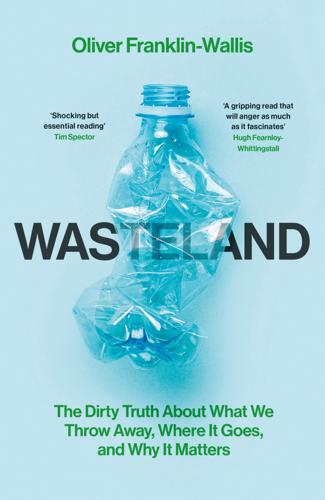
Wasteland: The Dirty Truth About What We Throw Away, Where It Goes, and Why It Matters
by
Oliver Franklin-Wallis
Published 21 Jun 2023
When I first set out to write this book, my plan had been in part to seek out positive stories – the individuals and companies acting to make changes to our wasteful economy. And I saw and met many of them: companies like Apeel Sciences, in California, which is working to coat fruit and vegetables with a wax-like surface that negates the need for plastic wrapping. Sharing economy apps like Olio and Too Good to Go, which are helping people and businesses cut down on food waste and increase charitable donations. Greyparrot, a British AI company, is using artificial intelligence to increase robotic sorting on recycling lines, to prevent materials being lost to incineration.
…
See used goods Seghill 40–1 Sellafield nuclear facility 294–318, 319 Sentinel 5-P satellite 33 Severnside Energy Recovery Centre (SERC) 93–110 sewage 12, 13, 35, 145–69, 214–16, 220–1, 223, 224, 225, 239–40, 243, 245, 331 sewers 4, 12, 27, 47, 49, 50, 145, 148–9, 152–69, 196, 225, 235 sharing economy apps 192, 324 SHEIN 121, 137 Shen Lu 120–1 shipping 5, 6, 46, 67, 72, 75, 76, 83–92, 105–6, 118–19, 187, 196, 261, 284, 296–7, 310, 329–30, 332 Singh, Rahul 231 Skinner, Branson 133 skip-diving 171 Slade, Giles: Made to Break 257 slaughterhouse waste 47, 84, 215 Smith, Jamie 2–3, 11, 14, 42, 277, 335 Snow, John 150–1, 155–6; On the Mode of Communication of Cholera 150–1 Society of the Plastics Industry 53, 54, 59, 64 soil 3, 19n, 20, 26, 33, 35, 37, 40, 41, 81, 90, 99, 105, 146–7, 163, 186, 190, 192, 193, 196–8, 199, 201, 202, 206, 208, 210, 211, 216, 237, 240, 262, 268, 280, 287, 292, 293, 296–7 solid mine waste 276–7 South Africa 18, 291 South East Asia 5, 79–81, 84–5, 90, 91 South Korea 207, 253 space littering 3–4 Spanish Armada 147 Spencer, Kate 332 spolia 46 Starlinger extruder 66 starlings 32 steel 1, 44, 51–2, 76, 158, 164, 165, 253 Steinbeck, John: The Pastures of Heaven 194; Travels with Charley 54 Stouffer, Lloyd 53, 54 Street Cleaning Department, Manhattan 50 Stuart, Tristram: Waste: Uncovering the Global Food Scandal 176, 213 SUEZ 7, 29–30, 32, 39, 40–1, 83, 94, 107 Sumani, Yakubu 269 Suntory 208 Superfund National Priority List 34, 281 supermarket 111, 116–17, 122, 175, 178–82, 186–9, 191, 212, 323, 324–5 surfactants 219–20, 241 Swachh Bharat 24–5 tailings 273–6, 279, 282, 284, 292–3, 295–6 Tanum, Sweden 215 Tar Creek Superfund site 278–93, 333 Teflon 241 tells 20 Tesco 72, 75, 117, 126, 175, 180, 323 Thailand 11, 79, 84, 85, 270 Thames, river 149–53, 158, 161, 162, 163–7, 331, 332–3 Thames Water 158, 161, 162, 164–5, 166–7 Thermal Oxide Reprocessing Plant (THORP) 299–300, 303–4, 305–6 thermoplastic 56, 68 Thomas, Larry 64 Thompson, Richard 210 Three Mile Island 295 threshold theory 227–8, 239, 242 Tideway Tunnel 164–7 toilet 5, 68, 74, 98, 146, 147–9, 156, 157, 160, 168, 169, 200–1, 214–15, 268 Tokyo 19 Too Good to Go 192, 324 tote bags 320 toxic colonialism 6, 85–6 Toxic Substances Control Act (1976) 228 Toyama prefecture, Japan 239 Tri-State district, US 277–93 trimethylamine 22 trommel machine 207–8 Turnbull, Chris 184–5 Turnbull, Sue 184–5 Umicore 249 Unilever 65n, 71–2, 323, 331 United Nations 87, 197, 224, 331; Environment Programme 101, 173, 267; Food and Agriculture Organization 186; Stockholm Convention 240; University 249 University College London Plastic Waste Innovation Hub 210 University of Arizona 35 University of California 59, 198 University of Oklahoma 280 University of Plymouth 210 Unnao, India 234–7, 244 uranium 288, 291, 295–6, 298, 303–4, 305, 306, 317 urban mining 77, 249 urine 145, 146, 160, 215, 230, 268 used goods 5, 111–41, 262–4, 271, 272, 328; charity shops 111–14, 126, 135, 136, 138, 250; colonialism and 123–4, 138; donation, motive behind 137–8; economics of 112–13; fashion as business of waste 120–1; fashion industry’s recycling drive 135; fast-fashion industry and 116–18, 120–2, 126, 128, 131, 133–41; Kantamanto market, Accra 122–30; No More Fast Fashion Lab 133–7; online reuse and resale apps 135; Pink Elephant Recycling 113–20; The Revival 138–41; waste management, Accra and 129–37 Varanasi, India 221, 237–8, 245 Vegware 209, 211 Veolia 83, 204, 215 vermicomposting 198–9 Vermont, sale of non-refillable bottles banned (1953) 62 Vescovo, Victor 54 Vibrio cholerae 150 Vincenz, Jean 31 volatile organic compounds (VOCs) 33 vultures 17, 32, 289 Walmart 179 Wang Jiuliang 78–9 Waring, Colonel George E. 49–50 Waste Electrical and Electronic Equipment (WEEE) 34, 76–7, 89, 104, 247–72; data and 253–4; deadstock 254–5; Electronics Recyclers International, Inc (ERI) 247–54; export of 261–72; planned obsolescence and 255–9; recycling of 247–72; repair and 259–61; size of market 248–9; urban mining 249 waste influencers 320–3, 339 Waste Isolation Pilot Plant (WIPP), New Mexico 310–11, 314 Waste Management Inc. 7, 81–3 waste mismanagement 11, 79 waste pickers 5, 18, 21, 24, 25, 26–7, 47–8, 49, 58, 244, 330 wastewater 21, 77, 120, 148, 156, 157, 175–6, 215–16, 220–1, 231–2, 233, 234, 241, 244, 275, 296 Wen’an, China 77, 78 West London Waste Authority 93, 107 wet blue 231–2 wet wipes 12, 161–3 whale blubber 35, 240 white stork 32 Wiens, Kyle 254 Windscale 298–300, 310 wishcycling 58, 60 Wong, Steve 87, 89 World Bank 4, 19, 24, 130, 195, 283–4 World Trade Organisation (WTO) 76 World Wildlife Fund (WWF) 175, 186 Worn Again 135 WRAP 174–5 Wyeth, Nathaniel 56 X-Press Pearl 68 Yakuza 7, 82 Yamuna river, India 219–24 Yara 215 yellowcake 295 Yeo Bee Yin 79–80 Yiwu, China 76–7 Yucca Mountain Depository 312–13 Zara 120–1, 128, 132 zero waste 12, 131, 179, 181, 212, 321–3, 326, 329, 339 Zhang Yin 76 zinc 34, 278–9 First published in Great Britain by Simon & Schuster UK Ltd, 2023 Copyright © Oliver Franklin-Wallis, 2023 The right of Oliver Franklin-Wallis to be identified as the author of this work has been asserted in accordance with the Copyright, Designs and Patents Act, 1988.
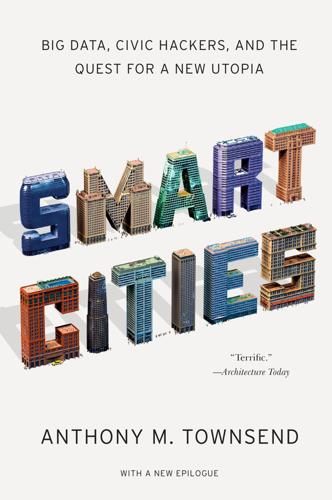
Smart Cities: Big Data, Civic Hackers, and the Quest for a New Utopia
by
Anthony M. Townsend
Published 29 Sep 2013
Today we can mine the social graph in an instant by simply taking a photo. Algorithms churn in the cloud, telling the little things in our pocket where we should eat and whom we should date. It’s a jarring transformation. But even as old norms fade into the past, we’re learning new ways to thrive on mass connectedness. A sharing economy has mushroomed overnight, as people swap everything from spare bedrooms to cars, in a synergistic exploitation of new technology and more earth-friendly consumption. Online social networks are leaking back into the thriving urban habitats where they were born in countless promising ways. These developments are our first baby steps in fashioning a new civics for smart cities.
…
E., 283–84 Curitiba, 11 CV Dazzle, face-recognition scrambling by, 14 Cyber Emergency Response Team, 268 cybernetics, 74–76, 81, 82 cyber-sabotage, 266–69 cyberspace, 49 Daley, Richard, 207 data-driven management, 210–11, 214 data mining, 206 data networks, 42–46 as fourth utility, 44 Davies, Donald, 259–60 Death and Life of Great American Cities, The (Jacobs), 16, 97–98, 103, 126 de Bruijn, Mirjam, 180 “deep analytics,” 209 Defense Department, U.S., 79–80, 111, 260, 265, 269–70 defense industry, 77, 79 de Forest, Lee, 129 de la Peña, Benjamin, 174 Deng Xiaoping, 24 “dependable computing,” 299 de Tocqueville, Alexis, 308 Detroit, Mich., 51, 295 Digital Cellular Radio (Calhoun), 52 digital divide, 189–93 issues of access and agency in, 190–91 digital identity, biometrics in, 310 Digital Media City, 28 digital networks, 7, 53 sharing economies in, 16 to transform cities with, 7–9 digital technology: for democratizing cities, 9–10 in design of smart leisure facility, 22 as solution to urban problems, 8 urbanization intersection with, 4, 6–7 digital video camera, 115 Division of Vital Statistics, U.S., 59 DIYcity.org, 155–59, 164–65, 202 Challenges for, 156–58 DIYtraffic, 157 Dodgeball, 121–26, 134, 146, 233 Dominican Republic, 176–77 Donteat.at, 150 dontflush.me, 139–40 doomsday scenarios, 276–81 Doppler radar, 68 Downtown Alliance (Manhattan), 132–33 Dreadnought, 21 Dr.

Virtual Competition
by
Ariel Ezrachi
and
Maurice E. Stucke
Published 30 Nov 2016
For instance, they can reduce costs by optimizing inventory levels; “to have the right amount of stock in the right place at the right time.”28 Manufacturers, distributors, and retailers can rely on sensors to track products and components throughout the supply chain from 8 Setting the Scene production to point-of-sale. Moreover, online platforms can unleash economic value on several levels. The sharing economy, for example, promises to increase efficiency through greater transparency and disintermediation. People can immediately profit from assets currently being underutilized—our cars, houses, power tools, or spare time. As more people rely on ride-sharing apps, fewer people will need to buy cars.
…
We are particularly grateful to the organizers and participants of the following conferences and hearings: The Organisation for Economic Co-operation and Development hearing “Across Platform Parity Agreements”; the House of Lords hearing “Online Platforms and the Digital Single Market”; the Canadian Competition Bureau’s “Workshop on Emerging Competition Issues: Keeping Pace in a Changing World”; the European Data Protection Supervisor & Academy of Eu ropean Law’s conference “Competition Rebooted: Enforcement and Personal Data in Digital Markets”; the Federal Trade Commission’s workshop “The ‘Sharing’ Economy: Issues Facing Platforms, Participants, and Regulators”; Bar Ilan University’s conference “Fairness in Antitrust”; the British Institute of International and Comparative Law’s event “The Role of ‘Big Data’ in Competition and Privacy Law”; Lund University’s conference “21st Century Challenges and Antitrust: Thinking Ahead”; and Loyola University Chicago and University of Haifa’s joint event “Antitrust in Transitional Markets.”
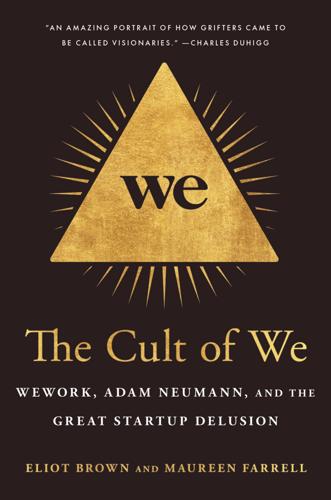
The Cult of We: WeWork, Adam Neumann, and the Great Startup Delusion
by
Eliot Brown
and
Maureen Farrell
Published 19 Jul 2021
Just four years old, WeWork was already the billion-dollar company Neumann had envisioned when he was opening the first building. Still, he wasn’t close to being done. Airbnb would soon nab a $10 billion valuation, and Neumann saw himself in that stratosphere. More and more, he was portraying WeWork as a tech company. WeWork was part of the sharing economy; it needed offices just as Uber and Airbnb needed cars and apartments, he told investors. Its tech was cutting edge, he’d say. The entrepreneur who could barely use a MacBook managed to pepper references to technology effortlessly into his pitch. WeWork was offering “space as a service”—a play on the “software as a service” business model that was taking off in Silicon Valley.
…
Baker, one of the star portfolio managers at the giant mutual fund manager Fidelity Investments, had just heard from a banker that his biggest rival fund manager, Henry Ellenbogen, had recently invested in a shared office space company he’d never heard of: WeWork. Ellenbogen’s firm, T. Rowe Price, had valued it at $5 billion. The deal marked the end of a swift Series D fund-raising round put together by Neumann. Armed with his tech-saturated slide deck, Neumann had sold Ellenbogen on his idea that WeWork was a bet on the sharing economy—not some humdrum real estate concern. Ellenbogen was so impressed by the rapid growth that he boasted to The Wall Street Journal that anyone who saw WeWork’s finances would “compare it to a brand or tech company—maybe Chipotle or Uber.” Uber had become red hot, with its valuation soaring to $41 billion by the end of 2014, making it the most valuable private, venture-backed startup in the United States.

Lonely Planet's 2016 Best in Travel
by
Lonely Planet
Published 30 Sep 2015
Polar Expeditions’ most popular expedition is the ‘Last Degree’ trip, a 14-day ski tour that covers the last 100km or so, and includes a helicopter ride back to civilisation. See www.polarexplorers.com. • By Will Cockrell The North Pole is the Ultimate Terrain for feats of Endurance Martin Hartley © GETTY IMAGES The World’s Most Extraordinary Sleepovers Sheer inventiveness and the sharing economy have opened up a new world of sublime and ridiculous places to spend the night. 1 Dog Bark Park Inn, Idaho, USA When in Idaho, where you do feel like staying? In the stomach of an enormous beagle? You’re in luck: we have just the place. Dog Bark Park Inn is the brainchild of two artistic dog lovers, and is an enormous structure – rather like a Trojan horse, but a dog, if you see what we mean.
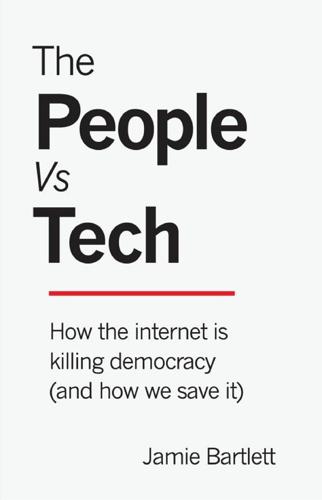
The People vs Tech: How the Internet Is Killing Democracy (And How We Save It)
by
Jamie Bartlett
Published 4 Apr 2018
Pavol, a mildly secretive hacker who uses several pseudonyms, was organising a gathering of programmers, libertarians and crypto-anarchists. The theme, according to the programme that he emailed over, was decentralised. ‘The concept of the authoritative state is gradually becoming obsolete,’ it read. ‘The rise of sharing economies with reputation models, digital contracts and cryptocurrencies makes the role of central governments useless.’ The Institute of Cryptoanarchy is housed in a large three-storey building in central Prague called ‘Parralel Polis’. It was set up in 2014 by a handful of artists and cryptography enthusiasts who wanted to explore ways of using technology to carve out more space for individual freedom.
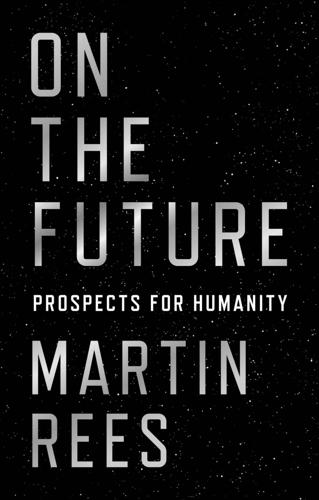
On the Future: Prospects for Humanity
by
Martin J. Rees
Published 14 Oct 2018
For my generation, our living space (a student room and later something more spacious) was ‘personalised’ by books, CDs, and pictures. Now that books and music can be accessed online, we will perhaps become less sentimental about ‘home’. We will become nomadic—especially as more business and socialising can be done online. Consumerism could be replaced by a ‘sharing economy’. If this scenario transpires, it will be crucial that developing nations transition directly towards this lifestyle, bypassing the high-energy, high-consumption stage through which Europe and the United States have passed. Effective campaigns need to be associated with a memorable logo. The BBC’s 2017 TV series Blue Planet II showed an albatross returning from wandering thousands of miles foraging in the southern oceans—and regurgitating for its young not the craved-for nutritious fish, but bits of plastic.
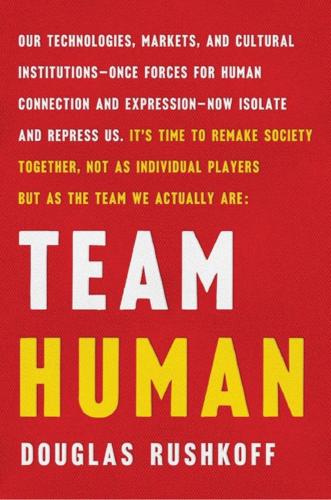
Team Human
by
Douglas Rushkoff
Published 22 Jan 2019
The intellectual potential of the 1990s’ internet was exploited by stock traders looking to sell new stories to investors. The unprecedented possibilities for connection offered by social media in the 2000s were surrendered to the more immediately profitable pursuits of surveillance, data mining, and user control. And the sharing economy of the 2010s was handily put down by venture capitalists, who used these same principles to establish incontestable and extractive platform monopolies. Possibilities for renaissance are lost as our openness to fundamental change creates footholds for those who would exploit us. Innovations are instrumentalized in pursuit of short-term profit, and retrieved values are ignored or forcibly quashed.
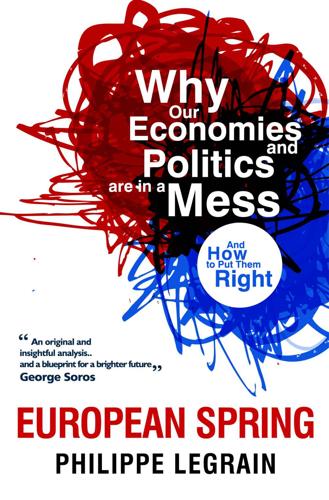
European Spring: Why Our Economies and Politics Are in a Mess - and How to Put Them Right
by
Philippe Legrain
Published 22 Apr 2014
A global pioneer is Italy’s Enel, the state-owned energy utility, which has deployed more than 30 million smart meters to its customers since 2001.552 The internet is also making it easier to connect people who want to rent out rooms, cars and all sorts of other things with those who want to borrow them – a new sharing economy that offers huge potential for growth. Airbnb, a company based in San Francisco, allows people to rent out accommodation for the night; by the end of 2013 ten million people had used its services, many of them in Europe.553 It now has several European rivals: Wimdu and 9flats, both based in Berlin, and London-based onefinestay, which also offers upmarket services.
…
Ending the tax bias towards debt in general and property speculation in particular would make a big difference. When financial crashes do occur, governments should tackle excessive debts head on and support the economy fiscally rather than exclusively by monetary means. Both labour and capital need to be more versatile to cope with reasonably predictable variability, and the new sharing economy offers huge potential for growth. As workforces shrink and societies age in pretty predictable ways, economies need to adjust by getting more people into work, admitting more newcomers and reforming pension systems. Last but not least, to cope with radically uncertain climate change, Europe needs better incentives for research and a tax on carbon consumption.
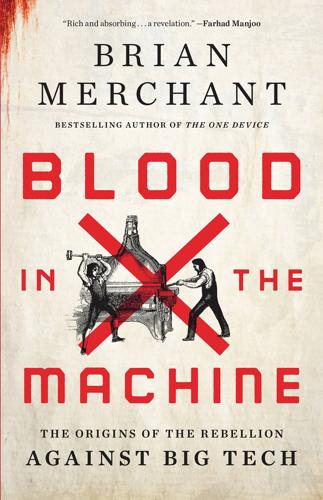
Blood in the Machine: The Origins of the Rebellion Against Big Tech
by
Brian Merchant
Published 25 Sep 2023
Before the Luddites: Custom, Community, and Machinery in the English Woollen Industry, 1776–1809. Cambridge: Cambridge University Press, 1991. Randall, Adrian. Riotous Assemblies: Popular Protest in Hanoverian England. Oxford: Oxford University Press, 2006. Ravenelle, Alexandrea J. Hustle and Gig: Struggling and Surviving in the Sharing Economy. Berkeley: University of California Press, 2019. Raynes, Francis. An Appeal to the Public: Containing an Account of Services Rendered during the Disturbances in the North of England in the Year 1812 (1817). Rede, William Leman. York Castle in the Nineteenth Century: Being an Account of All the Principal Offences Committed in Yorkshire from the Year 1800 to the Present Period, with the Lives of the Capital Offenders.
…
To be precise, my mistake. Humans are underrated.” 17. “fauxtomation” Astra Taylor, “The Automation Charade,” Logic, no. 5 (August 1, 2018), https://logicmag.io/failure/the-automation-charade/. 18. “The gig economy promises flexibility” Alexandrea J. Ravenelle, Hustle and Gig: Struggling and Surviving in the Sharing Economy (Berkeley: University of California Press, 2019), 15. 19. The economic historian Louis Hyman The story of the rapid corporate assault on workers’ benefits and the transition to part-time work is the focus of Louis Hyman’s book Temp: How American Work, American Business, and the American Dream Became Temporary (New York: Viking, 2018). 20.
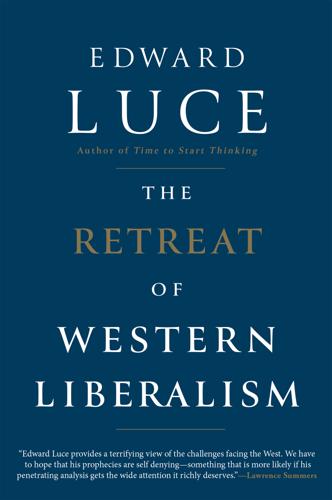
The Retreat of Western Liberalism
by
Edward Luce
Published 20 Apr 2017
Nor is the gig economy dominated by millennials. Britain has more pensioners doing independent work than people under thirty. In America, the labour force participation rate for people aged between sixty-four and seventy-five has jumped by 4.7 per cent in the last decade, a time when the overall rate has dropped.66 We like to call it the sharing economy. But the fact that older people are doing such a large share of the work suggests a less charitable force is at play. As the real value of pensions and social security goes down, the pressure to postpone retirement grows. Again, we should be careful not to generalise: some older people are working because they enjoy it.
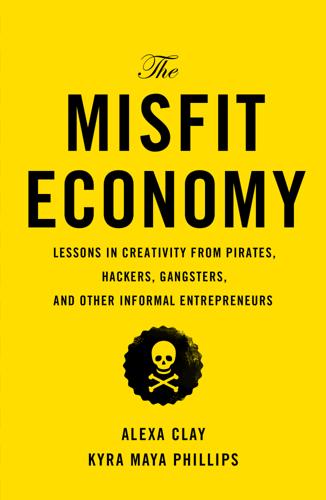
The Misfit Economy: Lessons in Creativity From Pirates, Hackers, Gangsters and Other Informal Entrepreneurs
by
Alexa Clay
and
Kyra Maya Phillips
Published 23 Jun 2015
In 2007 he started working within the company on mobility solutions and urban transport options beyond cars. “The idea that we are going to create a middle class in BRIC economies doesn’t make sense. Not everyone wants or should have 2.2 cars.” In the future, Berdish imagines a world where cars are more of a shared resource and more functional. “Cars will have to be more stripped down. In a sharing economy or mega-city, you don’t need satellite radio and fancy navigation systems; you just need cars to serve a function.” Berdish helped develop mobility solutions at Ford, which meant showing the company the value of business models built around car sharing and mass urban transport options like rail, metro, buses, and bicycles.

The More of Less: Finding the Life You Want Under Everything You Own
by
Joshua Becker
Published 2 May 2016
As many Millennials will tell you, it is difficult to live a mobile lifestyle with a house full of stuff. This generation is the most environmentally conscious of all age groups, and this influences their buying habits significantly. Technological connectedness has brought new opportunities for the “sharing economy” in which assets (bikes, cars, housing) are not owned by individuals but shared communally. Access has replaced ownership. Additionally, the Internet has established a worldwide flea market. When nearly every product available to humankind can arrive at my doorstep in less than twenty-four hours with just the click of a button, I have less need to stockpile an inventory of items in my house.
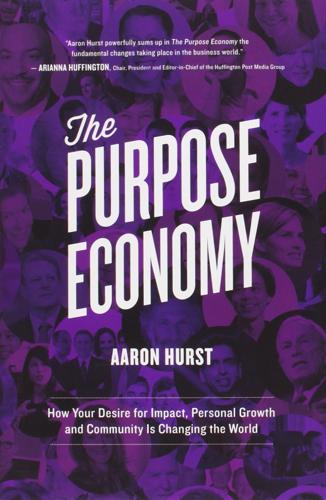
The Purpose Economy: How Your Desire for Impact, Personal Growth and Community Is Changing the World
by
Aaron Hurst
Published 31 Aug 2013
Gross Domestic Product (GDP). United States Census Bureau, 2011. Web. 7. “The 2012 Statistical Abstract.” Gross Domestic Product (GDP). United States Census Bureau, 2012. Web. 8. Sutton, Mark. “Social Media Revenue to Reach $16.9bn.” Http://www.itp.net. N.p., n.d. Web. 13 Sept. 2013. 9. “The Rise of the Sharing Economy.” The Economist. 9 Mar. 2013. N.p. Web. 10. Larsen, Janet. “Plan B Updates.” Earth Policy Institute. N.p., 25 Apr. 2013. Web. 11. Frier, Sarah. “Etsy Tops $1 Billion in 2013 Product Sales on Mobile Lift.” Bloomberg.com. 12 Nov. 2013. Web. 12. “Navigant Research.” Navigant Research. N.p., n.d.
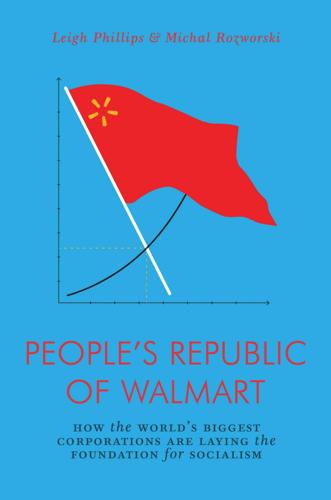
The People's Republic of Walmart: How the World's Biggest Corporations Are Laying the Foundation for Socialism
by
Leigh Phillips
and
Michal Rozworski
Published 5 Mar 2019
For now, they use the accumulated data to sell ad space—who knew the epitome of high technology would be getting the right people to see ads for novelty “I have a Polish husband and I know how to use him” T-shirts?—but the possibilities are much broader. Uber and other media darlings of the “sharing economy” combine sussing out information with finding new ways to lower transaction costs. Good capitalists that they are, they’re doing it at the expense of workers and democracy (and other capitalists, namely the venture financiers who continue to pump money into a business like Uber even though it has so far failed to turn a profit).

Rentier Capitalism: Who Owns the Economy, and Who Pays for It?
by
Brett Christophers
Published 17 Nov 2020
Uber’s direct counterparts on the capital side are platforms such as Turo, which enable private car owners to rent out their vehicles – but not their labour. The archetypal capital platform, of course, is Airbnb, through which ‘guests’ search for and book homes for short-term rent listed by ‘hosts’. The ‘sharing economy’ label often given to the capital platform subsector is, needless to say, a misnomer, at least when applied to Airbnb and its ilk: if the Airbnb ‘host’ is ‘sharing’ her asset with her ‘guest’, it is only because she is being paid to do so. The third category is similar to the second, except that what are being sold – and it is generally sale rather than letting in this case – are not capital assets, but commodities.
…
The political obstacles to taking on rentier capital in the court of public opinion may therefore not be as great, in the British case at any rate, as Bregman fears. As William Davies has recently observed, in another insightful essay: The young people of Generation Left are now habituated to an economy organised around rents, which they experience not just as tenants but through the dubious opportunities afforded by the ‘sharing economy’. Work space, spare bedrooms, cultural ‘content’ and vehicles aren’t things to be owned, but hired on a time-limited basis. Conversely, with the demise of the ‘career’ as the dominant way of organising working life, a young person comes to view him or herself as a rentable asset, which finds its price on the market.
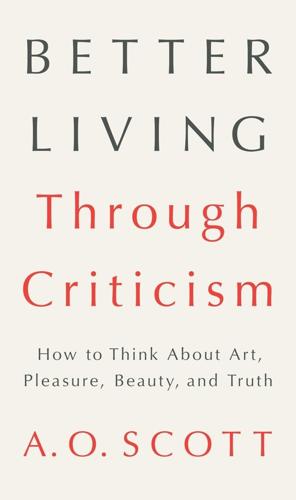
Better Living Through Criticism: How to Think About Art, Pleasure, Beauty, and Truth
by
A. O. Scott
Published 9 Feb 2016
Plenty of excellent movies have languished in semioblivion because of poorly conceived or executed marketing campaigns, and others, good and bad, owe some of their success to the intelligence and intuition of marketing executives. You look skeptical. Q: I’m a little surprised to hear you praising your natural enemies. And isn’t connecting with an audience really the responsibility of the artist? A: That’s the digital-Utopian pipe dream of our time, isn’t it? The sharing economy. “Makers” will peddle their wares in an old-fashioned, artisanal manner, assisted by new technologies. “Just put it out there!”—whatever it is. Your self-published e-book, your Web series, your hand-knit scarves and home-brewed bitters. People will find it. How will they find it, though? How will they know what to do with it?
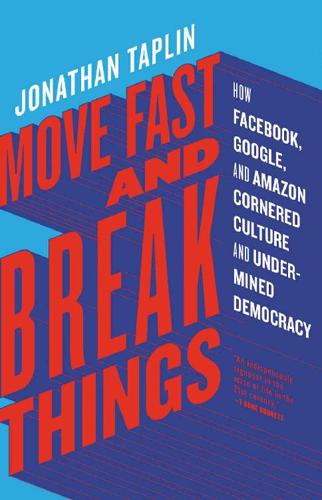
Move Fast and Break Things: How Facebook, Google, and Amazon Cornered Culture and Undermined Democracy
by
Jonathan Taplin
Published 17 Apr 2017
Grover Norquist, the libertarian antitax advocate who vowed to “shrink the government to the size that he could drown it in a bathtub,” told Vox’s Ezra Klein that the only things keeping Silicon Valley money in the Democratic Party were cultural issues. With “gay marriage off the table,” he said, “it could be a very easy case” to persuade the big Silicon Valley players to give money and support to the Republicans, who oppose teachers’ unions, oppose regulating the sharing economy, and are wholeheartedly in favor of free trade. 5. The unreality of the world of tech billionaires came home to me when I spent two days in 2015 at an invitation-only conference with Graydon Carter, editor in chief of Vanity Fair, and the swells of Silicon Valley in San Francisco. The conference, called the Vanity Fair New Establishment Summit, left me wondering whether there isn’t a kind of bubble in the Valley that has nothing to do with the inflated valuations of the “unicorns” (private companies worth more than $1 billion), which were so much a focus of conversation onstage and envy offstage—especially from established Hollywood moguls, who are drawn to Graydon Carter like moths to a flame.
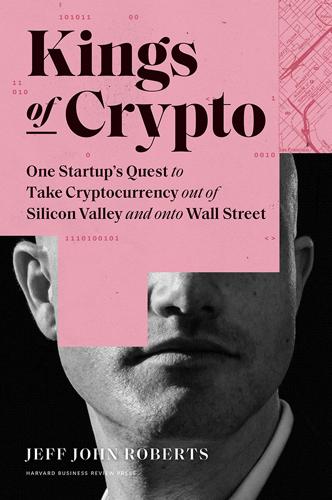
Kings of Crypto: One Startup's Quest to Take Cryptocurrency Out of Silicon Valley and Onto Wall Street
by
Jeff John Roberts
Published 15 Dec 2020
In the long run, of course, this proved impractical, and new laws were required to regulate cars. Coinbase has many of the same backers as Airbnb, Uber, and other Silicon Valley companies that built their business on what some call “regulatory arbitrage”—exploiting regulatory loopholes while also unleashing feel-good PR that includes fluffy phrases like “the sharing economy.” The strategy had worked well for those other startups, letting them grow big enough to fight every court battle and curry favor with politicians. But Brian knew that for the crypto industry to catch a break, it would need new laws. And that meant going to Congress to help lawmakers make good ones.
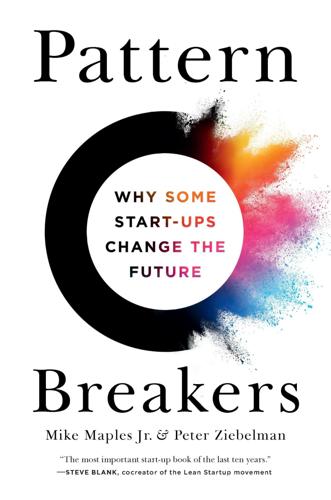
Pattern Breakers: Why Some Start-Ups Change the Future
by
Mike Maples
and
Peter Ziebelman
Published 8 Jul 2024
They don’t recognize that a new thing has appeared in their environment that empowers them to do things they’ve never done before. As a result, they continue with business as usual, unaware that the power to create radical change is there for the taking. Some founders have the insight to see these powers and harness them to create radical change. The insight behind Uber and Lyft was that it is possible to apply the sharing economy to cars. Just as Airbnb had allowed people to share an extra room in their houses, ridesharing start-ups like Uber and Lyft proposed to let people share an extra seat in their cars. It was possible, in other words, to radically change how people traveled from one place to another through an app that harnessed the power of GPS-enabled smartphones together with people’s willingness to share their location.
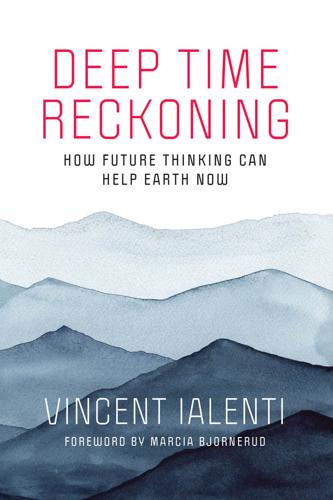
Deep Time Reckoning: How Future Thinking Can Help Earth Now
by
Vincent Ialenti
Published 22 Sep 2020
Throwaway consumerism favors the production of many cheap disposable goods over fewer moderately priced durable goods. Hedge fund managers use computer programs that make financial decisions in seconds or less. They work in digitized global marketplaces and stock exchanges that move even faster. Flexible employment structures, the “gig economy” of contract-based temporary labor, the rise of automation, and “sharing economy” platforms like Uber leave millions anxious about near-term job insecurity. They worry about uncertain future earnings, savings, and benefits. The boom-bust-or-buyout tempos of startup companies are increasingly rapid. Fashion, music, television, and movie trends remain notoriously fickle. And all of this applies only to those with relatively decent standards of living.
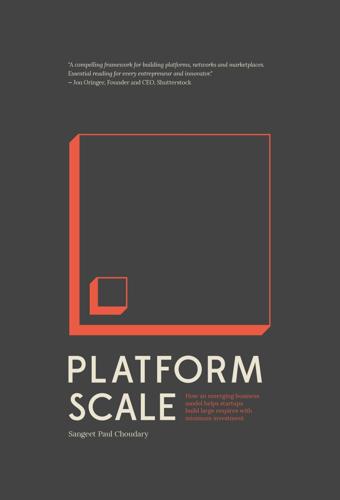
Platform Scale: How an Emerging Business Model Helps Startups Build Large Empires With Minimum Investment
by
Sangeet Paul Choudary
Published 14 Sep 2015
Participating on Twitter does not involve much risk for either side, but participating on a platform for discovering – and ordering – home-cooked food may have higher associated risks. Depending on the degree of risk involved, the platform may have to invest heavily in offering centralized guarantees and insurance. Most ‘sharing economy’ platforms, like Airbnb and Uber, invest in creating insurance and trust mechanisms to ensure that users are not discouraged from participating. PLATFORM SCALE IMPERATIVE A scaling strategy cannot be restricted simply to acquiring new users and keeping them engaged. A scaling strategy for platforms should involve: 1.Scaling of production 2.Scaling of consumption 3.Strengthening of filters through ongoing data acquisition 4.Scaling social curation 5.Scaling community culture 6.Minimizing interaction risk There are significant management challenges when scaling a network effects platform, which are often underestimated.

Choose Yourself!
by
James Altucher
Published 14 Sep 2013
These extra rooms essentially become hotel rooms for people looking for accommodations (except they’re usually a lot cheaper). AirBnB has more rooms available in New York than all the hotels combined. Uber and AirBnB are hard to invest in right now because they are private. But figuring out how to piggyback on, or use, their model—which is becoming widely known as “the sharing economy”—will provide ways for people to make money. In essence, people are taking what they already have—homes, cars, time—and using these assets to create wealth. Or, we can take it one step back: creating an information product that studies this trend and gives suggestions on how to make money is another way to generate income
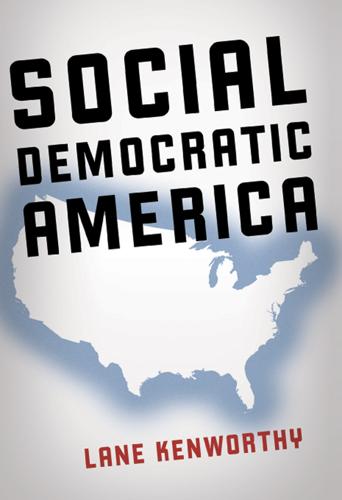
Social Democratic America
by
Lane Kenworthy
Published 3 Jan 2014
Weeden, Kim A. 2002. “Why Do Some Occupations Pay More Than Others? Social Closure and Earnings Inequality in the United States.” American Journal of Sociology 108: 55–101. Weidenbaum, Murray L. et al. 1980. “On Saving the Kingdom.” Regulation, November-December: 14–35. Weitzman, Martin L. 1984. The Share Economy. Cambridge, MA: Harvard University Press. Weller, Christian. 2012. “Unburdening America’s Middle Class.” Challenge, January-February: 23–52. Western, Bruce. 2006. Punishment and Inequality in America. New York: Russell Sage Foundation. Western, Bruce. 2012. “Crime and Punishment.” Boston Review, March-April: 5–6.
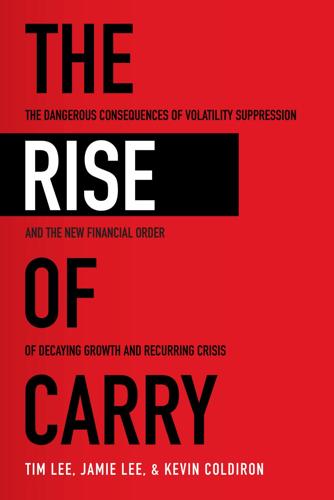
The Rise of Carry: The Dangerous Consequences of Volatility Suppression and the New Financial Order of Decaying Growth and Recurring Crisis
by
Tim Lee
,
Jamie Lee
and
Kevin Coldiron
Published 13 Dec 2019
Rent-seeking is usually thought about in terms of an industry group or interest group lobbying politicians in order to secure monopoly power. The classic example is taxi drivers securing and defending a taxi licensing scheme. This is a good example, and very contemporary in these days of the “sharing economy.” Taxi licensing is a good analogy for the carry regime to the extent that in a growing city the taxi owners benefiting from the monopoly power endowed by their license will benefit not only from higher incomes but also from the increasing market value of the license, the fundamental value of which depends on the discounted future income stream deriving from taxi fares.

Uncanny Valley: A Memoir
by
Anna Wiener
Published 14 Jan 2020
We held long and impassioned meetings about partnerships and design, and ordered in pizza when these meetings crossed into night. Everything felt urgent, high stakes. One afternoon, the CEO summoned us into a conference room to demo the pitch deck he was making for meetings with publishers. He opened by stating that ours was the era of the sharing economy. Millennials, he said, as if he were not one of them, weren’t into ownership, but experiences. This was not just a new market strategy, but a cultural ideology. Pioneering digital platforms in the sharing and subscription economies enabled people to stream films and albums and video games, rent cocktail dresses and three-piece suits, reserve bedrooms in strangers’ houses, and ride shotgun in strangers’ cars.
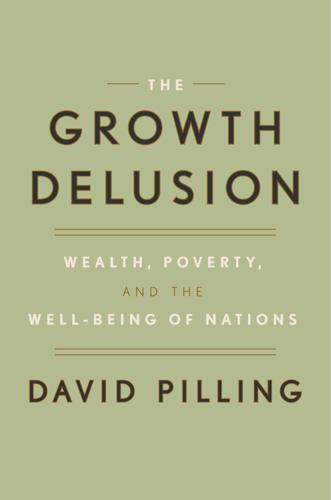
The Growth Delusion: Wealth, Poverty, and the Well-Being of Nations
by
David Pilling
Published 30 Jan 2018
Many companies make a business of selling on information about their customers. This means you may be contributing to growth in ways that only the National Security Agency truly understands. Something else was going on that night in New York. You were participating in what has become known rather glibly as the sharing economy. Before Airbnb, if you were out of town, you would normally have left your apartment vacant. Post Airbnb, you can effectively exchange your apartment for one in Baja California by finding a third person to rent it on the online marketplace. Congratulations, you are helping to sweat the world’s physical assets.
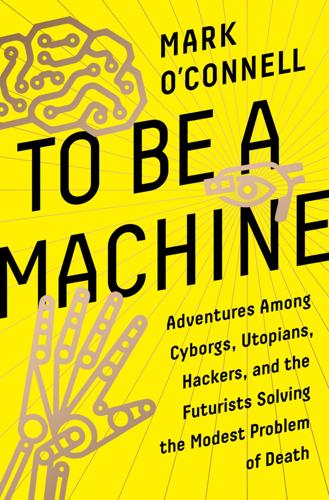
To Be a Machine: Adventures Among Cyborgs, Utopians, Hackers, and the Futurists Solving the Modest Problem of Death
by
Mark O'Connell
Published 28 Feb 2017
In one of these articles, I had read about his strict Catholic upbringing, his break with the faith in his teens, and his subsequent investment of his energies into “the passion, the fervor, the desire to optimize the future” through the power of rationality. Nate’s rhetoric in these writings seemed to me a heightened performance of the Silicon Valley house style, in which every new social media platform or sharing economy start-up was announced with the fervent intention to “change the world.” At fourteen, he wrote, he became aware of the chaos of all human things, of a world around him “that couldn’t coordinate,” and he made a promise to himself. “I didn’t promise to fix governments: that was a means to an end, a convenient solution for someone who didn’t know how to look further out.
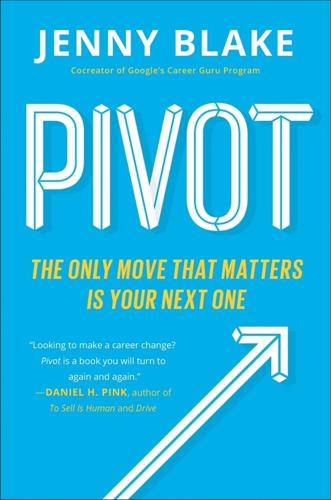
Pivot: The Only Move That Matters Is Your Next One
by
Jenny Blake
Published 14 Jul 2016
Job security has become an antiquated idea, a luxury most people today do not enjoy, whether they are aware of it or not. Corporate loyalty has given way to uncertainty; companies that seem too big to fail have collapsed, along with many smaller ones. New ones take their place. With the advent of app marketplaces, crowdfunding, the maker revolution, and sharing economies, we now see billion-dollar valuations for companies that would not have existed ten years ago, and many smaller businesses cropping up in parallel. To add to the upheaval, a recent Gallup study revealed that almost 90 percent of workers are either “not engaged” or “actively disengaged from their jobs.”

Happy Inside: How to Harness the Power of Home for Health and Happiness
by
Michelle Ogundehin
Published 29 Apr 2020
THE PRACTICAL BUT SELDOM USED An item bought because you felt you ought to, but which you either don’t use regularly enough to justify its existence or have lost the manual so you haven’t a clue how to operate it now anyway. Here things often fall into the but-I-might-need-it-one-day camp. To which I say, okay, then hang on to it for another year and if you still haven’t used it, get rid of it. After all, if it really came to it, you could probably borrow one through the ever-expanding sharing economy, or buy a new one (and then sell it on), as newer models will inevitably exist by the time you might actually need said very specific item, and they’ll undoubtedly be far superior to whatever you have mouldering away in storage. ANYTHING THAT ANNOYS YOU That jug which always dribbles. A cup that’s hard to hold because the handle is too small.
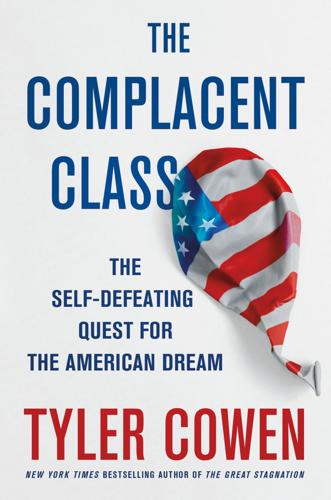
The Complacent Class: The Self-Defeating Quest for the American Dream
by
Tyler Cowen
Published 27 Feb 2017
The end result is better matches, more matches, and happier owners, not to mention happier pets and more pets who manage to stay alive. These days, matching is for everyone, not just human beings. And by the way, don’t think that these days you have to own a dog to get the benefits. Just use the app Bark‘N’Borrow, an Uber-like sharing economy service to help you spend some time with a dog—and then, when you are done, send it back to its owner. The dog’s owner feels less guilty about keeping the pet in her apartment all day while she is working, the dog gets to go for a walk, your seven-year-old is delighted by the experience, and at the end of the day, everyone’s carpet remains fully unsoiled.
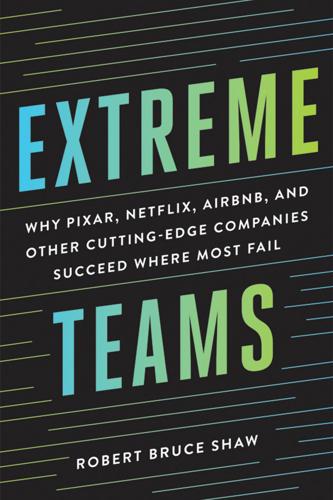
Extreme Teams: Why Pixar, Netflix, AirBnB, and Other Cutting-Edge Companies Succeed Where Most Fail
by
Robert Bruce Shaw
,
James Foster
and
Brilliance Audio
Published 14 Oct 2017
The goal is to ensure that Airbnb innovates faster than the competition and, in so doing, prevents others from doing what Airbnb is now doing to traditional hotels with its peer-to-peer model. Airbnb is constantly testing new ideas within its current model, such as hosts picking up their guests at the airport or providing them with walking tours and other experiences (for example, dinners or cultural events). It has also considered other areas in the “sharing economy” outside of its current business. The problem, of course, is that firms invest in a particular operating model and, especially if successful, are slow to recognize when that model is at risk. Being rigidly focused on a narrow set of priorities, if not balanced with an ability to consider creative alternatives, can hurt a company over the long term.

Nomadland: Surviving America in the Twenty-First Century
by
Jessica Bruder
Published 18 Sep 2017
Back at the RTR, I caught up with Peter Fox, sixty-six, whom I’d met the year before. Then he’d been a vandweller in training, staying at the RTR in a borrowed Westafalia camper. After twenty-eight years in the San Francisco taxi industry as a driver, dispatcher, medallion holder, and manager, he had gotten squeezed out by Uber. “The sharing economy—the step-on-the-backs-of-the-little-people economy—has arrived,” he announced glumly. “I was at the point where I could no longer both pay my rent and eat.” He had tried to sell his medallion, which he thought would bring in about $140,000 after taxes, to retire on the proceeds. But sales were brokered by the city and demand for medallions was low.
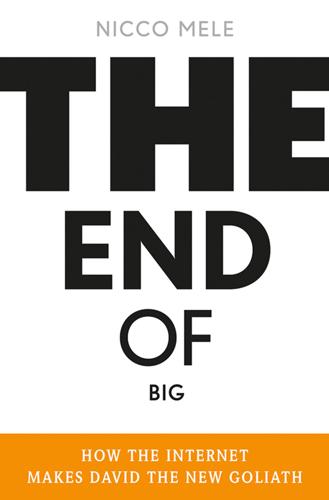
The End of Big: How the Internet Makes David the New Goliath
by
Nicco Mele
Published 14 Apr 2013
Christopher Steiner, $20 per Gallon: How the Inevitable Rise in the Price of Gasoline Will Change Our Lives for the Better (New York: Hachette Book Group, 2009), 141. 38. http://www.npr.org/templates/story/story.php?storyId=129151987 39. Rachel Botsman, Roo Rogers, What’s Mine Is Yours: The Rise of Collaborative Consumption (New York: HarperBusiness, 2010), xx 40. http://www.fastcompany.com/1747551/sharing-economy 41. Rachel Botsman and Roo Rogers, introduction, What’s Mine Is Yours: The Rise of Collaborative Consumption (New York: HarperCollins, 2010), xvii. 42. http://www.rollingstone.com/politics/news/global-warmings-terrifying-new-math-20120719 9. Big Opportunities 1. Eamon Grennan, “Could This Be It?”
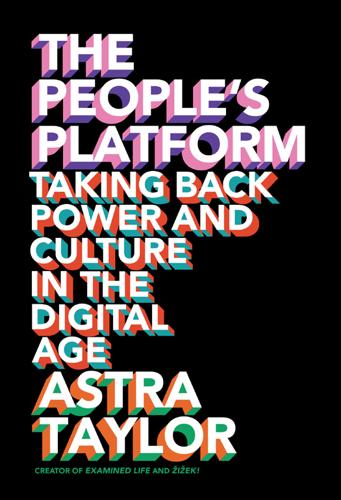
The People's Platform: Taking Back Power and Culture in the Digital Age
by
Astra Taylor
Published 4 Mar 2014
For a discussion of a Linux Foundation report that is one source of this figure, see Tom Slee’s blog post, “Linux Grows Up and Gets a Job,” April 19, 2008, http://whimsley.typepad.com/whimsley/2008/04/linux-grows-up.html. 34. Quotes from p. 3 of the introduction to Tapscott and Williams’s wikinomics. The use of social production for less-than-revolutionary ends is also on display in Lawrence Lessig’s often commendable work. In an essay about the benefits of what he calls the “sharing economy,” he describes the tens of thousands of volunteers who “make Microsoft richer by solving its customers’ problems” through a variety of online newsgroups. The riches accrued to Microsoft, though “great,” shouldn’t be shared with the volunteers, Lessig says, because money would be “harmful” to the community by confusing incentives.
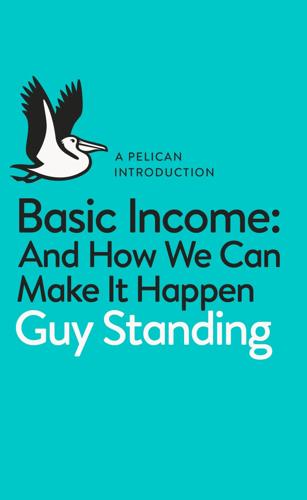
A Pelican Introduction: Basic Income
by
Guy Standing
Published 3 May 2017
Barnes (2014), Liberty and Dividends for All: How to Save Our Middle Class When Jobs Don’t Pay Enough. Oakland, CA: Berrett-Koehler. 35. S. Lansley (2015), ‘Tackling the power of capital: The role of social wealth funds’, Compass Thinkpiece No. 81. London: Compass. 36. S. Lansley (2016), A Sharing Economy. How Social Wealth Funds Can Tackle Inequality and Balance the Books. Bristol: Policy Press, Chapter 2. 37. Standing, The Corruption of Capitalism. 38. UK Treasury (2016), Shale Wealth Fund: Consultation. London: HM Treasury. 39. Standing, The Corruption of Capitalism. CHAPTER 8: THE IMPLICATIONS FOR WORK AND LABOUR 1.
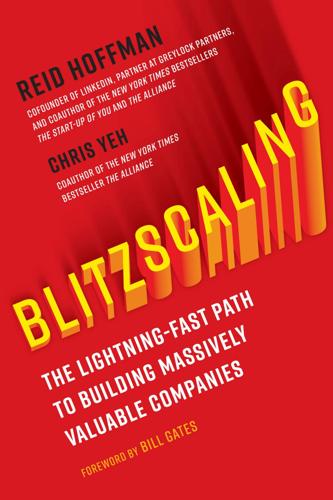
Blitzscaling: The Lightning-Fast Path to Building Massively Valuable Companies
by
Reid Hoffman
and
Chris Yeh
Published 14 Apr 2018
BLITZSCALING IN SOCIETY Responsible blitzscaling matters because successful blitzscalers often reach a point where they are more than just a business; they actually affect the fabric of the society in which they operate. Social media like Facebook and Twitter have changed how we consume information and how we communicate. Marketplaces like Alibaba and eBay provide economic opportunity—some dedicated sellers even rely on them for their livelihoods. Sharing economy services like Airbnb can bring more tourism and diversity into the cities in which they operate. And Amazon is changing the entire retail industry, which affects everyone. As Spider-Man teaches us, with great power comes great responsibility. We believe that the responsibilities of a blitzscaler go beyond simply maximizing shareholder value while obeying the law; you are also responsible for how the actions of your business impact the larger society.

Everything I Know About Love
by
Dolly Alderton
Published 1 Feb 2018
In fact, I would love nothing more than to conduct a sort of literary salon in which all my beloved friends bring their comfort blankets from childhood to the table and we discuss the gender identities of all of them. I would, believe it or not, find that completely compelling. I know what it is to collaboratively set up and run a home. I know what a shared economy of trust is; to know there will always be someone who will lend you £50 until pay day and that as soon as you’ve paid it back they might need to borrow the same off you (‘We’re like primary school kids constantly swapping sandwiches,’ Belle once said of our salaries. ‘One week you need my tuna and sweetcorn, the next I want your egg and cress’).
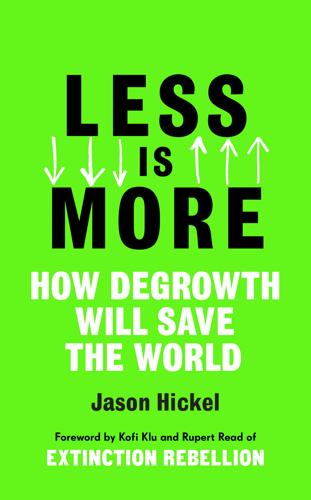
Less Is More: How Degrowth Will Save the World
by
Jason Hickel
Published 12 Aug 2020
See also Dominik Wiedenhofer et al., ‘A systematic review of the evidence on decoupling of GDP, resource use and GHG emissions,’ Environmental Research Letters, 2020. 37 ‘Survey of young Americans’ attitudes toward politics and public service,’ Harvard University Institute of Politics, 2016. 38 Edelman Trust Barometer, 2020. 39 According to the same 2015 YouGov poll mentioned earlier in the paragraph. 40 Yale Climate Opinion Maps, Yale Program on Climate Change Communication. 41 Stefan Drews et al., ‘Challenges in assessing public opinion on economic growth versus environment: considering European and US data,’ Ecological Economics 146, 2018, pp. 265–272. 42 The New Consumer and the Sharing Economy, Havas, 2015. 43 ‘The EU needs a stability and well-being pact, not more growth,’ Guardian, 2018. 44 William Ripple et al., ‘World scientists warn of a climate emergency,’ BioScience, 2019. 45 World Inequality Database. 46 The lead scenario in the IPCC’s 2018 report relies on declining material and energy throughput.
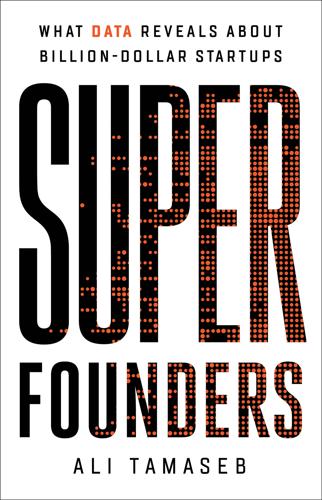
Super Founders: What Data Reveals About Billion-Dollar Startups
by
Ali Tamaseb
Published 14 Sep 2021
“Expensive cable subscriptions and record albums in part fueled the rise of streaming companies like Netflix, Spotify, and Hulu,” Flint wrote. “High, inflexible costs for contract labor and stagnant wage growth in parts of the economy gave birth to the gig economy and startups like TaskRabbit, Postmates, and DoorDash. And some macroeconomic forces—like the recession—created the sharing economy. It’s no coincidence that Airbnb and Lyft popped up in the years following the financial crisis.”2 For one more example, look to Plaid, a financial technology company that was last valued at over $5 billion. Using a set of application programming interfaces (APIs), Plaid helps app developers collect financial data from a user’s bank with the user’s permission.
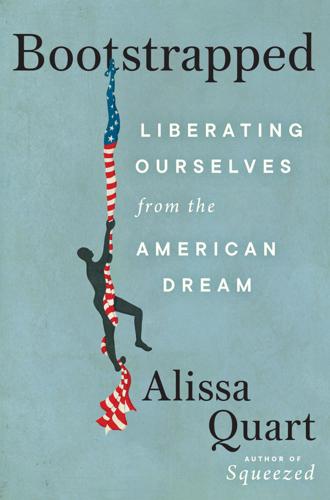
Bootstrapped: Liberating Ourselves From the American Dream
by
Alissa Quart
Published 14 Mar 2023
As with mutual aid groups, the strength of the collective evokes “communal luxury.” At a time when we’re saturated with stories of both individual achievement and individual suffering, worker co-ops can show us communal endeavor. But you needn’t have to join a worker co-op to participate in a sharing economy. Nembhard pointed out that “I lend you sugar, and you lend me sugar” while not “hard economics is economics all the same,” and so is, “We carpool, and I babysit for you, and you babysit for me.” Many of us unwittingly already were and will continue to be part of such exchanges. Worker cooperatives were simply the next step.

Vassal State
by
Angus Hanton
Published 25 Mar 2024
Based in Boston, Massachusetts, the company’s website announces: ‘we’re on a mission to enable simple and responsible urban living – a future filled with more car-sharing members than car owners… from the Big Apple to Big Ben.’10 Owned by the Avis Budget Group of New Jersey, Zipcar also satisfies drivers’ desire for less polluting solutions with the positive message of a ‘sharing economy’. Theirs is a very top-down version of ‘sharing’: the company owns the asset and many people rent it. It works even better for other car-sharing organisations, such as Uber and Lyft, whose chauffeurs themselves provide the cars while the platform collects a payment every time the vehicle is used.
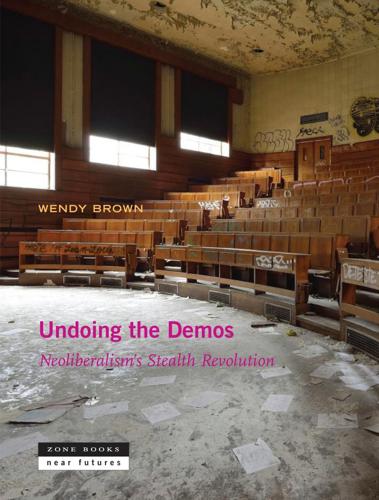
Undoing the Demos: Neoliberalism's Stealth Revolution
by
Wendy Brown
Published 6 Feb 2015
But none of this helps us grasp the imperatives that issue from the systemic drives of capitalism — the imperative of cheapening labor and expanding markets, the imperative of economic growth, the imperative of constant renovations in production (and now in financial instruments) to generate profit, and so forth. Certainly, neoliberalism ushers in a new order of economic reason, a new governing rationality, new modes and venues of commodification, and of course, new features of capitalism C h a r t in g N eo l ib e r a l P o l i t i c a l R at i o n a l i t y 75 and new kinds of capital — from sharing economies to Bitcoin, from derivatives to human capital — but its systematic imperatives cannot be reduced to any of these things. These imperatives can be radically refashioned and reorganized (as financialization itself makes clear), and they are not matters of instinct or of hydraulics, yet they are fundamental life drives no less fierce than those of a living being.
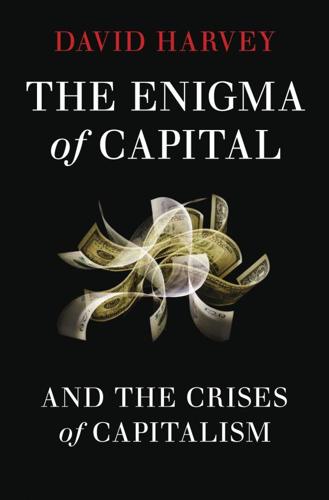
The Enigma of Capital: And the Crises of Capitalism
by
David Harvey
Published 1 Jan 2010
In the early stages of capitalism the rise of the industrial city epitomised such agglomeration economies in action. In more recent times much has been made of the rise of ‘Marshallian’ industrial production districts like Silicon Valley or the ‘Third Italy’ centred around Bologna, where many small firms have come together to share economies of production and marketing. In the financial world today, having legal, accounting, tax advice, information, media and other activities alongside the core financial functions produces the typical profile of the great financial centres such as the City of London and Wall Street. Very early on, capitalist enterprises also drew on a vast network of spatially disparate market connections.
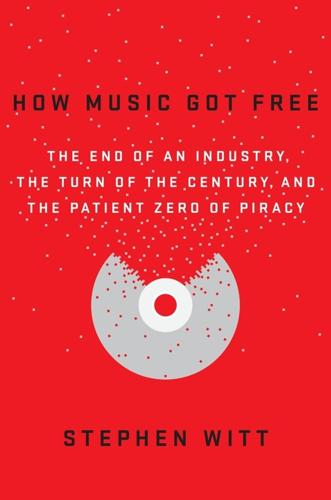
How Music Got Free: The End of an Industry, the Turn of the Century, and the Patient Zero of Piracy
by
Stephen Witt
Published 15 Jun 2015
With their venture capital drying up, many operators in the peer-to-peer space began secretly bundling their supposedly “free” applications with gray-market adware, flooding the desktops of the unsuspecting with pitches for low-credit loan consolidations and penis-enlarging pharmaceuticals. Investors predictably rebelled, as did users, and for a time the file-sharing economy faced a return to the days of the pre-Napster IRC underground. But the underlying potential of peer-to-peer technology was still tremendous, and, even as mainstream capitalists abandoned it, the more idiosyncratic programming talent stuck around. And that was how an offbeat 25-year-old code warrior at a short-lived peer-to-peer start-up called MojoNation ended up using his spare time at a doomed job to rewrite the rules of Internet architecture.
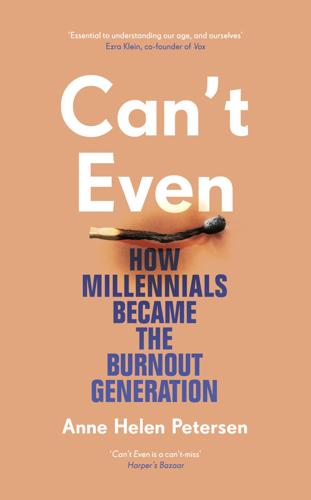
Can't Even: How Millennials Became the Burnout Generation
by
Anne Helen Petersen
Published 14 Jan 2021
Having to worry so much about where the next bit of bread is coming from means people losing control over their lives.”24 Or, as one Uber driver told Rosenblat, “you don’t have a boss over your head—you have a phone over your head.”25 Freelancing is exhausting and anxiety-building enough. But that’s compounded by the widespread refusal to see what you do as work. Just as the work of teachers or mothers is devalued (or unvalued), jobs within the sharing economy aren’t figured as jobs at all—they’re attempts to monetize your hobby, to have fun conversations while driving around the city, to invite people into your home. Even calling these jobs “gigs,” with all the inherent connotation of brevity and enjoyability, elides their status as labor. It’s not the gig economy after all; it’s the always-frantically-seeking-the-next-gig economy
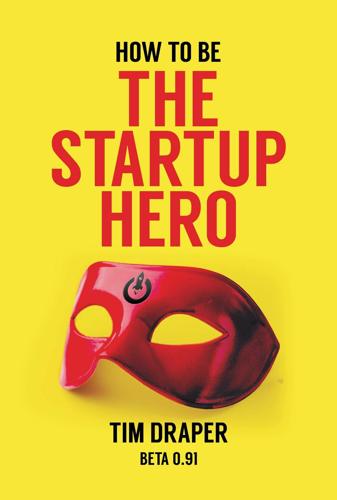
How to Be the Startup Hero: A Guide and Textbook for Entrepreneurs and Aspiring Entrepreneurs
by
Tim Draper
Published 18 Dec 2017
If other scientists decide to follow suit and we get an open source outflowing of scientific ideas and collaboration, science could go through the same explosion that we have had in entrepreneurship in Silicon Valley, and human progress will again be accelerated. Look for industries to improve: healthcare, entertainment, real estate, insurance, fashion and banking. Look for new technologies to improve them with: the shared economy, social media, programmable stem cells, CRISPR, microsatellites, virtual reality, Bitcoin, solar economies, self-driving cars, electronic clothes, bioelectronics, robot brains, prosthetic limbs, Pokémon derivatives, offline massively open online courses (MOOCs), enterprise software, and multivariable authenticators.
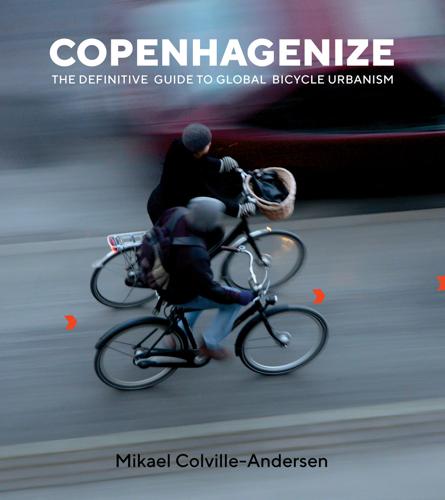
Copenhagenize: The Definitive Guide to Global Bicycle Urbanism
by
Mikael Colville-Andersen
Published 28 Mar 2018
And yet my own neighbors will see these bikes, wait for a while, and then start recycling the parts for personal use. You and I can share our anger and frustration about bike theft, but I remain fascinated about how, on some deep, social level, bicycles are perceived as things that belong to all of us. How they became some binding element and a democratic tool for sharing—long before the sharing economy was a thing. Maybe it’s just the world’s largest bike-share system. I have a little pocket full of poetic to pepper up my indignation. It’s all very confusing. I have also confused others by saying that you can measure the success of reestablishing the bicycle as a mainstream transport form by counting how many bikes end in the harbors, lakes, and rivers of a city.
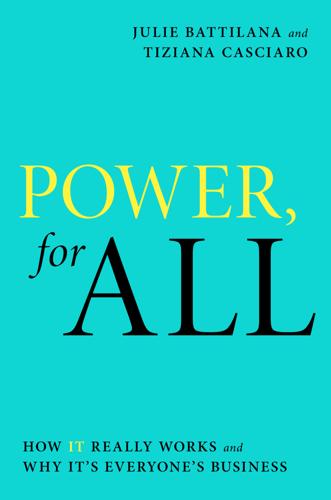
Power, for All: How It Really Works and Why It's Everyone's Business
by
Julie Battilana
and
Tiziana Casciaro
Published 30 Aug 2021
Theory and Evidence,” American Economic Review 84, no. 3 (1994): 600–21. 51 Ai-jen Poo in discussion with the authors, October 2019. 52 Lauren Hilgers, “The New Labor Movement Fighting for Domestic Workers’ Rights,” New York Times, February 21, 2019, https://www.nytimes.com/interactive/2019/02/21/magazine/national-domestic-workers-alliance.html. 53 Alexia Fernández Campbell, “The Worldwide Uber Strike Is a Key Test for the Gig Economy,” Vox, May 8, 2019, https://www.vox.com/2019/5/8/18535367/uber-drivers-strike-2019-cities. 54 For more data on electricity co-ops in the United States, see the National Rural Electric Cooperative Association’s fact sheet at: https://www.electric.coop/wp-content/uploads/2021/01/Co-op-Facts-and-Figures.pdf. 55 Juliet Shor, After the Gig: How the Sharing Economy Got Hijacked and How To Win It Back (Berkeley: University of California Press, 2020). 56 “What’s American for Mitbestimmung?: Most of the World Has Yet to Embrace Co-determination,” The Economist, February 1, 2020, https://www.economist.com/business/2020/02/01/most-of-the-world-has-yet-to-embrace-co-determination. 57 John Addison, The Economics of Codetermination: Lessons from the German Experience (New York: Palgrave Macmillan US, 2009). 58 Isabelle Ferreras, Firms as Political Entities. 59 Isabelle Ferreras, Julie Battilana, and Dominique Méda, “Let’s Democratize and Decommodify Work,” The Boston Globe, May 2020.

Underwater: How Our American Dream of Homeownership Became a Nightmare
by
Ryan Dezember
Published 13 Jul 2020
There are tens of millions of millennials coming of age behind us buried in even more student debt, knowing full well that home prices can fall, and, thus far at least, not generally wedded to the notion of ownership. The rental companies’ executives, as well as their investors, are giddy with the idea of high-earning, cash-poor, sharing-economy-steeped millennials making babies and alighting to the suburbs in search of nice schools and granite countertops. Many of these young adults will appreciate that they can live in a well-maintained, family-sized suburban home and send their children to good public schools without committing to decades of mortgage payments, tying up their savings in down payments, or risking entrapment in another market collapse.
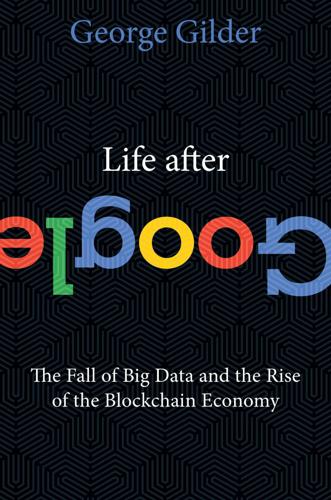
Life After Google: The Fall of Big Data and the Rise of the Blockchain Economy
by
George Gilder
Published 16 Jul 2018
This was a major blow against the online strategy of “aggregate and advertise,” which was widely alleged to be Google’s path to permanent near-monopoly. Since the iPhone is the source of some 75 percent of all Google’s mobile ad revenues, Apple’s move struck at the heart of Google’s mobile strategy. Beyond its free, open source, “sharing-economy” Android platform, Google’s response did not arrive until a year later. Then it chose deceptively to copy Apple. Google’s industry-leading advertising Analytics tools apparently revealed that its users liked the idea of blocking ads. Customers come first, so in its Chrome browser, Google introduced its own ad-blocker.
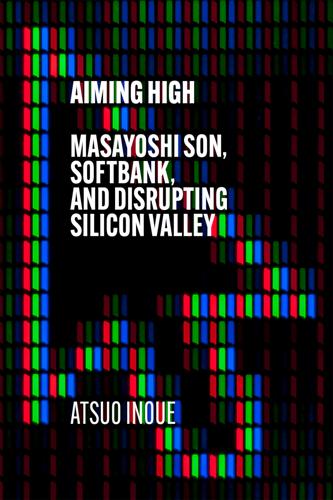
Aiming High: Masayoshi Son, SoftBank, and Disrupting Silicon Valley
by
Atsuo Inoue
Published 18 Nov 2021
Is it really the right thing to sign a 20-year contract for a huge office? With a short-term and flexible contract, you can work from a place close to your house, you know you can not concentrate on your work at home when your family members and children are making noise, that’s tough. You have to have Zoom meetings so often, too. In this sense, the new sharing-economy, such as WeWork, shared offices, shared cars, shared travel, or gig-workers, food delivery, Zoom as well, brings about a new lifestyle and work style, and the pandemic is accelerating the penetration of the new styles for sure. So, in post-COVID, that (implying the lifestyle and working style before the pandemic) will be reviewed as a matter of fact.’
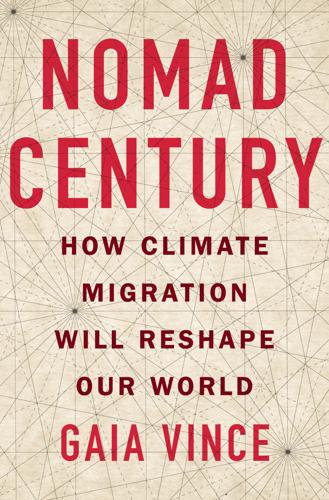
Nomad Century: How Climate Migration Will Reshape Our World
by
Gaia Vince
Published 22 Aug 2022
CIRCULATING RESOURCES The advantage of having a global population concentrated in megacity safe havens is the opportunity for efficiencies. Community resources – including transport, children’s toys, office equipment, heat, light and power – can be shared rather than owned, reducing raw materials used and waste. We already see the seeds of this sharing economy – I am a member of my local toy library and have ZipCar membership. Cities are not autonomous, they feed on the outside world. Swedish cities, for example, import 20 tons of fossil fuel, water and minerals per person per year. With many of the sources of our minerals and natural materials set to be, within decades, physically inaccessible to humans – because of dangerous temperatures or rising sea levels – we will have to find alternatives or use robotic labour.
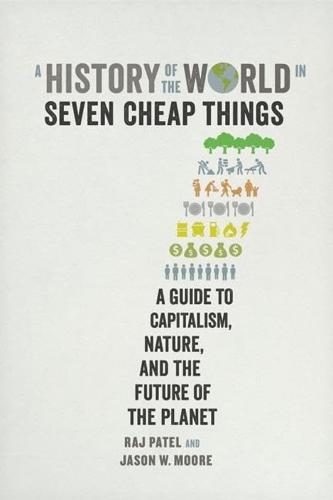
A History of the World in Seven Cheap Things: A Guide to Capitalism, Nature, and the Future of the Planet
by
Raj Patel
and
Jason W. Moore
Published 16 Oct 2017
Capitalism has always experimented with every available kind of labor system simultaneously. Hence the persistence today of slavery—which counts more people at the time of writing than were transported across the Atlantic as slaves72—and of wartime work camps in, say, the Democratic Republic of the Congo, alongside new kinds of work in “the sharing economy.” In each case, management looks just beyond the horizon of current labor practice to reimagine and reinvent how our working lives might link with one another, and with nature beyond them. Capitalism, however, could not survive a day without a third moment of work: the appropriation of human reproductive labor, conducted largely outside the cash nexus.
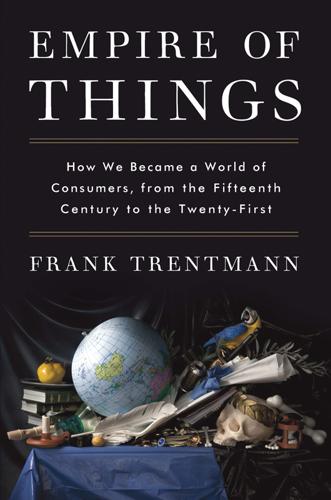
Empire of Things: How We Became a World of Consumers, From the Fifteenth Century to the Twenty-First
by
Frank Trentmann
Published 1 Dec 2015
About 58 per cent of these dwellings were in the prime tourist areas by the sea. The number of English people owning a second home abroad doubled in the decade after 1997, reaching a quarter of a million in 2007; that of Norwegians quadrupled between 2002 and 2008.77 Of course, champions of the sharing economy might respond that, nonetheless, online services such as airbnb provide shared, alternative lodging that makes more efficient use of existing resources, meaning that fewer hotels are required. On New Year’s Eve in 2014, more than half a million people on this planet stayed on sofas and in flats rented via airbnb.
…
This is the hope many attach to a sharing and leasing economy. The internet, in this view, will not only bring greater efficiency but wean people off ownership and socialize them into a sharing lifestyle characterized by collaboration, long product-cycles, maintenance and reuse and a low carbon footprint. So far, the sharing economy has been limited to very specific sectors, especially car travel and accommodation, while leasing mainly takes place between businesses.17 We need to have a sense of proportion. In 2014, 92,000 vehicles belonged to carsharing programmes – in the entire world. By comparison, 2.5 million new cars were registered in the United Kingdom alone that year, the fourth largest figure on record.
…
See United Nations, Economic Commission for Europe, Economic and Social Council, ECE/CES/GE.20/2015: ‘Vacation Home Ownership in a Globalized World’, and see the UNECE’s http://www.unece.org/fileadmin/DAM/stats/groups/wggna/GuideByChapters/Chapter_12.pdf. 78. A study of Austin, with data from 2008 to 2014, estimated that each 10% increase in airbnb supply resulted in a 0.35% decrease in monthly hotel-room revenue; for this and further references: see Georgios Zervas, Davide Proserpio & John W. Byers. ‘The Rise of the Sharing Economy: Estimating the Impact of Airbnb on the Hotel Industry’ (Boston, 2014). 79. Sean O’Connell, The Car and British Society: Class, Gender and Motoring, 1896–1939 (Manchester, 1998), 34–6. 80. Alison Clarke, ‘Mother Swapping: The Trafficking of Nearly-new Children’s Wear’, in: Commercial Cultures: Economics, Practices, Spaces, eds.
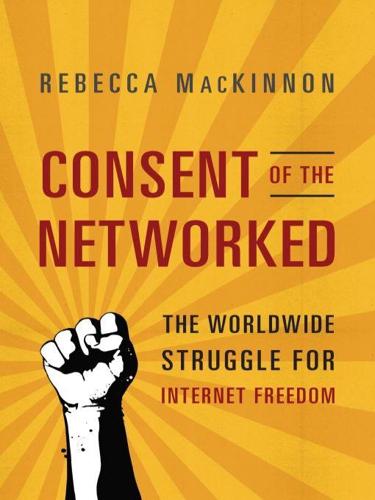
Consent of the Networked: The Worldwide Struggle for Internet Freedom
by
Rebecca MacKinnon
Published 31 Jan 2012
Since WordPress software is also free, Zola was able to customize it, with help from other members of the global WordPress developer community, adding special technical features that would enable his readers to connect to his site securely, allowing people to leave comments anonymously on his site. WordPress, and the community of bloggers who use it and improve upon it, is just one small part of a much larger phenomenon known as the “sharing economy” or the “digital commons”: an important reason the Internet is so revolutionary and disruptive. A robust digital commons is vital to ensure that the power of citizens on the Internet is not ultimately overcome by the power of corporations and governments. In the early 1800s, when the United States was still a novel political experiment, Alexis de Tocqueville observed in his classic book Democracy in America that the key to functional democracy was a vibrant “civil society.”
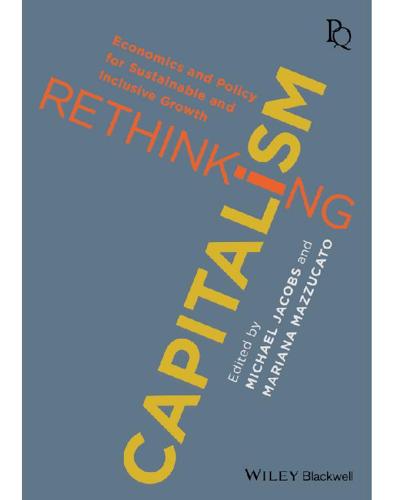
Rethinking Capitalism: Economics and Policy for Sustainable and Inclusive Growth
by
Michael Jacobs
and
Mariana Mazzucato
Published 31 Jul 2016
From commercial lighting systems and airplane engines to jeans, carpets and cars, the question has become: why buy when you have the option of ‘renting’ a product that is upgradeable, maintained and available on demand? There is increasing innovation towards making cities more liveable and less polluting, with the revamping of transport systems and the built environment and the promotion of the ‘sharing economy’, in which ICT-enabled communication allows citizens to share goods, either through a centralised, fee-paying service, such as a car club, or using direct peer-to-peer exchange for such items as household tools and garden equipment. And lifestyle aspirations are stimulating industries in the areas of personal health and individual fulfilment—from innovations in local food networks to high-tech ICT and bio-science-driven preventive and personalised medicine, and the championing of the ‘collaborative’ and ‘creative’ economies.
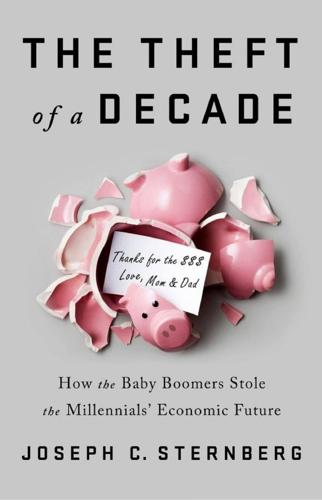
The Theft of a Decade: How the Baby Boomers Stole the Millennials' Economic Future
by
Joseph C. Sternberg
Published 13 May 2019
Indeed, the entire appeal of companies such as Uber is that they do not have a large workforce that subjects them to expensive labor taxes, costs, and regulations. Instead, the most important fact about the modern gig economy is its preoccupation with sweating capital as much as humanly possible—maximizing the profits from capital assets that a “sharing-economy” entrepreneur already owns—while investing as little as possible in labor. The central premise of Uber or Lyft or Airbnb or many other sharing platforms is that the app will allow a micro-entrepreneur (or the platform itself) to extract maximum profits from personal assets like a car or an apartment that otherwise would sit idle for large parts of the day.

Winners Take All: The Elite Charade of Changing the World
by
Anand Giridharadas
Published 27 Aug 2018
The event was a thrillingly democratic contrast with Summit at Sea and other MarketWorld forums. Trebor Scholz stepped up to the podium and explained why, a few years earlier, he had written a short essay on an idea that he coined as platform cooperativism. As he surveyed the world being remade by Silicon Valley, and especially what was once called the sharing economy, he began to see through the fantasy-speak. Here were a handful of companies thriving by serving as middlemen between people who wanted rides and people who offered them, people who wanted their Ikea furniture assembled and people who came over to install it, people who defrayed their costs by renting out a room and people who stayed there.
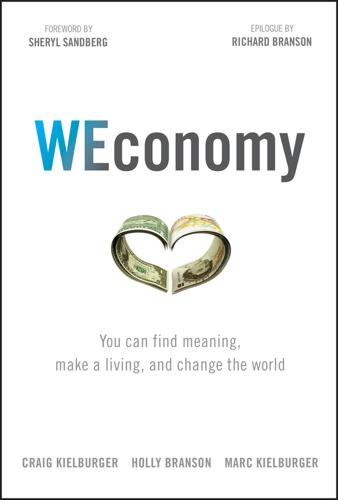
WEconomy: You Can Find Meaning, Make a Living, and Change the World
by
Craig Kielburger
,
Holly Branson
,
Marc Kielburger
,
Sir Richard Branson
and
Sheryl Sandberg
Published 7 Mar 2018
More than half of global respondents in Edelman's 2015 Trust Barometer survey felt that greed, money, or growth were the primary motives behind business innovation—that's two times more than those who thought companies innovated in order to make the world a better place.10 This puts Microsoft's impressive feat of reputation into perspective. As we lose faith in large organizations and their ability to make the world better, we're experiencing a rise in business founded in grassroots communities, especially online. The explosion of the sharing economy, which is based on reciprocity and reputation between strangers, shows us just how much our thinking about trust has shifted. Everything your parents taught you about not getting into cars with strangers has become obsolete. You can hail a ride through an app instead of a using a taxi service.
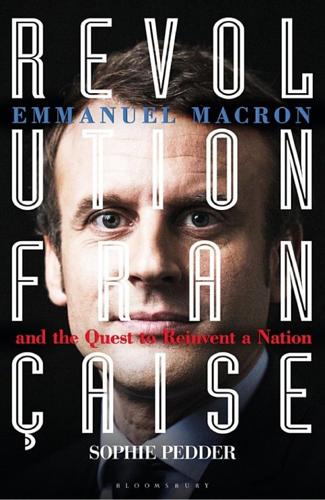
Revolution Française: Emmanuel Macron and the Quest to Reinvent a Nation
by
Sophie Pedder
Published 20 Jun 2018
‘Digital can be a tool to overcome discrimination,’ Mahjoubi told me, explaining the trouble he had getting a job because of his ‘Arab-sounding name’ and how this prompted him to launch his own start-up. Thanks to a maths prize he won at the age of 13 run by a children’s magazine, he bought a computer and taught himself to code. After earning degrees in law and business, Mahjoubi went on to co-found La Ruche qui dit Oui, a sharing-economy start-up that links farm producers and online consumers. That technology could be a way to get round discrimination was a principle that Macron had seen for himself as economy minister. He often used to comment then that it was easier for young people in the banlieues to ‘get a client than a job’.
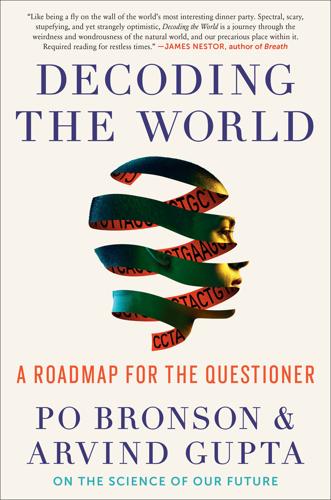
Decoding the World: A Roadmap for the Questioner
by
Po Bronson
Published 14 Jul 2020
Thrift means, simply, “being careful with money.” Living that way is not new. What’s different today is how many conveniences of modern society have, critically, made it easier to stretch a dollar—which, in turn, has allowed the thrift class to grow. We now have tons of retailers who compete at IKEA prices. Sharing economy platforms defray the cost of having to buy things. Thrift-store shopping is now a $7 billion business. Cheap, unlimited entertainment like Netflix, Spotify, and Fortnite is filling thousands of hours of people’s time. People read so much now, for free on their phones, that we call it an addiction.
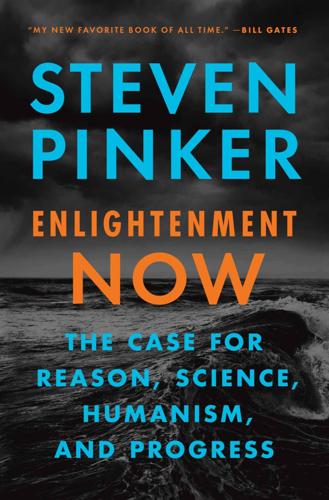
Enlightenment Now: The Case for Reason, Science, Humanism, and Progress
by
Steven Pinker
Published 13 Feb 2018
And just think of all the plastic, metal, and paper that no longer go into the forty-odd consumer products that can be replaced by a single smartphone, including a telephone, answering machine, phone book, camera, camcorder, tape recorder, radio, alarm clock, calculator, dictionary, Rolodex, calendar, street maps, flashlight, fax, and compass—even a metronome, outdoor thermometer, and spirit level. Digital technology is also dematerializing the world by enabling the sharing economy, so that cars, tools, and bedrooms needn’t be made in huge numbers that sit around unused most of the time. The advertising analyst Rory Sutherland has noted that dematerialization is also being helped along by changes in the criteria of social status.37 The most expensive London real estate today would have seemed impossibly cramped to wealthy Victorians, but the city center is now more fashionable than the suburbs.
…
See economic stagnation security dilemma (Hobbesian trap), 164, 173, 315 Seinfeld, Jerry, 374 Selin, Ivan, 148 Semmelweis, Ignaz, 63 Sen, Amartya, 245, 248, 264, 265, 442 Senegal, 203 Sennett, Richard, 456n1 September 11, 2001, attacks conspiracy theories about, 336, 358 high death toll of, 193, 194, 194 resilience of people and, 305–6 success of, as uncommon, 303 as theater, 196 uptick in anti-Islam hate crimes and, 219, 220 used as analogy in dystopian rhetoric, 343, 449 Serbia, 203 Serengeti wilderness park, 123 service organizations, 287, 432, 450 Seven Years’ War, 484n77 sewerage, 63, 67 sex differences anxiety, 285 depression, 476n74 educational parity, 239–40 happiness, 284, 285 suicide rates, 278, 279 See also sexism; women sexism, 214–15 definition of, 214 education of girls and women and, 239–40, 239 Internet searches, as index of, 217–19, 218 public opinion in the U.S., 216–17, 216 romantic heroism and, 444 See also equal rights; sex differences; women Sex, Lies, and Videotape (film), 286 Shakespeare, William, 433 shaming campaigns, global, 222, 443 Shapiro, Scott, 163–4 sharing economy, 135 Shaw, George Bernard, 287, 341, 400, 446, 447 Shellenberger, Michael, 122, 141–2, 147 Shelley, Percy Bysshe, 295 Shermer, Michael, 455n10, 457n32, 458nn19,21, 464n45, 471n3, 472n26, 487n63, 488n34 Sheskin, Mark, 101–2 Shiite Muslims, 162 Shtulman, Andrew, 356 Shultz, George, 316, 319 Sidgwick, Henry, 487n5 Sierra Club, 465n76 Sierra Leone, 238, 238 Sikkink, Kathryn, 207 Silent Generation, 225 emancipative values and, 226 and populism, 341–2, 342 secularization and, 43 suicide and, 280 Silicon Valley, quest for immortality, 60 Silver, Nate, 339, 367 Simmel, Georg, 165 Simon, Julian, 126 Simon, Paul, 284 Simon & Garfunkel, 257 Simpson, Wallis, 270 Sinatra, Frank, 218, 265–6 Sinclair, Upton, 186 Singapore, 85, 85, 171, 207, 457n8 Singer, Isaac Bashevis, 284 Singer, Peter, 429 Sino-Japanese War, 484n77 Sirleaf, Ellen Johnson, 91 slavery abolition of, 11 arguments defending, as corrected errors, 408–9 historical ubiquity of racism and, 397 utilitarianism and laws against, 417 smallpox, 64–5, 386 smartphones, 94–5, 257, 331 Smith, Adam and human psychology, 8–9, 353 on market exchange, 83 on paradox of value, 82 and poverty as default human condition, 25 on real price as the trouble of acquisition, 253 and self-interest working for common good, 13 on specialization, 12–13 Smith, Lamar, 387 Smith, Logan Pearsall, 328 smoke and fire deaths, 182–3, 182 Smokey the Bear, 183 Snopes (Web site), 260 Snow, C.
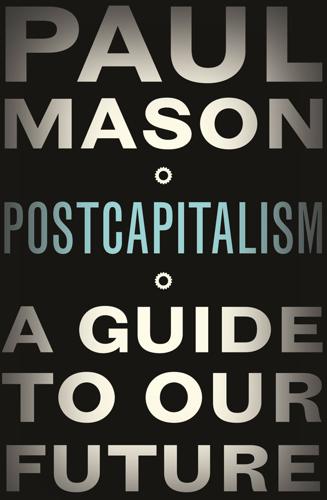
Postcapitalism: A Guide to Our Future
by
Paul Mason
Published 29 Jul 2015
Parallel currencies, time banks, cooperatives and self-managed spaces have proliferated, barely noticed by the economics profession, and often as a direct result of the shattering of old structures after the 2008 crisis. New forms of ownership, new forms of lending, new legal contracts: a whole business subculture has emerged over the past ten years, which the media has dubbed the ‘sharing economy’. Buzzterms such as the ‘commons’ and ‘peer-production’ are thrown around, but few have bothered to ask what this means for capitalism itself. I believe it offers an escape route – but only if these micro-level projects are nurtured, promoted and protected by a massive change in what governments do.
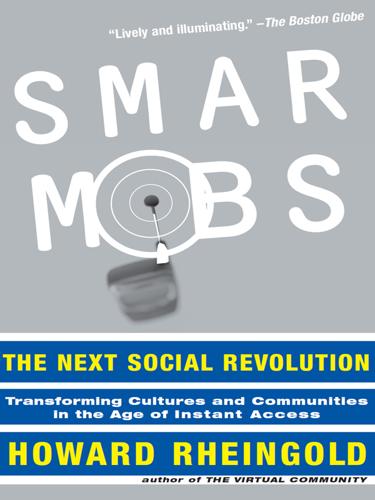
Smart Mobs: The Next Social Revolution
by
Howard Rheingold
Published 24 Dec 2011
Microsoft eventually implemented its own version of Firefly’s “digital passport” technology.2 Ringo turned out to be the progenitor of an evolutionary lineage. Finding new books, movies, or music is a popular pursuit, but it represents only one form of the myriad webs of trust that support markets, scientific enterprises, businesses, and communities. Consider the history of online knowledge-sharing economies. One of the most seductive aspects of social cyberspace is the way virtual communities share useful information. I remember how excited I became in the 1980s, when the never-ending “Experts on the Well” discussion inspired people in the Well, a virtual community of a few thousand, to compete for the honor of providing the fastest and most accurate answers online to questions posed by other members of the community.3 This custom is more sophisticated than automated word-of-mouth systems like Ringo because it requires each human recommender to keep in mind many other people’s intellectual preferences, gleaned solely from online conversations.
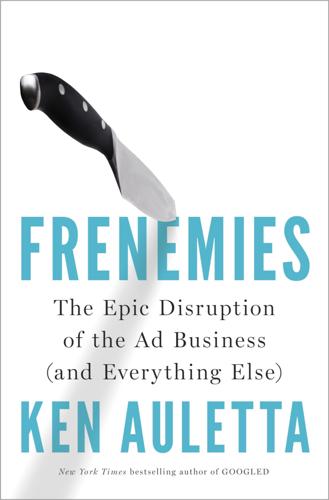
Frenemies: The Epic Disruption of the Ad Business
by
Ken Auletta
Published 4 Jun 2018
People still care about how they’re perceived, but the idea of privacy counts much less. Everybody is broadcasting themselves constantly!” There is a body of evidence supporting the notion that privacy is losing popularity. In the studies he’s overseen for Lippincott, chief content and strategy officer John Marshall believes the sharing economy advanced by social networks like Facebook and Snapchat has helped dramatically alter the attitudes of the young toward privacy. “As you start to connect seven billion people together much more seamlessly, you’re moving toward a connected state being the natural state and the private state being the exception.”
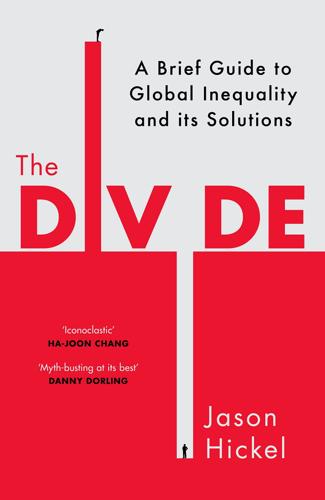
The Divide: A Brief Guide to Global Inequality and Its Solutions
by
Jason Hickel
Published 3 May 2017
Starbucks prevented efforts by the Ethiopian government to trademark three of its local coffee beans, which would have allowed Ethiopian growers to claim a greater share of profits on international sales. 3 ‘Coca-Cola gives a bit of charity …’ ‘Coca-Cola accused of funding Columbian death squad’, TeleSUR, 1 September 2016. 4 ‘By implying that debtors have …’ This moral framing around debt is a complete inversion of what every ancient philosophical tradition proclaims: that usury is the sin, not indebtedness. 5 ‘This sounds like a lot …’ NEF, Debt Relief as if Justice Mattered (London: New Economics Foundation, 2008). 6 ‘Another recent report finds that …’ Save the World’s Resources, Financing the Global Sharing Economy (London: Share the World’s Resources, 2012), p. 145. 7 ‘Instead of requiring across-the-board …’ Joseph Stiglitz has made interesting proposals for reforming this imbalance. 8 ‘For countries where wages are …’ See Thomas Palley, ‘A global minimum wage system’, Financial Times, 18 July 2011.
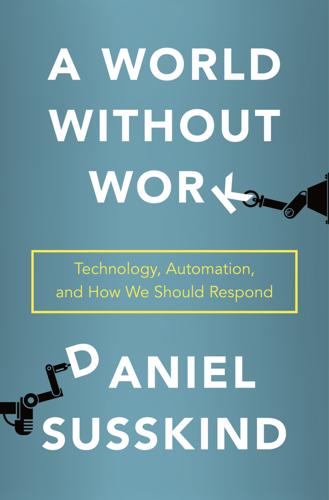
A World Without Work: Technology, Automation, and How We Should Respond
by
Daniel Susskind
Published 14 Jan 2020
Robert Reich, a public-policy professor and former secretary of labor for Bill Clinton, once estimated that by 2020 up to 40 percent of Americans would have “uncertain” work like this, the sort of work that makes up the “gig,” “share,” “irregular,” or “precarious” economy, and by 2025, most workers will. This is likely to turn out to be an overestimate, though; in 2017, only 10 percent worked in so-called alternative work arrangements, a slight decline from 2005. Robert Reich, “The Sharing Economy Will Be Our Undoing,” Salon, 25 August 2015; Ben Casselman, “Maybe the Gig Economy Isn’t Reshaping Work After All,” New York Times, 7 June 2018. 39. Andy Haldane, “Labour’s Share,” speech at the Trades Union Congress, London, 12 November 2015; Richard Partington, “More Regular Work Wanted by Almost Half Those on Zero-Hours,” Guardian, 3 October 2018. 40.
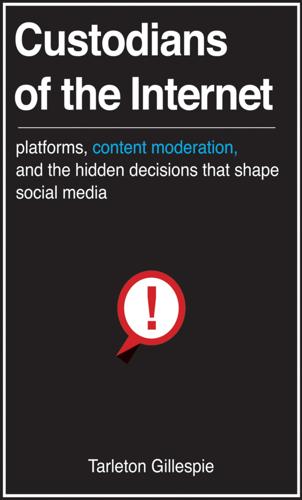
Custodians of the Internet: Platforms, Content Moderation, and the Hidden Decisions That Shape Social Media
by
Tarleton Gillespie
Published 25 Jun 2018
Code, I would assert, has been responsible for the creation of more value than that one.”75 But among defenders of Section 230, there is a tendency to paint even the smallest reconsideration as if it would lead to the shuttering of the Internet, the end of digital culture, and the collapse of the sharing economy. Without Section 230 in place, some say, the risk of liability will drive platforms to either remove everything that seems the slightest bit risky, or turn a blind eye. Entrepreneurs will shy away from investing in new platform services because the legal risk would appear too costly. I am sympathetic to these concerns, but there is a whole lot of room between all and nothing.
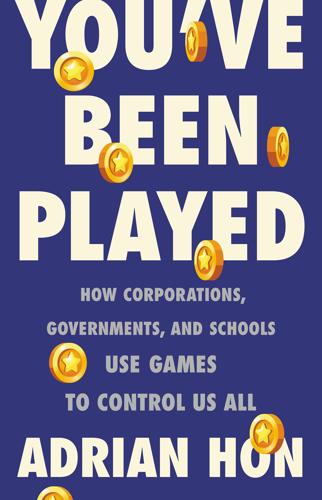
You've Been Played: How Corporations, Governments, and Schools Use Games to Control Us All
by
Adrian Hon
Published 14 Sep 2022
And so in the first two decades of the 2000s, venture capitalists and investors eagerly poured billions into startups that were designed from the ground up to be powered by loose groups of independent, self-employed contractors. Those startups included Uber, Amazon, Airbnb, and innumerable other “sharing economy” and “gig economy” businesses which have no workers and own no property but instead use APIs to outsource all front-line functions that require a human. The deliberate conversion of employees into contractors has allowed these companies to externalise labour costs to the rest of society, giving them an edge over every competitor.

Insight Guides Iceland
by
Insight Guides
Published 6 Dec 2024
Along the peninsula Route 41 along the north coast of Reykjanes leads to the twin towns of Njarðvík and Keflavík 4 [map] (combined population 20,330), both trading centres since the Middle Ages. The two towns have virtually joined together in recent years (they are often referred to by the single name “Reykjanesbær”), with a shared economy based on fishing and other commercial enterprises. In 2006, the speedy and controversial closure of the American air base at Keflavík, where around one in 17 of the local population was employed, had an unsettling effect on the area. Parts of the old base were reinvented as a data centre, taking advantage of Iceland’s geothermal power to host servers for international companies.
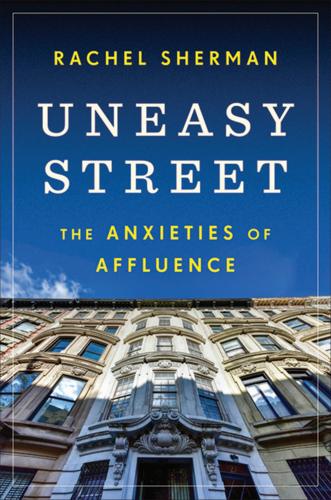
Uneasy Street: The Anxieties of Affluence
by
Rachel Sherman
Published 21 Aug 2017
The Overspent American: Upscaling, Downshifting and the New Consumer. New York: Basic Books. ———. 2003. Born to Buy. New York: Scribner. ———. 2007. “In Defense of Consumer Critique: Revisiting the Consumption Debates of the Twentieth Century.” Annals of the American Academy of Political and Social Science 611 (1): 16–30. ———. 2016. “Debating the Sharing Economy.” Journal of Self-Governance and Management Economics 4 (3): 7–22. Schulz, Jeremy. 2012. “Talk of Work: Transatlantic Divergences in Justifications for Hard Work among French, Norwegian, and American Professionals.” Theory & Society 41 (6): 603–634. Schwartz, Pepper, Davis Patterson, and Sara Steen. 2012.
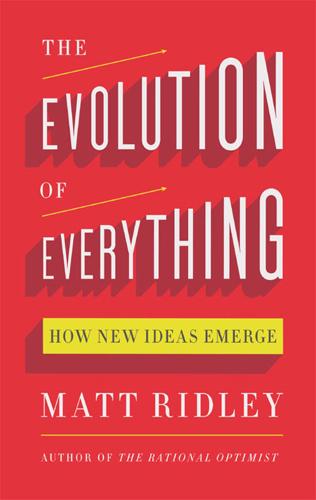
The Evolution of Everything: How New Ideas Emerge
by
Matt Ridley
Symbols of democratic flatness do persist in west coast companies, and chief executives behave less like feudal overlords – but more like oracles, prophets or deities, their pronouncements treated with reverence. As the economist Tom Hazlett put it to me after reciting some of the wide-eyed optimism being expressed about the new sharing economy we are supposedly inventing: ‘There sure are a lot of billionaires in the new wiki-economy.’ In filing for Facebook’s initial public offering in 2012, Mark Zuckerberg stated his desire that the world’s information infrastructure should be ‘a network built from the bottom up, or peer-to-peer, rather than the monolithic, top–down structure that has existed to date’.

Together
by
Vivek H. Murthy, M.D.
Published 5 Mar 2020
Think Again,” NPR, October 2, 2008, https://www.npr.org/templates/story/story.php?storyId=95256794. 10Gloria Mark, Daniela Gudith, and Ulrich Klocke, “The Cost of Interrupted Work,” Proceeding of the Twenty-Sixth Annual CHI Conference on Human Factors in Computing Systems - CHI 08, 2008, https://doi.org/10.1145/1357054.1357072. 11Clay Skipper, “Why the Sharing Economy Is Making All of Us More Lonely,” GQ.com, August 10, 2018, https://www.gq.com/story/sharing-is-not-caring. 12Ibid. 13Ibid. 14Catherine de Lange, “Sherry Turkle: ‘We’re losing the raw, human part of being with each other,’” Guardian, May 4, 2013, https://www.theguardian.com/science/2013/may/05/rational-heroes-sherry-turkle-mit. 15Andrew K.
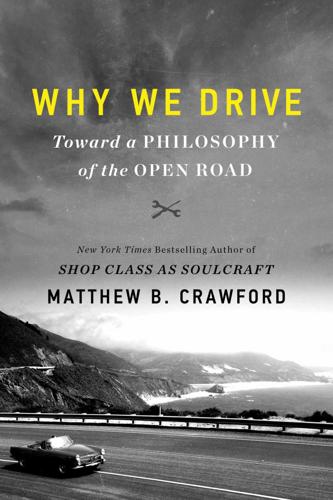
Why We Drive: Toward a Philosophy of the Open Road
by
Matthew B. Crawford
Published 8 Jun 2020
Notes INTRODUCTION: DRIVING AS A HUMANISM 1.Uber’s then chief executive Travis Kalanick was named to the president’s Strategic and Policy Forum, and Trump selected Elaine Chao for transportation secretary. The driverless car industry is “salivating over Elaine Chao’s light touch when it comes to regulations and her vocal support for the ride-sharing economy,” according to the Hill. Paul Brubaker, a spokesperson for the industry, said, “She has a keen understanding that technology presents a great opportunity to . . . create new mobility paradigms.” Melanie Zanona, “Driverless Car Industry Embraces Trump’s Transportation Pick,” Hill, December 4, 2016, http://thehill.com/policy/transportation/308590-driverless-car-industry-embraces-trumps-transportation-pick. 2.See Neal E.
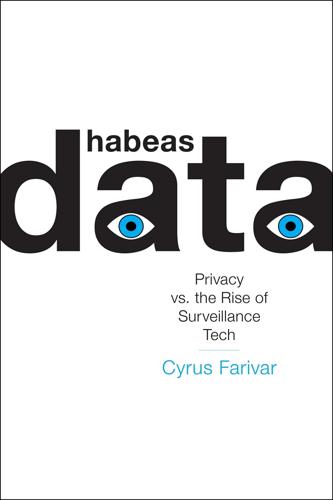
Habeas Data: Privacy vs. The Rise of Surveillance Tech
by
Cyrus Farivar
Published 7 May 2018
Dukes won at the 9th US Circuit Court of Appeals, a decision that was overturned at the Supreme Court in a 5–4 decision—the highest court found that her case should not be certified as a class, but disagreed as to the legal rationale. More recently, Boutrous is representing Uber in its ongoing labor dispute with its drivers. The case, known as O’Connor v. Uber, represents a major landmark in a rising tide of legal decisions and ongoing litigation in the so-called sharing economy. The four drivers, who now represent a class (like the Dukes case) are seeking to push Uber to recognize the service’s workers as employees rather than contractors. This case, along with dozens of similar ongoing lawsuits filed against Uber and other tech firms, seeks to answer a simple question: Are the workers (here, the Uber drivers) adequately labeled contractors or should they be properly classified as employees?
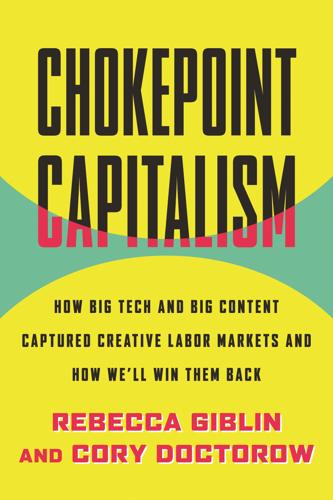
Chokepoint Capitalism
by
Rebecca Giblin
and
Cory Doctorow
Published 26 Sep 2022
Digital Media Policy Options for Europe (and Beyond),” Reuters Institute, University of Oxford, Nov. 25, 2019, https://reutersinstitute.politics.ox.ac.uk/what-can-be-done-digital-media-policy-options-europe-and-beyond. 19. Will Oremus, “There’s a Smarter Way to Make Tech Pay for News,” Pattern Matching (newsletter), OneZero, Medium, Feb. 21, 2021, https://onezero.medium.com/a-smarter-way-to-make-tech-pay-for-news-9255e3b8dccb. 20. Trebor Scholz, “Platform Cooperativism: Challenging the Corporate Sharing Economy,” Rosa Luxemburg Stiftung New York, 2016, 26, https://rosalux.nyc/wp-content/uploads/2020/11/RLS-NYC_platformcoop.pdf. 21. Liz Pelly, “Protest Platforms: Streaming Co-Op Restores Agency to Artists,” Shadowproof, Nov. 1, 2017, https://shadowproof.com/2017/11/01/protest-platforms-resonate-streaming-co-op-agency-to-artists. 22.
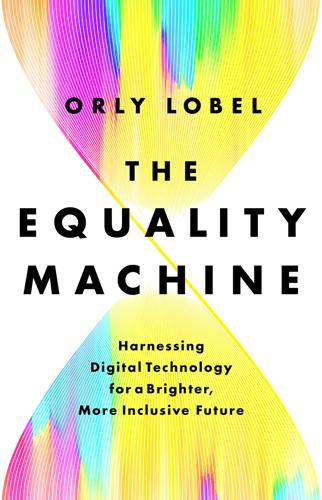
The Equality Machine: Harnessing Digital Technology for a Brighter, More Inclusive Future
by
Orly Lobel
Published 17 Oct 2022
The book builds on some of my published articles, including “We Are All Gig Workers Now: Online Platforms, Freelancers and the Battles over Employment Status and Rights During the COVID-19 Pandemic” (San Diego Law Review, 2020); “Biopolitical Opportunities: Datafication and Governance” (Notre Dame Law Review Reflection, 2021); “Exit, Voice and Innovation” (Houston Law Review, 2020); “Knowledge Pays: Reversing Information Flows and the Future of Pay Equity” (Columbia Law Review, 2020); “Coase and the Platform Economy,” in The Cambridge Handbook of the Law of the Sharing Economy (Cambridge University Press, 2018); (with Kenneth Bamberger) “Platform Market Power” (Berkeley Law and Tech Journal, 2018); and “The Law of the Platform” (Minnesota Law Review, 2016). Colleen Laurie, my brilliant editor, made this book deeper, stronger, and simply better. The entire production team at PublicAffairs is creative and smart, and they made this book beautiful inside and out.
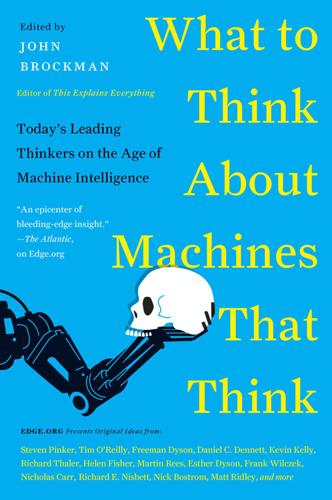
What to Think About Machines That Think: Today's Leading Thinkers on the Age of Machine Intelligence
by
John Brockman
Published 5 Oct 2015
Besides the positives, there’s the disappearance of privacy and the tracking of humans to better control their movements and desires. We’re willingly submitting to unprecedented social connection—a seeming triviality that may extinguish all ideas of solitude and selfhood. Ideas of economics are changing under the guise of robotics and the sharing economy. We’re building new intelligent beings, but we’re building them within ourselves. It’s only artificial now because it’s new. As it becomes dominant, it will simply become intelligence. The machines of AI Island are also what we fear may be ourselves within a few generations. And we hope those machine-driven people feel kinship with us, even down to our loneliness and distance from the world, which is also our wellspring of human creativity.
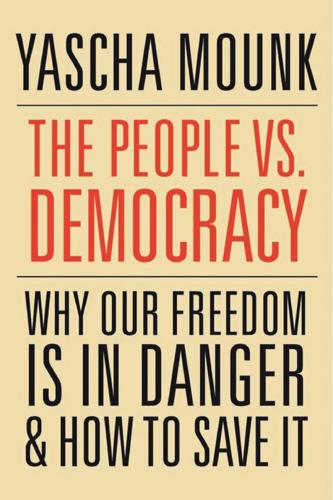
The People vs. Democracy: Why Our Freedom Is in Danger and How to Save It
by
Yascha Mounk
Published 15 Feb 2018
Rather, we should also be thinking about how to structure the world of work in such a way as to make it possible for people to derive a sense of identity and belonging from their jobs—and to remind the winners of globalization of the links they share with their less fortunate compatriots. There is, as yet, barely any thinking on this topic, especially as it relates to the millions of new jobs that are already being created in the sharing economy. Take the example of Uber. It seems relatively clear that governments should neither forbid the service, as some countries in Europe are proposing, nor allow it to circumnavigate key protections for their workforce, as most parts of the United States have effectively done. Rather, they should steer a forward-looking middle course—celebrating the huge increase in convenience and efficiency that ride-sharing offers while passing new regulations which ensure that drivers earn a living wage.65 But even if policymakers get that mix right, it seems unlikely that Uber drivers will ever derive the sense of identity and meaning from their work that factory workers once did.
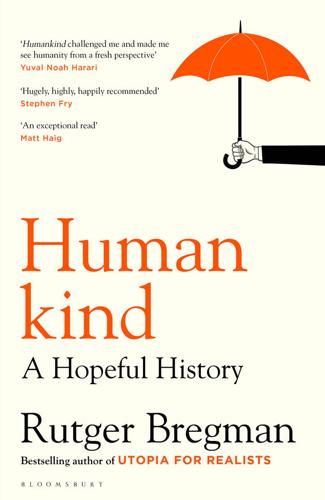
Humankind: A Hopeful History
by
Rutger Bregman
Published 1 Jun 2020
By multinationals, for instance, that are buying up water supplies and patenting genes, by governments that are privatising whatever they can get a buck for, and by universities that are selling off their knowledge to the highest bidder. Also by the advent of platform capitalism, which is enabling the likes of Airbnb and Facebook to skim the fat off the prosperity of the Homo cooperans. All too often, the sharing economy turns out to be more like a shearing economy – we all get fleeced. For the moment, we’re still locked in a fierce and undecided contest. On one side are the people who believe the whole world is destined to become one big commune. These are the optimists – also known as post-capitalists, presumably because communism is still a dirty word.40 On the other side are the pessimists who foresee continued raids on the commons by Silicon Valley and Wall Street and ongoing growth in inequality.41 Which side will turn out to be right?
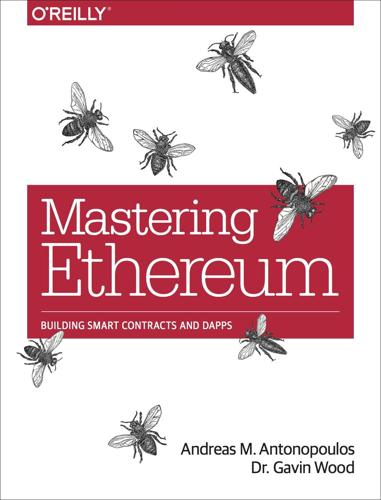
Mastering Ethereum: Building Smart Contracts and DApps
by
Andreas M. Antonopoulos
and
Gavin Wood Ph. D.
Published 23 Dec 2018
For example, a token can simultaneously convey a voting right, an access right, and ownership of a resource. As the following list shows, currency is just the first “app”: Currency A token can serve as a form of currency, with a value determined through private trade. Resource A token can represent a resource earned or produced in a sharing economy or resource-sharing environment; for example, a storage or CPU token representing resources that can be shared over a network. Asset A token can represent ownership of an intrinsic or extrinsic, tangible or intangible asset; for example, gold, real estate, a car, oil, energy, MMOG items, etc.

Your Face Belongs to Us: A Secretive Startup's Quest to End Privacy as We Know It
by
Kashmir Hill
Published 19 Sep 2023
It had booked $1 million in revenue in 2019, according to the presentation, and was growing—new daily sign-ups had doubled since the first New York Times story came out, and the daily number of searches was up from 1,384 to 2,408. Real estate firms and retailers were using a Clearview product called Insight Camera that identified people who walked into a building, according to the deck, and Clearview planned to provide its software to the “sharing economy and other commercial users” as a background-checking tool. The presentation had a promotional pull quote from my Times exposé, though it hadn’t been intended to be flattering: “[Clearview is] far beyond anything constructed by the United States government or Silicon Valley giants.” One of the companies that had tried out Clearview’s tool early on was Madison Square Garden, an iconic arena in New York City, the home stadium for the basketball team the Knicks and the hockey team the Rangers, where famous musicians and comedians perform.
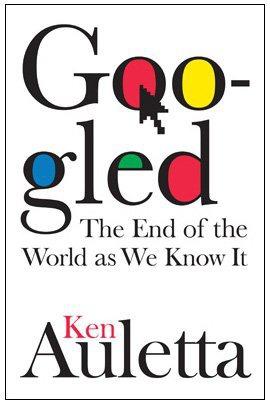
Googled: The End of the World as We Know It
by
Ken Auletta
Published 1 Jan 2009
Like Flickr (Yahoo’s photo-sharing site), Twitter, or Linux, they are part of what Lawrence Lessig, in his book Remix: Making Art and Commerce Thrive in the Hybrid Economy, refers to as hybrids—companies that take the shared efforts of many and build communities that help create commercial value. They are not strictly part of a “commercial economy,” as Google, Amazon, and Netflix are, according to Lessig, nor are they strictly part of the not-for-profit “sharing economy,” as Wikipedia and the open-source Linux operating system are. The hybrids, wrote Lessig, are those that combine making money with sharing—as Red Hat did by offering Linux for free but selling consultant services to corporations; as Craigslist does by offering 99 percent of its listings for free; as YouTube does by allowing users to freely share videos; and as community-building sites like Facebook do.
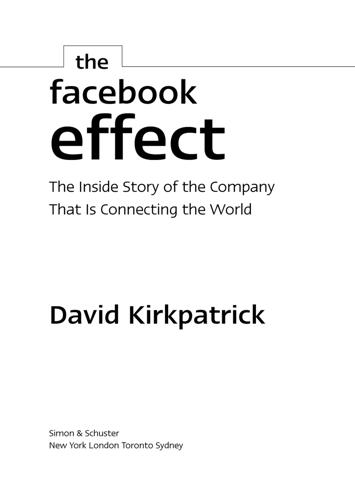
The Facebook Effect
by
David Kirkpatrick
Published 19 Nov 2010
Others will not necessarily share them. The “gift,” so to speak, is what we do for others when we put our ideas out there and make ourselves vulnerable to criticism, which can easily on Facebook be directed at us under our real names. In Zuckerberg’s view, you are in essence making a gift into this free-sharing economy of ideas if you comment on Facebook about, for example, President Obama’s health-care reform efforts. Think of it as a gift of opinion into the polity, a gift of ideas that may ultimately strengthen the polity. Joining a protest group on Facebook is unlike standing in a crowd and holding up a sign at a protest.
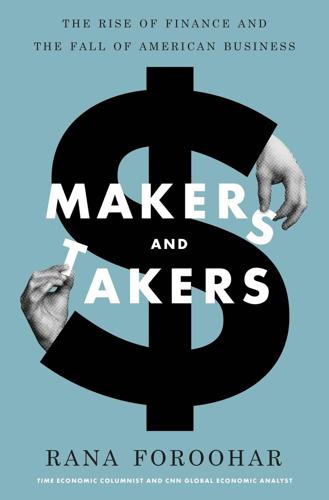
Makers and Takers: The Rise of Finance and the Fall of American Business
by
Rana Foroohar
Published 16 May 2016
His focus on the links between debt and economic malaise and his analysis of how finance (which is mostly short term) has broken the link between saving and real economy investment (which are nearly always long term) are particularly persuasive. Mason believes that we are at a tipping point in the process of financialization, which has allowed capitalism to grow, like a virus, beyond its useful life span. He thinks that the technology-driven “sharing economy” in which information is freer and capital is less important will empower workers to fight financial capitalists in a new and more powerful way.62 But I’m less optimistic. In my own reporting experience, I’ve found Silicon Valley titans at the heart of the technology revolution to be just as rapacious and arguably even more tribal than many financiers.
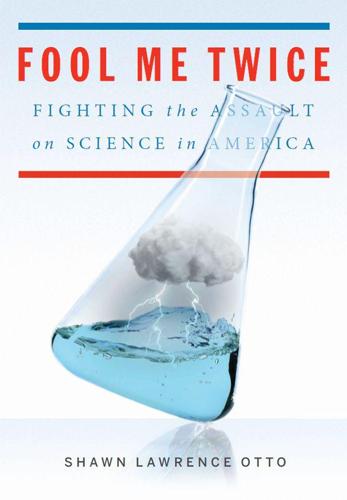
Fool Me Twice: Fighting the Assault on Science in America
by
Shawn Lawrence Otto
Published 10 Oct 2011
The dilemma suggests that politicians are paralyzed by a fundamental conflict between the environment and the economy that arises from the deeply held, mistaken belief that freedom and regulation are incompatible. Hardin’s paper was remarkable because it offered such a sound rebuttal to the ideas of the Scottish economist Adam Smith, whose collaborator and mentor was David Hume. In 1776 Smith argued in The Wealth of Nations that in a shared economy, an individual, who “intends only his own gain,” was in effect “led by an invisible hand” to promote the greater public interest, since willing buyers and willing sellers will always arrive at a natural price for things, and the highest value and efficiency will be obtained. “Nor is it always the worse for the society that [the individual’s intention to do social good] was no part of it.
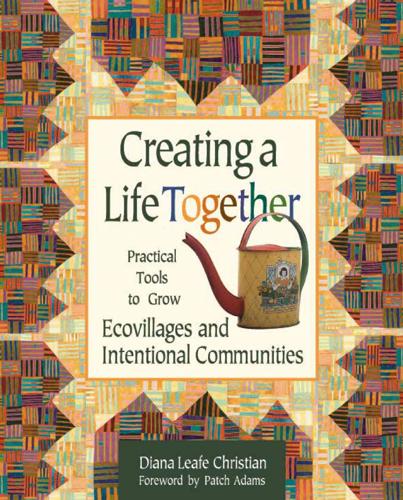
Creating a Life Together: Practical Tools to Grow Ecovillages and Intentional Communities
by
Diana Leafe Christian
Published 1 Jan 2003
The common treasury pays the mortgage payments, property taxes, insurance, maintenance, and other costs, and all members’ basic needs for food, shelter, monthly stipends, and so on. All members decide how their common assets are spent. Relatively few communities do income-sharing, however members of Skyhouse subcommunity at Dancing Rabbit and the Tekiah pod at Abundant Dawn organize their economies this way. Meadowdance has a hybrid income-sharing economy. Everyone works for Meadowdance’s community-owned businesses, and their basic expenses are paid from business profits. Members can also earn money they can use as they please by working at outside jobs or working extra hours for their community-owned businesses. carve out the time and energy to set up a new community and a business, much less keep relationships intact with your partners and children?
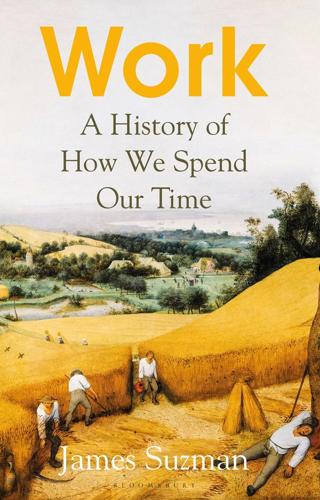
Work: A History of How We Spend Our Time
by
James Suzman
Published 2 Sep 2020
He didn’t care a great deal more about his colleagues’ criticism than he did about some of his neighbours’ gossip when he settled into a new home, as part of an openly gay, interracial couple, in one of the most conservative small towns in Virginia. Turnbull’s descriptions of BaMbuti life evoked something of the deep logic that shaped how foragers thought about scarcity and about work. First, they revealed how the ‘sharing’ economies characteristic of foraging societies were an organic extension of their relationship with nurturing environments. Just as their environments shared food with them, so they shared food and objects with one another. Second, they revealed that even if they had few needs that were easily met, forager economies were underwritten by the confidence they had in the providence of their environments.
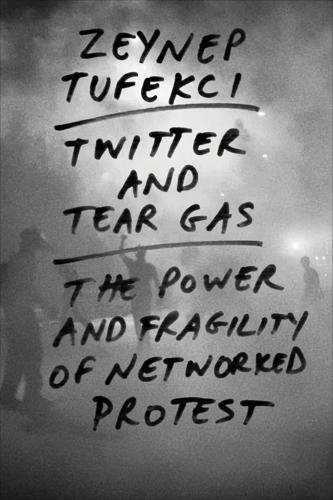
Twitter and Tear Gas: The Power and Fragility of Networked Protest
by
Zeynep Tufekci
Published 14 May 2017
The Gezi Park protests, like many other protests around the world, favored self-organization and rejected formal politics and organizations. Volunteers ran everything, including communal kitchens, libraries, and clinics that cared both for protesters with minor ailments and those with life-threatening injuries. The park had a sharing economy where nothing was purchased and nothing was sold. People exchanged whatever they had and received whatever they needed. Many protesters told me that these money-free exchanges were among the most pleasurable, fulfilling aspects of their Gezi experience. It may seem counterintuitive but many protesters also treasured what happened after they were teargassed, pepper-sprayed, water-cannoned, and otherwise attacked by police: strangers helped and protected them.

Open: The Story of Human Progress
by
Johan Norberg
Published 14 Sep 2020
It is the reactionary Right that has historically been associated not just with resistance to new family constellations, new immigrants and secularization, but also with new technologies; however, in the conservative Left you also find a rejection of new technologies when they happen to dislike them, such as genetically modified crops, nuclear power and many of the platforms of the sharing economy. Technocrats who reject dynamism are also of both the Left and the Right – those who want to control the future to ensure progress is equitable and doesn’t hurt labour interests, and those who want to do so to protect culture and social cohesion. Leftist Democrats want to plan the economy to create the right jobs, like the Green New Deal (which ‘wasn’t originally a climate thing at all’, but ‘a how-do-you-change-the-entire-economy thing’, as one of its originators has admitted).27 National conservatives want to plan the economy and restrict foreign competition to create stable employment in traditional industries like manufacturing.

Doppelganger: A Trip Into the Mirror World
by
Naomi Klein
Published 11 Sep 2023
When they started showing up at the early anti-lockdown protests, they were presented as if a great secret was being revealed. What was strange, though, was that the Great Reset wasn’t hidden—it was a branding campaign that the World Economic Forum had kicked off to repackage many of the ideas it has long advanced: biometric IDs, 3D printing, corporate green energy, the sharing economy. All were hastily positioned as a blueprint for reviving the global economy post-pandemic by “seeking a better form of capitalism.” Through a series of videos, the Great Reset brought together heads of transnational oil giants to opine about the urgent need to tackle climate change, as well as politicians pledging to “build back better” and bring about a “fairer, greener, healthier planet.”
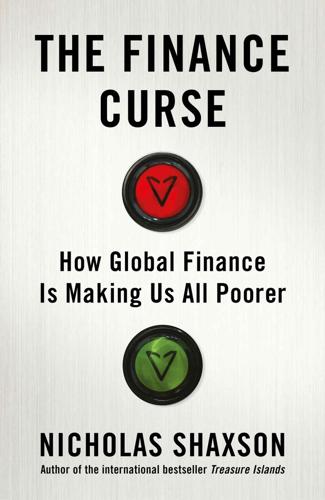
The Finance Curse: How Global Finance Is Making Us All Poorer
by
Nicholas Shaxson
Published 10 Oct 2018
It turns out that nearly all the arguments I have made or could make in this area can be modified and applied in other economic arenas – in fact almost any arena that involves big banks or multinational corporations.33 And that’s for a simple reason: the benefits to corporations of any particular policy are usually much easier to measure than many of the costs to other actors. It’s child’s play, for instance, to generate numbers showing how cutting workers’ wages and benefits will boost company profits. But those cuts inflict costs such as more family breakdowns, higher inequality, less spending power, increased drug use, weakened faith in our shared economy and society. Most of these things are unmeasurable and long-term but no less important, so cost-benefit analyses based on numbers will systematically favour corporations against people. The result is, as the former IMF economist Simon Johnson put it, that ‘the attitude took hold that what was good for Wall Street was good for the country … A whole generation of policymakers has been mesmerised.’34 Perhaps the most important arena where the evidence machine works this way involves finance.

Scots and Catalans: Union and Disunion
by
J. H. Elliott
Published 20 Aug 2018
INDEX Aberdeen: Philosophical Society, (i) academies, (i) ; see also universities Acció Catalana, (i) Act Rescissory (Scotland, 1661), (i) Act for the Security of the Protestant Religion and the Government of the Church (England, 1706), (i) Adam brothers (architects), (i) afrancesados , (i) agriculture: in Catalonia, (i) , (ii) ; in Scotland, (i) , (ii) ; in Spain, (i) Álava, (i) Alba: as term for Scotland, (i) ; Scots take over from Picts, (i) Alburquerque, Francisco Fernández de la Cueva, 7th Duke of, (i) Alcalá, Fernando Enríquez Afán de Ribera, 3rd Duke of, (i) Alcalá Zamora, Niceto, (i) Alexander II, King of Scotland, (i) Alexander III, King of Scotland, (i) Alexander, Sir William: An Encouragement to Colonies , (i) Alfonso V, King of Aragon, (i) Alfonso V, King of Portugal, (i) Alfonso X (the Wise), King of Castile and León, (i) Alfonso XII, King of Spain, (i) , (ii) , (iii) Alfonso XIII, King of Spain: childhood, (i) ; accession and rule, (i) ; receives petition for Catalan autonomy from Cambó, (i) ; supports Catalan claim for independence, (i) ; exiled, (i) Alien Act (England, 1705), (i) , (ii) Almansa, battle of (1707), (i) , (ii) , (iii) Almirall, Valentí, (i) , (ii) ; Lo Catalanisme , (i) Amadeo of Savoy, King of Spain, (i) Amat y Junient, Manuel de, (i) Amelot, Michel-Jean, (i) America (New World): incorporated into Crown of Castile, (i) , (ii) ; Scottish immigrants, (i) , (ii) ; trade with Catalonia, (i) ; and trade rivalry, (i) ; see also empires, Spanish American Revolution, (i) , (ii) anarchism and anarcho-syndicalism, (i) , (ii) , (iii) ANC see National Assembly of Catalonia, (i) Andalusia, (i) Aner d’Esteve, Felip, (i) Angevin Empire, (i) Anglo-Irish Treaty (1921), (i) Anglo-Scottish Union: debated under JamesVI/I, (i) , (ii) , (iii) , (iv) ; debated under William III and Anne, (i) , (ii) ; see also home rule; Treaty of Union (Anglo-Scottish, 1707); union, forms of Anjou, Philip, Duke of see Philip V, King of Spain Anne, Queen: succession and death, (i) , (ii) ; and acceptance of Treaty of Union, (i) Aragon, Crown of: and dynastic union with Castile, (i) , (ii) ; Catalan-Aragonese federation, (i) ; Succession crisis and Compromise of Caspe (1410–12), (i) , (ii) , (iii) , (iv) ; and Spanish Atlantic expansion, (i) ; and Castilian dominance, (i) ; population (16th century), (i) ; constitution, (i) , (ii) , (iii) ; royal absenteeism, (i) ; union with Castile, (i) , (ii) ; customs barriers with Castile, (i) ; geographical and linguistic divisions, (i) ; fails to support Catalonia in 1640 rebellion, (i) ; supports Don Juan José, (i) ; and Spanish succession, (i) ; Nueva Planta, (i) , (ii) , (iii) ; form of representation in Spanish Cortes, (i) ; fiscal and monetary uniformity with Castile, (i) ; (i) ; historiography, (i) ; Archive of, (i) ; see also Aragon, kingdom of; Catalonia; Mallorca; Valencia Aragon, kingdom of: union with Castile, (i) , (ii) ; Catalan-Aragonese federation, (i) , (ii) ; oath of allegiance, (i) ; Ferdinand as king of, (i) , (ii) ; rebellion in defence of fueros (1590–1), (i) ; and the Indies (i) ; Olivares and, (i) ; Philip V abolishes laws and privileges, (i) , (ii) ; resists French invasion, (i) ; see also Aragon, Crown of Aragon, Council of, (i) , (ii) , (iii) , (iv) Arbroath, Declaration of (1320), (i) , (ii) Argathelians (followers of Argyll), (i) , (ii) , (iii) Argyll, Archibald Campbell, 8th Earl of, (i) , (ii) , (iii) Argyll, Archibald Campbell, 9th Earl of, (i) Argyll, Archibald Campbell, 10th Earl ( later 1st Duke) of, (i) , (ii) Argyll, John Campbell, 2nd Duke of, (i) , (ii) , (iii) Aribau, Bonaventura Carles: ‘Ode to the Pàtria ’, (i) army, British, (i) , (ii) , (iii) army, Catalan, (i) , (ii) , (iii) , (iv) army, English, (i) , (ii) , (iii) , (iv) , (v) ; New Model, (i) , (ii) army, French, (i) , (ii) , (iii) , (iv) army, James II’s, (i) army, Scottish, (i) , (ii) , (iii) , (iv) , (v) , (vi) army, Spanish, (i) , (ii) , (iii) , (iv) , (v) , (vi) , (vii) , (viii) , (ix) , (x) , (xi) , (xii) , (xiii) ; Riego’s mutiny (1820), (i) , (ii) , (iii) ; (army of Flanders), (i) ; (army of Africa), (i) , (ii) Arrimadas, Inés, (i) Arthur, King (mythical), (i) Arthur, Prince (son of Henry VII), (i) Asquith, Herbert Henry, (i) Association for the Vindication of Scottish Rights, (i) Asturias: miners’ strike (1934), (i) Ateneu Català, (i) Atlantic: Scottish and Catalan trade, (i) , (ii) ; rival traders in, (i) ; see also America Attlee, Clement, (i) Audiencia, (i) , (ii) , (iii) , (iv) Augereau, General Pierre, (i) austracistas , (i) , (ii) , (iii) , (iv) , (v) Austria: union with Spain opposed by British and Dutch, (i) Austro-Hungarian Empire see empires, Austro-Hungarian Autonomy, Statutes of (Catalan), (i) ; (1979), (i) ; (2005), (i) , (ii) Azaña, Manuel, (i) , (ii) Aznar, José Maria, (i) Bacon, Francis: A Brief Discourse touching the Happy Union of the Kingdoms of England and Scotland , (i) Balaguer, Victor: ‘History of Catalonia and the Crown of Aragon’, (i) Ballot, Josep Pau, (i) Balmes, Jaume, (i) Banco de España, (i) banditry and lawlessness: in Scottish Highlands and Catalonia, (i) , (ii) , (iii) , (iv) , (v) , (vi) , (vii) banking crisis (global, 2007–8), (i) Bannockburn, battle of (1314), (i) Barbour, John: The Bruce , (i) Barceló, Pere Joan (‘Carrasclet’), (i) Barcelona: as mercantile city, (i) ; recaptured from Moors (801), (i) ; surrenders to Philip IV (1652), (i) , (ii) ; conflict with Perpinyà, (i) ; sanctions against after surrender, (i) ; French capture (1687), (i) ; urbanization, (i) , (ii) ; in War of Spanish Succession, (i) ; resists Philip V’s occupation and surrenders (1714), (i) , (ii) , (iii) , (iv) ; Ciutadella (fortress), (i) , (ii) ; repressed by Philip V, (i) ; regidores , (i) ; University, (i) , (ii) , (iii) , (iv) ; ‘honoured citizens’ and oligarchical power, (i) ; population increase, (i) , (ii) ; shipbuilding, (i) ; trading rights, (i) ; Palau de la Virreina, (i) ; design and conditions, (i) ; Acadèmia de Bones Lletres, (i) ; occupied by French in Napoleonic Wars, (i) ; industrialization, (i) , (ii) ; cholera epidemics, (i) ; compared with Glasgow, (i) ; merchants, (i) ; Ateneu Barcelonès, (i) ; as cultural centre, (i) , (ii) , (iii) ; Liceu, (i) ; liberalism, (i) ; industrial unrest, (i) , (ii) , (iii) , (iv) , (v) , (vi) ; economic power, (i) ; Eixample, (i) ; urban development and street names, (i) ; Universal Exhibition (1888), (i) , (ii) ; as capital of Catalonia, (i) ; and internal Catalan differences, (i) ; Setmana Tràgica (tragic week, 1909), (i) ; World Fair (1929), (i) ; and October Revolution (1934), (i) ; in Spanish Civil War, (i) ; football, (i) ; Olympic Games (1992), (i) ; demonstration against Constitutional Tribunal ruling (2010), (i) ; ‘march towards independence’ (2012), (i) ; terrorist attack (August 2017), (i) ; see also Catalonia Barcelona province, (i) Barceloneta, (i) Barnett, Joel, (i) Bases of Manresa ( Bases de Manresa , 1892), (i) , (ii) Basque Nationalist Party, (i) Basque provinces: and war with France, (i) ; industrialization, (i) , (ii) ; participation in central administration, (i) ; autonomy, (i) , (ii) , (iii) ; fiscal exemptions, (i) , (ii) ; racial singularity, (i) ; Cambó visits, (i) ; nationalist movement, (i) ; join Pact of San Sebastián, (i) ; settlement (1975), (i) , (ii) ; in decentralized Spain, (i) ; relations with Spanish state, (i) Batet i Mestres, General Domènec, (i) Belgium: Puigdemont flees to, (i) Berwick, James Fitzjames, Duke of, (i) , (ii) Berwick, Treaty of (1639), (i) Bill of Rights (England, 1689), (i) Bishops’ Wars (1639–40), (i) Black Death, (i) Blair, Tony, (i) , (ii) Bloody Assizes (1685), (i) Bodin, Jean, (i) , (ii) Boece, Hector: History of the Scottish People , (i) Bofarull, Antoni de: ‘Deeds and Memories of the Catalans’, (i) Bofarull, Pròsper de, (i) Bolshevism, (i) Bonaplata cotton mill, (i) , (ii) Borders (Scottish): violence in, (i) , (ii) ; see also Scotland Bosch Gimpera, Pere, (i) Boswell, James, (i) , (ii) , (iii) Bosworth, battle of (1485), (i) Bothwell, James Hepburn, 4th Earl of, (i) Bounty Act (British, 1742), (i) Bourbon dynasty: and Spanish royal succession, (i) , (ii) , (iii) ; administration in Spain, (i) , (ii) , (iii) ; protectionist legislation in Catalonia, (i) ; nation-building, (i) bourgeoisie, (i) , (ii) , (iii) , (iv) Braç (Estate) of nobles, (i) Brexit (British exit from EU), (i) Britain see Great Britain Brown, Gordon, (i) , (ii) , (iii) Bruce, Robert, King of Scotland, (i) , (ii) , (iii) , (iv) Brussels: Puigdemont supporters demonstrate in, (i) Brutus (mythological figure), (i) , (ii) Buchanan, George: De jure regni apud Scotos , (i) Burnet, Gilbert, Bishop of Salisbury, (i) Burns, Robert, (i) Bute, John Stuart, 3rd Earl of, (i) , (ii) cadastre ( catastro ), (i) , (ii) , (iii) Cadiz: as Atlantic trading port, (i) ; Riego’s rising (1820), (i) Cadiz, Cortes of, (i) , (ii) , (iii) , (iv) , (v) , (vi) , (vii) Callaghan, James, (i) , (ii) Cambó, Francesc, (i) , (ii) , (iii) Cameron, David, (i) , (ii) Cameron, Richard (and Cameronians), (i) Campaign for a Scottish Assembly, (i) Campbell Clan, (i) , (ii) ; and see Argyll Canada: becomes self-governing (1867), (i) ; and Quebec independence campaign, (i) Canadenca (industrial strike), (i) Cánovas del Castillo, Antonio, (i) , (ii) , (iii) , (iv) Capmany, Antoni de, (i) , (ii) , (iii) , (iv) , (v) , (vi) , (vii) ; La centinela contra franceses , (i) Cardona, ducal family, (i) Caribbean see West Indies Carlists and Carlism, (i) , (ii) , (iii) Carlos, Don (Spanish pretender), (i) Carlos II, King of Spain: treatment of Catalonia, (i) ; ill health and death, (i) ; Feliu de la Peña dedicates book to, (i) ; death and succession question, (i) Cartagena, Alfonso de, (i) Casanova, Rafael, (i) , (ii) Caspe, Compromise of (1412), (i) , (ii) , (iii) Castaños, Francisco Javier, (i) Castile: and dynastic unification of Spain, (i) , (ii) , (iii) , (iv) ; united with Léon (1230), (i) ; conquest of Navarre, (i) ; incorporation of Indies, (i) , (ii) ; dominance, (i) , (ii) , (iii) , (iv) ; foundation myth, (i) ; equates itself with Spain, (i) ; population (16th century), (i) ; customs barriers with Crown of Aragon, (i) , (ii) ; rejects idea of Spanish nationality, (i) ; economic strain, (i) ; Olivares’s administration and reforms, (i) ; nobility intermarries with other regions, (i) ; Cortes of, (i) , (ii) , (iii) ; and Catalan rebellion (1640–52), (i) , (ii) , (iii) ; overpowered by French, (i) ; monetary fluctuations, (i) ; resists foreign invaders, (i) ; landowning elite, (i) ; see also Spain Castile, Council of, (i) , (ii) Catalan Assembly (1971), (i) Catalan Corporation of Radio and Television, (i) Catalan National Assembly, (i) ‘Catalanism’, (i) , (ii) , (iii) Cataló, Otger (legendary figure), (i) , (ii) Catalonia: recent independence movement, (i) ; as nation without state, (i) ; foundation, (i) , (ii) , (iii) , (iv) , (v) ; geographical divisions, (i) , (ii) , (iii) ; population, (i) , (ii) , (iii) ; federation with Aragon, (i) , (ii) ; Pyrenean region, (i) , (ii) ; socio-economic conditions in 15th century, (i) ; chronicles and history, (i) ; domination by Castile, (i) , (ii) ; conflict (1588), (i) ; religion in, (i) , (ii) , (iii) ; sense of patria , (i) see also patria , patriotism; banditry and lawlessness, (i) , (ii) , (iii) , (iv) , (v) ; unrest on accession of Philip IV, (i) ; nobles marry into Castilian nobility, (i) ; rejects Olivares’s proposals for Union of Arms, (i) ; alienation from Aragon, (i) ; alienated Crown lands, (i) ; rebellion (1640), (i) , (ii) ; as French protectorate (1641), (i) , (ii) , (iii) ; Estates, (i) , (ii) ; plague (1650), (i) , (ii) ; secession ends (1652), (i) ; French, immigrants in, (i) ; consequences of failed rebellion, (i) , (ii) ; revolt of the barretines (1688–9), (i) ; troops billeted in, (i) , (ii) ; export trade and traders, (i) , (ii) ; textile industry, (i) , (ii) , (iii) , (iv) , (v) ; depends on Castile for financial and military assistance, (i) ; and accession of Philip V, (i) ; in War of Spanish Succession, (i) , (ii) ; popular anti-French feelings, (i) ; occupied by Philip V’s forces, (i) ; and Peace of Utrecht, (i) ; disaster of 1714, (i) , (ii) ; under Philip V’s rule, (i) ; Nueva Planta extended to, (i) , (ii) , (iii) ; loss of representative institutions, (i) ; royal army garrisoned in, (i) ; taxation system, (i) , (ii) ; administrative reorganization, (i) ; universities, (i) , (ii) ; language differences, (i) ; lacks sovereign status, (i) , (ii) ; rebellion (1719), (i) ; oligarchical control and honoured citizens in, (i) ; substantial peasant farmers, (i) , (ii) , (iii) ; seigneurial and feudal rights, (i) ; military coercion in, (i) ; response to incorporation, (i) ; urbanization, (i) ; prospective independence after Treaty of Utrecht, (i) ; social and economic changes (18th century), (i) ; stable monetary system, (i) ; overseas trade, (i) , (ii) ; industrialization, (i) , (ii) , (iii) , (iv) , (v) , (vi) , (vii) , (viii) ; personal industriousness and strong family ties, (i) , (ii) ; rural and agrarian life, (i) ; trade with overseas empire, (i) , (ii) ; merchants and clerics in America, (i) ; restricted opportunities for overseas appointments, (i) ; identity and differences from Spain, (i) , (ii) , (iii) ; Enlightenment, (i) ; harvest failures and food shortages (1790s), (i) ; occupied and annexed by French in Napoleonic Wars, (i) , (ii) ; guerrilla warfare against French, (i) ; and Constitution of Cadiz (1812), (i) ; divided into four provinces, (i) ; sense of deliberate discrimination, (i) ; Ferdinand VII visits, (i) ; insurrection (1822), (i) ; liberalism (1820–3), (i) ; romanticized history, (i) ; little part in developing empire, (i) ; increasing political nationalism (post–Great War), (i) , (ii) ; bourgeoisie, (i) ; historiography, (i) , (ii) ; resists Spanish centralization, (i) ; dependence on Madrid for protection of industry, (i) ; sense of grievance ( greuge ), (i) , (ii) ; growing independence (late 19th century), (i) ; represented in Madrid government, (i) ; and Cuban struggle for independence, (i) ; federalist sentiments, (i) ; regionalism and claims to autonomy, (i) , (ii) , (iii) , (iv) , (v) , (vi) ; economy declines (late 19th century), (i) ; nationalist movement, (i) , (ii) ; conscripts called up to fight in Morocco, (i) ; and Mancomunitat, (i) ; under Primo de Rivera’s regime, (i) , (ii) ; joins Pact of San Sebastián, (i) ; Macià proclaims ‘Catalan State’, (i) ; as autonomous region under 1932 Spanish Constitution, (i) , (ii) ; nationalist upsurge (1930s), (i) ; in Spanish Civil War, (i) ; Franco abolishes statute of autonomy, (i) ; repression under Franco, (i) ; economic and social changes (1960s), (i) ; immigration, (i) ; and statute of autonomy (1979, revised 2006), (i) , (ii) , (iii) , (iv) , (v) , (vi) ; under parliamentary monarchy, (i) ; state-building under Pujol, (i) , (ii) ; bilingualism, (i) ; coalition government and programme for new autonomy, (i) ; diada (national day), (i) ; economic depression (2007–14), (i) ; interest in Scottish referendum on independence, (i) ; division between secessionists and anti-secessionists, (i) , (ii) ; illegal referendum (2014), (i) ; proposal and calls for independence referendum (autumn 2017), (i) ; propaganda campaign for independence, (i) ; threat of losing membership of EU, (i) ; conduct of 2017 referendum, (i) ; parliament decides on unilateral declaration of independence, (i) , (ii) ; post-referendum election (December 2017), (i) ; disunity among independence advocates, (i) ; consequences of independence decision, (i) ; major political parties lose support, (i) ; Romantic revivalism, (i) ; psychological characteristics, (i) ; economic resources, (i) ; and inadequate dialogue with Spain, (i) ; see also Constitutions; Diputació; education; language catastro ( cadastre ), (i) , (ii) , (iii) Catholics, Catholicism see Church of Rome Cecil, William (Baron Burghley), (i) Cecily, Queen of James III of Scotland, (i) CEDA (Confederación Española de Derechas Autónomas), (i) Centelles, (i) Central Committee of Anti-Fascist Militias, (i) Centre Català , (i) , (ii) Cerdà, Ildefons, (i) Cerdanya, northern ( comtat ), (i) Cervera: university of, (i) , (ii) Charlemagne, Emperor of the West, (i) , (ii) Charles V, Holy Roman Emperor, (i) ; as King of Spain, (i) , (ii) Charles VI, Holy Roman Emperor ( earlier Archduke of Austria): in War of Spanish Succession, (i) , (ii) , (iii) ; succeeds as Emperor, (i) ; war with Philip V ends, (i) Charles VIII, King of France, (i) Charles I, King of Great Britain: and dissent over union settlement, (i) ; visits Edinburgh, (i) , (ii) , (iii) ; and innovation in Scotland, (i) ; liturgical reforms resisted in Scotland, (i) ; revenue raising in Scotland, (i) ; in First Bishops’ War with Scotland (1639), (i) ; and Scottish Covenant, (i) ; and Second Bishops’ War (1640), (i) ; opposition to, (i) ; in Civil War, (i) ; Scots hand over to English, (i) ; executed, (i) Charles II, King of Great Britain ( earlier Prince of Wales): restoration to English throne (1660), (i) , (ii) ; accepts Covenant, (i) , (ii) ; proclaimed as Scots ruler and crowned at Scone, (i) ; attitude to Scotland, (i) ; death and succession, (i) ; sends James, Duke of York, to Scotland, (i) Charles III, King of Spain, (i) , (ii) , (iii) , (iv) Charles IV, King of Spain, (i) , (ii) Charles Edward Stuart, Prince (‘the Young Pretender’; ‘Bonnie Prince Charlie’), (i) Chartism, (i) cholera epidemics, (i) Church of England (Anglican), (i) , (ii) , (iii) ; see also Episcopalians Church of Rome (Catholic): Visigoths convert, (i) ; supports Scottish kings, (i) ; in Catalonia, (i) ; Exclusion Crisis and anti-Catholic legislation, (i) ; and Jacobitism, (i) , (ii) ; resistance to Enlightenment ideas, (i) ; distrusted in Britain, (i) ; emancipation in Britain (1829–30), (i) ; monopoly of worship and belief in Spain, (i) ; secularization of church property (1837) and Concordat of 1851, (i) ; and anticlericalism, (i) , (ii) ; in Scotland, (i) , (ii) ; strength in Spain, (i) Church of Scotland, (i) , (ii) , (iii) ; see also Kirk; Presbyterianism Churchill, Sir Winston, (i) CiU (Convergència i Unió), (i) , (ii) , (iii) , (iv) , (v) Ciutadans (Ciudadanos, ‘citizens’ party’, Catalonia), (i) , (ii) , (iii) Claim of Right (Scottish), (i) Clarendon, Edward Hyde, 1st Earl of: History of the Rebellion , (i) , (ii) Claris, Pau, (i) , (ii) , (iii) , (iv) , (v) Clavé, Josep Anselm, (i) Clydeside, (i) , (ii) , (iii) , (iv) , (v) CNT (Confederación Nacional del Trabajo; National Confederation of Labour), (i) , (ii) , (iii) Coke, Sir John, (i) Cold War, (i) colonization, Scottish: in Ireland, (i) , (ii) , see also Ulster; in Americas, (i) , (ii) , see also America; see also Darien project Columbus, Christopher, (i) Colville, Robert, (i) comercio libre decree (1778), (i) , (ii) commerce see trade Committee of Estates (Scotland), (i) Commonwealth (1649), (i) Communist Party: in Spanish Civil War, (i) Community Charge (‘Poll Tax’), (i) Company of Scotland, (i) , (ii) Companys, Lluís, (i) , (ii) composite monarchy: British, (i) , (ii) , (iii) , (iv) ; Scottish, (i) , (ii) , (iii) , (iv) , (v) , (vi) ; Spanish, (i) , (ii) , (iii) , (iv) , (v) Compromise of Caspe (1412) see Caspe Concordat of 1851, (i) Conferència dels Tres Comuns (the Three Commons), (i) Confession of Faith (Scotland, 1581), (i) Conservative Party (British): opposes home rule for Scotland, (i) , (ii) ; affiliation with Scottish Liberal Unionists, (i) ; post-war successes, (i) ; loses support in Scotland, (i) , (ii) , (iii) ; coalition with Liberal Democrats (2010), (i) ; wins 2015 election, (i) Conservative Party (Scottish), (i) , (ii) ; see also Scotland, Unionism; Unionist Party Conservative Party (Spanish), (i) , (ii) ; see also Cánovas del Castillo, Antonio; Maura, Antonio Constitutions: Catalan: (i) , (ii) ; under threat, (i) , (ii) , (iii) ; Philip IV guarantees to respect, (i) , (ii) ; Philip V confirms, (i) , (ii) ; abolition (1714), (i) , (ii) ; desire for recovery, (i) ; see also fueros English and British, (i) Spanish: Cadiz (1812), (i) , (ii) , (iii) ; (1837), (i) ; (1845), (i) , (ii) ; (1876), (i) ; (1932), (i) ; (1978), (i) , (ii) , (iii) , (iv) , (v) , (vi) , (vii) constitutionalism, (i) , (ii) , (iii) , (iv) Consulate of the Sea, Barcelona (Consolat del Mar), (i) contractualism: in Scotland, (i) , (ii) , (iii) , (iv) , (v) , (vi) , (vii) ; Catalan ( pactismo ), (i) , (ii) , (iii) , (iv) , (v) , (vi) , (vii) , (viii) ; Bourbons and, (i) ; Riego on, (i) Convention of Estates (Scottish), (i) Cook, Robin, (i) corregidores , corregimientos , (i) Cortes: Castilian, (i) , (ii) , (iii) , (iv) ; Aragonese, (i) , (ii) , (iii) ; Valencian, (i) ; Spanish, (i) , (ii) , (iii) , (iv) , (v) ; Cambó and a constituent Cortes, (i) ; see also Cadiz, Cortes of Corts: Catalan, (i) , (ii) , (iii) , (iv) ; Philip V convenes, (i) , (ii) ; convened by Archduke Charles of Austria, (i) , (ii) ; Barcelona street named for, (i) Corunna, (i) cotton manufacture: in Catalonia, (i) , (ii) ; in Scotland, (i) ; see also textiles Council of Europe: Venice Commission, (i) Council of a Hundred (Consell de Cent, Barcelona), (i) , (ii) Court of Exchequer (Scotland), (i) Court of Sessions (Scotland), (i) Covenant and Covenanters (Scottish): drawn up, (i) ; appeal in England, (i) ; Charles II signs, (i) , (ii) ; effect on Scottish government, (i) ; uprisings, (i) ; resistance suppressed, (i) Craig, Sir Thomas, (i) Cromwell, Oliver, (i) , (ii) , (iii) Crowe, Mitford, (i) Cuba, (i) , (ii) , (iii) , (iv) Cuixart, Jordi, (i) Cullen, William, (i) Culloden, battle of (1746), (i) Cumberland, Prince William, Duke of, (i) Cunningham, George, (i) customs dues and barriers: between Castile and Crown of Aragon, (i) , (ii) ; between Portugal and Castile, (i) ; in Scotland, (i) , (ii) , (iii) , (iv) ; in Spain, (i) , (ii) Dalrymple, Sir James see Stair, 1st Viscount Dalyell, Tam, (i) , (ii) Darien project (Panama isthmus, 1696–1700), (i) , (ii) , (iii) , (iv) , (v) , (vi) ; post-1707, (i) , (ii) , (iii) , (iv) , (v) Darling, Alistair, (i) Darnley, Henry Stewart, Lord, (i) David I, King of Scotland, (i) década ominosa (Spain, 1823–33), (i) Defensor del Pueblo (‘ombudsman’), (i) Dencàs, Josep, (i) Descartes, René, (i) Despuig, Cristòfor, (i) , (ii) devolution see home rule Dewar, Donald, (i) Diari Català (newspaper), (i) Diario de Barcelona , (i) Diputació (standing committee of Corts): functions, (i) , (ii) , (iii) ; investigated (1588), (i) ; petitions Madrid, (i) ; and 1640 revolt, (i) , see also Claris, Pau; Philip IV orders changes, (i) ; Barcelona street named for, (i) ; revived (1931), (i) , (ii) , (iii) ; re-established (1977), (i) , (ii) , (iii) ; see also Generalitat Disruptionists (Free Church of Scotland), (i) , (ii) Domènech i Muntaner, Lluís, (i) Dou i Bassols, Ramon Llàtzer (Lázaro), (i) Douglas-Home, Sir Alec, (i) Dunbar, battles of: (1296), (i) ; (1650), (i) , (ii) Dundas, Henry (1st Viscount Melville), (i) , (ii) , (iii) , (iv) Dundee, John Graham of Claverhouse, 1st Viscount, (i) Dutch Republic: hostilities with Spain, (i) , (ii) , (iii) ; wars with Britain, (i) ; in War of Spanish Succession, (i) , (ii) ; as a model for Catalonia, (i) , (ii) ; Scotland as possible province of, (i) East India Company, (i) , (ii) , (iii) Ebro, river: (i) , (ii) economy: British, (i) , (ii) Catalan: late medieval, (i) ; plans for revival, c . 1700, (i) , (ii) , (iii) ; 18th-century development of, (i) , (ii) ; 19th century, (i) , (ii) , (iii) ; under Franco, (i) ; since 1975, (i) , (ii) , (iii) Scottish: before 1700, (i) , (ii) , see also Darien project; 18th-century development of, (i) , (ii) , (iii) , (iv) , see also Clydeside; Glasgow; since Second World War, (i) , (ii) , (iii) , (iv) , (v) Spanish, (i) , (ii) , (iii) see also agriculture; industrialization; trade Eden, Anthony, (i) Edinburgh: Charles I visits, (i) , (ii) , (iii) ; travel distance to London, (i) , (ii) , (iii) n.126; anti-popish demonstrations, (i) ; Porteous Riots (1736), (i) ; population increase, (i) ; and growth of market economy, (i) ; as cultural-intellectual capital, (i) , (ii) ; New Town, (i) ; riots on George III’s birthday (1792), (i) Edinburgh Agreement (2012), (i) Edinburgh Review , (i) Edinburgh, Treaty of (1328), (i) education: in Catalonia, (i) , (ii) , (iii) , (iv) , see also language; Scottish, (i) , (ii) , (iii) , (iv) , (v) ; in Spain, (i) ; see also universities Edward I, King of England, (i) , (ii) , (iii) , (iv) , (v) Edward II, King of England, (i) Edward IV, King of England, (i) Edward VI, King of England (as Prince), (i) Eglinton, Archibald Montgomerie, 13th Earl of, (i) Eixalà, Martí d’, (i) El Bruc, (i) elections: British: (1987), (i) ; (May 1997), (i) ; (2010), (i) ; (May 2015), (i) Catalan: (1904), (i) ; (1907), (i) ; (1909), (i) ; (1923), (i) ; (1931), (i) ; (1932), (i) ; (1936), (i) ; (1980), (i) ; (2003), (i) ; (2010), (i) ; (2012), (i) ; (2017), (i) Scottish: Hamilton by-election (1967), (i) ; (1999), (i) ; (2007), (i) ; (2011), (i) Spanish: (1901), (i) ; (1907) (i) ; (1932), (i) ; (February 1936), (i) ; (June 1977), (i) ; (2003), (i) ; (2011), (i) ; (2016), (i) Elizabeth I, Queen of England, (i) , (ii) , (iii) Elliot, Walter, (i) emigration: Scottish, (i) , (ii) , (iii) , (iv) ; Catalan, (i) empires: Austro-Hungarian, (i) , (ii) , (iii) ; independence movements, (i) British, (i) , (ii) , (iii) ; Scottish contribution to, (i) , (ii) , (iii) , (iv) Spanish (Empire of the Indies), (i) , (ii) ; Catalans in, (i) , (ii) , (iii) ; independence movements, (i) , (ii) ; end of Spain’s American empire (1898), (i) , (ii) , (iii) ; see also monarquía española Engagers (moderate covenanters), (i) England: dynastic union with Scotland (1603), (i) , (ii) ; conquers and incorporates Wales, (i) ; claims to lordship over all Britain, (i) ; establishes boundary with Scotland, (i) ; wars with France, (i) ; terms of union settlement debated (1604), (i) , (ii) , (iii) ; resentment at Scots in James’s English court, (i) , (ii) ; intermarriage with Scots, (i) , (ii) , (iii) ; customs barriers with Scotland, (i) ; failure of incorporating project, (i) ; Scots invade (1640), (i) ; English victory, (i) , (ii) ; negotiations with Scots and Treaty of Union (1707), (i) ; government’s unpopularity in Scotland, (i) ; anti-Scottish nationalism (1760s), (i) ; medieval constitution, (i) ; parliamentary reform movement, (i) ; MPs predominate in British parliament, (i) ; economic preponderance, (i) ; history compared with Scottish, (i) ; close ties with Scotland, (i) ; nationalism and anti-Scottish sentiments, (i) Enlightenment: Scottish, (i) , (ii) ; Spain resists, (i) Episcopalians: in Scotland, (i) , (ii) , (iii) ; support Jacobites, (i) , (ii) ‘Equivalent’ (settlement of Company of Scotland), (i) , (ii) Escarré, Aureli M., abbot of Montserrat, (i) España, Carlos, Count of, (i) Espartero, General Baldomero, (i) , (ii) Esquerra Republicana de Catalunya (ERC), (i) , (ii) , (iii) , (iv) , (v) Estates: Scotland, (i) , (ii) , (iii) ; Catalonia, (i) , (ii) Estatut, (i) ; see also Autonomy, Statutes of ETA (Basque movement), (i) European Commission: bars unilateral secession, (i) European Union ( formerly Community): promotes liberal democracy, (i) ; Spain joins, (i) ; Scottish policy on, (i) ; attitude to breakaway states, (i) ; and British referendum, (i) ; Britain votes to leave, (i) ; danger of independent Catalonia losing membership, (i) ; member states fear internal separatist movements, (i) ; Puigdemont supporters denounce, (i) Ewing, Winifred, (i) Exclusion Crisis (England, 1679–81), (i) ‘exempt provinces’, (i) , (ii) , (iii) exhibitions: Barcelona, (i) , (ii) ; Glasgow, (i) ; Paris (1937), (i) Faculty of Advocates (Scottish), (i) , (ii) fadristerns , (i) , (ii) ; see also mas (farmstead) fascism, (i) , (ii) federalism, (i) , (ii) , (iii) , (iv) felipistas , (i) , (ii) Feliu de la Peña, Narciso, (i) , (ii) , (iii) , (iv) ; Fénix de Cataluña , (i) Ferdinand of Antequera, (i) Ferdinand (the Catholic), King of Aragon and of Spain: marriage and rule, (i) , (ii) , (iii) ; death, (i) , (ii) ; as king of Aragon after Isabella’s death, (i) ; and Sentence of Guadalupe, (i) ; captures Granada, (i) Ferdinand VII, King of Spain ( earlier Prince of Asturias), (i) , (ii) , (iii) , (iv) , (v) , (vi) Ferguson, Adam, (i) Feria, Lorenzo Suárez de Figueroa y Córdoba, 2nd Duke of, (i) Ferrer i Guárdia, Francesc, (i) Ferro, Víctor, (i) feudalism, (i) , (ii) , (iii) First World War see Great War (1914–18) fiscal-military state, (i) , (ii) flags: Scottish, (i) ; British (union flag), (i) , (ii) ; Spanish, (i) , (ii) ; Catalan, (i) , (ii) Flanders, (i) Fletcher, Andrew, of Saltoun, (i) Flodden Field, battle of (1513), (i) foral law (Catalonia), (i) , (ii) Forcadell, Carme, (i) France: ‘auld alliance’ with Scotland, (i) ; rescues and supports Mary Queen of Scots, (i) ; wars with England, (i) ; Catalonia becomes protectorate of, (i) , (ii) ; war with Spain (1635–59), (i) , (ii) ; Franco-Spanish frontier redrawn (1659), (i) ; French immigrants in Catalonia, (i) ; French invasion (1695–7), (i) ; Catalan hostility to, (i) , (ii) ; supports Stuart pretender to English throne, (i) ; war with Spain (1793–5), (i) ; French invasion and Spanish resistance (1808), (i) , (ii) ; occupies Catalonia in Napoleonic Wars, (i) Francis II, King of France, (i) Franco, General Francisco, (i) , (ii) , (iii) , (iv) , (v) Franks, (i) , (ii) Free Church of Scotland, (i) , (ii) French Revolution (1789), (i) , (ii) fueros (Aragonese and Valencian): Aragon’s revolt over defence of, (i) ; abolished by Philip V, (i) , (ii) , (iii) ; ‘exempt provinces’, (i) , (ii) ; desire for recovery, (i) ; see also Constitutions, Catalan Gaelic see language Galicia, (i) , (ii) , (iii) Galileo Galilei, (i) Ganivet, Ángel: Idearium español , (i) Garbett, Samuel, (i) Gaudí, Antoni, (i) Gaythelos (Greek prince), (i) Generalitat: role and function, (i) ; revived (1931), (i) , (ii) , (iii) ; re-established (1977), (i) , (ii) ; Pujol’s presidency, (i) , (ii) , (iii) ; Constitutional Tribunal discusses, (i) ; educational and cultural programmes, (i) ; anger at Supreme Constitutional Tribunal’s ruling, (i) ; policy on independence, (i) , (ii) ; overspending, (i) ; economic management, (i) ; see also Diputació; Govern Genoa, Treaty of (1705), (i) Geoffrey of Monmouth: History of the Kings of England , (i) , (ii) George I, King of Great Britain, (i) , (ii) George II, King of Great Britain, (i) George III, King of Great Britain, (i) George IV, King of Great Britain, (i) Gibbs, James, (i) Gibraltar: captured by Allies (1704), (i) Gil, Pere, (i) Gil Robles, José María, (i) Gilmour, Sir John, (i) Girona: established as province, (i) ; under French occupation, (i) ; sieges of (1684), (i) ; (1808), (i) Gladstone, William Ewart, (i) , (ii) n.4 Glasgow: riots over proposed union (1706), (i) ; Malt Tax riots (1725), (i) ; population increase, (i) ; and Atlantic trade, (i) ; Literary Society, (i) ; compared with Barcelona, (i) ; mercantile elite, (i) ; university, (i) , (ii) n. 130; unrest and riots (1819), (i) ; (1848), (i) ; industrial growth and dominance, (i) , (ii) ; Kelvingrove Park exhibitions (1880 and 1901), (i) ; contribution to Great War, (i) ; rent strike, (i) ; see also Clydeside Glasgow General Assembly (1638), (i) Glencairn, William Cunningham, 9th Earl of, (i) Glencoe, Massacre of (1692), (i) Glendower, Owen, (i) , (ii) Glenfinnan, (i) globalization, (i) Glorious Revolution (1688–9), (i) , (ii) Gloucester, William, Duke of: death (1700), (i) ‘God Save the King’: as British national anthem, (i) , (ii) Goded, General Manuel, (i) Godoy, Manuel, (i) Good Friday Agreement (Ireland, 1998), (i) Goschen, George, 1st Viscount, (i) Goths, (i) Govern, (i) , (ii) , (iii) , (iv) Goya, Francisco, (i) Granada: as Moorish kingdom, (i) ; captured by Ferdinand and Isabella, (i) Grant, Alexander, (i) Great Britain: and Scottish independence movement, (i) ; formed by James VI/I’s joint monarchy, (i) ; mythical origins, (i) ; and dynastic union (1603), (i) ; as term, (i) , (ii) ; and nationality, (i) ; formally created (1707), (i) , (ii) ; reordered after Union, (i) ; victories in Seven Years War, (i) ; as fiscal-military state, (i) ; impact of French Revolution and Napoleonic Wars, (i) , (ii) ; Spain sees as enemy, (i) ; wars with Spain (1796–1802, 1804–8), (i) ; growing power, (i) ; patriotism, (i) ; as united nation-state, (i) ; union by association and imitation, (i) ; 19th-century stability and prosperity, (i) ; proposed federalism, (i) ; regional aspirations, (i) ; patriotism in Great War, (i) ; sense of unity in Second World War, (i) ; welfare state established, (i) , (ii) ; post-war GDP, (i) ; votes to leave EU, (i) ; see also England Great Depression (1929–1930s), (i) Great Reform Bill (and Act, 1832), (i) , (ii) , (iii) , (iv) Great War (1914–18): and collapse of Austro-Hungarian Empire, (i) ; suspends British home rule movements, (i) , (ii) ; and social-political change, (i) ; Spain’s neutrality in, (i) , (ii) ; effect on British sense of community, (i) Guadalupe, Sentence of, (i) Guardia Civil: created (1844), (i) Güell family, (i) Guipúzcoa, (i) Habsburg dynasty: and Spanish royal succession, (i) , (ii) , (iii) Haig, Douglas, 1st Earl, (i) Hamilton, James, 3rd Marquis ( later 1st Duke) of, (i) Hamilton, James Douglas, 4th Duke of (and Duke of Brandon), (i) , (ii) Hamilton, James, 7th Duke of, (i) Hamilton by-election (1967), (i) Hampden, John, (i) Hanover, House of: and succession to British throne, (i) , (ii) harvest: failures in Scotland (1695–9), (i) ; in Spain (1790s), (i) Hastings, Warren, (i) Heath, Ted, (i) Hebrides, (i) Henry II, King of England, (i) Henry VII, King of England, (i) , (ii) Henry VIII, King of England, (i) , (ii) , (iii) , (iv) Henry II, King of France, (i) heraldry: Catalan, (i) Heritable Jurisdictions Act (1747), (i) , (ii) Hesse-Darmstadt, George, Prince of, (i) Highlands (Scottish): character, (i) ; lawlessness and banditry in, (i) , (ii) , (iii) , (iv) ; Glencairn’s rising (1653), (i) ; Monck subdues, (i) ; as recruiting ground for Jacobites, (i) ; Anglicization, (i) , (ii) ; land tenure, (i) ; Wade’s road-building programme, (i) ; and Jacobite rebellion (1745), (i) ; farming difficulties, (i) ; provides troops for British Army, (i) ; migration to America, (i) ; and national identity, (i) ; in romanticized history, (i) , (ii) , (iii) ; clearances, (i) , (ii) Hispania: as myth, (i) , (ii) , (iii) , (iv) ; as term, (i) historiography, (i) , (ii) , (iii) ; see also myths Holland, Henry Richard Vassall-Fox, 3rd Baron, (i) Holyroodhouse, Palace of, (i) home rule: Catalan, (i) , (ii) ; Spain and, (i) ; Irish, (i) , (ii) ; Scottish, (i) , (ii) , (iii) , (iv) ; devolution accepted by major British political parties, (i) , (ii) , (iii) ; critics of, (i) , (ii) ; see also independence Horne, Sir Robert, (i) Huguenots: persecuted in France, (i) Hume, David, (i) Hundred Thousand Sons of St Louis, (i) Hutcheson, Francis, (i) ‘Hymn of the Grenadiers’ (Spanish national anthem), (i) Iberian Peninsula: union of regions, (i) , (ii) ; localism, (i) ; see also federalism; Hispania; Spain Ilay, Archibald Campbell, Earl of ( later 3rd Duke of Argyll), (i) , (ii) , (iii) , (iv) ‘improvement’: English origins, (i) , (ii) ; in Scotland, (i) , (ii) , (iii) , (iv) , (v) , (vi) , (vii) ; in Catalonia, (i) , (ii) , (iii) , (iv) independence movements: Catalan, (i) , (ii) ; independent republic (1641) (i) ; (1713), (i) ; criticized by Balmes, (i) ; (1934) (i) ; (since 2010), (i) , (ii) , (iii) , (iv) , (v) ; Scottish, (i) , (ii) , (iii) , (iv) ; overseas imperial territories, (i) , (ii) ; Cuba, (i) , (ii) ; see also home rule; secession and separatism India: Scots in, (i) Indies see empires, Spanish industrialization: Catalan, (i) , (ii) , (iii) , (iv) , (v) , (vi) , (vii) , (viii) ; Scottish, (i) , (ii) , (iii) , (iv) ; European, (i) , (ii) ; see also ‘improvement’; textiles Innes, Thomas, (i) Inquisition, Spanish, (i) Institute of San Isidro, (i) intermarriage: Scots-English, (i) , (ii) , (iii) ; in Spanish Monarchy, (i) Ireland: treaty with Britain (1921) and creation of Irish Free State (1922), (i) , (ii) ; conquered by English, (i) , (ii) ; Henry VIII proclaimed King of (1541) and English rule, (i) , (ii) ; relations with western Scotland and Scottish settlers in, (i) , (ii) , (iii) , (iv) ; Ulster plantation, (i) ; rebellion (1641), (i) , (ii) , (iii) ; support for James II and reconquered by William III, (i) ; keeps parliament, (i) ; manpower resources, (i) ; 1798 rebellion, (i) , (ii) ; incorporating union (1801) and inclusion in British parliament, (i) , (ii) , (iii) ; Church disestablished (1869), (i) ; nationalism and Home Rule movement, (i) , (ii) ; Easter Rising (1916), (i) , (ii) ; Irish immigrants in Scotland, (i) ; see also Northern Ireland; Ulster Isabel II, Queen of Spain, (i) Isabella I of Castile, Queen of Spain, (i) , (ii) , (iii) , (iv) , (v) , (vi) Italy: fascism in, (i) ; see also Mazzini Jacobites and Jacobitism: (i) , (ii) , (iii) , (iv) , (v) ; rebellions (1715), (i) , (ii) ; (1745), (i) , (ii) ; Jacobitism and Scottish history, (i) ; see also Charles Edward Stuart; James Francis Edward Stuart Jamància (pastry-cooks’ revolt, 1842), (i) James II, King of Great Britain ( earlier Duke of York): proposed as viceroy in Scotland, (i) ; Edinburgh court (1679–82), (i) ; accession (1685) and religious policy, (i) ; flight to France and exile, (i) ; death (1701), (i) James III, King of Scotland, (i) James IV, King of Scotland, (i) , (ii) James V, King of Scotland, (i) James VI, King of Scotland (James I of England): succeeds to English throne (1603), (i) , (ii) , (iii) ; as ruler of composite monarchy, (i) , (ii) , (iii) , (iv) , (v) ; crowned king of Scotland, (i) ; adopts style ‘Great Britain’, (i) ; compatriots follow to English court, (i) , (ii) , (iii) ; advocates perfect union, (i) , (ii) , (iii) , (iv) , (v) , (vi) , (vii) , (viii) ; and nationality question, (i) ; on intermarriage of nobility, (i) ; attempts to pacify Borders, (i) ; death (1625), (i) James Francis Edward Stuart, Prince (‘the Old Pretender’; ‘James III/VIII’): and succession, (i) ; rising (1715), (i) , (ii) ; exile and plotting, (i) ; see also Jacobites Jaume I, Count-King (‘the Conqueror’), (i) Jefferson, Thomas, (i) Jeffreys, George, 1st Baron, (i) Jenkins’s Ear, War of (1739–48), (i) Jesuits, (i) , (ii) Jocs Florals , (i) , (ii) John of Fordun, (i) John II, King of Aragon, (i) John II, King of Catalonia, (i) John IV, King of Portugal ( formerly Duke of Braganza), (i) Johnson, Samuel, (i) Johnston, Tom, (i) Johnstone family, (i) Johnstone, George, (i) Joseph I, Holy Roman Emperor, (i) Joseph Bonaparte, King of Spain, (i) , (ii) Juan Carlos, King of Spain, (i) , (ii) , (iii) Juan José de Austria, Don, (i) , (ii) , (iii) Junqueras, Oriol, (i) , (ii) , (iii) Junta de Comercio (Barcelona), (i) Junta Superior (Catalonia, 1808), (i) , (ii) Junts per Catalunya (JpC), (i) , (ii) Justices of the Peace: in Scotland, (i) Kames, Henry Home, Lord, (i) Killiecrankie, battle of (1689), (i) Kirk: General Assembly, (i) , (ii) , (iii) , (iv) ; unease at James VI/I’s religious policies, (i) ; gifts of property revoked, (i) ; Charles I’s liturgical reforms resisted, (i) ; fails to extend church government to England, (i) ; vulnerability after 1707 settlement, (i) ; welcomes Hanoverian succession, (i) ; opposes Gaelic language, (i) ; Moderates acquire control, (i) ; and national sentiment, (i) ; diminishing influence, (i) ; see also Church of Scotland; Disruptionists; Presbyterianism Kirk o’ Field, Edinburgh, (i) Knox, John, (i) , (ii) , (iii) ; see also Covenant Labour Party (British), (i) , (ii) , (iii) , (iv) , (v) , (vi) Labour Party (Scottish), (i) , (ii) , (iii) , (iv) , (v) , (vi) labour (workers): in Scotland and Catalonia, (i) , (ii) ; and industrial unrest, (i) ; organized, (i) , (ii) ; indifference to Catalan autonomy, (i) ; see also anarchism; trade unions lairds, (i) , (ii) , (iii) , (iv) , (v) , (vi) language: Castilian, (i) , (ii) , (iii) , (iv) , (v) , (vi) , (vii) ; Catalan, (i) , (ii) , (iii) ; nineteenth-century revival, (i) , (ii) ; prohibitions under Franco, (i) ; official status in 1978 Constitution, (i) ; Generalitat’s promotion of, (i) , (ii) , (iii) ; English, (i) ; Gaelic, (i) , (ii) , (iii) , (iv) , (v) , (vi) , (vii) ; Scottish, (i) , (ii) , (iii) Laud, William, Archbishop of Canterbury, (i) Lauderdale, John Maitland, 1st Duke of, (i) , (ii) law: English–Scottish differences, (i) ; English Common, (i) , (ii) , (iii) ; Scottish, (i) , (ii) , (iii) , (iv) , (v) ; Catalan, (i) , (ii) León: united with Castile, (i) ; foundation myth, (i) Leopold I, Holy Roman Emperor, (i) Leovigild, Visigothic king, (i) Lérida see Lleida Lerroux, Alejandro, (i) , (ii) Leslie, General Alexander, 1st Earl of Leven, (i) Liberal Democrats (Britain): coalition with Conservatives (2010), (i) ; decline in Scotland, (i) Liberal Party (British), (i) , (ii) Liberal Party (Spanish), (i) ; factional divisions, (i) Liberal Unionists (Scottish), (i) , (ii) liberalism: ideology, (i) , (ii) ; in Cortes of Cadiz, (i) , (ii) , (iii) ; in Spain, (i) , (ii) , (iii) , (iv) , (v) , (vi) , (vii) ; liberal triennium (1820–3) (i) , (ii) , (iii) ; in Catalonia, (i) , (ii) ; in Scotland, (i) Lithuania: union with Poland, (i) Lleida (Lérida), (i) , (ii) Lliga Regionalista ( later Catalana), (i) , (ii) , (iii) , (iv) , (v) Llivia, (i) Llorens i Barba, Xavier, (i) Lloyd George, David, (i) London Corresponding Society, (i) Lord Advocate (Scotland), (i) , (ii) Lords of the Articles (Scotland), (i) , (ii) Lords, House of: Scottish peers in, (i) , (ii) , (iii) ; as ultimate court of appeal, (i) ; Irish peers in, (i) Lothian, William Kerr, 3rd Earl of, (i) Louis I (the Pious), Carolingian Emperor, (i) Louis XIII, King of France, (i) , (ii) Louis XIV, King of France, (i) , (ii) ; and Spanish succession, (i) , (ii) , (iii) , (iv) Louis XVI, King of France, (i) Lublin, Union of (1569), (i) McCormick, John, (i) McCrone, David: Understanding Scotland , (i) MacDiarmid, Hugh, (i) MacDonald, Ramsay, (i) Macià, Colonel Francesc, (i) , (ii) Macmillan, Harold, (i) Macpherson, James, (i) Madrid: Archduke Charles captures, (i) , (ii) ; population increase, (i) ; uprising against French invaders ( dos de mayo , 1808), (i) ; urban elite, (i) ; lacks manufacturing, (i) ; political and administrative power, (i) , (ii) ; as national capital, (i) , (ii) ; University, (i) ; see also Castile; Spain Magna Carta (1215), (i) Mair, John: Historia Maioris Britanniae , (i) Major, John, (i) , (ii) Malcolm III, King of Scotland, (i) Malcontents , (i) Mallorca: Jaume I captures from Moors, (i) ; and Indies, (i) ; language, (i) , (ii) ; and Nueva Planta, (i) Malt Tax, (i) ; riots (Glasgow, 1725), (i) Man, Isle of, (i) Mancomunitat, (i) , (ii) , (iii) Manresa, (i) , (ii) Mar, John Erskine, 22nd or 6th Earl of, (i) , (ii) , (iii) , (iv) Maragall, Pasqual, (i) , (ii) Margaret (‘Maid of Norway’): death, (i) , (ii) Margaret, Queen of Alexander III of Scotland, (i) Margaret, St, Queen of Malcolm III of Scotland, (i) Margaret Tudor, Queen of James IV of Scotland, (i) Margarit i Pau, Joan, Cardinal, (i) María Cristina de Borbón, Queen of Ferdinand VII, (i) María Cristina de Austria, Queen of Alfonso XII, (i) Martin the Humane, Count of Barcelona, (i) Martínez Marina, Francisco, (i) ; Theory of the Cortes , (i) Mary of Guise, Queen of James V of Scotland, (i) , (ii) Mary I (Tudor), Queen of England, (i) Mary II (Stuart), Queen of Great Britain, (i) Mary Queen of Scots, (i) , (ii) Mas, Artur, (i) , (ii) , (iii) , (iv) mas (farmstead), (i) , (ii) , (iii) ; see also fadristerns Mataró, (i) Maura, Antonio, (i) , (ii) May, Theresa, (i) Mazzini, Giuseppe, (i) ‘Memorandum of Grievances’ ( Memorial de Greuges ), (i) Menéndez y Pelayo, Marcelino, (i) Menorca, (i) Millar, John, (i) miquelets , (i) , (ii) Miralles, Enric, (i) Miró, Joan: Segador (mural), (i) modernista movement, (i) Mon, Alejandro, (i) monarchy: as unifying force, (i) ; ‘vertical’ and ‘horizontal’, (i) , (ii) ; restored in Spain (1874), (i) ; ceremonial activities in Europe, (i) ; as centre of stability in Spain, (i) ; styling in Britain, (i) monarquia española (Spanish Monarchy), (i) , (ii) , (iii) ; see also empires, Spanish Monck, General George (1st Duke of Albemarle), (i) , (ii) Monmouth, James Scott, Duke of: rebellion (1685), (i) Montjuïc, battle of (1641), (i) ; World Fair site (1929), (i) Montrose, James Graham, 5th Earl and 1st Marquis of, (i) , (ii) Montserrat: Santa Maria abbey, (i) , (ii) Moors (Muslims): invade and settle southern Spain, (i) ; conflict with Christians, (i) ; Barcelona recaptured from, (i) Morocco: Spain’s wars in, (i) , (ii) , (iii) Mossos d’Esquadra, (i) , (ii) , (iii) , (iv) Muir, Edwin, (i) Muirhead, Roland, (i) Muntañola, Pere, (i) Murat, General Joachim, (i) Mussolini, Benito, (i) myths: and national identity, (i) , (ii) ; and foundation of Britain and Spain, (i) , (ii) , (iii) ; and foundation of Catalonia, (i) , (ii) ; Scottish, (i) , (ii) , (iii) , (iv) , (v) ; see also historiography; Romantic movement Nairn, Tom, (i) Naples: Alfonso V conquers, (i) ; and composite monarchy, (i) Napoleon I (Bonaparte), Emperor of the French, (i) , (ii) Napoleonic Wars: impact on Britain and Spain, (i) , (ii) Narváez, General Ramón Maria, 1st Duke of Valencia, (i) Naseby, battle of (1645), (i) nation: concept and meaning, (i) , (ii) ‘nation-state’: as political formation, (i) ; (i) ; (i) ; Pi i Margall on, (i) ; Prat de la Riba on, (i) national anthems, (i) , (ii) National Assembly of Catalonia (ANC), (i) National Party of Scotland, (i) nationalism: rise of, (i) , (ii) ; Scottish, (i) , (ii) , (iii) , (iv) , (v) ; linguistic, (i) ; English, (i) , (ii) ; Spanish, (i) , (ii) ; British, (i) , (ii) , (iii) ; Catalan, (i) , (ii) , (iii) , (iv) , (v) , (vi) , (vii) ; in post–Great War Europe, (i) ; resurgence, (i) , (ii) ; changes with circumstances, (i) ; see also patria , patriotism; unionist nationalism nationality, (i) ; difficulties over definition, (i) nationalization, (i) NATO (North Atlantic Treaty Organization), (i) Navarre, kingdom of: status in Spain, (i) ; Castilian conquest and incorporation (1515), (i) ; under Bourbon administration, (i) , (ii) , (iii) ; see also ‘exempt provinces’ Navigation Acts (English), (i) , (ii) Negrín, Juan, (i) Netherlands see Dutch Republic, Flanders New Lanark, (i) New Model Army (English), (i) Newcastle, Thomas Pelham-Holles, 1st Duke of, (i) newspapers, (i) , (ii) Newton, Sir Isaac: Principia Mathematica , (i) Nifo, Francisco Mariano, (i) Nine Years War (1688–97), (i) , (ii) nobility: Scottish, (i) , (ii) , (iii) ; intermarriage in Britain and Spain, (i) , (ii) , (iii) , (iv) ; see also Lords, House of Normans: expansion in Britain, (i) North America Act (Britain, 1867), (i) North Sea oil, (i) , (ii) , (iii) , (iv) , (v) Northern Ireland: Good Friday Agreement (1998), (i) ; see also Ulster Norway: contends for dominion over Scotland, (i) Nottingham, Daniel Finch, 2nd Earl of, (i) Nueva Planta: as incorporating union, (i) , (ii) ; and system of government and administration, (i) , (ii) , (iii) , (iv) , (v) Numancia, (i) , (ii) Núria Statute, (i) ‘October Revolution’ (1934), (i) O’Donnell, General Leopoldo, (i) Olivares, Gaspar de Guzmán, Count-Duke of: administration and reforms, (i) , (ii) , (iii) ; and war with France (1635), (i) ; and Catalans, (i) , (ii) ; opposition and downfall, (i) ; see also Union of Arms Oliver, Frederick Scott, (i) , (ii) Omnium Cultural (organization), (i) Organic Laws (1978 Constitution), (i) , (ii) n. 41 Orkney, (i) Ortega y Gasset, José, (i) Orwell, George, (i) Ossian, (i) Oswald, Richard, (i) Oxford, Robert Harley, 1st Earl of, (i) , (ii) Paisley: riots (1819), (i) Paris International Exhibition (1937), (i) Parliament British: composition, (i) ; and peripheral countries’ representation, (i) ; sovereignty, (i) ; see also Great Reform Bill (1832); Lords, House of Catalan, (i) , (ii) , (iii) , (iv) English: and union with Scotland, (i) ; Short (1640), (i) ; Long (1640–60), (i) ; Rump (1648), (i) ; as counterpart to Scottish parliament, (i) ; Convention (1689), (i) ; historical legacy, (i) Irish, (i) , (ii) , (iii) Scottish: devolved, (i) , (ii) , (iii) , (iv) ; defers to monarch, (i) ; ratifies National Covenant, (i) ; and Triennial Act, (i) , (ii) ; and rebellion (1640s), (i) ; Covenanter, (i) ; dissolved, (i) ; post-Restoration status, (i) ; relations with English parliament, (i) ; activities, (i) ; passes Succession Act favouring James II, (i) ; revival under William III, (i) ; history of, (i) Spanish see Cortes; Corts parliamentary democracy: European disillusionment with, (i) Partido Popular (PP), (i) , (ii) , (iii) , (iv) , (v) , (vi) , (vii) Paterson, William, (i) Patiño, José, (i) , (ii) patria , patriotism: Catalan image of, (i) ; and Scottish and Catalan rebellions, (i) ; dual patriotism, (i) , (ii) , (iii) , (iv) ; in Cortes of Cadiz, (i) ; and struggle for liberty, (i) ; and a federal Spain, (i) ; and state, (i) ; Primo de Rivera and Spanish, (i) Patronage Act (British, 1712), (i) peasantry, Catalan: (i) , (ii) , (iii) , (iv) , (v) , (vi) peers (Scottish): in House of Lords, (i) , (ii) , (iii) ; apply for English titles, (i) Pelayo, Don (legendary figure), (i) , (ii) , (iii) Penedès region, (i) Peninsular War, (i) , (ii) , (iii) Perpinyà (Perpignan), (i) Perth, Five Articles of (1618–21), (i) , (ii) , (iii) Peterborough, Admiral Charles Mordaunt, 3rd Earl of, (i) Peterloo Massacre (Manchester, 1819), (i) Petronilla, wife of Ramon Berenguer, (i) Philip II, King of Spain, (i) , (ii) , (iii) , (iv) , (v) , (vi) , (vii) , (viii) Philip III, King of Spain, (i) , (ii) Philip IV, King of Spain: accession (1621), (i) ; early encounters with Catalans, (i) ; and Olivares’s administration, (i) , see also Olivares; and Catalan rebellion (1640–52), (i) , (ii) ; rule without minister-favourite, (i) Philip V, King of Spain ( earlier Duke of Anjou): contends for succession, (i) , (ii) , (iii) , (iv) , (v) , (vi) ; and Catalan Corts (1702), (i) , (ii) , (iii) ; Nueva Planta, (i) , (ii) , (iii) , (iv) ; aims to recover lost Italian territories, (i) ; war with Charles VI ends, (i) Philip VI, King of Spain, (i) , (ii) Philippines, (i) , (ii) Philosophical Society of Edinburgh, (i) Pi i Margall, Francesc, (i) , (ii) ; Las nacionalidades , (i) Picasso, Pablo: Guernica (painting), (i) Picts, (i) Pitt, William the Younger, (i) PNV (Partido Nacionalista Vasco, Basque Nationalist Party), (i) Poland: union with Lithuania, (i) political culture: English, (i) , (ii) ; Catalan, (i) ; Spanish, (i) ; Scottish, (i) , (ii) population: Castile, (i) ; Catalonia, (i) , (ii) , (iii) ; Crown of Aragon, (i) ; Scotland, (i) , (ii) , (iii) , (iv) ; England and Wales, (i) , (ii) Popular Front, (i) Porteous Riots (Edinburgh, 1736), (i) Portugal, kingdom of: (i) ; dynastic marriages, (i) ; and Ferdinand and Isabella’s title, (i) ; union with Spain (1580), (i) ; citizens declared foreigners in Castile, (i) ; customs barriers with Castile, (i) ; recovers independence (1640), (i) , (ii) ; in War of Spanish Succession, (i) ; French invade (1807), (i) ; and proposed federation with Spain, (i) , (ii) POUM (Partido Obrero de Unificación Marxista), (i) Prat de la Riba, Enric, (i) , (ii) , (iii) , (iv) , (v) ; Compendium of Catalanist Doctrines (with Muntañola), (i) ; La nacionalitat catalana , (i) prayer book: in Scotland, (i) Presbyterianism: (i) , (ii) , (iii) , (iv) ; restored (1690), (i) , (ii) ; and Scottish national identity, (i) ; internal dissent, (i) ; relations with state, (i) ; see also Church of Scotland; Covenant; Kirk; Knox, John Preston, battle of (1648), (i) Prim, General Joan, (i) prime ministers (British): Scottish origins of, (i) , (ii) n. 4 Primo de Rivera, General Miguel, (i) , (ii) , (iii) , (iv) Privy Council, British (post-Union), (i) , (ii) Privy Council, English, (i) , (ii) Privy Council, Scottish, (i) , (ii) , (iii) , (iv) , (v) , (vi) pronunciamientos , (i) , (ii) proportional representation: in Scotland, (i) , (ii) protectionism, (i) Protestantism: adopted in England and Scotland, (i) ; and Scottish working-class culture, (i) ‘province’: differing interpretations, (i) PSOE (Partido Socialista Obrero Español; Socialist Party), (i) , (ii) , (iii) , (iv) , (v) Puerto Rico, (i) , (ii) Puig, Tomàs, (i) Puigdemont, Carles, (i) , (ii) , (iii) , (iv) Pujol, Jordi, (i) , (ii) , (iii) , (iv) , (v) , (vi) Pyrenees, Peace of the (1659), (i) Quadruple Alliance (Britain–France–Austria–Netherlands), (i) Quebec, (i) rabassaires , (i) , (ii) ; see also viticulture Radical Republican Party, (i) radicalism, (i) Rajoy, Mariano, (i) , (ii) , (iii) , (iv) , (v) , (vi) Ramon Berenguer IV, Count, (i) rauxa , (i) rebellions: Aragon (1590–1), (i) , (ii) barretines (1687), (i) Carlist, (i) , (ii) , (iii) , (iv) Catalonia: (1640), (i) , (ii) ; (1705), (i) ; (1719), (i) ; (1822), (i) Ireland: (1641), (i) , (ii) ; (1798), (i) , (ii) Jacobite: (1715), (i) , (ii) ; (1745), (i) , (ii) , (iii) Madrid (1808), (i) Monmouth’s (1685), (i) Riego’s (1820), (i) , (ii) Scotland: (1638), (i) ; (1640s), (i) see also wars, civil Recaredo, Visigothic king, (i) , (ii) referendums Canada (1980, 1995), (i) Catalan (2017), (i) , (ii) , (iii) Scotland: (1979), (i) ; (1997), (i) ; (2014), (i) , (ii) , (iii) Spain (1978), (i) Wales (1979), (i) Reformation (Protestant): effect on Anglo-Scottish relations, (i) , (ii) ; exacerbates religious differences, (i) regidores , (i) , (ii) regionalism: in Spain, (i) , (ii) , (iii) , (iv) , (v) , (vi) , (vii) , (viii) , (ix) , (x) , (xi) ; in Catalonia, (i) , (ii) , (iii) , (iv) ; see also Home Rule; Lliga regionalista religion: resurgence, (i) ; see also Church of England; Church of Rome; Church of Scotland Renaixença , (i) , (ii) , (iii) , (iv) , (v) , (vi) , (vii) resistance, right of, (i) , (ii) , (iii) Revocation, Act of (1625), (i) revolutions of 1848, (i) , (ii) Richard III, King of England, (i) Richelieu, Cardinal Armand du Plessis, Duc de, (i) , (ii) Riego, Colonel Rafael de, (i) , (ii) rights (civil): and independence movements, (i) Ripon, Treaty of (1640), (i) Rius i Taulet, Francesc, (i) Rivera, Albert, (i) Robertson, William, (i) ; The History of America , (i) Robres, Agustín López de Mendoza y Pons, Count of, (i) Roebuck, John, (i) Romanones, Alvaro de Figueroa, Count of, (i) Romantic movement: influence, (i) , (ii) ; and historiography, (i) , (ii) , (iii) ; and revival of Catalan language, (i) Rome: Fascist march on (1922), (i) Ross, Willie, (i) Rosselló ( comtat ), (i) ‘rough wooing’ (Henry VIII’s), (i) Royal Academy of History, Madrid, (i) Royal Commission on the Constitution (1969), (i) Royal Company of Barcelona, (i) Rubió i Ors, Joaquim, (i) Ryswick, Treaty of (1697), (i) Sabadell, (i) Sagasta, Práxades, (i) Salisbury, Robert Arthur Talbot Gascoyne-Cecil, 3rd Marquis of, (i) , (ii) , (iii) Salmond, Alex, (i) , (ii) , (iii) , (iv) , (v) San Sebastián, Pact of (1930), (i) Sànchez, Jordi, (i) Sanjurjo, General José, (i) Sanpere i Miquel, Salvador, (i) Santa Coloma, Dalmau de Queralt, Count of, (i) , (ii) Sardana (dance form), (i) Scone, Scotland: as site of royal enthronement, (i) , (ii) ; stone of, (i) , (ii) Scota (mythical Scottish queen), (i) Scotia: as term, (i) Scotland: recent independence movement, (i) ; as nation without state, (i) ; devolved parliament (Assembly), (i) , (ii) ; dynastic union with England (1603), (i) , (ii) , (iii) ; Edward I invades and subdues, (i) ; geographical character, (i) ; colonised and settled, (i) ; influence of sea on, (i) ; Scots dominate, (i) ; early claims to sovereignty, (i) , (ii) ; land ownership and transfers, (i) ; close relations with Ireland, (i) , (ii) , (iii) ; local powers and chieftains, (i) ; territorial consolidation and expansion, (i) , (ii) ; slow state-building, (i) ; Wars of Independence, (i) , (ii) ; ‘auld alliance’ with France (1295), (i) ; population changes, (i) , (ii) , (iii) , (iv) ; foundation myth, (i) , (ii) , (iii) ; Protestantism, (i) , (ii) ; union settlement debated, (i) , (ii) , (iii) , (iv) ; administrative system after union, (i) ; intermarriage with English, (i) , (ii) , (iii) ; and nationality question, (i) ; customs barriers with England, (i) ; transatlantic trade and colonization (i) , (ii) ; incorporating union with England, (i) , (ii) , (iii) , (iv) , (v) ; innovation and reform under Charles I, (i) ; revenue raising under Charles I, (i) ; Estates, (i) , (ii) , (iii) ; rebellion against England (1640s), (i) ; defeated by Cromwell (1650), (i) ; army threat to England, (i) ; army strength, (i) ; seeks confederal union with England, (i) ; role and fortunes in English Civil War, (i) , (ii) ; rift with England over execution of Charles I, (i) ; improvement in, (i) , (ii) , (iii) , (iv) , (v) , (vi) , (vii) , (viii) , (ix) ; post–Civil War settlement and government reforms, (i) ; Episcopacy reimposed (1661), (i) ; rejects office of viceroy, (i) ; clan conflict, (i) ; church government (Presbyterian) in, (i) , (ii) ; and succession question (to Charles II), (i) ; divisions in, (i) ; cross-border trade, (i) , (ii) ; economic hardship and population loss, (i) , (ii) ; migration to America, (i) , (ii) ; William III’s indifference to, (i) ; and succession to William III and Anne, (i) ; opposes Catholic monarch, (i) ; as prospective province of Dutch Republic, (i) ; government and constitution under Union, (i) ; fear of anglicization after Treaty of Union, (i) ; constituencies reduced, (i) ; post-Union administrative and political part-autonomy, (i) , (ii) , (iii) ; coinage, (i) ; sacrifices sovereignty, (i) ; shares economy with England, (i) ; delayed economic development, (i) ; Secretary of State for Scotland office revived under Oxford, (i) ; unable to participate in overseas trade, (i) ; administrative reforms under Walpole, (i) ; riots against English government, (i) ; resents English governance, (i) ; feudal jurisdictions abolished (1748), (i) ; social and economic changes (18th century), (i) , (ii) ; commercial networks disrupted by wars, (i) ; surplus food production and exports, (i) ; access to British market and overseas trade, (i) ; industrialization, (i) , (ii) , (iii) , (iv) ; textile and weaving industry, (i) , (ii) ; gains access to overseas trade, (i) , (ii) ; military service abroad, (i) ; shipbuilding, (i) ; manpower resources, (i) ; taxation levels, (i) ; administrators in India and colonies, (i) ; rise of English hostility to (1760s), (i) ; national identity and culture, (i) , (ii) , (iii) ; Enlightenment, (i) ; dual patriotism in, (i) ; and romanticized history, (i) , (ii) , (iii) , (iv) ; dissent and riots in, (i) ; Lords Lieutenant introduced, (i) ; national militia question, (i) ; representation in British parliament, (i) ; national debt, (i) ; ‘radical war’ (1820), (i) ; contribution to British Empire, (i) , (ii) , (iii) ; agricultural revolution, (i) ; employment and labour, (i) ; landed aristocracy, (i) ; cotton spinners’ strike (1837), (i) ; parliamentary reform, (i) ; laissez-faire government in mid-19th century, (i) ; peripheral role in British economic development, (i) ; semi-independence, (i) ; feudalism survives, (i) ; historiography, (i) ; nineteenth-century renaissance, (i) ; grievances, (i) , (ii) , (iii) ; provides British prime ministers, (i) , (ii) n. 4; education, (i) ; demands separate Department of State, (i) ; home rule movement, (i) , (ii) , (iii) , (iv) , (v) , (vi) ; close ties with England, (i) ; in Great War, (i) ; effect of Irish developments in, (i) ; Labour party ascendancy in, (i) ; political parties established in British system, (i) ; Unionism, (i) , (ii) ; devolution proposals, (i) ; in Great Depression, (i) ; ‘Renaissance’ (1930s), (i) ; contribution to Second World War, (i) ; state intervention in, (i) ; heavy industries decline, (i) , (ii) ; post–Second World War nationalism, (i) ; referendum on devolution (1979), (i) ; Poll Tax (Community Charge) proposed, (i) ; recession (1980s), (i) ; campaign for legislative assembly, (i) ; parliament opened (July 1999), (i) ; proportional representation in 1999 poll, (i) ; referendum (September 1997), (i) ; economic resources and revival, (i) , (ii) ; renaissance of history as academic subject, (i) ; referendum campaign and vote on independence (2014), (i) , (ii) ; plans second referendum on independence, (i) ; and end of empire, (i) ; sense of Britishness, (i) ; and inadequate dialogue with London government, (i) ; see also Treaty of Union Scotland Act (1998), (i) Scots (people): arrival in Scotland, (i) ; unpopularity in England after union, (i) ; settle in Ulster, (i) Scott, Sir Walter: on Darien scheme, (i) , (ii) ; on development of Scotland, (i) ; popularity in Europe, (i) ; romanticizes Scottish past, (i) ; on Scottish emotionalism, (i) ; The Antiquary , (i) ; Waverley , (i) Scottish Assembly: proposed, (i) Scottish Council: established in London, (i) ; disbanded, (i) Scottish Education Act (1872), (i) Scottish Executive, (i) , (ii) ; title changed to Scottish Government, (i) Scottish Home Rule Association, (i) , (ii) Scottish Militia Act (1796), (i) Scottish National Party (SNP): founded, (i) ; weakness, (i) ; Hamilton by-election victory (1967), (i) ; growing strength, (i) , (ii) ; aims for independence, (i) , (ii) , (iii) ; claims North Sea oil, (i) ; European policy, (i) , (ii) ; and new economy, (i) ; in government, (i) ; success in 2011 election, (i) , (ii) ; gains seats in 2015 general election, (i) ; membership increases after referendum, (i) ; members move to Barcelona to support independence, (i) ; popular appeal, (i) ; efficient rule, (i) Scottish Office: transferred to Edinburgh, (i) Scottish Reform Act (1832), (i) Scottish Society for the Propagation of the Gospel, (i) secession and separatism, (i) , (ii) , (iii) , (iv) ; Catalonia and Portugal (1640), (i) , (ii) , (iii) ; Catalonia (2010–17), (i) , (ii) , (iii) , (iv) ; Scotland (2014), (i) ; see also Cuba; independence movements Second World War (1939–45): and nationalism, (i) ; outbreak, (i) ; effect on British unity, (i) Security, Act of (1703), (i) seny , (i) , (ii) separatism see secession Serrano Suñer, Ramón, (i) Sert, Josep María, (i) Settlement, Act of (1701), (i) Seven Years War (1756–63), (i) , (ii) Sharp, James, Archbishop of St Andrews, (i) Shetland, (i) shipbuilding, (i) , (ii) Sidney, Algernon, (i) Silvela, Francisco, (i) Sinn Fein (Irish party), (i) slave trade, (i) Smith, Adam, (i) , (ii) ; Wealth of Nations , (i) Smith, John, (i) Socialist Party (Catalonia) see PSOE socialists: in Barcelona, (i) , (ii) Societies of Friends of the Country (Amigos del País), (i) Societies of the Friends of the People (Scotland), (i) Society of Barcelona Weavers, (i) Society of Improvers in the Knowledge of Agriculture (Scotland), (i) Solemn League and Covenant (1643), (i) , (ii) Solidaritat Catalana, (i) Sophia, Electress of Hanover, (i) sovereignty: national, (i) , (ii) , (iii) , (iv) , (v) ; Scottish, (i) , (ii) , (iii) , (iv) ; Edward I claims over Scotland, (i) , (ii) , (iii) , (iv) ; Bodin on indivisibility, (i) , (ii) ; embodied in English/British parliament, (i) , (ii) , (iii) ; Catalan claims, (i) , (ii) , (iii) , (iv) , (v) ; Basque claims, (i) Soviet Union: collapse (1989), (i) Spain: and Catalan independence movement, (i) ; dynastic union (Ferdinand and Isabella), (i) , (ii) , (iii) ; mythological origins, (i) ; union with Portugal (1580), (i) ; in Low Countries, (i) ; internal customs, (i) , (ii) , (iii) ; war with France (1635–40), (i) ; post-Olivares government, (i) ; frontier with France defined, (i) ; and the Austrian connection, (i) ; Bourbon administrative intentions, (i) ; sends invasion fleet against Britain (1719), (i) ; population, (i) ; as fiscal-military state, (i) ; migration to Americas, (i) ; taxation, (i) , (ii) ; national identity, (i) , (ii) , (iii) , (iv) , (v) ; resistance to Enlightenment ideas, (i) ; Britain perceived as enemy and rival, (i) ; impact of French Revolution and Napoleonic Wars on, (i) ; allies with France against Britain (1796–1802), (i) ; uprisings against French in Napoleonic wars, (i) , (ii) ; Cortes of Cadiz and constitutional monarchy, (i) , (ii) ; liberal reform, (i) , (ii) , (iii) , (iv) , (v) ; new regional divisions (1833), (i) ; economic development (19th century), (i) ; political instability in 19th century, (i) , (ii) ; tensions with Catalonia over government, (i) ; developed and undeveloped regions, (i) ; civil code, (i) ; Moderates and Progressives, (i) ; centralization, (i) ; Revolutionary Sexennium (1868–74), (i) ; First Republic (1873), (i) , (ii) ; monarchy restored (1874), (i) ; considers home rule for regions and overseas territories, (i) ; varied historic regions and communities, (i) ; proposed federalism, (i) , (ii) ; defeat in war with USA (1898), (i) ; anarchist attacks in, (i) ; war in Morocco, (i) , (ii) , (iii) ; loss of Empire and decline, (i) , (ii) ; regionalism, (i) , (ii) ; neutrality in Great War, (i) , (ii) ; provoked by increasing Catalan nationalism, (i) ; and Primo de Rivera’s nationalism, (i) , (ii) ; Second Republic (1931), (i) , (ii) ; under Franco’s dictatorship, (i) , (ii) ; monarchy restored (1975), (i) ; decentralization under 1978 Constitution, (i) ; membership of European Community and NATO, (i) ; failure to counter Catalan independence propaganda, (i) ; illegality of unilateral secession under Constitution, (i) ; reaction to Catalan referendum and declaration on independence, (i) ; and consequences of Catalan independence decision, (i) ; see also Castile Spanish Civil War see wars, civil Spanish Succession, War of (1700–14), (i) , (ii) , (iii) , (iv) Spanish-American War (1898), (i) , (ii) ‘Squadrone Volante’ (Scotland), (i) , (ii) , (iii) , (iv) , (v) Stair, Sir James Dalrymple, 1st Viscount, (i) ; Institutions of the Laws of Scotland , (i) state, the: and surrender of overseas empires, (i) ; changing meaning, (i) ; fiscal-military, (i) ; and sense of nationality, (i) ; and bureaucracy, (i) ; and pàtria , (i) ; Catalonia as a ‘complete’ state, (i) ; see also ‘nation-state’; nationalism Stevenson, Robert Louis, (i) Stewart see Stuart Strafford, Thomas Wentworth, 1st Earl of, (i) ‘Strategy for Catalanization’ (document), (i) Stuart dynasty, (i) , (ii) Sturgeon, Nicola, (i) , (ii) , (iii) Suárez, Adolfo, (i) , (ii) Supreme Constitutional Tribunal (Spain), (i) , (ii) , (iii) syndicalists, (i) , (ii) ; see also anarchism and anarcho-syndicalism; trade unions tacks (Highland land leases), (i) Tarradellas, Josep, (i) , (ii) , (iii) Tarragona, (i) taxation: in Catalonia (1716), (i) , (ii) ; (2015) (i) ; in Scotland (18th century), (i) ; (since 1888), (i) ; in Spain, (i) , (ii) Terrassa, (i) textiles: Catalan, (i) , (ii) , (iii) , (iv) , (v) ; Scottish, (i) , (ii) Thatcher, Margaret, (i) , (ii) Thirty Years War (1618–48), (i) Three Commons, the see Conferència dels Tres Comuns Times, The , (i) , (ii) tobacco: trade, (i) , (ii) Toleration Acts (England, 1689), (i) , (ii) ; (British, 1712), (i) , (ii) Tories: election victory (1710), (i) , (ii) ; see also Conservative Party Townsend, Joseph, (i) , (ii) Townshend, Charles, (i) trade: Catalan, (i) , (ii) , (iii) , (iv) , (v) , (vi) , (vii) Scottish, (i) , (ii) , (iii) , (iv) , (v) , (vi) ; see also Darien project Spanish Atlantic, (i) , (ii) , (iii) , (iv) , (v) trade unions: Scottish, (i) , (ii) , (iii) ; Spanish, (i) , (ii) , (iii) , (iv) ; see also anarchism and anarcho-syndicalism trading companies, (i) , (ii) , (iii) ; see also individual companies Trastámaras, (i) , (ii) Treaty of Union (Anglo-Scottish, 1707): and Scottish parliament, (i) ; negotiated and ratified, (i) ; as incorporating union, (i) , (ii) ; and Scottish and English law, (i) ; and Scottish religious fears, (i) ; and Scottish representation in British parliament, (i) ; on relations between state and Presbyterian Church, (i) ; see also Anglo-Scottish Union Trevor-Roper, Hugh, (i) Triennial Act (Scotland, 1641), (i) , (ii) Tubal, son of Japhet, (i) , (ii) Tweeddale, John Hay, 4th Marquis of, (i) Tyrconnel, Rory O’Donnell, 1st Earl of, (i) Tyrone, Hugh O’Neill, 2nd Earl of, (i) UGT (Unión General de Trabajadores), (i) , (ii) Ulster: plantation established, (i) ; see also Northern Ireland Ulster Unionists, (i) Union, Anglo-Scottish see Treaty of Union (Anglo-Scottish, 1707) Union Commissioners (English and Scottish), (i) union (forms of): dynastic, (i) , (ii) , (iii) , (iv) , (v) , (vi) , (vii) , (viii) , (ix) ; aeque principaliter , (i) , (ii) ; incorporating, (i) , (ii) ; see also Nueva Planta Union of Rabassaires , (i) , (ii) ; see also viticulture Union of Arms, (i) , (ii) unionist nationalism (‘banal’ nationalism), (i) , (ii) n. 93 Unionist Party (Scotland), (i) , (ii) ; see also Conservative Party United Irishmen, (i) United Kingdom see Great Britain United Kingdom Independence Party (UKIP), (i) United Scotsmen, (i) United States of America: war with Spain (1898), (i) , (ii) Universal Male Suffrage Law (Spain, 1890), (i) , (ii) universities: Catalonia, (i) , (ii) ; Scotland, (i) , (ii) , (iii) , (iv) ; Spain, (i) urbanization: Catalonia, (i) ; Scotland, (i) Utrecht, Treaty of (1713), (i) , (ii) , (iii) , (iv) Vairement, Richard (Veremundus): Gesta Annalia (attrib.), (i) Valencia, kingdom of: Jaume I reconquers, (i) ; economic strength, (i) ; and internal relationships of Crown of Aragon, (i) ; in War of Spanish Succession, (i) ; imposition of Nueva Planta (i) , (ii) , (iii) Vatican Council, Second (1962–5), (i) Velasco, Don Francisco Antonio Fernández de, (i) Versailles: peace settlement and treaties (1919), (i) Vicens Vives, Jaume, (i) ; Noticia de Cataluña , (i) viceroys: title rejected by Scots, (i) , (ii) ; of Catalonia, (i) , (ii) , (iii) , (iv) , (v) , (vi) , (vii) ; of Peru, (i) Villahermosa, Carlos de Aragón de Gurrea de Borja, 9th Duke of, (i) , (ii) Visigoths, (i) , (ii) , (iii) , (iv) viticulture, (i) , (ii) , (iii) ; see also rabassaires Vizcaya, (i) ; see also Basque provinces Wade, General George, (i) Wales: English conquest, (i) ; incorporating union, (i) , (ii) ; referendum on devolved assembly, (i) Wallace, William, (i) , (ii) , (iii) , (iv) Walpole, Sir Robert, (i) , (ii) , (iii) , (iv) War of Spanish Succession see Spanish Succession, War of wars, civil: English (1642–50), (i) ; Spanish (1936–9), (i) ; see also rebellions Wars of the Congregation (Scotland, 1550s), (i) Waterloo, battle of (1815), (i) Watt, James, (i) West Indies (Caribbean): trade with Spain, (i) ; immigration and settlement, (i) West Lothian question, (i) Western Isles: purchased by Alexander III from Norway, (i) Weyler, Valeriano, (i) Whigs: Junto falls (1710), (i) ; return to power under George I, (i) ; and Jacobite rebellion (1715), (i) ; supported by 2nd Duke of Argyll, (i) Whitelaw, Archibald, (i) Wilfred the Hairy, Count of Barcelona, (i) Wilhelm II, Kaiser of Germany, (i) William III (of Orange), King of Great Britain, (i) , (ii) Wilson, Harold, (i) Wilson, Woodrow, (i) wine production (Catalonia) see viticulture woollen industry (Scotland), (i) ; see also textiles workers see labour Young Scots Society, (i) Zapatero, José Luis Rodríguez, (i) , (ii) Zapatero, General Juan, (i) Zaragoza: rising (1591–2), (i) ; resists French invasion, (i)
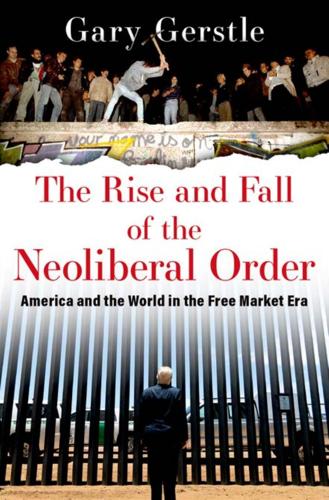
The Rise and Fall of the Neoliberal Order: America and the World in the Free Market Era
by
Gary Gerstle
Published 14 Oct 2022
Norton, 2019). 23.The classic historical work on casual labor markets is Gareth Stedman Jones, Outcast London: A Study in the Relationship Between Classes in Victorian Society (1971; London: Verso, 2013). For more recent works on the subject, see Guy Standing, The Precariat: The New Dangerous Class (London: Bloomsbury, 2011); Alexandrea J. Ravenelle, Hustle and Gig: Struggling and Surviving in the Sharing Economy (Oakland: University of California Press, 2019); Ruth Milkman and Ed Ott, eds., New Labor in New York: Precarious Workers and the Future of the Labor Movement (Ithaca, NY: Cornell University Press, 2014). 24.For the origin of the term “precariat,” see https://www.macmillandictionary.com/buzzword/entries/precariat.html, accessed December 15, 2021, and Standing, The Precariat. 25.See Steve Fraser and Gary Gerstle, “Introduction,” in Steve Fraser and Gary Gerstle, eds., Ruling America: A History of Wealth and Power in a Democracy (Cambridge, MA: Harvard University Press, 2005), 1–26. 26.For Rick Santelli’s rant, see https://www.cnbc.com/video/2015/02/06/santellis-tea-party-rant-february-19-2009.html, accessed June 22, 2021; Phil Rosenthal, “Rant Goes Viral, Raising Profile of CNBC’s Rick Santelli,” Chicago Tribune, February 23, 2009, https://www.chicagotribune.com/news/ct-xpm-2009-02-23-0902220319-story.html, accessed June 22, 2021. 27.On the origins of the Tea Party, see Theda Skocpol and Vanessa Williamson, The Tea Party and the Remaking of Republican Conservatism (New York: Oxford University Press, 2012); Jill Lepore, The Whites of Their Eyes: The Tea Party’s Revolution and the Battle over American History (Princeton, NJ: Princeton University Press, 2011); Michael Leahy, Covenant of Liberty: The Ideological Origins of the Tea Party Movement (New York: HarperCollins, 2012).
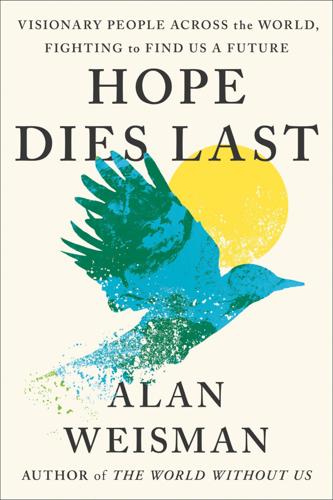
Hope Dies Last: Visionary People Across the World, Fighting to Find Us a Future
by
Alan Weisman
Published 21 Apr 2025
The Bangladesh model became the basis of his Ph.D. thesis—in a single month in 2013, 85,000 homes were solarized. That year, Groh won an Ignite fellowship to Stanford’s Graduate School of Business, a program to help budding entrepreneurs launch innovative concepts. By now, he had no interest in being an entrepreneur, but he had an original idea. This was the early days of the Uber sharing economy, and it occurred to him how to share solar electricity. His project—to connect the households that Grameen Shakti had solarized via WiFi into microgrids so that they could pool and trade their energy—was chosen for developing into a business plan. In late August 2013, he and five Stanford classmates presented it to a Silicon Valley mock jury, which called it fantastic.
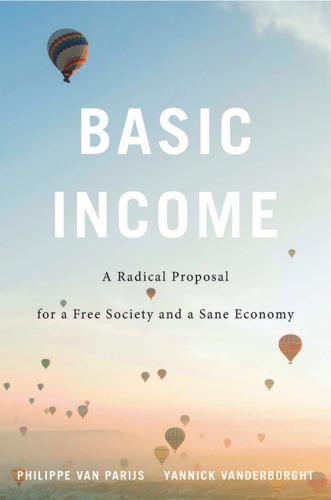
Basic Income: A Radical Proposal for a Free Society and a Sane Economy
by
Philippe van Parijs
and
Yannick Vanderborght
Published 20 Mar 2017
New York: Palgrave Macmillan. Warin, Philippe. 2012. “Non-Â�Demand for Social Rights: A New Challenge for Social Action in France.” Journal of Poverty and Social Justice 20(1): 41–55. Weitling, Wilhelm. 1845. Garantien der Harmonie und Freiheit, 2nd ed. Hamburg: Im Verlage des Verfassers. Weitzman, Martin L. 1984. The Share Economy: Conquering Stag flation. Cambridge, MA: Harvard University Press. Wenger, Albert. 2016. “World Â�after Capital.” Self-Â�published essay. https://Â�w ww╉.Â�gitbook╉ .Â�com ╉/ Â�book ╉/Â�worldaftercapital ╉/Â�worldaftercapital ╉/Â�details. Werner, Götz. 2006. Ein Grund für die Zukunft.

Empire of AI: Dreams and Nightmares in Sam Altman's OpenAI
by
Karen Hao
Published 19 May 2025
But from 2012 to 2022, beginning with the ImageNet breakthrough, it was these shifts during the first major era of AI commercialization that laid the groundwork for many characteristics of the generative AI revolution today. For industry, deep learning fueled the improvement and emergence of new products and services, from faster access to information to more efficient e-commerce to the rise of the sharing economy. For deep learning, industry drove new technical breakthroughs in neural networks and computer chips that enabled the development of larger and more powerful AI models. But alongside these impressive advances, deep learning’s supercharging of Silicon Valley would also aggressively expand its business model, for which Harvard professor Shoshana Zuboff would coin a term in 2014: surveillance capitalism.
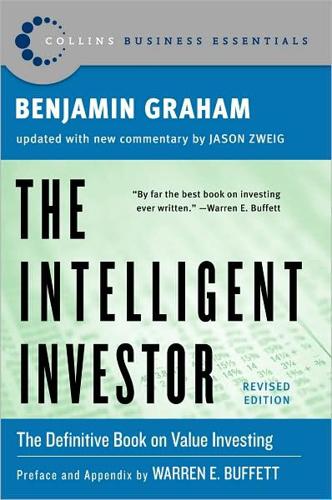
The Intelligent Investor (Collins Business Essentials)
by
Benjamin Graham
and
Jason Zweig
Published 1 Jan 1949
(But in the last decade the rate of advance was much lower—5¼% for the S & P composite index and only the once familiar 3% for the DJIA.) The record of price movements should be supplemented by corresponding figures for earnings and dividends, in order to provide an overall view of what has happened to our share economy over the ten decades. We present a conspectus of this kind in our Table 3-2 (p. 71). It is a good deal to expect from the reader that he study all these figures with care, but for some we hope they will be interesting and instructive. Let us comment on them as follows: The full decade figures smooth out the year-to-year fluctuations and leave a general picture of persistent growth.
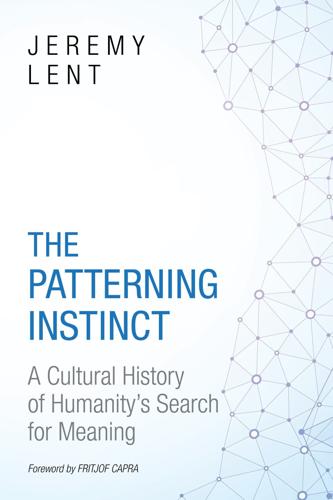
The Patterning Instinct: A Cultural History of Humanity's Search for Meaning
by
Jeremy Lent
Published 22 May 2017
The global culture emerging from the internet offers humanity a view of itself as an interconnected whole, inviting people to see themselves as part of a web of life encompassing the entire world.86* The internet also offers the opportunity for people at a grassroots level to change the very structures that have defined commerce and communication since the rise of the Industrial Revolution. Collaborative offerings such as Wikipedia and Firefox—an open-source web browser with half a billion users—demonstrate the power of a volunteer network to compete with established corporations. In another development, the newly emerging “sharing economy,” which emphasizes the value of sharing access to products rather than owning them outright, is rapidly extending to cars, homes, clothes, tools, toys, and other items. These examples are perhaps only the first baby steps toward new structures of human cooperation that haven't yet been imagined.87* As a counterweight to the forces leading civilization toward either collapse or Techno Split, the internet offers a way to create an enhanced collective intelligence at a time when we need it the most.
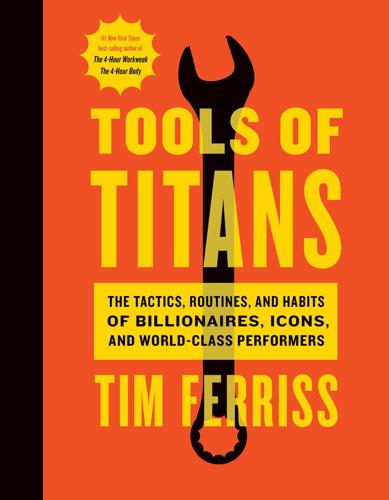
Tools of Titans: The Tactics, Routines, and Habits of Billionaires, Icons, and World-Class Performers
by
Timothy Ferriss
Published 6 Dec 2016
Most people forget that innovation (and investing in innovation) is a business of exceptions. “It’s easy to understand why most investors rely on pattern recognition. It starts with a successful company that surprises everyone with a new model. Perhaps it is Uber and on-demand networks, Airbnb and the sharing economy, or Warby Parker and vertically integrated e-commerce. What follows is endless analysis and the mass adoption of a playbook that has already been played. . . . Sure, [those companies] may create a successful derivative, but they won’t change the world. “I try to learn from the past without being inspired by it.
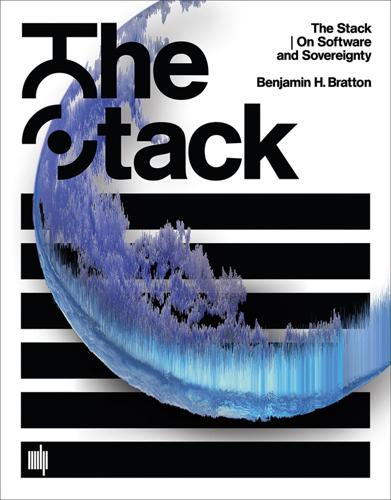
The Stack: On Software and Sovereignty
by
Benjamin H. Bratton
Published 19 Feb 2016
We can only anticipate what forms of high weirdness will ensue, as the paired computerization of matter-into-monies (i.e., carbon credits trading, where the value of money is itself measured in carbon) and monies-into-virtuality (i.e., the light pulses of high-speed trading) continues to evolve and accelerate.8 New addressing schemes to locate and coordinate instances of value are multiplying, both as generic currency (bitcoin blockchains) and as platforms for brokering things-with-value (various sharing economy schemes). At stake in all this is also the design of the economy of information itself, from the smallest-scale object or gesture to the largest topological frameworks, and interrelations across scales by drawing and managing an orthodox map in the form of an address table.9 What gets to count and to whom, and who profits from merely counting?

J.K. Lasser's Your Income Tax 2022: For Preparing Your 2021 Tax Return
by
J. K. Lasser Institute
Published 21 Dec 2021
Rul. 95-37, 1995-1 CB 150 Rev. Rul. 95-55, 1995-2 CB 313 Electing LLC status News Release IR 95-29 (3/29/95) Employment taxes * Legal Memorandum ILM 199922053 40.2 REPORTING SELF-EMPLOYED INCOME *IRS Publication 334 *https://www.irs.gov./businesses/small-businesses-self-employed/sharing-economy-tax-center Election for husband and wife sole owners IRC 761(f) Health insurance deduction for self-employed IRC §162(l) Passive losses IRC §469 Professor's expenses not deductible *Vladimir Shpilrain, TC Summary Opinion 2010-133 Adjunct is an employee William Edward Schramm, TC Memo 2011-212 40.3 ACCOUNTING METHODS FOR REPORTING BUSINESS INCOME *IRS Publication 538 Permissible methods IRC §446(c) IRC §446(d) (more than one business) Reg. §1.446-1 Limits on use of cash method IRC §448 Cash method safe harbor for small businesses(Tax Cuts and Jobs Act) IRC §448 (b) (3) and (c) (1), as amended by the Tax Cuts and Jobs Act (P.L. 115-97, 12/22/2017) for tax years beginning after 2017; $25 million average annual gross receipts test) IRC §448 (c) (4) (inflation adjustment to $25 million average annual gross receipts amount for years after 2018), as added by the Tax Cuts and Jobs Act (P.L. 115-97, 12/22/2017) Rev.